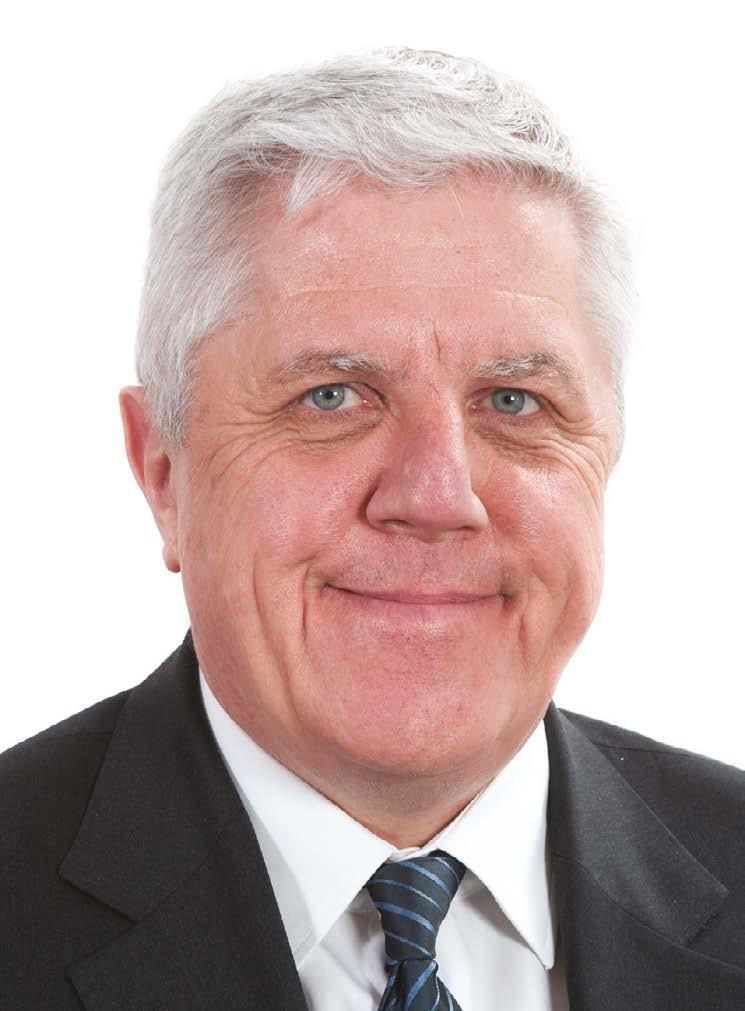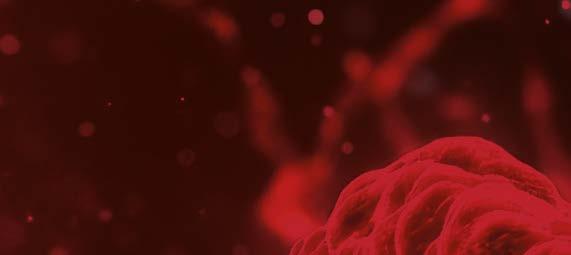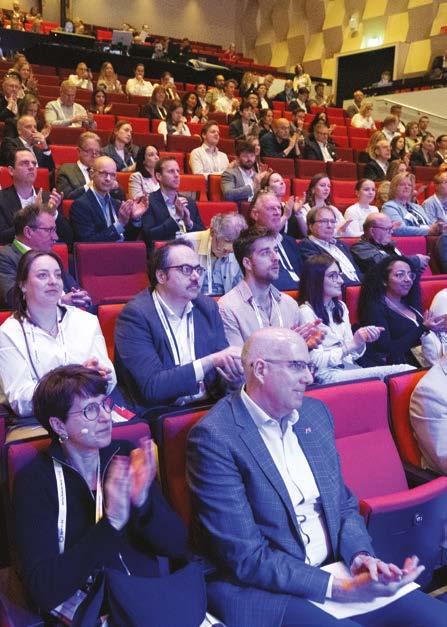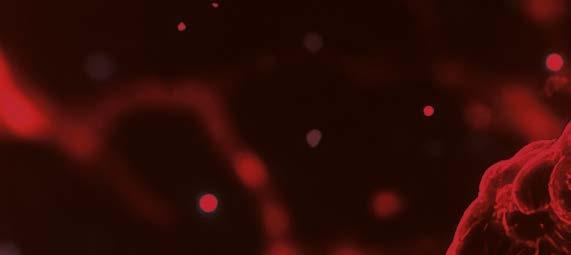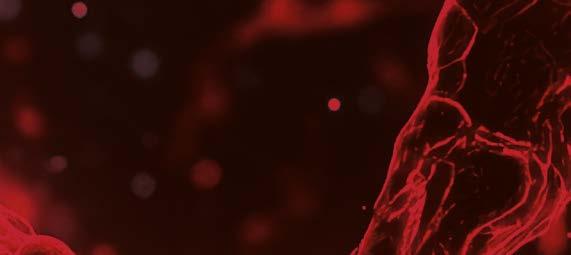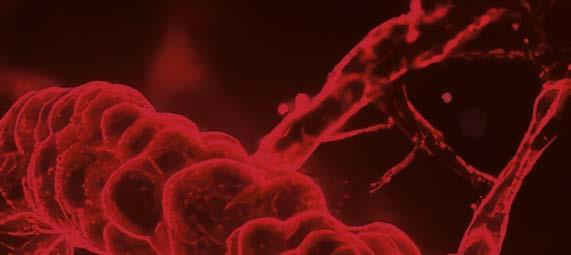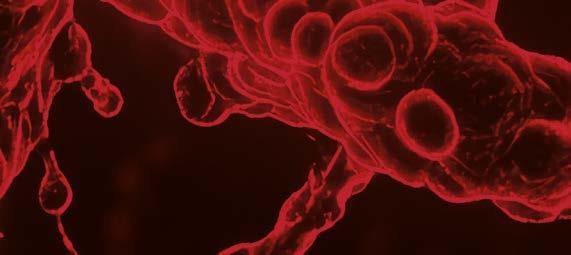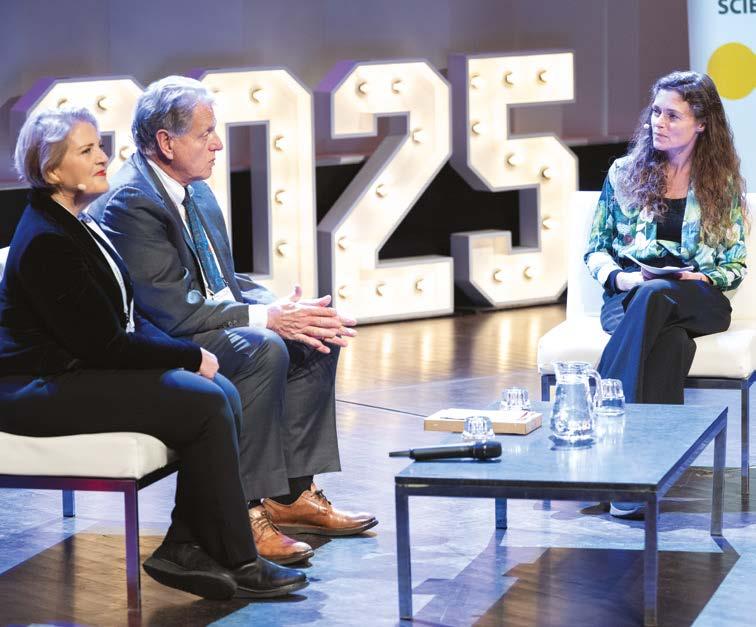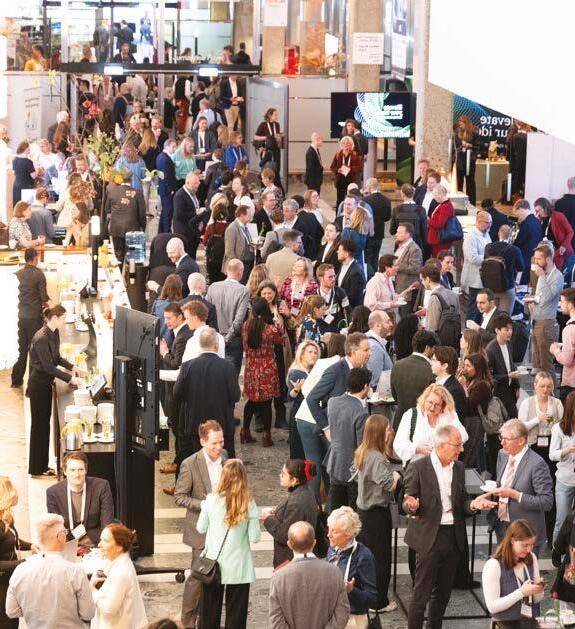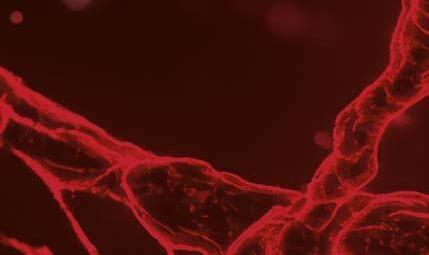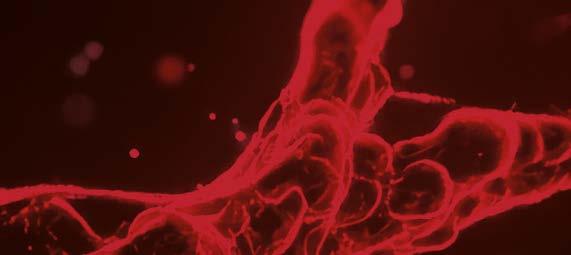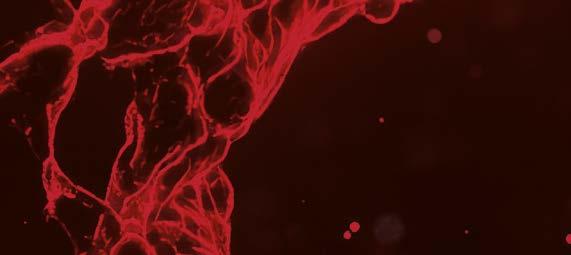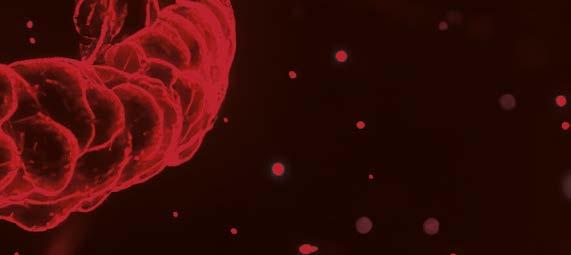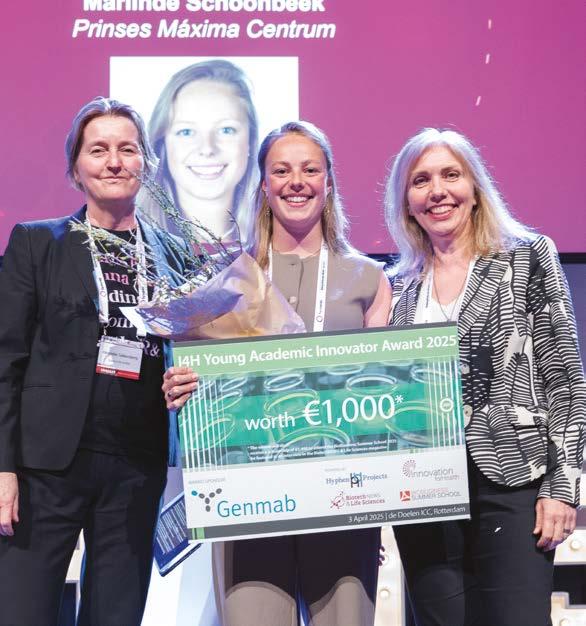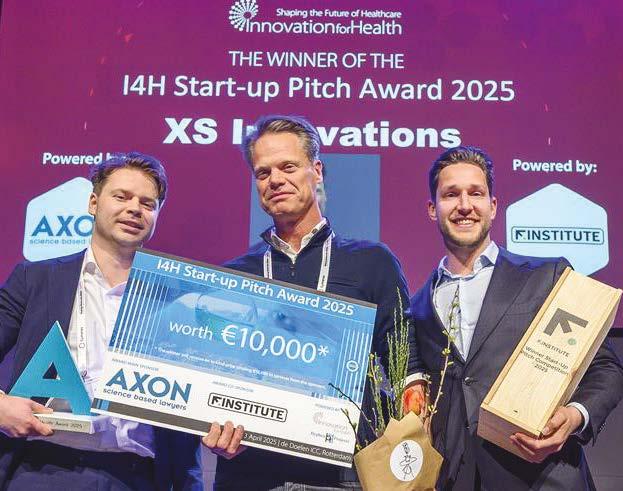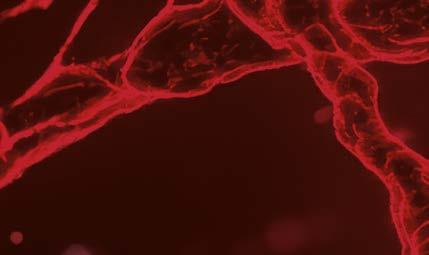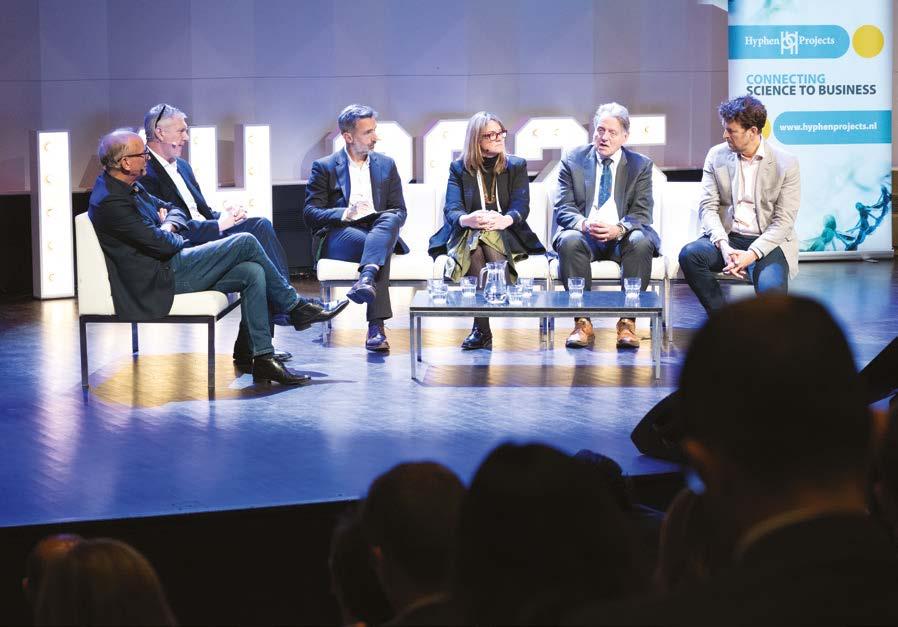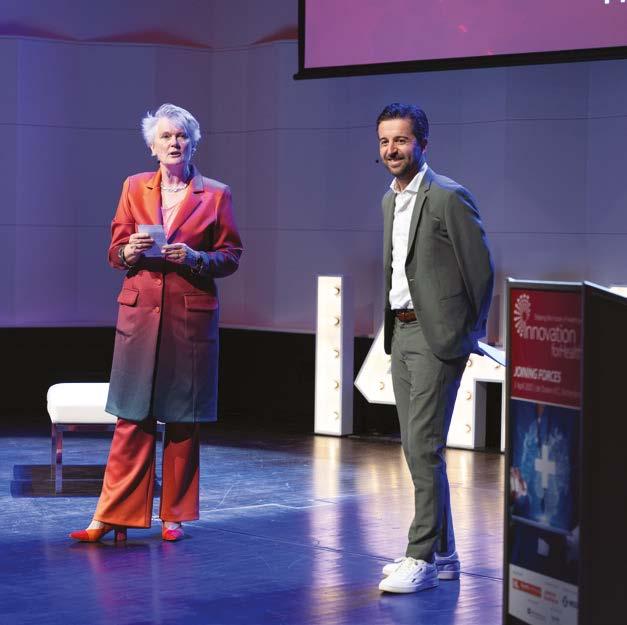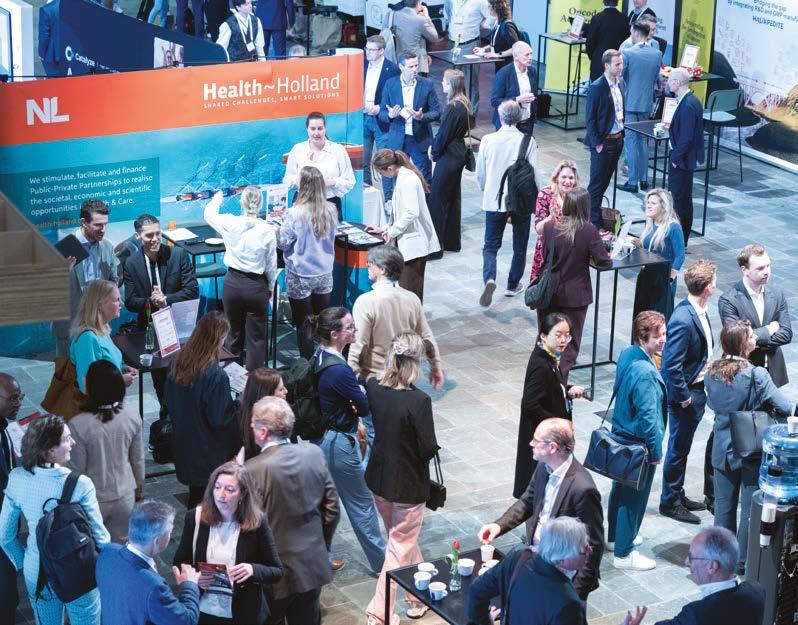25e Jaargang | Nummer 1 | Mei 2025


25e Jaargang | Nummer 1 | Mei 2025

Listen, learn, understand: The voices of patients driving innovations
Pag. 10
Building Momentum – Accelerating Biotech Innovation in Europe
Pag. 14
Spectacular early stage results in Pancreatic Cancer, one of the most difficult to treat cancers
Pag. 23
Transforming healthcare with technology: TNO innovations for a sustainable future
Pag. 41
PharmaNL versterkt innovatie en talent in de farmaceutische sector
Pag. 43

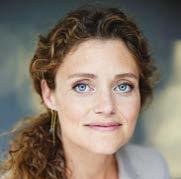
Gilead Sciences: Creating Possible Discovering, Developing and Delivering Innovation - Pag. 6
Grit by Design
Interview with Eline van Beest - Pag. 46
XS Innovations Wins I4H Start-up Pitch Award 2025 Revolutionizing Dialysis Care with Dynamic AVF Technology - Pag. 54
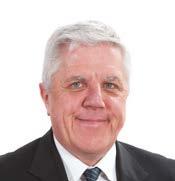
Success, failure, and the road to 3.9 billion
Interview with Edwin Moses on building biotech giants - Pag. 62
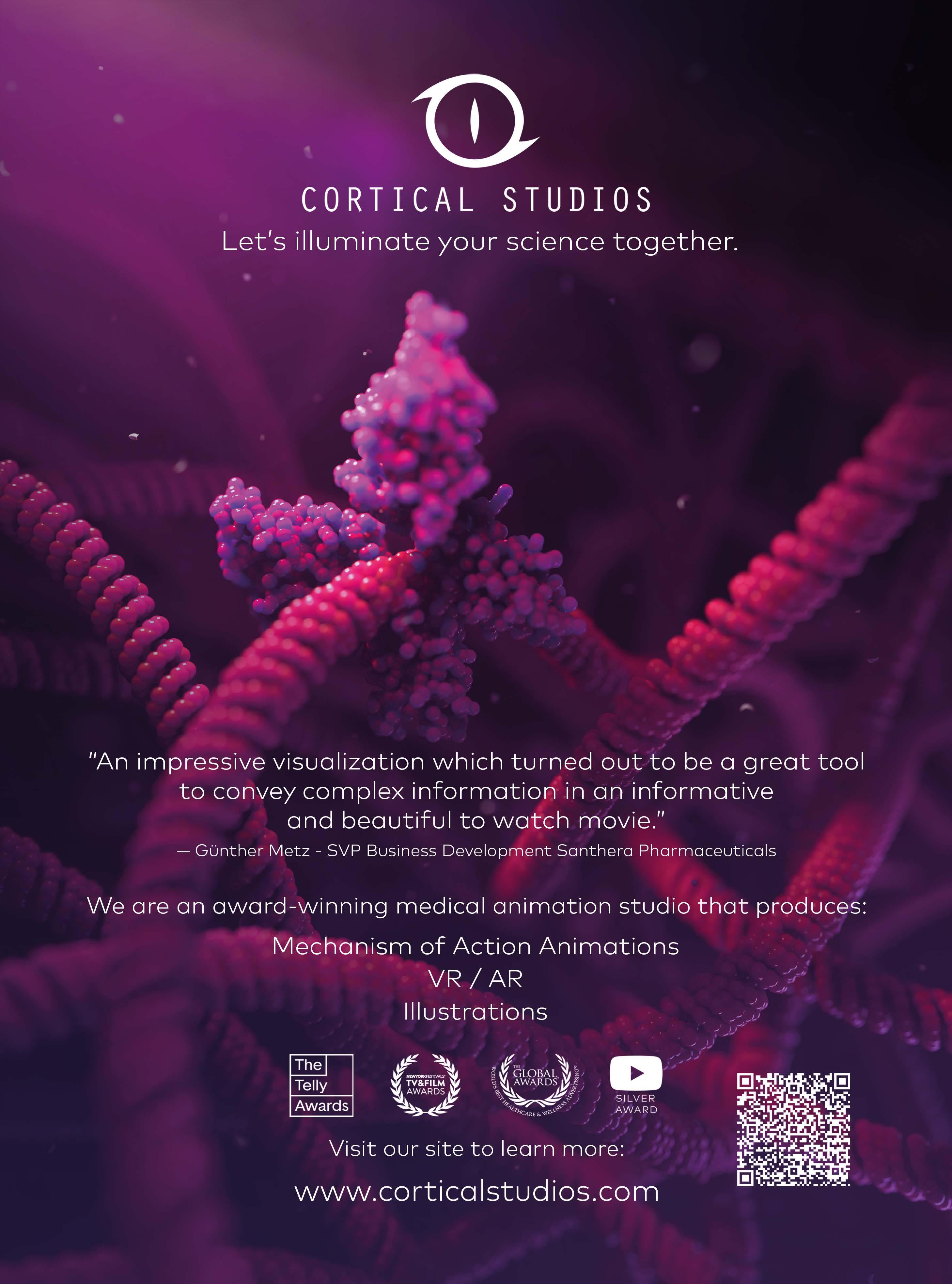

Het Nederlandse biotech-ecosysteem beweegt. En hoe. In deze editie van BiotechNEWS & Life Sciences laten we zien hoe innovatie, ondernemerschap en samenwerking het fundament vormen onder de groei van de sector. Die groei is niet vanzelfsprekend: de financiering van jonge bedrijven blijft uitdagend, en het vertalen van wetenschappelijke doorbraken naar impactvolle toepassingen vraagt om visie, vasthoudendheid en een sterk ecosysteem.
Toch overheerst in dit nummer optimisme. Onze coverstory Building Momentum – Accelerating Biotech Innovation in Europe zoomt in op een historisch moment. Met de aankondiging van het EU Biotech Act staat Europa op een kruispunt. Op Innovation for Health werd duidelijk: we beschikken over de kennis, het talent en de ambitie. Nu is het tijd voor durf, slimme regelgeving en meer investeringsbereidheid. Het momentum is er –maar het vraagt om gezamenlijke actie. Initiatieven als Biotech Booster en PharmaNL, die zich richten op het versnellen van valorisatie en het versterken van de geneesmiddelenketen in Nederland, zijn daar sprekende voorbeelden van.
BiotechNEWS & Life Sciences is onderdeel van:
Hyphen Projects BV
Veerstraat 37, 1211 HJ Hilversum
KvK: 32110979, BTW nr : NL8184.34.491.B01 ING NL26INGB0007452062
Telefoon: 035 623 07 81 www.hyphenprojects.nl/biotechnews
Uitgever Haifen Hu, Eigenaar en Directeur
Redactie Drs. Ilse Kuiper, Hoofdredacteur
Erwin Gevers, Redacteur
Yilmaz Biter, Redactielid
Ivo Horn, Redactielid
Alex Cloherty, Redactielid
E-mail: biotechnews@hyphenprojects.nl
25e Jaargang • Nummer 1 • Mei 2025
Verkoop
U leest verder over bedrijven die voluit inzetten op vernieuwing, zoals OncoLize, dat werkt aan een veelbelovende aanpak voor moeilijk behandelbare tumoren zoals alvleesklier- en maagkanker, en Pandora Endocrine Innovation, dat innovatieve hormonale behandelingen ontwikkelt op het gebied van Women’s Health en endocriene oncologie.
Daarnaast is er volop aandacht voor regio’s en science parks die als motor van biotechontwikkeling fungeren, waaronder het Leiden Bio Science Park, Pivot Park en Plus Ultra in Amsterdam. Ook spreken we inspirerende personen: Eline van Beest vertelt openhartig over haar ervaringen als ondernemer en investeerder, en over haar nieuwe prijs voor vrouwelijke medtech-founders. Edwin Moses deelt zijn lessen als biotechveteraan over focus, leiderschap en het belang van falen als leerproces.
We vieren daarnaast mooie successen: van gewonnen awards tot investeringen die groei mogelijk maken. Kortom, deze editie staat boordevol ontwikkelingen, inzichten en inspiratie
Haifen Hu, Sales Algemeen
Laura Hillege, Sales Arbeidsmarkt
Ferdinand Oldemaat, Sales Strategisch Adviseur
Vormgeving Reclamemakers.nl
Nathalie Wessels
Fotografie O.a. Joshua Quicken
Druk Senefelder Misset (Doetinchem) ISSN 2666-1012
Verspreiding PostNL
INFORMATIE Biotechnologie is een sterk groeiende industrie. Nederland is wereldwijd sterk in deze sector en de vooruitzichten zijn zeer goed. BiotechNEWS & Life Sciences is een magazine dat inzicht biedt in de onderwerpen en ontwikkelingen die spelen binnen deze Nederlandse economische topsector. Nederlandstalig en laagdrempelig. Biotechnologie en life sciences is een internationale industrie. Vrijwel alle publicaties over dit onderwerp verschijnen in het Engels. BiotechNEWS vindt het essentieel om juist in het Nederlands te publiceren.
COPYRIGHT © 2025 Niets uit deze uitgave mag worden verveelvoudigd en/of openbaar gemaakt door middel van druk, fotokopie, microfilm of op welke andere wijze dan ook, hetgeen ook van toepassing is op de gehele’of gedeeltelijke bewerking, zonder voorafgaande schriftelijke toestemming van de uitgever. Alle artikelen welke in deze uitgave gepubliceerd zijn, vallen onder de verantwoordelijkheid van de desbetreffende journalist. Het verlenen van toestemming tot publicatie in BiotechNEWS houdt in dat de auteur de uitgever, met uitsluiting van ieder ander, onherroepelijk machtigt de bij of krachtens de Auteurswet door derden verschuldigde vergoeding voor kopíëren te irmen of daartoe in en buiten rechte op te treden. Wij maken u er op attent dat de verstrekte gegevens zoals, naam, adres en woonplaats zijn opgenomen in onze klantenadministratie. Wij willen het gebruiken om u te blijven informeren over onze voordeelaanbiedingen, produkten en dergelijke van zorgvuldig uitgekozen andere bedrijven. Deze administratie is aangemeld bij de registratiekamer te Rijswijk onder nummer P-0015 122 Indien u bezwaar heeft tegen dit gebruik van uw gegevens dan kunt u dit schriftelijk aan ons laten weten.
die het biotech-momentum in Nederland en Europa kracht bijzetten.
Veel leesplezier!
Haifen Hu Uitgever | BiotechNEWS & Life Sciences
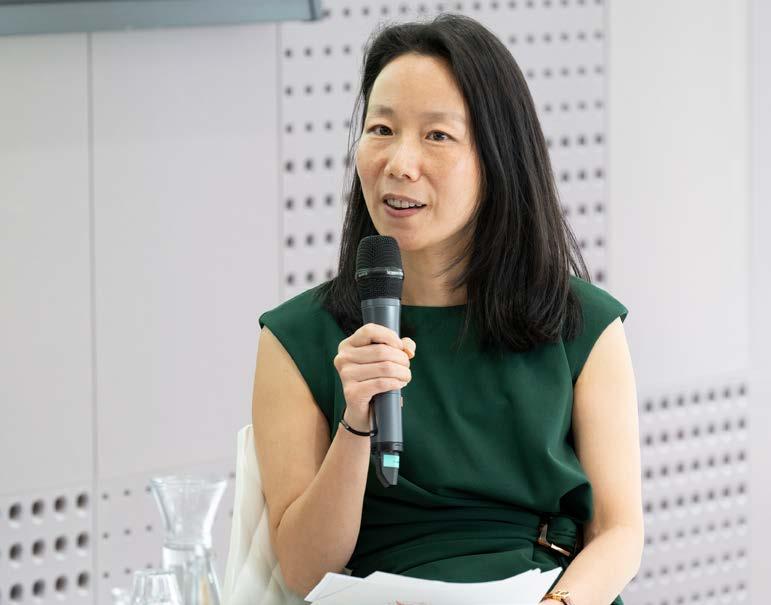




Uitgave november 2025
Highlighting News & Progress in Life Sciences
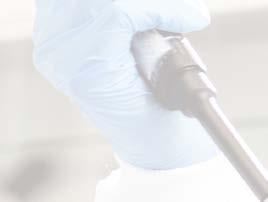

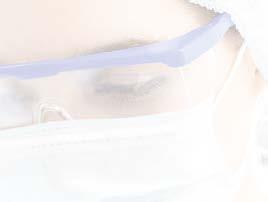
Onderwerpen en thema’s o.a.
• Sector Nieuws en Industrie
• Innovaties en Nieuwe Ontwikkelingen



• Start-ups & Financiering
• Bedrijfshuisvesting & Laboratoria
• Science & Trends
• HR & Carrière





Reserveer nu uw ruimte in deze editie! Zie www.hyphenprojects.nl/biotechnews voor meer info en abonnementen, of neem contact met ons op via: T: 035 628 66 59 E: biotechnews@hyphenprojects.nl Powered by:


3DM Engineering is worldwide the first AI platform that can predict which mutations should be combined (5-7 protein mutations) to massively increase protein performance. Between 10% to 40% of the predicted protein combinations outperform current expensive and laborious laboratory tests. Founder and CCO Henk-Jan Joosten gives his insight into the unique story of Bio-Prodict.
In 2000, Henk-Jan Joosten, founder and CCO of Bio-Prodict did a Masters Degree at the Bio-Informatics Department of The Radboud University. Together with two other students, he built a database that contained as much data they could find for the protein family of the nuclear hormone receptors. This was on request of the pharmaceutical company Organon. After this database was completed, it turned out to be very useful to have all data of one protein family together in one database.
Bio-Prodict; A company that enables researchers to build smart solutions with protein family databases (3DM):
As Dr. Joosten has been involved in the complete process of building this first protein family database, he realized that the whole process can be automated and therefore a program could be made that can automatically build databases for all existing protein families. The idea of a company that would sell licenses to protein family databases was born. The 5th of May 2008 Dr. Joosten started Bio-Prodict, a company from which pharmaceutical and biotech companies could license access to the, so called, 3DM databases for any protein target that the customer is working on.
Solving problems: the 3DM database and its unique 3D protein numbering scheme
The 3DM databases of Bio-Prodict solve a huge problem in protein research and engineering; in 3DM all proteins are linked to each other via a unified numbering scheme, called 3D numbers. Consequently, all sequences and protein structures of all organisms in a protein family are renumbered, based on the 3D positions of each residue, which hyperlinks all sequences, all structures, all underlying data, and all 3DM tools that have been developed to analyze all this curated data.
Until this day, no other company in the world has such a sophisticated protein numbering system, making 3DM the largest storage of hyperlinked high quality protein data in the world. Already with the first 3DM system, important discoveries have been made about the functioning of these nuclear receptors, which resulted in research papers published in peer reviewed high impact journals.
Used across multiple types of protein related research and engineering
At the start of Bio-Prodict it still took about 3 months to generate a 3DM database for one protein family with these systems containing so much useful data for scientist working in many different types of protein related R&D, they would become a valuable tool in the researcher’s arsenal with Bio-Prodict becoming a valuable player in the world of protein research. First Bio-Prodict targeted the protein engineering market for which tools have been developed that use 3DM data.
In 2011 Bio-Prodict released a new revolutionary tool that can be used for designing smart mutant libraries. This tool has successfully been used in protein research resulting in dozens of papers and patents (www.bio-prodict.nl). In 2014 a tool for the analysis of patent data available for complete protein families was released. Because the process is automated, 3DM finds many more patents about one protein family, compared to manual searches done by patent attorneys. As all sequences in 3DM are synchronized via the 3D-numbers, including the once claimed in patents, patent attorneys can now transfer claimed mutations from all patented proteins in the superfamily to the target protein of a customer. Until today, this 3DM feature remains unique-inthe-world.
AI platforms Helix Pathogenicity and 3DM Engineering opening new markets
Since 2018 Bio-Prodict has built 3DM databases for all possible known structural protein families (~55.000 3DM databases) and targeted 3DM systems that cover the full-length of all human proteins (~100.000 3DM databases). This human protein targeted set was requested by pharmaceutical customers, giving them instant access to all important information that is
captured in all these 3DM systems for every single amino acid of all human proteins.
This immense data set of high-quality hyperlinked protein data enabled Bio-Prodict to train a revolutionary AI platform, called Helix, that can predict if a human mutation might cause a disease. After years of training Helix can predict if a mutation can cause a disease with 97% overall accuracy, much better than any other AI tool currently available in the market. It even outperforms the recently published Google’s Alpha Missence when we used an independent set of 4000 mutations available in hospitals in the BRCA1 protein that can lead to breast cancer. As Google didn’t have this set, we were able to blind test the performance of Alpha Missence and predicted just 79% of these mutations correctly.
In November 2024 Bio-Prodict released another revolutionary AI tool, called 3DM Engineering, that can accurately predict how to combine mutations to make big leaps in the performance of proteins. In a first pilot we compared the performance of 3DM Engineering to a very costly high throughput optimization project of a customer. This showed that with 3DM Engineering, they could have saved 98.5% of labwork, time and costs. Its performance was compared to the test using data of a benchmark of the Protein Engineering Tournament 2024 and 3DM Engineering outperformed all competitors. All projects done so far show that AI, when trained on massive amounts of highly organized data, as captured in 3DM systems, can design better performing proteins, even on already highly optimized proteins that customers have been optimizing for more than a decade. Bio-Prodict was recently awarded the Global Excellence Award: “Best Mutation Prediction Company 2025” given by GHP. Henk-Jan Joosten believes that with 3DM Engineering we are on the way to disrupt how protein related R&D is done today in fields such as protein engineering, drug design, and disease diagnostics.
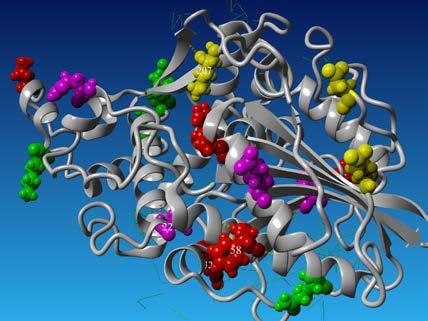
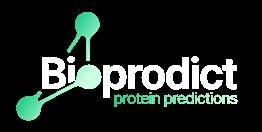
PHC Europe, renowned for its evergreen product lines of refrigerators, freezers, and cell culture incubators, is expanding its innovation portfolio with a novel product line supporting research and development in the Cell & Gene Therapy (CGT) field and Cell-based R&D.
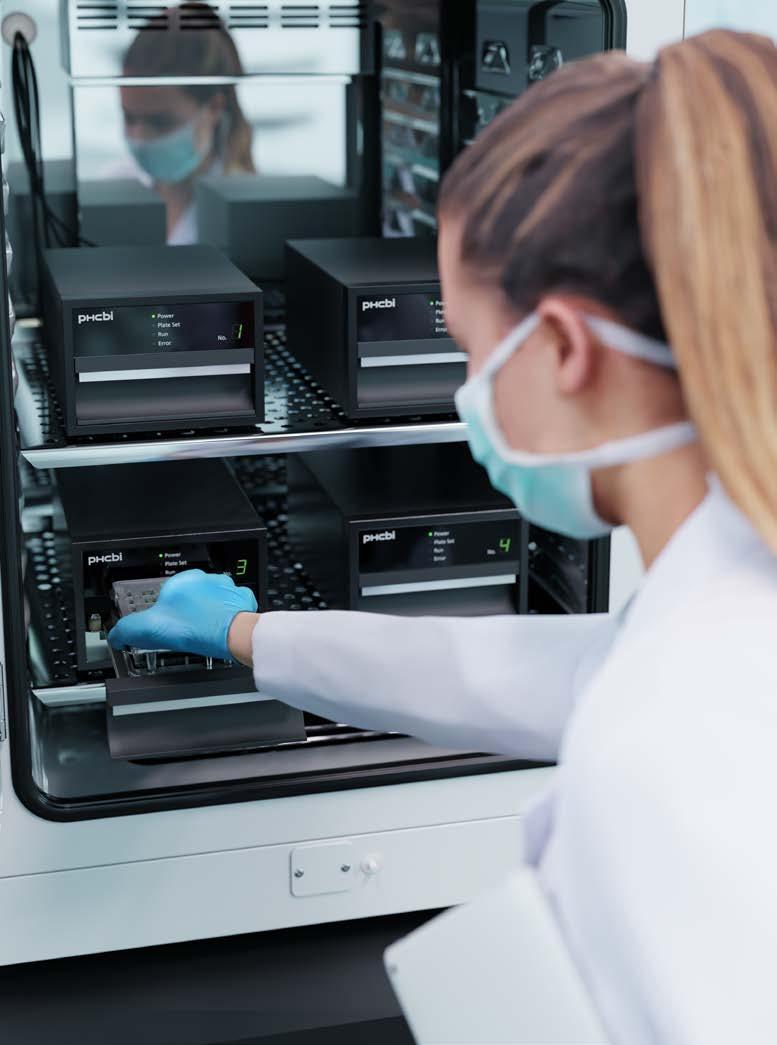
The flagship product of PHCbi’s CGT line is the Live Cell Metabolic Analyzer (LiCellMo), an innovation that enables long-term, continuous, manual sampling-free measurement of glucose and lactate in natural cell culture environments. LiCellMo visualizes real-time changes in glycolysis-based cellular metabolism, providing precise information about in vitro metabolism shifts and cellular statuses.
At the heart of LiCellMo is PHCbi’s proprietary sensor technology, developed in-house by PHC’s engineering team in Japan. This electrochemical sensor, where glucose dehydrogenase and lactate dehydrogenase are conjugated, detects and records mild currents released during dehydrogenation reactions in the cell culture medium. To date, eight patents covering the sensing technology, its manufacturing, and the LiCellMo system have been issued in various countries, highlighting its uniqueness and originality.
LiCellMo’s real-time measurement of glucose and lactate can sustain up to 10 days without manual sampling, creating a labor-free working environment for researchers and scientists, thereby increasing R&D efficiency. Measurements are taken once per minute, with data smoothed and output every 15 minutes. Additionally, the metabolic rate based on glucose and lactate is calculated automatically. Furthermore, the LiCellMo system is housed in a standard CO2 incubator, ensuring cells remain in their natural growth environment and can be used for further experiments, evaluations, or cell expansion after metabolic data collection.
LiCellMo is a versatile tool for monitoring:
1. Shifts in metabolism pathways (glycolysis VS mitochondrial respiration)
2. Long-term changes in cellular statuses
3. Cell differentiation and activation
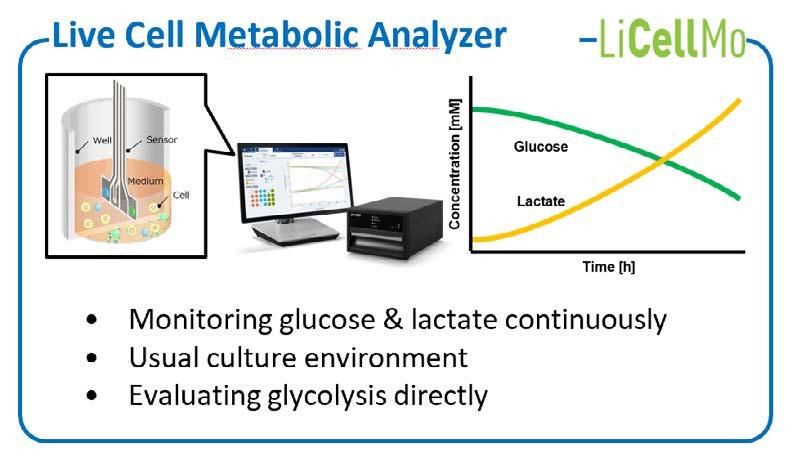
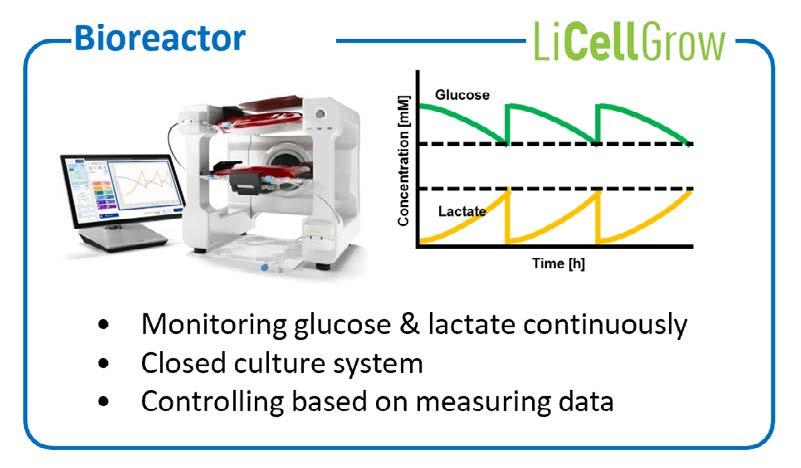
Its applications span various fields, including but not limited to metabolism-related research (e.g., diabetes, liver, cardiovascular), oncology and tumor microenvironment studies, immunology, primary
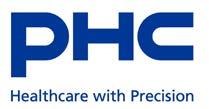
cell and stem cell cultivation and differentiation, cell culture medium optimization and testing, process development (e.g., upscaling to bioreactors, pharmaceutical component screening, and mode of action determination), and sports medicine.
Building on this, PHCbi’s engineering team has developed LiCellGrow, an automatic bioreactor controlled via the real-time glucose and lactate measurements mediated by the same sensing technology as LiCellMo. LiCellGrow offers various approaches to control the bioreactor system, such as via the threshold value or the range value of the glucose and lactate measurement, and when necessary replacing the old cell culture medium with the new one. It also allows users to monitor cell conditions based on four critical elements: glucose, lactate, pH, and oxygen concentration.
PHCbi’s new CGT product line, grounded in proprietary technology, is poised to provide biomedical scientists with a paradigm-shifting solution for monitoring cell statuses and controlling cell culture growth. While LiCellMo is currently available, LiCellGrow is scheduled for launch in October 2025. We look forward to collaborating with academic and industry partners dedicated to biomedical research and development, with LiCellMo and LiCellGrow efficiently supporting your efforts to advance innovation.
Connect with us for an in-depth discussion and a demo on location:
Ashley Shih, Application Specialist, CGT department (ashley.shih@eu.phchd.com)
https://www.phchd.com/eu/biomedical/ cell-analysis/live-cell-metabolic-analyzer/ licellmo
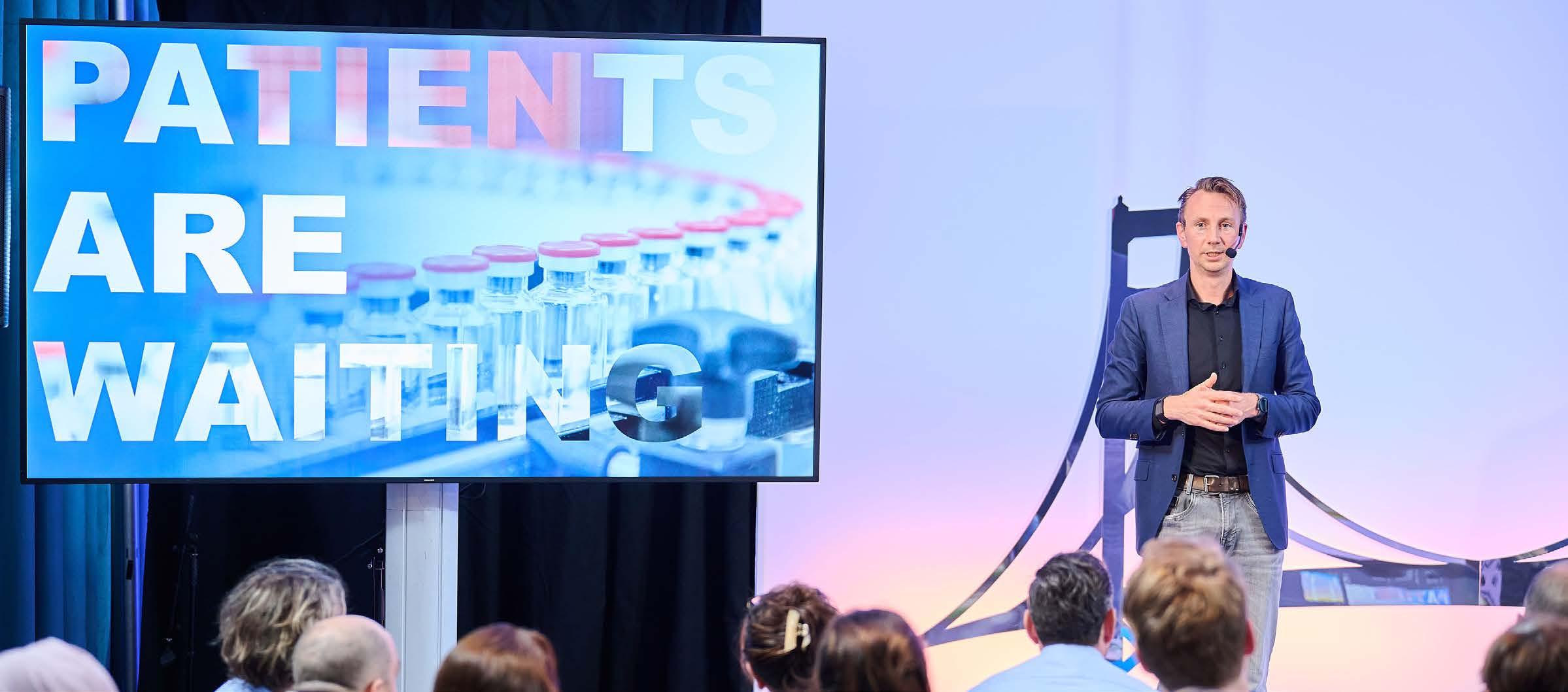
Gilead Sciences, Inc. was founded in 1987 by a doctor with a vision to develop antiviral therapies. Today, Gilead is a biopharmaceutical powerhouse that in the last three-plus decades has improved the health of millions of people worldwide with diseases including viral hepatitis, HIV, cancer, and COVID-19. Headquartered in Foster City, California, Gilead employs 18,000 people and operates in more than 35 countries, including Belgium, the Netherlands and Luxembourg (BENELUX).
With the goal of “creating a healthier world for all people,” the company is committed to advancing innovative medicines to prevent and treat life-threatening diseases. To date, this has included: a cure for hepatitis C; major improvements in HIV treatment and prevention, such as the first once-daily oral treatment for HIV; cell therapies for certain forms of blood cancers; and the first approved treatment for COVID-19.
But Gilead’s focus goes beyond medicine. Knowing that its innovations will have the most impact when societal barriers to care are removed, the company collaborates with communities around the world to expand access, improve health equity, and fulfill its responsibilities as a corporate citizen.
Gilead Sciences BENELUX Senior Director, Medical Affairs, Anne Sinke, Ph.D., and Director, Public Affairs, Corina Ramers-Verhoeven, provide their perspectives on access challenges in the Netherlands and how Gilead is working to address them.
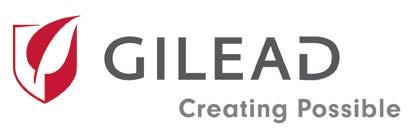
Dr. Sinke, a biomedical scientist with 14 years’ experience in the pharmaceutical industry, still retains his fascination with the molecular mechanism of disease and the impact of medicine. RamersVerhoeven, a life sciences communications veteran, believes strongly in the power of communication to influence change. Both share a passion for making medical innovations accessible to all patients who need them.
The “Tantalous Torment” of Medicines Reimbursement in the Netherlands
Dr. Sinke has become a vocal advocate, strategist and collaborator for patient access to innovative medicines. He recently appeared on the Dutch podcast “De Bruggenbouwers” (The Bridge Builders), which focuses on the complexities of cancer treatment and the medicines reimbursement system in the Netherlands. The episode was aptly titled “A Tantalous Torment,” inspired by the Greek myth of Tantalus, son of Zeus and a mortal. For his arrogance and abuse of divine favor, he was condemned to stand for eternity in a pool of water beneath a fruit tree, each of which would recede whenever he tried to drink or eat.
“Similarly, the Netherlands is a major scientific research hub, known for its world-class universities, collaborative research culture and strong innovation ecosystem,” said Dr. Sinke. “Yet, reimbursement negotiations for new medicines are unpredictable and can take a significant amount of time, which often leads to Dutch patients gaining access to those medicines later than patients in other EU countries.”
This is primarily a byproduct of the Dutch government’s “ Lock” ( “Sluis”) Procedure, introduced in 2015 to regulate the reimbursement of new medicines. During the Lock Procedure, the Dutch National Health Care Institute assesses a medicine’s efficacy, cost-effectiveness, necessity, and feasibility, and when positive, engages in subsequent price negotiations. The procedure aims to ensure that healthcare is affordable and sustainable, now and in the future. But it has also sparked debate.
Corina Ramers-Verhoeven
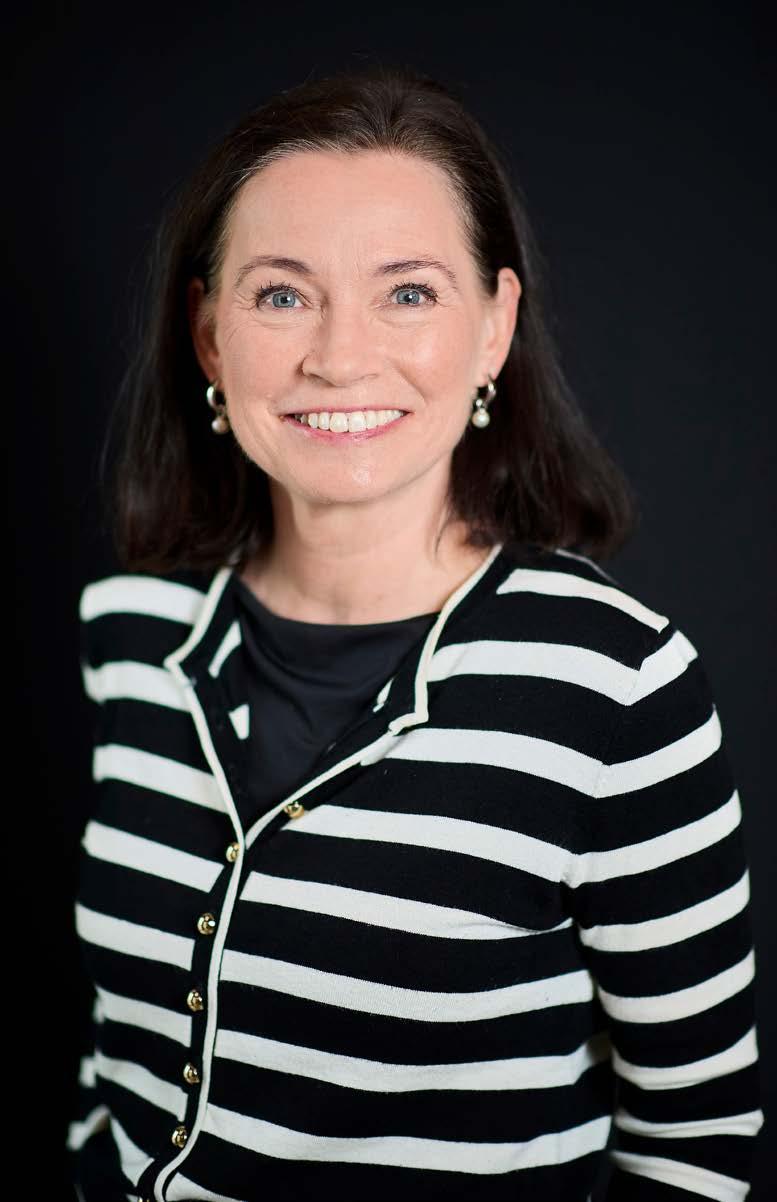
The latest data show that the waiting time for patients to obtain access to innovative medicines in the Netherlands is on average 459 days and increases by about six weeks each year. “This concerning trend requires our collective effort to reverse,” said Dr. Sinke.
“Last year, a Gilead breast cancer treatment made headlines because it took nearly three years for patients to gain access to it in the Netherlands,” said Ramers-Verhoeven. “Some patients decided to go to Belgium to receive the treatment, since it was already reimbursed there.”
“The silver lining,” she added, “is that the therapy was eventually approved for reimbursement, and Gilead became a more vocal proponent of change, in a good way.”
Building Bridges: The Polarity Model “At the end of the day,” said Dr. Sinke, “Gilead wants to be part of the solution by building bridges, being approachable, and being actively engaged in a dialogue with other stakeholders – including patient advocacy groups, professional medical and scientific societies, healthcare professionals, government health agencies, payers and industry partners.”
Dr. Sinke is a proponent of the “polarity model,” a framework used to manage opposing forces that while interdependent, create tension within a system. Instead of treating these forces as problems to be solved, the model recognizes them as polarities – acknowledging that both sides are necessary for balance.
“If we look at the accessibility of biopharmaceutical innovation versus the affordability of healthcare as a ‘problem,’ then we are looking for a right or wrong answer,” Dr. Sinke explained. “That creates polarization – with one side advocating for one solution and another for an opposite solution. This gets in the way of a constructive solution that benefits all.”
This concept was part of a May 22nd presentation that Dr. Sinke delivered as a guest lecturer in a training series of the Vrije Universiteit, called “Dilemmas in Drug Markets. ” Dr. Sinke discussed: drug development, from discovery to
commercialization; how revenues fuel continuous innovation; and the dilemma of getting medicines to the right patients, at the right time, in the right way, not just in the Netherlands, but worldwide.
“My hope is that people will be open minded and indeed, curious about why we do the things we do as an industry, try to understand, and engage with us toward joint solutions,” said Dr. Sinke. “In exchange, we will try to do the same.”
Creating Possible: Discovering, Developing and Delivering Innovation
Both Dr. Sinke and Ramers-Verhoeven are optimistic about what the future of healthcare will bring –for the Netherlands and the world at large.
“Gilead has bold ambitions to discover, develop, and deliver innovations for the world’s most devastating diseases and improve the lives of patients for generations to come,” said Dr. Sinke.
Ramers-Verhoeven added, “While patients are the driving force behind everything we do, it’s our employees and culture that empower us to deliver on that mission, with a ‘can-do’ attitude and a genuine commitment to making a positive impact.”
Today, Gilead continues accelerating its efforts to treat more viral diseases and certain forms of cancer, while leading the charge to end the HIV epidemic and working to provide patients with the best that scientific innovation can deliver. This includes new antiviral therapies, disease prevention options, next-generation cancer treatments and medicines for inflammatory diseases.
The company is going further by investing in worldclass science, working with partners with shared ambitions, expanding access and addressing societal barriers to care.
“Going further also means thinking broadly about our responsibilities to society, the communities we serve and the environments in which we operate,” said Ramers-Verhoeven.
Gilead is committed to broad patient reach through pioneering access programs that touch all parts of
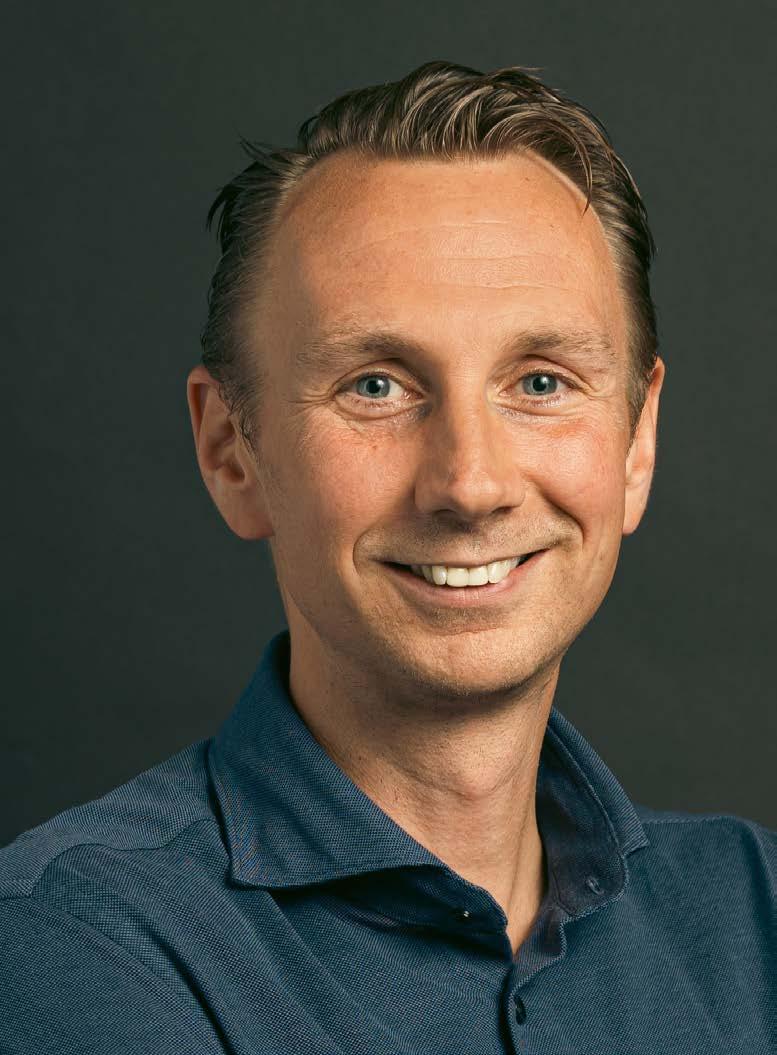
the healthcare ecosystem. For example: Gilead is one of the largest private funders of non-profit HIV programs in the U.S. and the world; in 2023, Gilead medicines were made available to more than 30 million people in 120 resource-limited countries through the company’s voluntary licensing agreements (which allow selected companies to produce and distribute generic versions of Gilead medicines at lower costs); and the company has extended its relationships beyond HIV non-profits, including non-profit partners in oncology, such as organizations that serve underrepresented communities.
“By bringing together diverse minds and embracing fresh ideas, we turbocharge efforts to ‘create possible.’ Together, we can break through barriers, set new standards, and spark a ripple effect of positive change,” said Ramers-Verhoeven.
“As far as the Netherlands is concerned,” said Dr. Sinke, “our country was at the forefront of innovation accessibility – and if all stakeholders join forces and work together, I am confident we will be there again.”
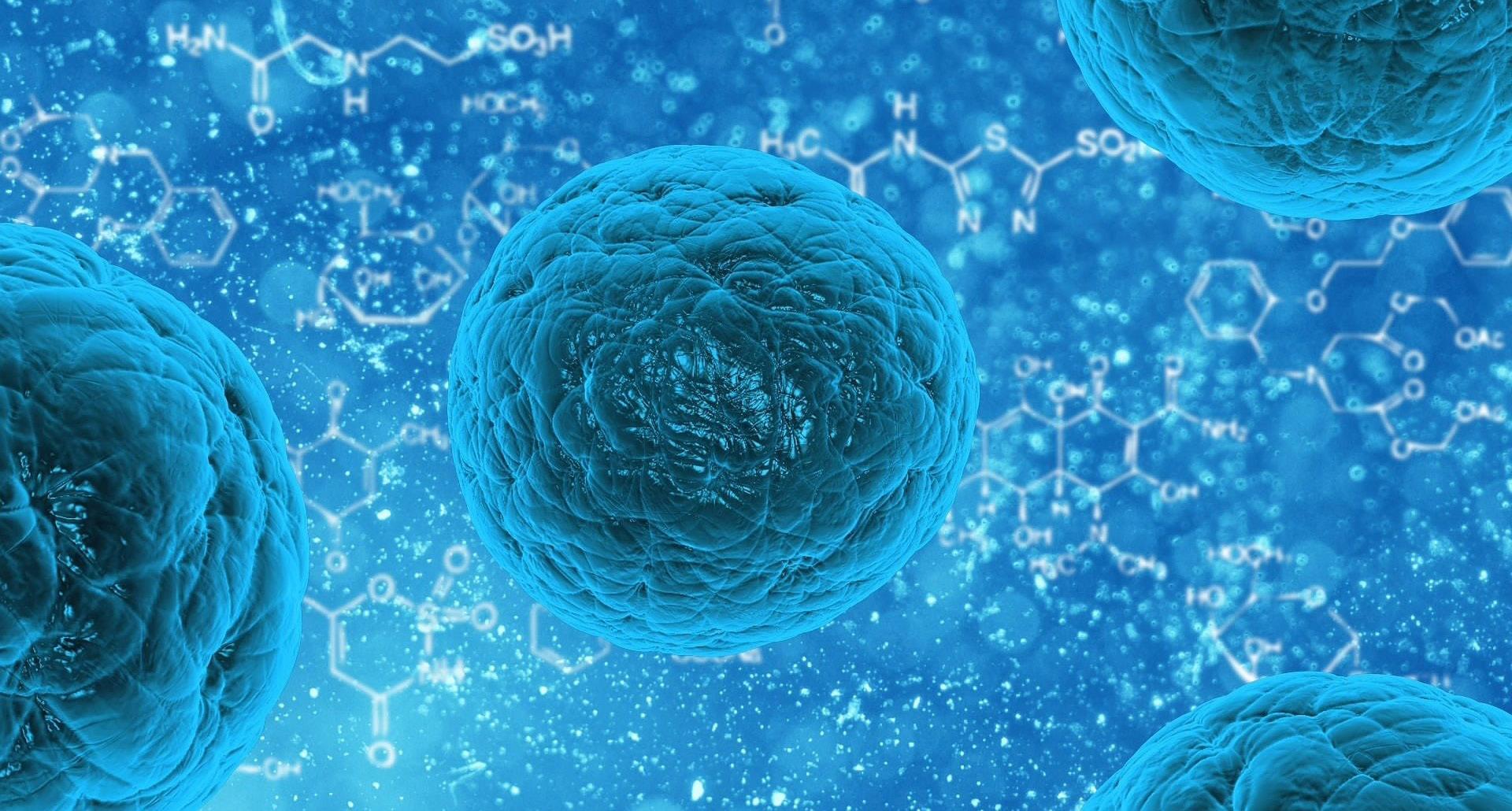
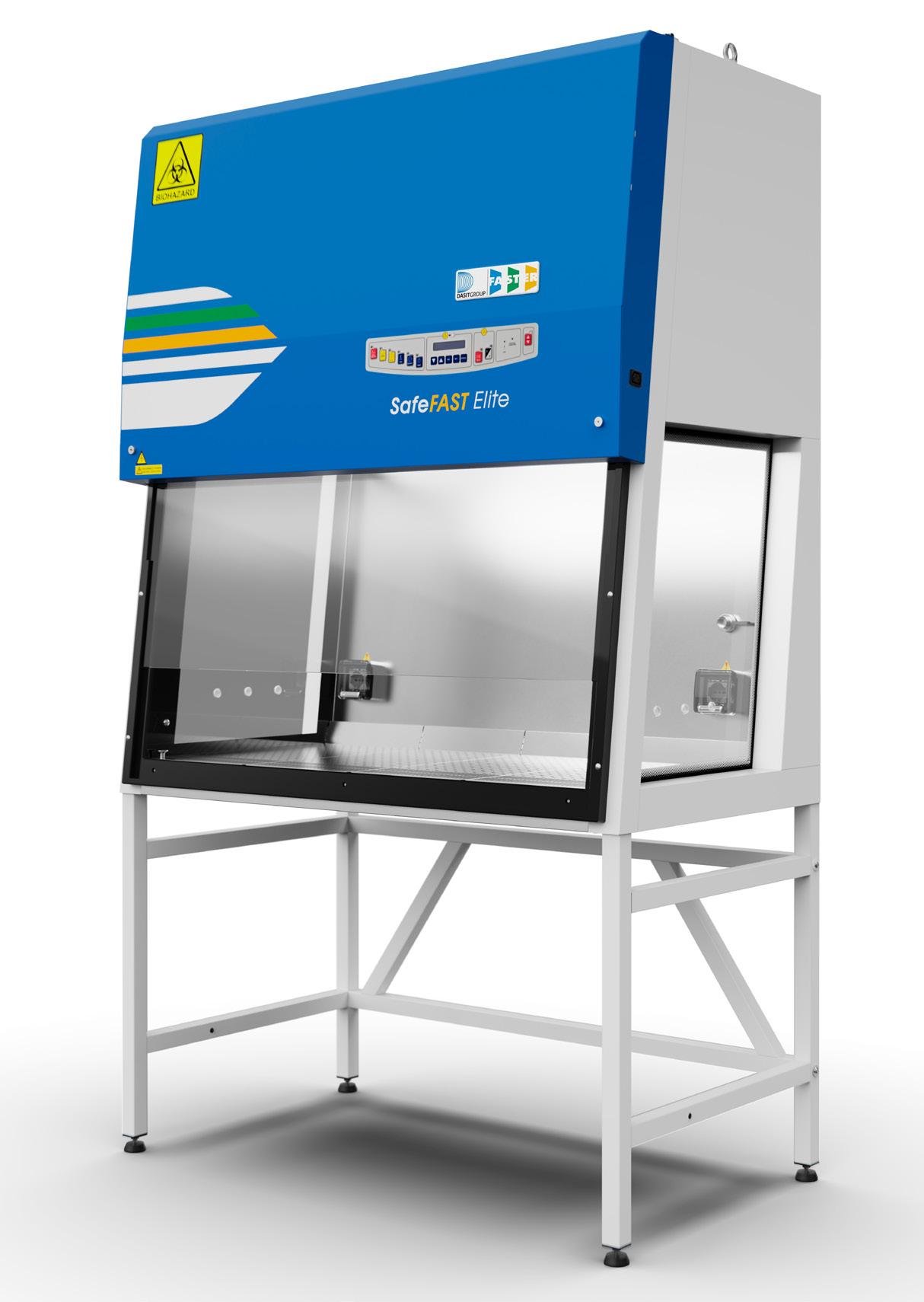
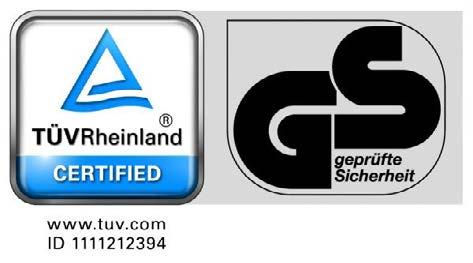
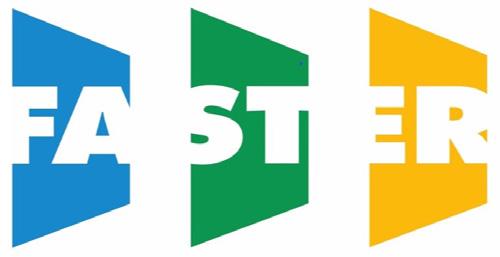
10 redenen om voor deze speciale FASTER SafeFAST Elite te kiezen:
Kwaliteit: AISI-316 RVS werkblad
Lage kosten: voorfilter ter bescherming van HEPA filters
Gemak: gemotoriseerde raambediening
Prettig: geen raamrand voor ongehinderd zicht op werkblad
Comfortabel: glazen zijwand geeft veel licht
Veilig: V-shape rooster voorkomt blokkeren van de luchtstroom
Schoon: raam opklapbaar voor eenvoudige reiniging
Zuinig: DC blower
Zekerheid: 2 jaar garantie
Keuzevrijheid: werkblad gedeeld of uit één voor dezelfde prijs
Meer informatie: SALM EN KIPP info@salm-en-kipp.nl +31 346 269090 www.salmenkipp.nl






The Nucleus, landmark op Tech Lane Ghent Science Park
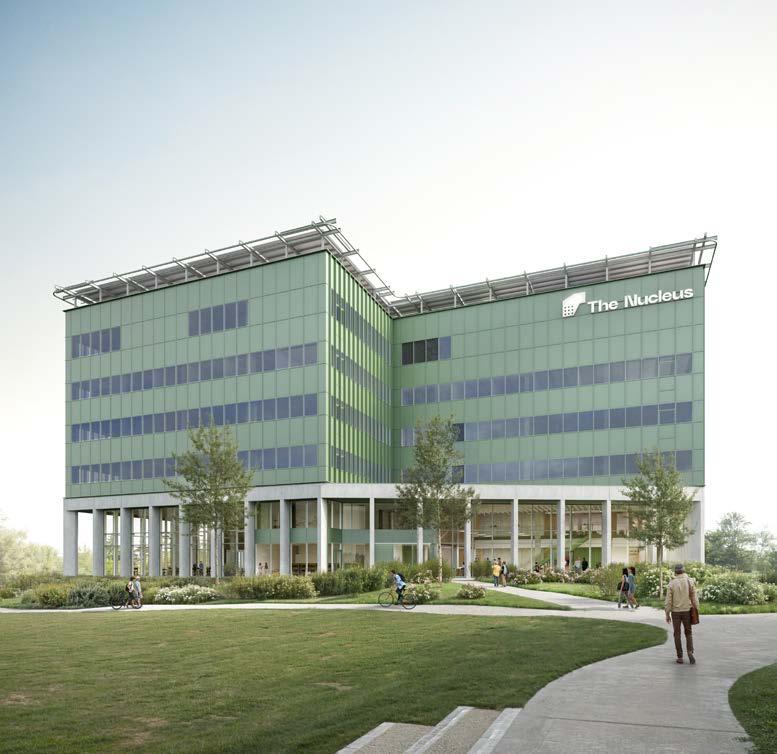
Middenin het bruisende Tech Lane Ghent Science Park groeit iets bijzonders: The Nucleus. Geen klassiek kantoorgebouw, maar een plek waar wetenschap en ondernemerschap elkaar echt vinden. The Nucleus biedt state-of-the-art bedrijfs- en (GMP-certifieerbare) labruimte, CESPE Innovatie Accelerator, maar bovenal geeft het met haar restaurant en veelvoud aan vergader- en congresmogelijkheden een boost aan de kruisbestuiving binnen de levendige parkcommunity.
Flexibel. Futureproof. Duurzaam. Circulair. Ecologisch. BREEAM gecertificeerd. De ambities zijn torenhoog: het gebouw, dat in 2026 de deuren opent, kan flexibel inspelen op noodzakelijke toekomstige en wisselende behoeften qua gebruik
en regelgeving. Bijzondere aandacht gaat naar circulariteit: bouwelementen en -materialen kunnen worden hergebruikt of energiearm gerecycleerd. Het gebouw ligt aan de oevers van het park en gaat met zijn opvallende pastelgroene gevel fraai op in de omgeving. Een echte trekker wordt het restaurant, dat ook in de toekomst de enige eetgelegenheid op het park zal zijn.
CESPE: keuze voor 2 verdiepingen snel gemaakt Christoph Portier is als General Manager van de CESPE Innovatie Accelerator nauw betrokken bij de realisatie van het 28 meter hoge gebouw. CESPE (Centre of Excellence in Sustainable Pharmaceutical Engineering & Manufacturing) is een flexibele open onderzoeks- en innovatieomgeving & ecosysteembouwer binnen de Associatie Universiteit Gent met als focus duurzame (bio)farmaceutische productie-innovatie. Universiteit Gent twijfelde geen moment toen de kans zich voordeed om 2 gehele verdiepingen (3.900 m2) te huren. ‘De verhuizing van een belangrijk deel van onze onderzoeksgroepen naar de stateof-the-art GMP-like labruimtes van The Nucleus, brengt onze organisatie naar een hoger niveau, een brede waaier aan nieuwe mogelijkheden voor samenwerkingen met onze stakeholders ontvouwt zich.’
‘Bovendien ondersteunt de aanwezigheid van CESPE de ambitie om niet alleen het gebouw, maar het gehele wetenschapspark verder te laten uitgroeien tot een internationale hub voor pharma-,
biotech-, cleantech- en healthtech-bedrijven of R&D-activiteiten,’ besluit de gepassioneerde CESPE General Manager Christoph Portier.
Toonaangevend: Tech Lane Ghent Science Park
Met campussen van de UGent, toonaangevende onderzoekscentra zoals imec en VIB, en bedrijven zoals Johnson & Johnson, Sanofi en Legend, biedt het Tech Lane Ghent Science Park (60 ha) een ongeëvenaard ecosysteem. Het park herbergt 11 universitaire labs, 12 publieke onderzoekscentra, 8 industriële pilots en testfaciliteiten, meer dan 90 kennisintensieve start-ups en meer dan 4.500 professionals. De sterke interactie tussen start-ups, kennisinstellingen en R&D-afdelingen van multinationals stimuleert de kruisbestuiving, innovatie en community building.
Voor meer informatie: download hier de brochure van The Nucleus.
Of neem contact op met Operationeel Directeur Nick De Heem welcome@thenucleus.be www.thenucleus.be +32 478 80 57 25
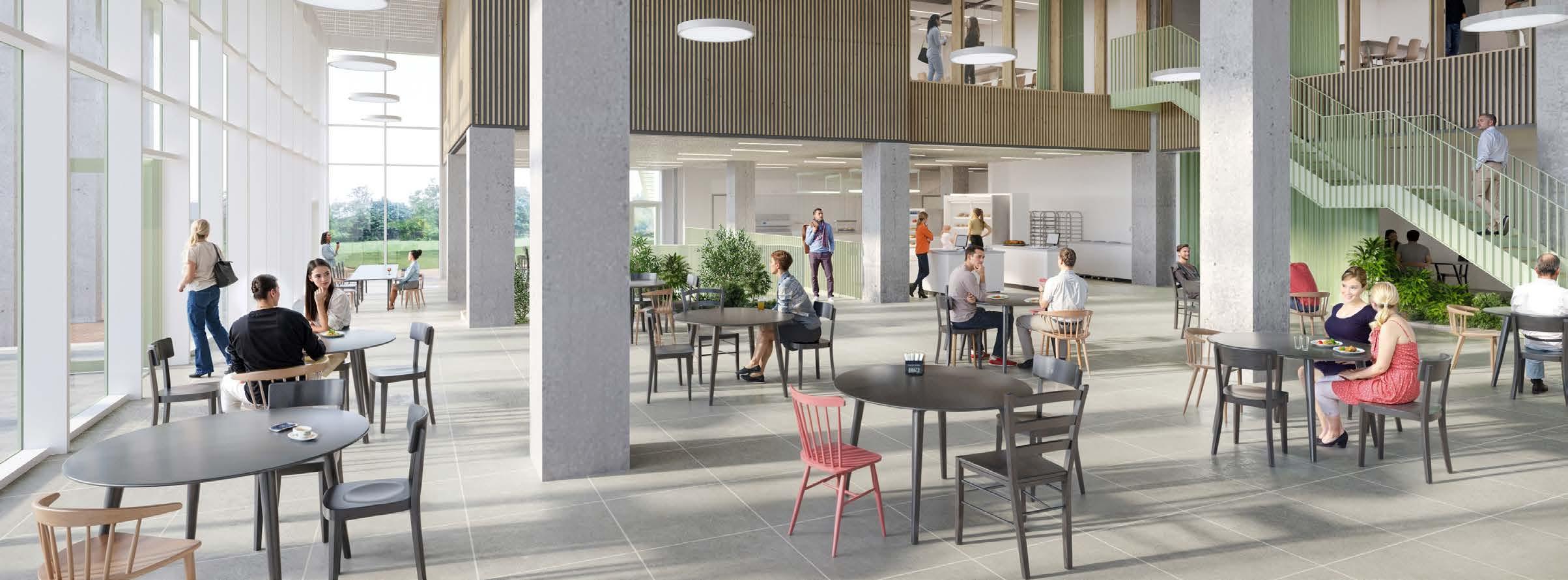
Listen, learn, understand:
Warnyta Minnaard – Warnyta Minnaard is co-founder of Missie Tumor Onbekend, a patient advocacy organization based in the Netherlands. She is also the co-founder of the global umbrella patient advocacy organization (World CUP Alliance) for people with a cancer of unknown primary. Brian Woolhouse – Brian Woolhouse is Managing Director at MSD Netherlands since December 2024, representing approximately 5,000 employees in the Netherlands. He grew up in Canada and has held various international roles in pharma in Canada and the United States. Over the course of his career, he has focused on various therapeutic areas, from infectious diseases to respiratory illnesses and from cardiovascular to rare diseases.
Being diagnosed with a serious disease profoundly impacts how people experience life, work, and relationships. While new treatments are being developed globally, many diseases still remain untreated or undiagnosed. In the Netherlands alone, over one million people live with rare diseases, with approximately 95% of these conditions lacking approved treatments. However, change is underway—thanks to patient advocates like Warnyta Minnaard and the collaboration of key players in healthcare, including pharmaceutical companies like MSD. We had an informative discussion with Warnyta Minnaard from Missie Tumor Onbekend and Brian Woolhouse from MSD on their efforts to drive innovation in the fight against diseases.
For many patients the road to a diagnosis is long and filled with uncertainty. When symptoms are vague and common patients are frequently misdiagnosed or dismissed. “In these cases, it
“These patients don’t have a voice, because most of them die before they can advocate for themselves. I felt that I could be the voice of these patients”
– Warnyta Minnaard
takes a long time to achieve a correct diagnosis. Personal stories that we hear from patients bring this to life. What is especially touching is to hear patients explain the emotional impact a misdiagnosis can have, explains Brian Woolhouse. “In the meantime, patients are advised to lose weight or exercise more, for example. Or they are told that nothing is wrong, while their underlying disease remains undetected.”
For Warnyta, this reality became painfully personal in 2018 when her partner fell ill. His symptoms didn’t fit the typical cancer patient profile, and without a clear primary tumor, doctors were hesitant to initiate treatment. “If you don’t have a label, even getting into the right hospital clinic can be quite challenging,” she recalls. After months of uncertainty, her partner finally received a diagnosis—a cancer of unknown primary (CUP). Unfortunately, when the general chemotherapy treatment finally started, it was too late. He passed away the next day. In her grief, Warnyta found a purpose. She realized that her partner’s case was far from unique. “I thought he must be the only patient, as this cannot be normal,” she reflects. However, upon reviewing cancer registry data, she found that at the time approximately 1,500 similar cases were recorded annually in the Netherlands Cancer Registry. “These are patients that don’t
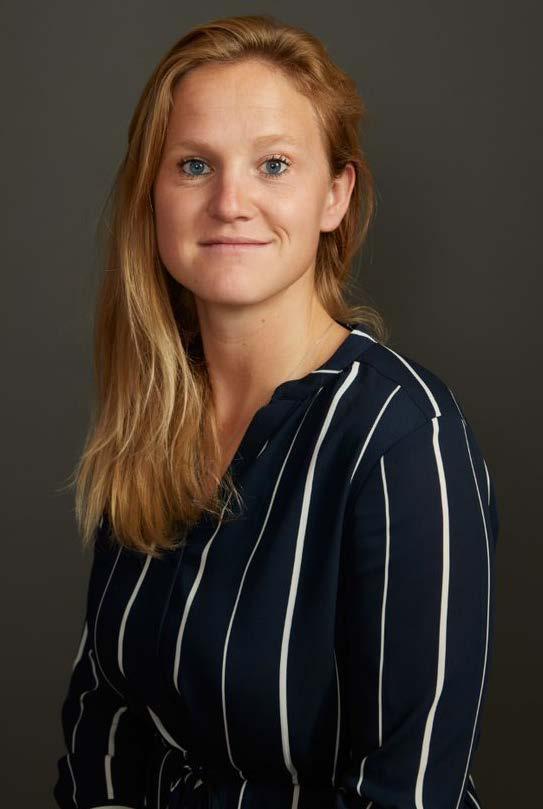
“We must listen, learn, and understand – so that we can amplify the voices of patients”
– Brian Woolhouse
have a voice themselves, as most of them die before being able to make a case. I felt that I could be the voice of these patients.”
Determined to prevent others from experiencing the same struggle, Warnyta co-founded the patient advocacy organization Missie Tumor Onbekend. From the start, she and her team had a clear goal: to help patients with unknown primary tumors gain access to treatments and ultimately getting rid of this disease. Rather than focusing solely on individual patients, they wanted to change how entire groups of patients receive better diagnostics and treatments. “Having data strengthens our case,” she explains. “We weren’t just sharing one or two patient stories; we could speak about an entire group, because of data compiled by IKNL and statistics available via the Netherlands Cancer Registry.” This data driven approach proved crucial when advocating for policy change. Warnyta and her team reached out to health insurance companies, hospitals, researchers, pharmaceutical companies, and politicians. Initially, many stakeholders underestimated the prevalence of rare cancers like CUP. But, armed with data, the organization - together with several clinical experts - successfully lobbied for the reimbursement of crucial molecular diagnostic tests. The strategy worked. A critical paragraph was added to a government motion, and within a few months, the Netherlands Healthcare Authority approved the reimbursement policy — a process that I had expected to easily take much longer.
One of the key elements in enhancing care for patients is ensuring their voices are heard. “We must listen, learn, and understand,” says Brian. He recalls how input from patient representatives directly influenced a new treatment program at MSD. “For example: if patients can’t walk upstairs, how can they visit a hospital every three weeks for an injection?” This insight led to the creation of a home-administration option, which greatly increased access to care for those in
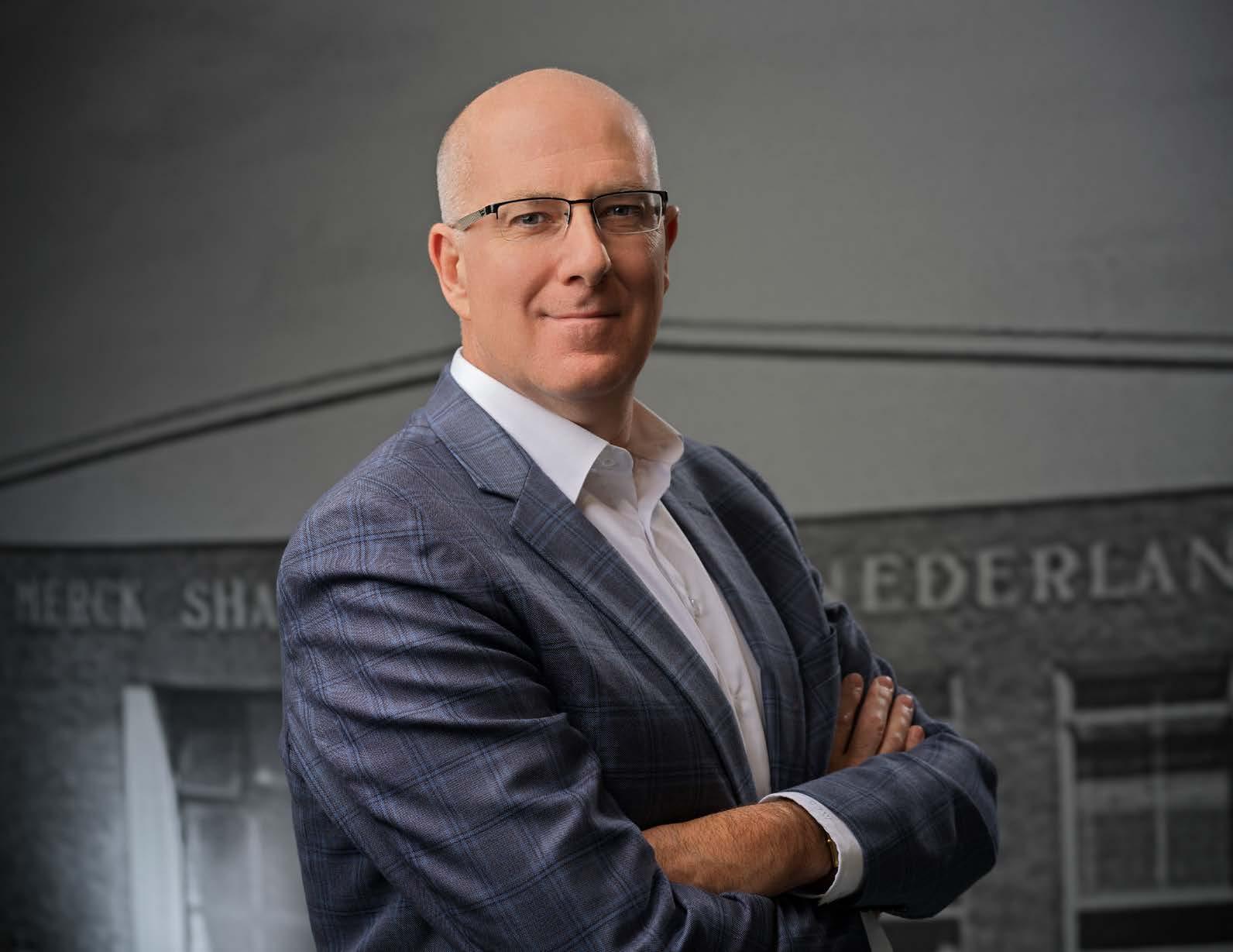
need and ensured these patients really received the treatment. Warnyta echoes this sentiment. “Knowing which patients to treat when can prevent unnecessary tests and hospitalizations.”
In her vision for the future, Warnyta aspires to bring about fundamental change. “I dream of a healthcare system where we don’t wait for treatments to fail before finding the best options. We need to implement more personalized treatments and better diagnostic strategies earlier.” Brian agrees, adding, “Understanding which patients will benefit the most can lead to better treatments, shorter hospital stays, and fewer adverse events. This not only benefits patients, but also the healthcare system.”
“I dream of a healthcare system where we don’t wait for treatments to fail before finding the best options”
– Warnyta Minnaard
Brian emphasizes that delivering the right treatment to patients is at the core of MSD’s mission. “We have been present in the Netherlands
for 70 years now. Our work underscores our mission to save and improve lives around the world. We do everything in our power to deliver medicines to patients and enhance patient access, to clinical studies, medicines and vaccines. And we use the power of leading-edge science to bring innovative medicines to underserved patients.” One of MSD’s landmark contributions is in the field of cancer treatment, particularly through the development and production of immuno-oncology therapies.
“Our most significant innovation is Dutch, and we are proud of that. We’re not just discovering new medicines; we’re ensuring they reach the patients who need them most,” Brian emphasizes.
Collaboration is the key to change
Both Brian and Warnyta stress that meaningful progress in treating diseases can only be achieved through collaboration. “Missie Tumor Onbekend is leading by example in empowering patients by giving them a voice and helping us identify gaps and needs. We need these kinds of coalitions of industry and societal partners to realize systemic change,” Brian states, while emphasizing the importance of breaking down silos in the healthcare system.
“The Netherlands really has world-class R&D capabilities and some of the best doctors and scientists”
– Brian Woolhouse
“At times, we are quite fragmented in the ecosystem. We need to bring all voices to the table and ensure that everyone is included.” From patient organizations to pharmaceutical companies, hospitals, policymakers, health care professionals and insurers—every stakeholder has a crucial role to play. “Everyone has their own interests, and we need everyone involved,” Warnyta agrees. The Netherlands offers a unique ecosystem in that regard. “I think I underestimated the unique environment in which we operate in the Netherlands. We really have world-class R&D capabilities and some of the best doctors and scientists, all in close proximity,” Brian reflects. Warnyta agrees, adding, “The Netherlands has a strong framework where patient advocacy is valued. It’s a very democratic system in many ways.”
Looking ahead: a future with faster diagnoses and better treatments
There is still much work to be done. Delays in diagnosis continue to be a widespread issue, and many treatments remain inaccessible due to financial and regulatory hurdles. However, the successes of organizations like Missie Tumor Onbekend demonstrate that progress is possible when patient voices are amplified and supported by robust data, while pharmaceutical companies like MSD continue their innovation efforts to ensure new medicines reach patients with unmet medical needs. As Brian and Warnyta continue their respective missions, one message is clear: no single entity can address these challenges alone. Brian ends the interview hopeful, “It’s clear that our healthcare system is facing challenges. But we are optimistic: together we can make it happen!”
“We use the power of science to bring innovative medicines to the people who need it”
– Brian Woolhouse
By: Edwin Hecker and Amber Kerkhofs of Schuttelaar & Partners
Optimise your process with a wide range of single-use fluid management innovations Fully supported with rigorous validation studies and tailored regulatory and compliance packages A flexible, open architecture approach to improve efficiency in your production Email: sales.nl@wmfts.com Phone: +31 (0)85 5360010 wmfts.com/nl-nl

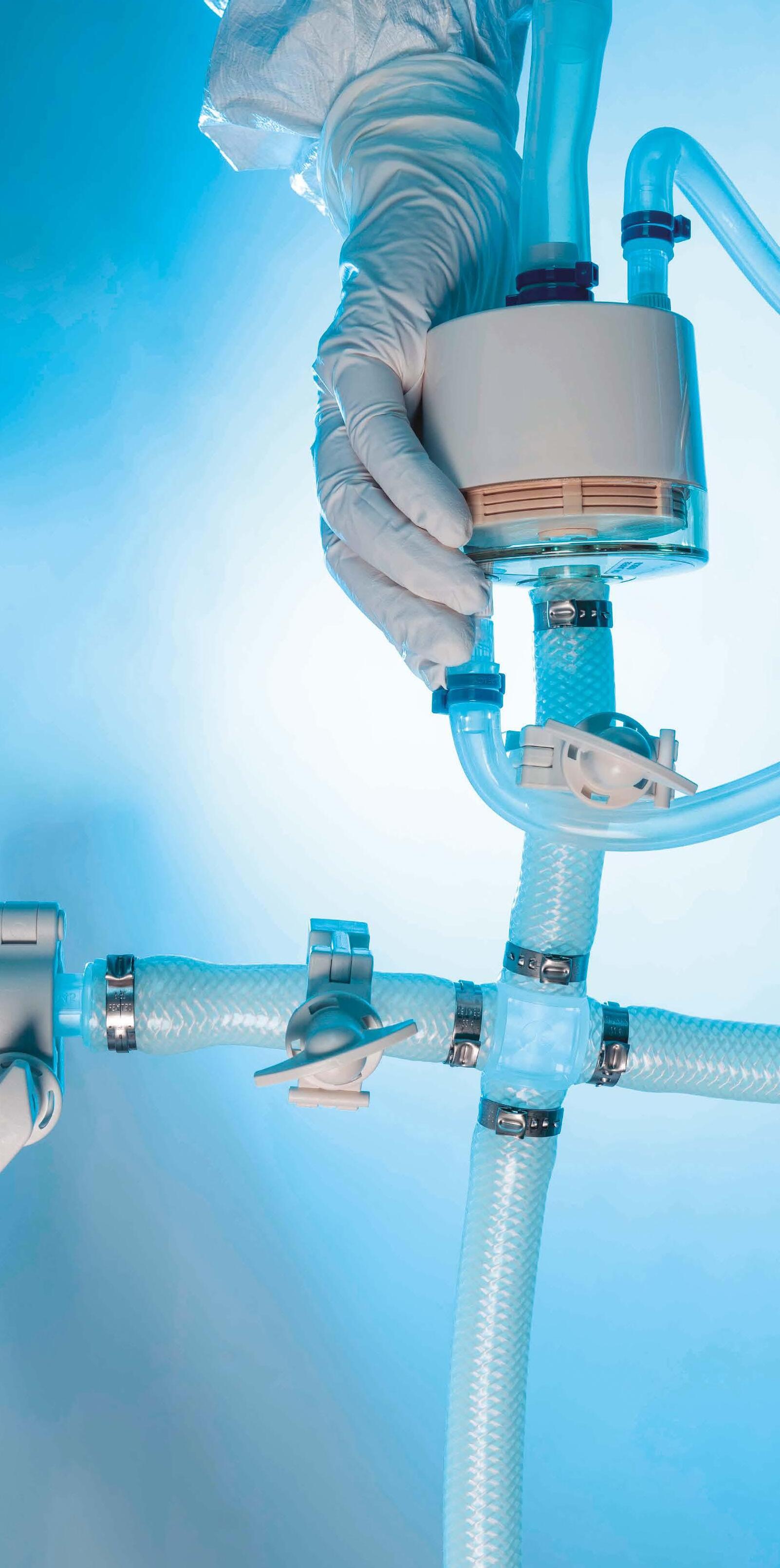
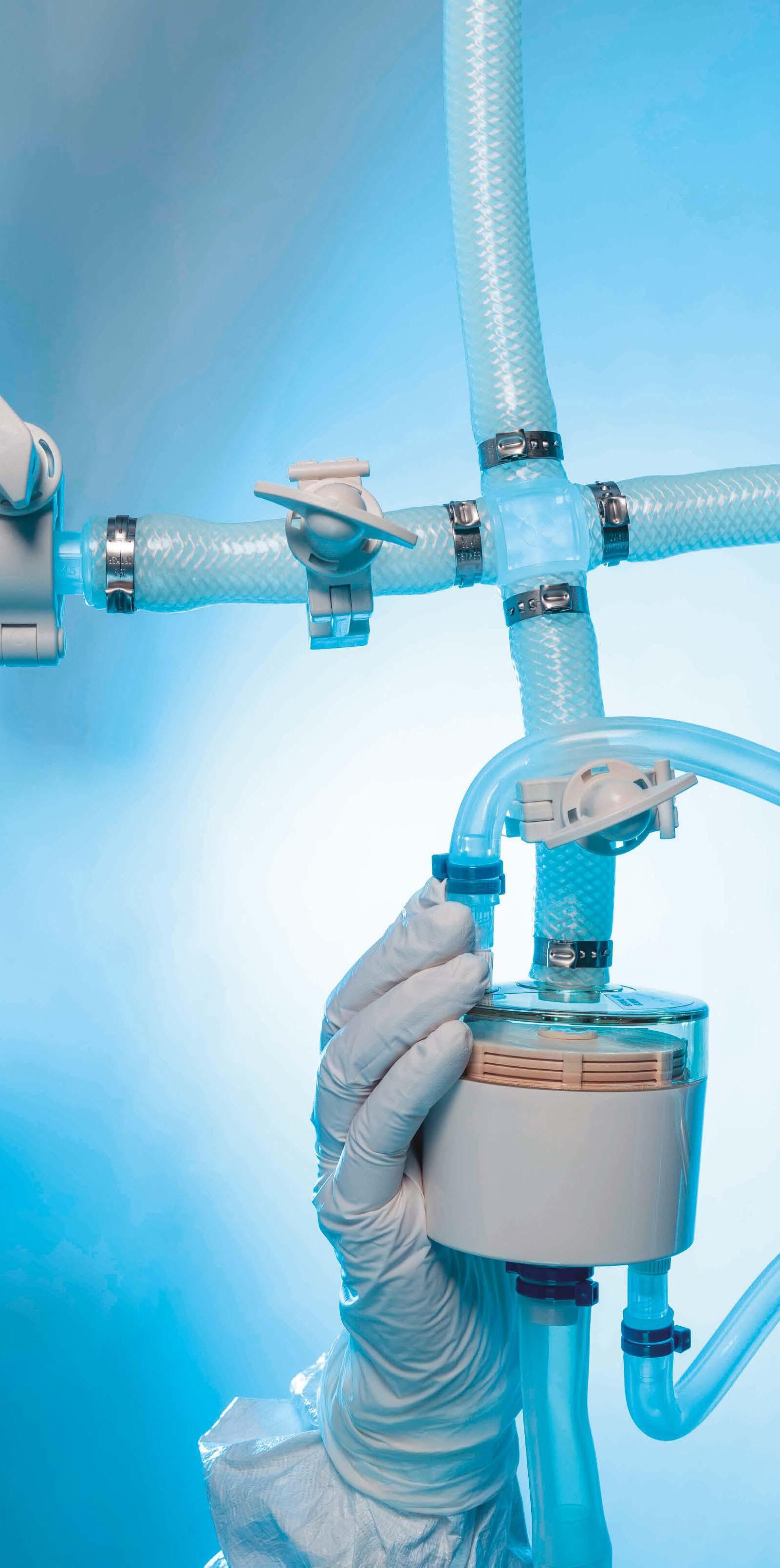
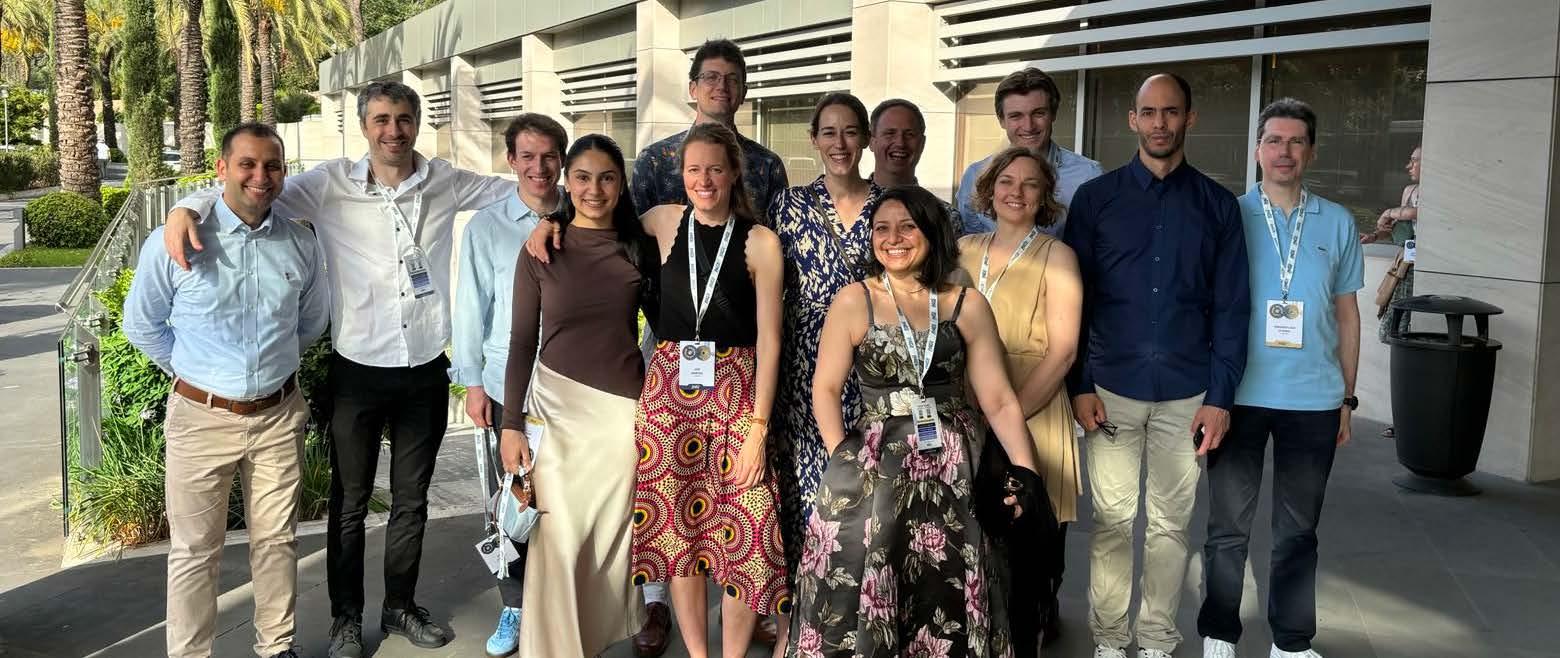
Farmacokinetische-farmacodynamische (PKPD) analyse speelt een belangrijke rol bij het ontwikkelen en optimaliseren van nieuwe medicijnen. Het is een vakgebied dat zich snel ontwikkelt. Jeroen Elassaiss-Schaap is de oprichter en CEO van PD-value, een bedrijf dat zich specialiseert in PK-PD. Hij is het meest enthousiast over translationele farmacometrie. ‘Door het implementeren van slimme datamodellen en het optimaliseren van studies verbeteren we op snelle, efficiënte wijze het onderzoek naar nieuwe geneesmiddelen.’
Wat is translationele farmacometrie? Binnen dit vakgebied worden met inzichten en PKPD-modellen uit experimentele resultaten, de uitkomsten van nieuwe studies voorspeld. Het doel is om de effectiviteit en veiligheid van geneesmiddelen te optimaliseren. Bijvoorbeeld door doseringen en behandelingsregimes te kiezen op basis van al bekende patiëntgegevens. Daarbij houdt PK zich vooral bezig met de reis van het geneesmiddel door het lichaam (absorptie, distributie, metabolisme, uitscheiding). PD richt zich op de biochemische en fysiologische effecten van de stoffen op het lichaam (werkingsmechanisme, dosis-respons, therapeutisch venster). ’PD-value levert diensten en oplossingen op het gebied van farmacologische data-analyse en onderzoeksstrategieën. Slimme datatechnologieën en modelontwikkeling zetten wetenschappelijke kennis om in praktische, klantgerichte oplossingen. ’
PK-PD versnelde de ontwikkeling van pembrolizumab
Jeroen is al sinds 2005 betrokken bij het PK-PD vakgebied. In eerste instantie als PK-PD Scientist bij Organon, later bij Merck waar hij ruim 4 jaar werkte als Senior Principal Scientist (Director), voordat hij in 2014 PD-value oprichtte.
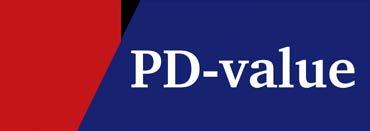
Jeroen heeft uitgebreid gepubliceerd (NEJM, Lancet enz.). Hij is uitvinder van 3 patenten.
Jeroen was onder meer betrokken bij de ontwikkeling van pembrolizumab (Keytruda). ‘Pembrolizumab is momenteel wereldwijd het best verkopende medicijn. Ik zat - met wat onderbrekingen - in het pembrolizumab team, van de eerste studie in dieren tot de eerste filing. Met PK-PD wisten we de medicijnontwikkeling te versnellen. Bijvoorbeeld door het gebruik van translationele mechanismen gebaseerd op PK-PD of QSP modeling.’
Jeroen heeft het belang van PK-PD het afgelopen decennium sterk zien toenemen. ‘De PK-PD aanpak wordt meer en meer verwacht door de autoriteiten, de FDA en EMA. Ook zijn er meer richtlijnen gekomen die een duidelijk raamwerk verstrekken. We dragen vooral veel bij op het vroege, translationele aspect van geneesmiddelenontwikkeling. Bijvoorbeeld het moment dat men van gezonde vrijwilligers naar patiënten gaat, of vanuit dierproeven naar mensen. Of voorbereiding fase 1 tot de afronding fase 2. Onze modellen kan je in principe op ieder soort medicatie gebruiken van small molecules tot antilichamen. Door onze computermodellen kunnen we voorspellen hoe het medicijn zich gaat gedragen in een volgende fase.’
Knooppunt
Jeroen is trots op zijn team dat bestaat uit 15 professionals. ‘Onze medewerkers werken op het knooppunt van biologie, fysiologie, farmacologie, wis- en natuurkunde. Ze moeten kennis hebben van al die vakgebieden en ook nog kunnen omgaan met tijdsdruk omdat we vaak op het kritische pad werken. Daarom ben ik trots op ons sterke team en fijne, platte werksfeer. Wat daar zeker aan bijdraagt, is het feit dat we ook fysiek bij elkaar zitten op ons kantoor in Utrecht.’
Jeroen heeft de afgelopen jaren zowel zijn onderneming als het vakgebied sterk zien groeien. ‘Maar ook inhoudelijk is er veel veranderd, zo ontwikkelden we onder andere de nieuwe geavanceerde methodiek IMPRES-M, en gaan we binnenkort live met onze bibliotheek van kant-enklare systeemmodellen. Het PK-PD uitgangspunt en onze passie blijven echter de basis van ons werk: we vinden het geweldig om de waarde van data te vergroten!’
Ontdek hoe PD-value uw R&D versnelt. Bezoek pd-value.com of stuur een mail naar jeroen@pd-value.com voor een vrijblijvend gesprek.
Is your program advancing in R&D?
Together we build an optimal strategy to achieve your goals, balancing cost, speed and risk, using the tools that pharmacology has to offer in drug discovery and early development. Animal data can be brought forward by modeling approaches to improve your early clinical program. Or the reverse, a known clinical program can be leveraged in the design of animal experiments. Creative trial designs may help you gain speed, or more traditional approaches may reduce risk. By asking the right questions and bridging expertise, strategic leaps can be made in virtually any phase between hitto-lead and filing. Depending on your needs, services can be provided on consultancy basis, or interim, as an integral part of your team. You can build on broad experience in translational medicine and deep technical expertise in modeling. With over 20 years of industry experience in ClinPharm and PKPD, you will find a partner who understands your needs and alleviates the burden on model development. We step in and provide fresh energy to a team.


By Amber Kerkhofs & Peter Thijssen
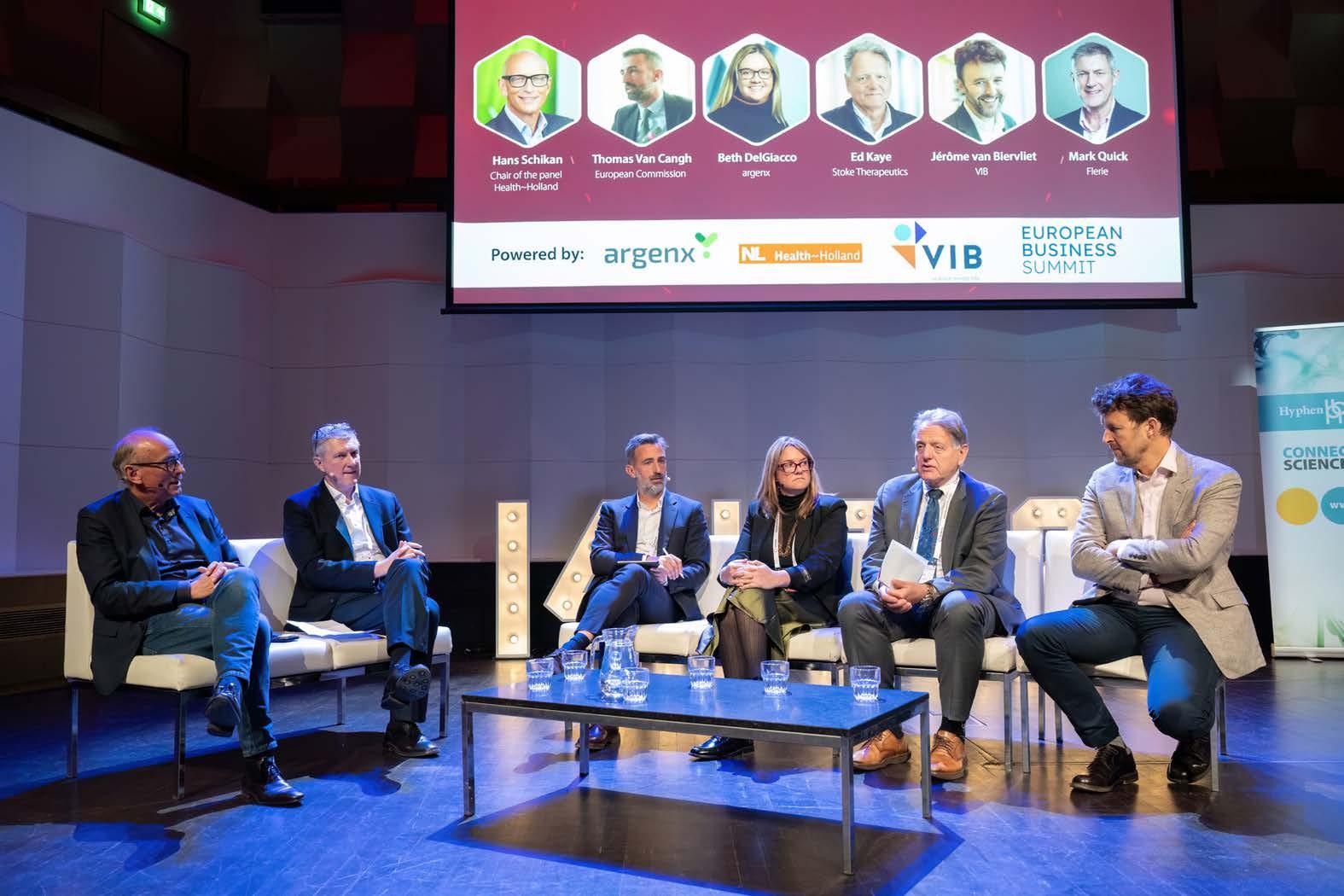
The biotech sector in Europe is at a tipping point. With the announcement of the EU Biotech Act, European Commission President Ursula von der Leyen has made a bold statement: Europe must, and will, capitalize on its biotech potential. But how? This question was central to a lively panel discussion at Innovation for Health on 3 April, where policymakers, investors, and entrepreneurs questioned and challenged each other openly.
The panel, led by Hans Schikan from Health~Holland, featured representatives from the European Commission, established biotech companies such as argenx and Stoke Therapeutics, the Flemish Biotech Institute as well as a biotech investor with experience in both the US and Europe. The conversation was organised as a follow-up from an earlier conversation at the European Health Summit in December 2024. The common thread: Europe has strong science, but it has historically lagged in capitalizing that knowledge into marketable products. How can we build a biotech ecosystem that competes globally?
From scientific strengths to global biotech companies
According to Jerome Van Biervliet (VIB), science has never been the problem: “We have top scientists in the Benelux and across the EU. But crossing the bridge from academic concepts to investable companies remains difficult.
In Europe, I feel we need to build more investable opportunities, nurture ambitious entrepreneurs, and boost venture capital markets to invest.”
Beth Del Giacco (argenx) agrees: “Europe is not short of talent, in particular when it comes to science, and we have strong partnerships with leading researchers and universities as part of our Immunology Innovation Platform. We also benefited from funding in Europe, in particular European investors and through our first IPO on EURONEXT. However, to reach our ambition to build a global immunology company, we needed significant funding. US investors understood the opportunity and were willing to support us.
To give you an idea of the scale; we raised over five
billion dollars since our inception in 2008 to both build our pipeline and build our organisation”. This difference in risk appetite and in investment capacity was a recurring theme.
Ed Kaye (Stoke Therapeutics): “True biotech investors know that nine out of ten companies fail. But the tenth one pays it all back. You need to be critical: does the science make sense? What is the unmet need? Is it feasible? Are the right people on board? If the answer to all of these questions is ‘yes’, we should get all in”.
Another opportunity to accelerate innovation lies in the European regulatory landscape. Mark Quick (Flerie) explained the direct effect on investment decisions: “The US is the largest pharmaceutical market and many trials are and will be carried out there to gain access to that market. That weighs in on our choices.” Van Biervliet took another perspective on this: “Our healthcare system is the best in the world. I would rather get cancer in Europe than in the US. However, innovative entrepreneurs are prioritizing the US massively over the EU. We should really reinvent our regulatory system to maintain a competitive edge. For example, panels to evaluate innovative treatments such as gene therapies could be constituted with experts of different member states. Reimbursement for novel treatments for high unmet needs developed in the EU could be pre-financed from an EU fund ahead of member state approval across areas with similar willingness to pay. Regulatory reform can therefore be a major driver for the EU’s competitiveness agenda.” The European Commission sees
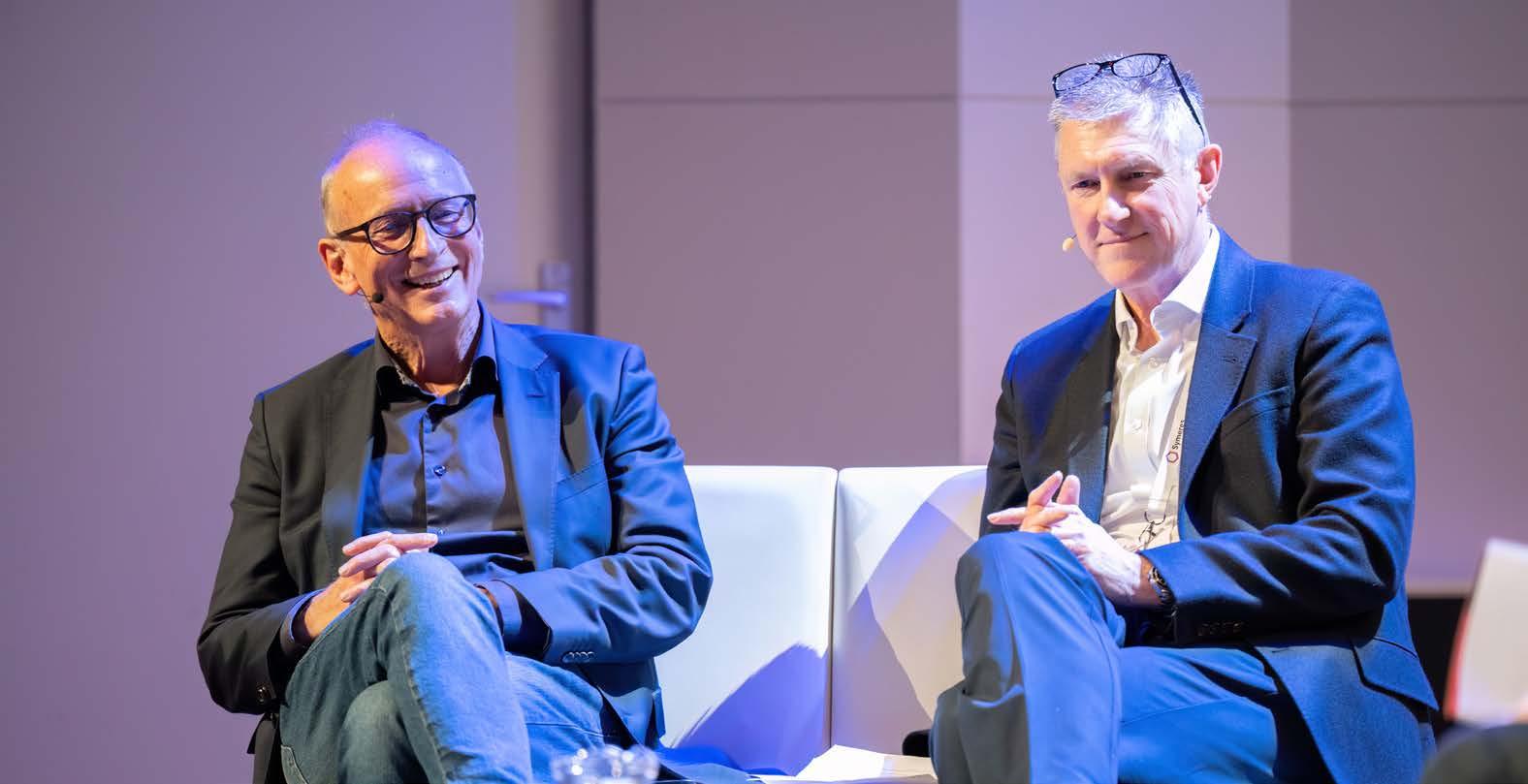
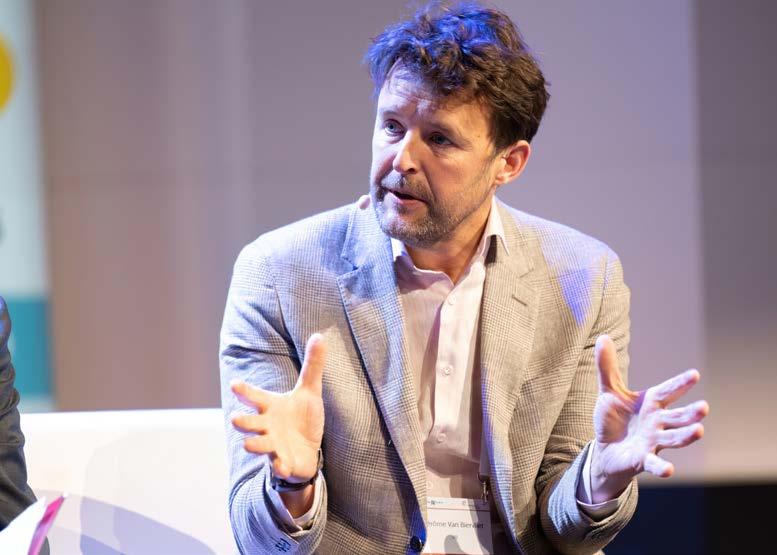
opportunities, stated Thomas Van Cangh (European Commission): “We have instruments like the European Health Data Space Act and joint HTA assessments. Let’s make use of them, test them, and learn from them.”
The EU Biotech Act: how can it help Europe to innovate?
The upcoming EU Biotech Act – soon under public consultations - aims to anchor biotech as a strategic sector in Europe. Van Cangh: “We are now having conversations with key players about what the sector needs. What we’re hearing in the field is a better recipe based on five key ingredients: need for speed in market authorization, improving access to capital, investing in STEM skills as well as business skills for scientists, using the economy of scale in Europe, and stimulating AI and data sharing.” The best recipe comes from collective action, Van Cangh stressed: “We don’t want a rule-
free system. But without a proper framework, there is no market. Let’s do it right together.”
How do we build momentum?
According to the panel, it’s time to make fundamental and daring choices:
• Dare to invest, even in early-stage biotech. This involves having more private funds (European and non-European), for instance by setting up publicprivate funds that share risks and attract capital towards young promising biotech. This also requires a European Tech Stock Exchange, which will allow companies to tap into more funds as they scale-up.
• Simplify existing regulation and consider piloting new regulatory pathways, with the goal to accelerate clinical development, as well as regulatory approvals.
• Enhance European collaboration, in particular in connecting existing biotech ecosystems across Europe to accelerate the flow of research, capital, ideas and innovation.
• Make biotech visible and tangible for both the public and policymakers, stressing the importance of new innovations for patients and society as a whole.
Let’s act on biotech
Europe has strong foundations: excellent science, a growing number of start-ups, and political attention. But that’s not enough. If we want to build a strong ecosystem, we need to make choices now. As Beth Del Giacco put it: “The foundation is
strong science. That exists here. What we need is a regulatory and policy framework that keeps pace with the science, that can accelerate innovation into a reality for patients and healthcare systems. Especially in areas of high needs” Jerome van Biervliet adds: “We need a coalition of the willing across the EU and mobilize both private and public
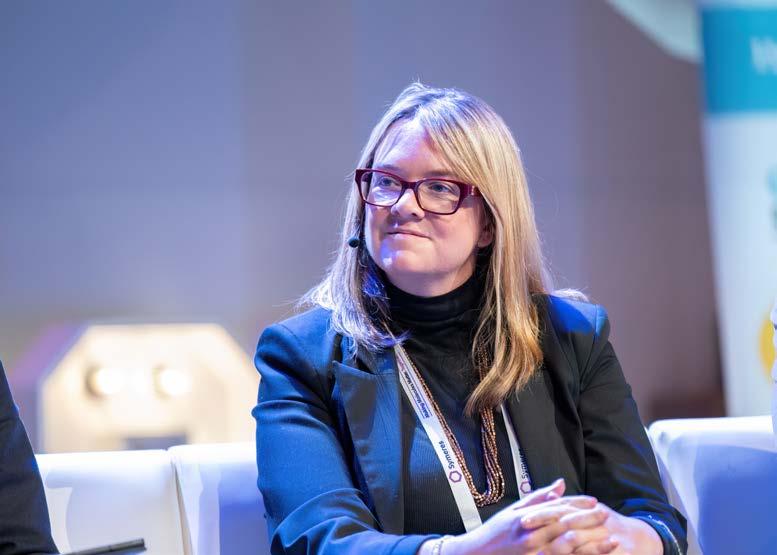
funds to enable more venture capital in Europe”. The EU Biotech Act can strengthen collective action and incentivize investments. But it must be accompanied by a shared vision for European biotech. The act can then establish a critical mass of biotech success stories across Europe. Van Cangh expressed this ambition clearly: “We establish KPIs when defining new policies. Wouldn’t it be great to have five argenx’s in Europe?”
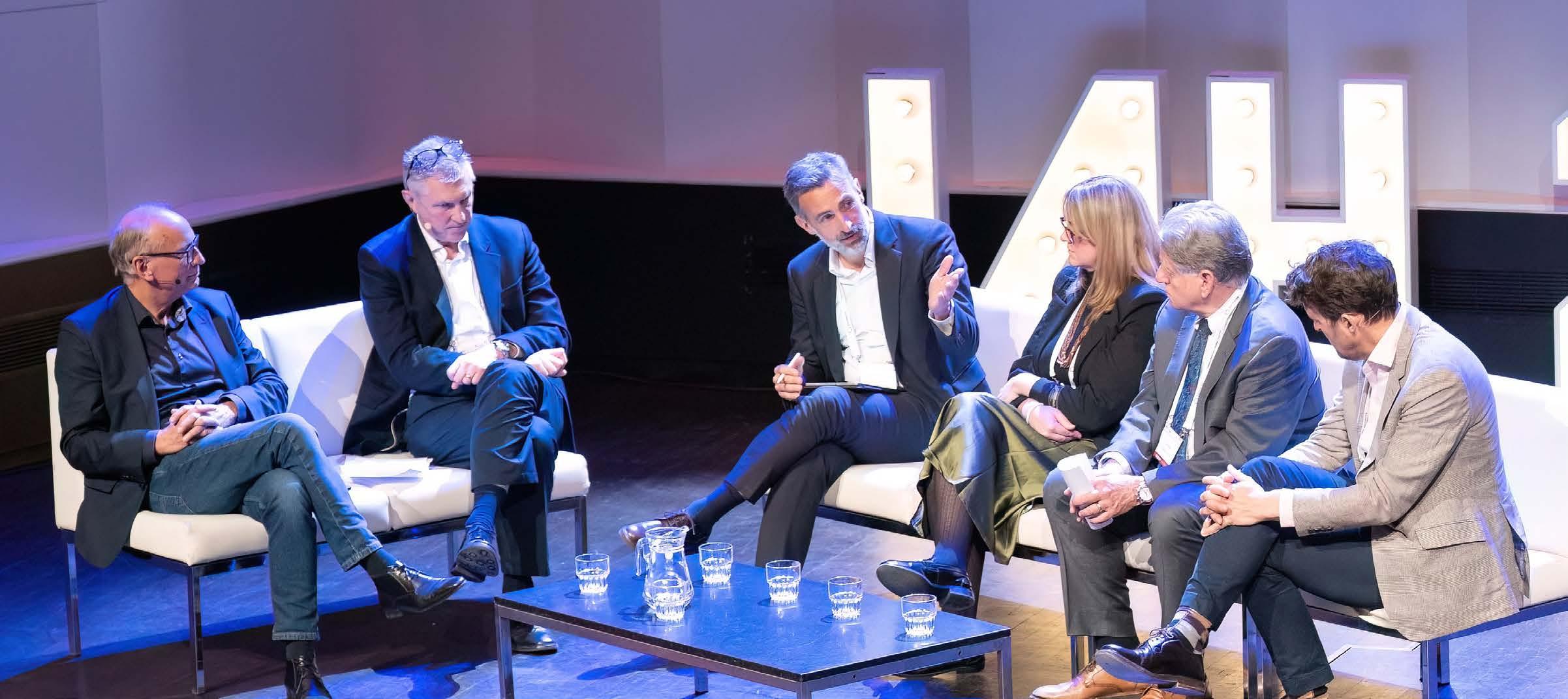
Cleanroom Combination Group
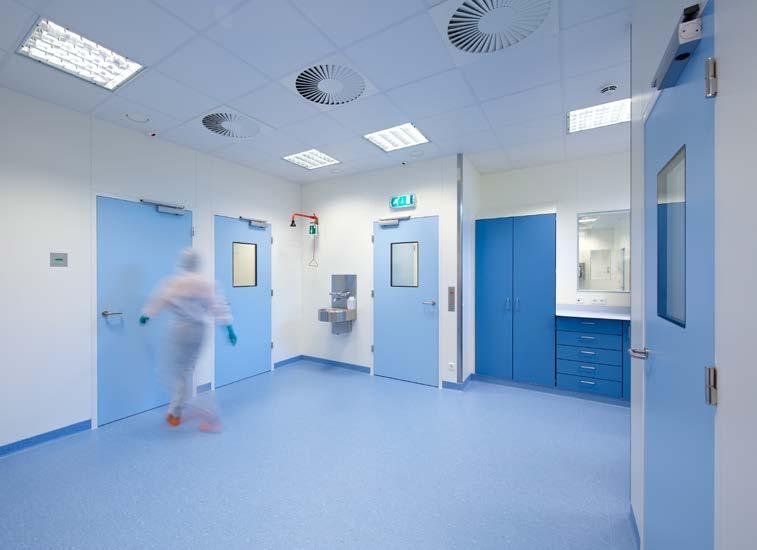
Uniek. Dat is iedere cleanroom. Van de hoogwaardige polio research (BSL3 en GMP compliant) faciliteit van Bilthoven Biologicals of de flexibele (box-in-box) GMP cleanrooms van Halix in Leiden: dankzij de decennialange kennis en expertise van Cleanroom Combination Group is geen opdracht te complex, ‘Cleanrooms die voor de klant belangrijke extra’s bieden en daarmee beter functioneren, dat is onze missie en passie.’ Manager Sales Marco de Bruijn en Manager S&O (Service & Onderhoud) Oscar Wyns aan het woord.
Cleanroom Combination Group (CCG) uit Bergeijk bouwt en onderhoudt sinds decennia een breed scala aan cleanrooms. Van operatiekamers, bereidingsapotheken, centrale sterilisatieafdelingen en BSL Labs in de zorg, tot schone ruimte voor hightech organisaties. Marco is trots op de prestigieuze opdracht die CCG momenteel uitvoert: ‘In samenwerking met Kuijpers uit Helmond bouwen we 4 cleanrooms in de Pilot Production Facility van het Smart BioMaterials Consortium (SBMC) op de High Tech Campus Eindhoven. Een geavanceerde cleanroom omgeving die innovatie in de medische wereld zal stimuleren, want SBMC gaat ervoor zorgen dat het traject van patent naar patiënt sneller verloopt. Dat is goed voor de patiënt én goed voor startups. De Pilot Production Facility biedt ondernemers en onderzoekers toegang tot GMP en ISO-grade cleanrooms, ontworpen voor biomedische pilot productie. De productiefaciliteit van SBMC wordt gevestigd in gebouw HTC 11 en beschikt straks over vier GMP cleanrooms met een totale oppervlakte van 400 vierkante meter, een laboratorium voor kwaliteitscontrole, kantoor- en magazijnruimtes. Naast de
pilotproductiefaciliteit, die naar verwachting dit jaar wordt geopend, beschikt SBMC ook over een ontwikkellaboratorium voor biomaterialen op de TU/e campus.’
Luisteren
Ieder project, ook dat van SBMC, begint met luisteren naar de klant. ’ Klinkt simpel‘, lacht Marco. ‘Maar dat is het niet. Probeer allereerst maar eens een goede impressie te krijgen van je opdrachtgever. Waar zijn ze mee bezig? Waar liggen de prioriteiten?
Wat zijn de wensen en eisen? Ieder project is maatwerk, uniek en klant specifiek’, vertelt de gedreven Marco. ‘Wat is de gebouwopzet en bouwmethodiek? Hoe worden installaties ontsloten en hoe wordt de faciliteit straks efficiënt onderhouden en beheerd? Wat past het beste bij het productieproces en het product (GMP, ISO outgassing materialen enz.)? Hoe moet worden aangesloten bij het gewenste onderhoudsproces en is in- en uithuizen van equipment goed mogelijk? Enzovoorts. Samenvattend: Een goede voorbereiding is het halve werk. En een efficiënte projectuitvoering is cruciaal. Daarom werken we graag met partners die we al jaren kennen. Dan weet je wat je aan elkaar hebt.’
Fit for Purpose
Naast vaste partners heeft CCG nog een ijzersterke troef op een heel ander segment: ze werken graag met prefab-elementen. Deze worden in een gecontroleerde omgeving geproduceerd en vervolgens naar de bouwplaats gebracht. Hierdoor kan de realisatie efficiënter plaatsvinden en is de bouwtijd aanzienlijk korter.
Een belangrijke CCG slogan is Fit for Purpose. Duurzaamheid en eenvoudige aanpasbaarheid spelen daarin een belangrijke rol. ‘Ontwikkelingen gaan snel’, weet Marco. ‘Een cleanroom moet niet alleen voldoen aan de eisen van vandaag, maar ook voorbereid zijn op de toekomst. Desgewenst moet het snel kunnen worden aangepast aan nieuwe processen of technologieën. Van belang is bijvoorbeeld hergebruik van duurzame materialen. Maar we gaan verder dan dat. Zo denken we mee met de klant op het gebied van energiezuinige oplossingen. Energiebesparing tijdens gebruik,
is ook een kenmerk van een goed ontworpen cleanroom. Denk bijvoorbeeld aan het aanpassen van luchtwisselingen aan het productieproces. Dat zijn voorbeelden van de extra’s die wij bieden.’
Service en Onderhoud
Even belangrijk als de realisatie van een cleanroom, is de service en het onderhoud ervan! Een aspect dat soms over het hoofd wordt gezien, maar van cruciaal belang is voor een optimaal functionerende cleanroom(productie omgeving). ‘Veel van onze klanten komen terug voor verbouwingen of met onderhoudsvraagstukken. En niet voor niets. Want we onderscheiden ons door een zeer toegewijde afdeling waarin superervaren mensen werken. Onze medewerkers zijn gewend om in gecontroleerde omgevingen te werken. Ze zijn bekend met gedragsregels en omkleedprocedures,’ stelt Oscar, Manager Service en Onderhoud. ‘Een ander groot voordeel is ons transparante rapportage systeem, de klant ziet snel en duidelijk wat er mis is en wat hersteld kan worden. We maken een uitgebreid verslag met foto’s van voor en na. Zo zorgen we voor snelle controles en updates van elke faciliteit, met minimale onderbreking van het productieproces zodat de faciliteit aan de strenge eisen voor geclassificeerde ruimtes blijft voldoen.’
Marco en Oscar: ‘Door die dagelijkse, uitdagende en unieke puzzel aan te gaan, dragen we uiteindelijk niet alleen bij aan een optimaal duurzame en volledig naar wens gerealiseerde en onderhouden cleanroom, maar stimuleren we ook innovaties in de zorg. We zijn trots op dat extra cachet van ons werk.’
Uw eigen (maatwerk) cleanroom laten bouwen of onderhouden? Kijk op: Cleanroom
Combination Group: Room for Perfection of neem contact op via +31(0)497 – 55 65 65
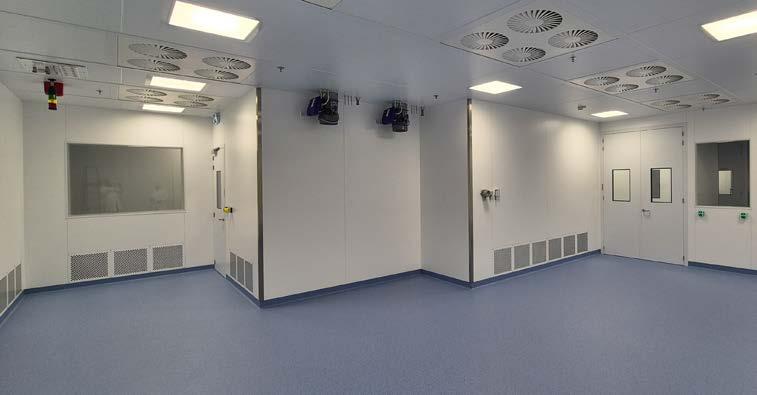
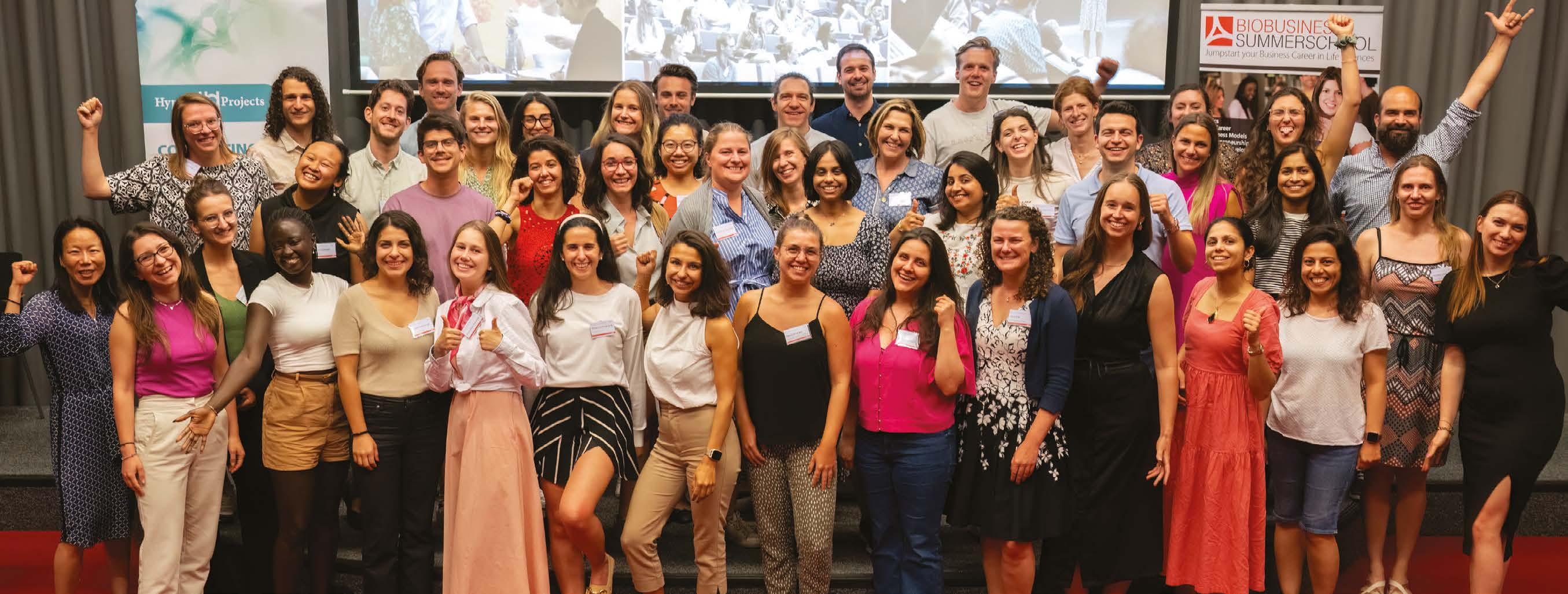












8-9 October 2025
CORPUS Congress Centre Leiden
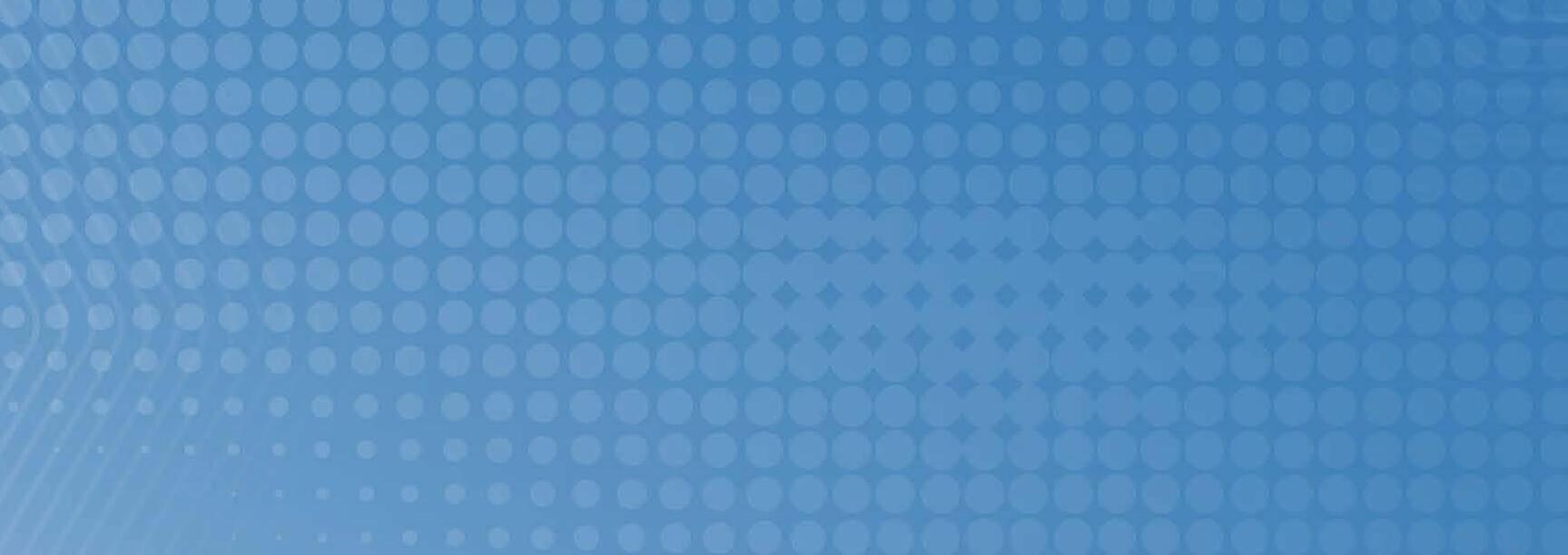
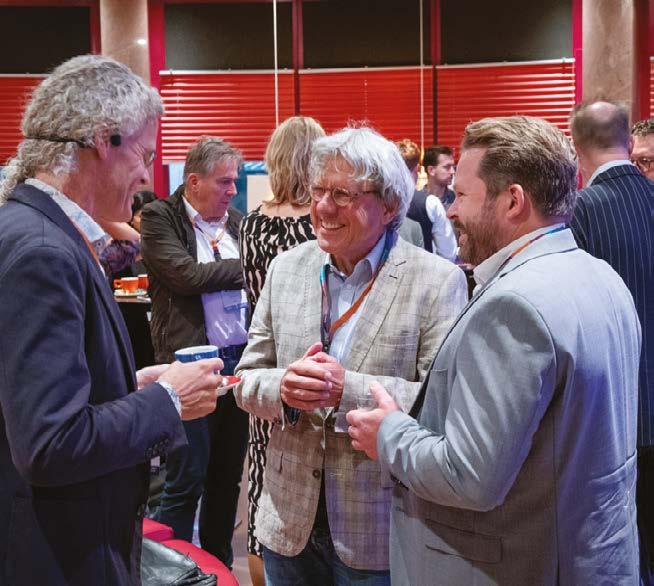
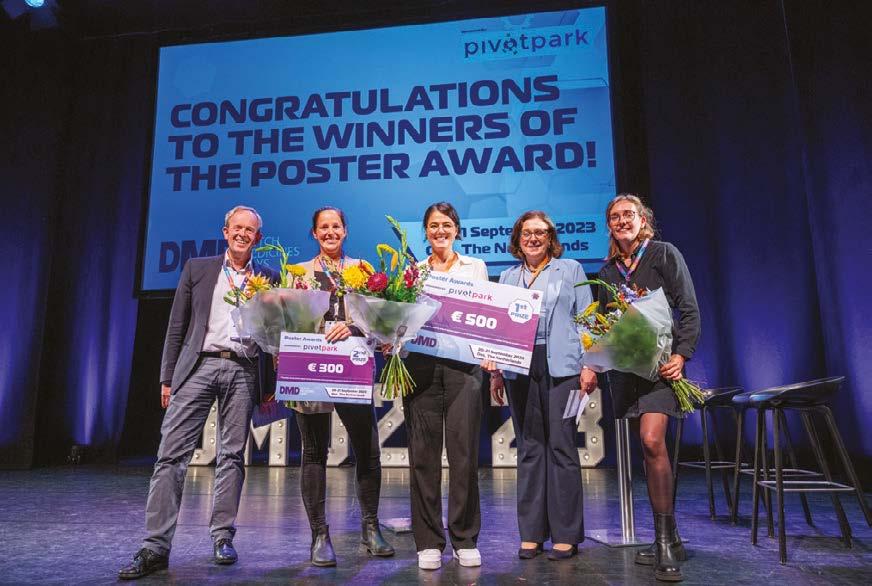
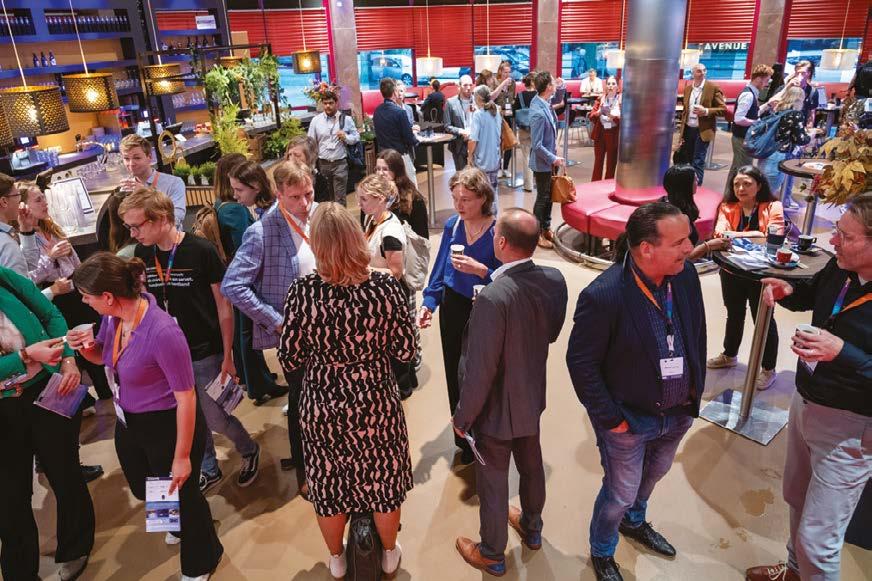
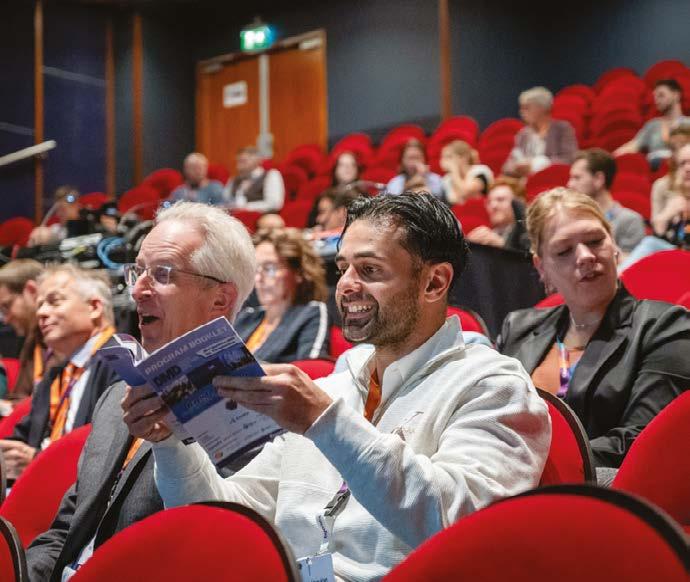
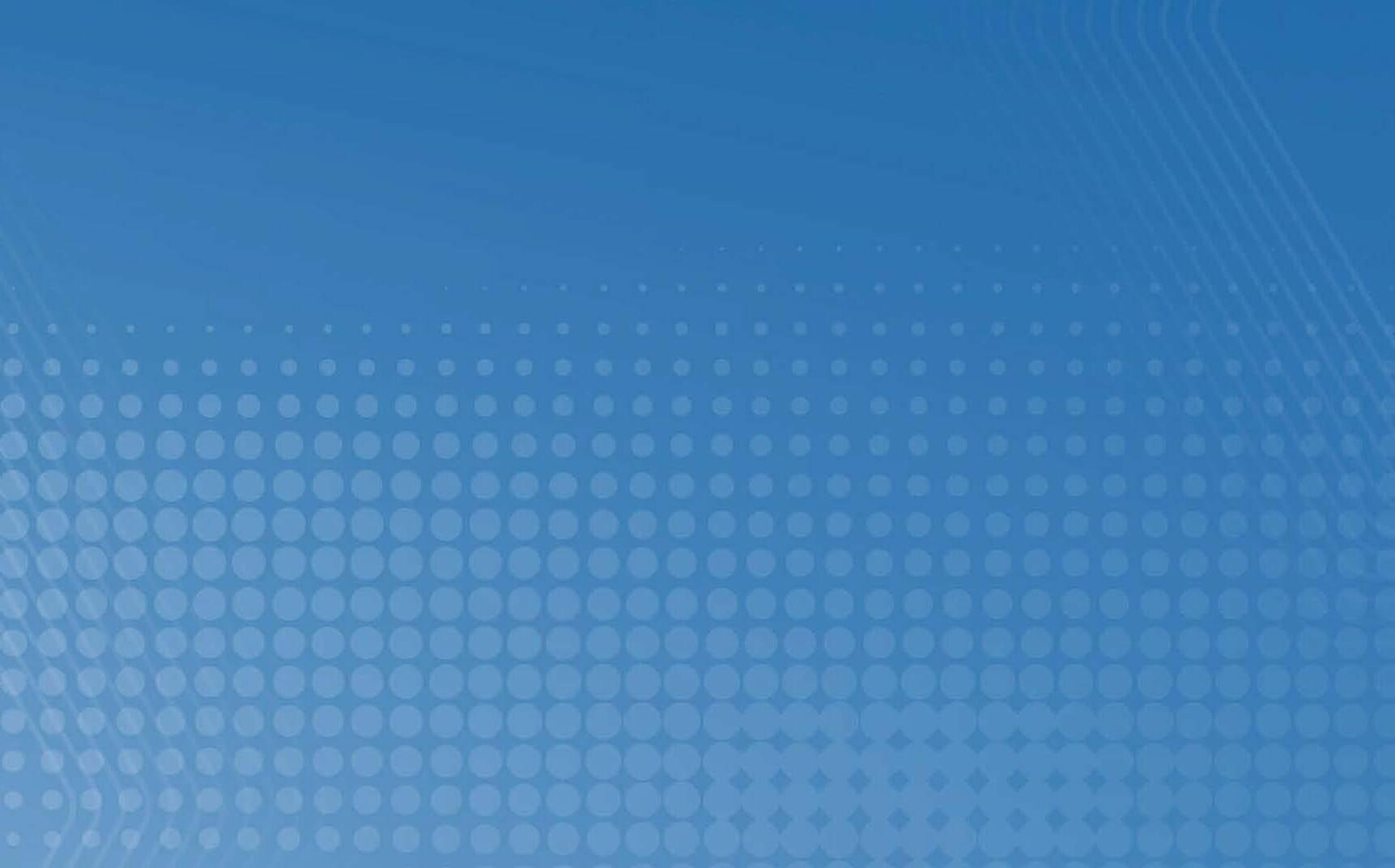
Dutch Medicines Days 2025 (DMD2025) is the premier conference in the Netherlands for professionals involved in drug discovery, development, and use. The event brings together researchers, industry experts, policymakers, and healthcare professionals to exchange knowledge, present new findings, and foster collaboration across the pharmaceutical sciences. This year’s edition is coorganized by FIGON and the British Pharmacological Society (BPS), offering a unique international perspective and an expanded network of expertise.
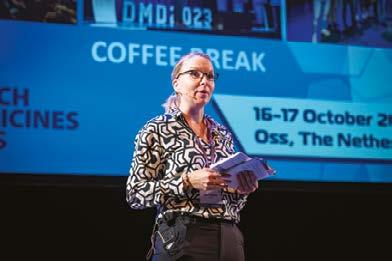
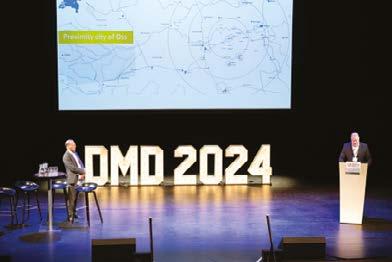
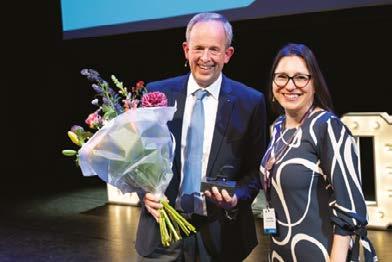
The Dutch Medicines Days 2025, taking place on October 8-9, offers a premier platform for organizations in drug development to gain visibility and connect with key stakeholders. Showcase your organization by securing an Industry Innovation Slot and join us as an exhibitor to engage directly with professionals from across the pharmaceutical sciences.
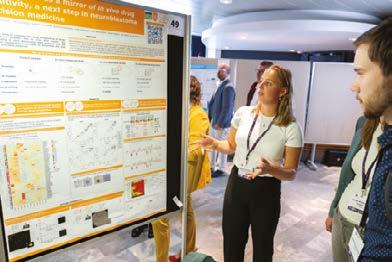
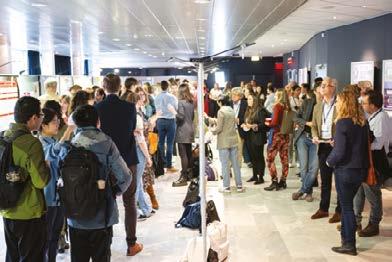
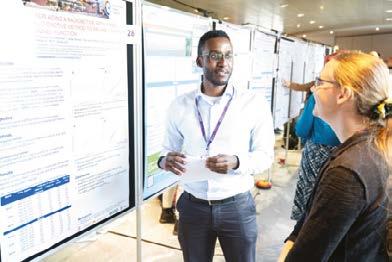
YOUR RESEARCH
Do you have innovative research in drug development? Present your findings at Dutch Medicines Days 2025 and share your insights with industry leaders! Choose to showcase your work with an oral presentation, poster, or both. We invite you to submit an abstract for consideration for the next edition of the Dutch Medicines Days on 8 - 9 October 2025
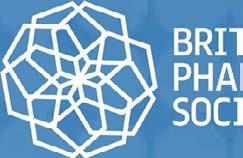
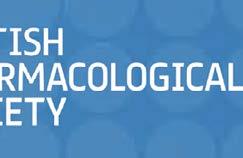
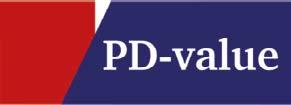
Pantarhei Bioscience en Pantarhei Oncology zijn Nederlandse biofarmaceutische bedrijven die unieke innovatieve behandelconcepten ontwikkelen op het gebied van “Women’s Health” (WH) en “Reproductive Endocrine Oncology” (REO). Opgericht in 2001 door de voormalig Directeur R&D WH van Organon, Herjan Coelingh Bennink, hebben beide bedrijven inmiddels wereldwijd meer dan 220 patenten ingediend. Anno 2024 richt Herjan Coelingh Bennink zijn focus volledig op het in 2019 opgerichte PEI (Pandora Endocrine Innovation) gespecialiseerd in Women’s Health.
Pantharei Bioscience gevolgd door Pantharei Oncology: het is allemaal begonnen met het oestrogeen Estetrol (E4) in 1965 ontdekt in Zweden door Egon Diczfalusy in het Karolinska Instituut. Het raakte in vergetelheid, maar werd herontdekt door endocrinoloog en gynaecoloog Prof. Herjan Coelingh Bennink (HCB). Hij richtte samen met een aantal investeerders in 2000 Pantarhei Bioscience op, o.a. voor de ontwikkeling van E4 voor orale anticonceptie (OC) en menopausale hormoon therapie (MHT) en vanaf 2014 ook voor borst- en prostaatkanker bij Pantarhei Oncology. Dat werd gevolgd door de oprichting van PEI (Pandora Endocrine Innovation) door HCB in 2019 dat zich richt op het ontwikkelen en patenteren van nieuwe hormonale behandelingen voor Women’’s Health (WH) en Reproductive Endocrine Oncology (REO).
Markttoelating Estetrol (E4) Estetrol is een natuurlijk oestrogeen dat door de menselijke foetus wordt geproduceerd tijdens de zwangerschap en in hoge concentraties voorkomt in het bloed van kind en moeder. ‘Zo’n hormoon dat alleen aanwezig is tijdens de zwangerschap zou een veilig hormoon moeten zijn,’ stelt HCB. ‘En dat hebben we de afgelopen 2 decennia aangetoond in klinische studies gericht op veiligheid, effectiviteit en dosering. De E4 die wordt gebruikt in de klinische studies is gesynthetiseerd uit plantaardige bronnen. Uit deze studies bleek dat E4 significant minder effect heeft op de leverfunctie en de bloedstolling dan andere oestrogenen en daarmee een lager risico geeft op
Portfolio PEI
1) Women’s Health Contraception, Menopausal Hormone Therapy, Infertility, Pregnancy
2) Endocrine treatment of COVID-19 See Research Letter European Urology (2021) and Paper in Heliyon (2022).
3) SUBOX (sublingual / buccal, thermostable, oxytocin)*
4) Reproductive Endocrine Oncology (REO)
trombose en cardiovasculaire problemen. In 2021 bereikte Estetrol (E4) in een anticonceptiepil het ‘primaire eindpunt’: toelating op de markt. ‘Canada was de eerste, EMA en FDA volgden. ‘We moesten er ruim 20 jaar op wachten, en het kostte extreem veel geduld en geld, maar wat een fantastisch resultaat,’ aldus Herjan.
Portfolio PEI
Pandora Endocrine Innovation is vernoemd naar de eerste menselijke vrouw in de Griekse mythologie die uit wraak haar doos van Pandora opende, maar waarin “Hope” achterbleef. Later kreeg Pandora van Hera, de vrouw van Zeus als gift “Curiosity”. Curiosity en Hope zijn de basis van PEI. Het logo van PEI verwijst naar de piramide van de innovatieve architect PEI bij het Louvre in Parijs. PEI heeft vier pijlers: “Women’s Health” (8 projecten), “Sublingual Oxytocin” (4 projecten),
Progesterone from ovulatory menstrual cycles is an important cause of breast cancer in Breast Cancer Research
De essentie van deze wetenschappelijke publicatie is: progesteron in normale menstruale cycles veroorzaakt borstkanker waar oestrogenen en androgenen borstkanker wel kunnen stimuleren, maar zelden of nooit veroorzaken. Synthetische progestageen speelt hierbij dezelfde rol als progesteron en moeten daarom in hormonale contraceptie en in menopausale hormoontherapie zoveel mogelijk worden vermeden.
“Endocrine Treatment of serious COVID-19” (1 project) en “Reproductive Endocrine Oncology” (5 projecten). PEI focust op projecten die geschikt zijn voor een Proof-of-Concept studie bij de mens met de nadruk op veiligheid. Momenteel hebben 11 van de 19 PEI projecten IP protectie en is PEI op zoek naar strategische en financiële partners voor de verdere ontwikkeling van de portfolio.’ Aldus CEO Herjan Coelingh Bennink, die vorig jaar op 81-jarige leeftijd stopte met management bij de Pantarhei bedrijven om zich helemaal te concentreren op de ontwikkelingen bij PEI.
Bijdrage HCB

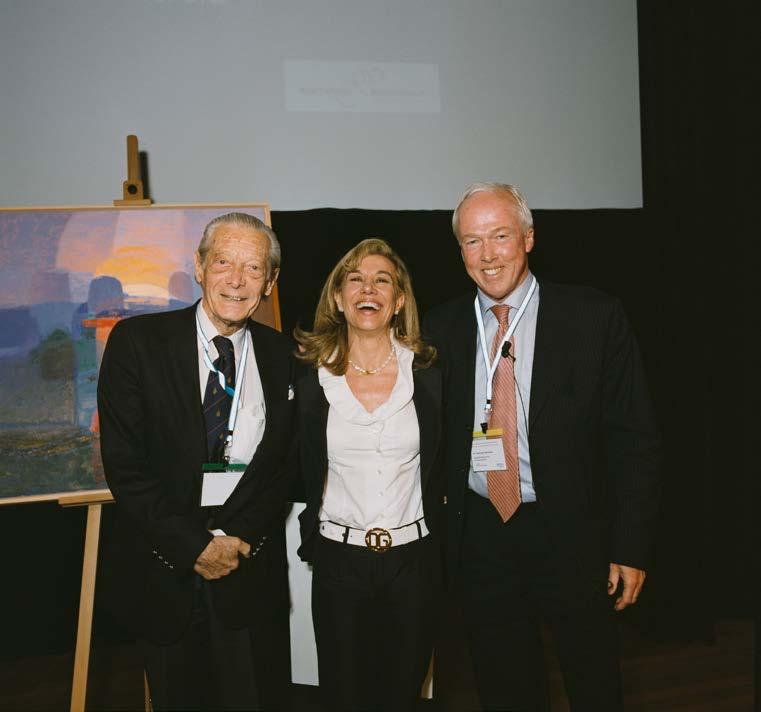
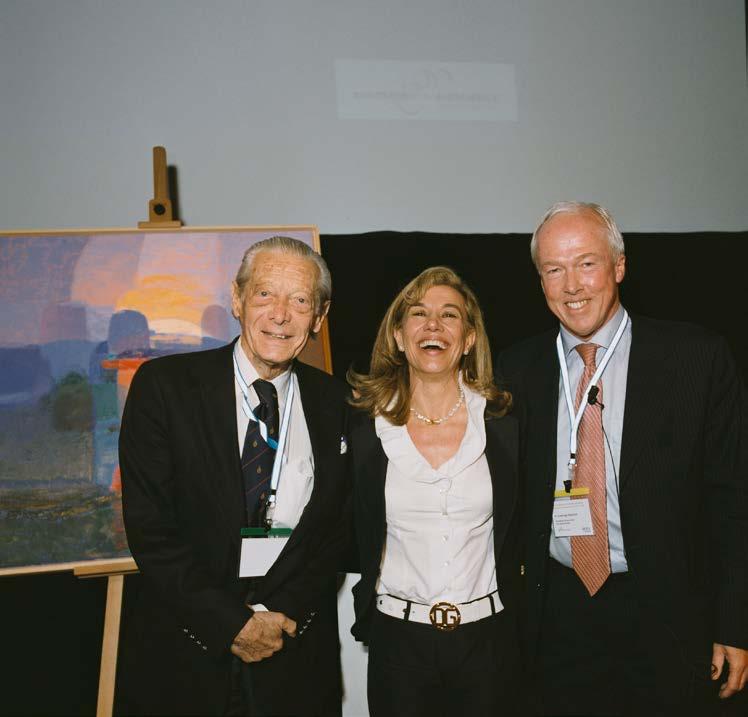
Veilig oestrogeen dat geschikt is als geneesmiddel voor vrouw (pil en borstkanker) en man (pil en prostaatkanker) en voor beiden bij ernstige Covid infecties, ‘besluit Herjan Coelingh Bennik. ‘Mijn persoonlijke belangrijkste bijdrage aan de kennis betreffende endocriene oncologie is verwoord in het artikel “Progesterone from ovulatory menstrual cycles is an important cause of breast cancer” in het gereputeerde tijdschrift Breast Cancer Research. De boodschap is luid en duidelijk: borstkanker wordt veroorzaakt door progesteron en niet door oestrogenen*. Deze importante bevinding zal hopelijk niet alleen leiden tot een ommekeer van het negatieve beeld van oestrogenen, maar zal ook de medische perceptie betreffende het ontstaan van borstkanker voorgoed veranderen.’
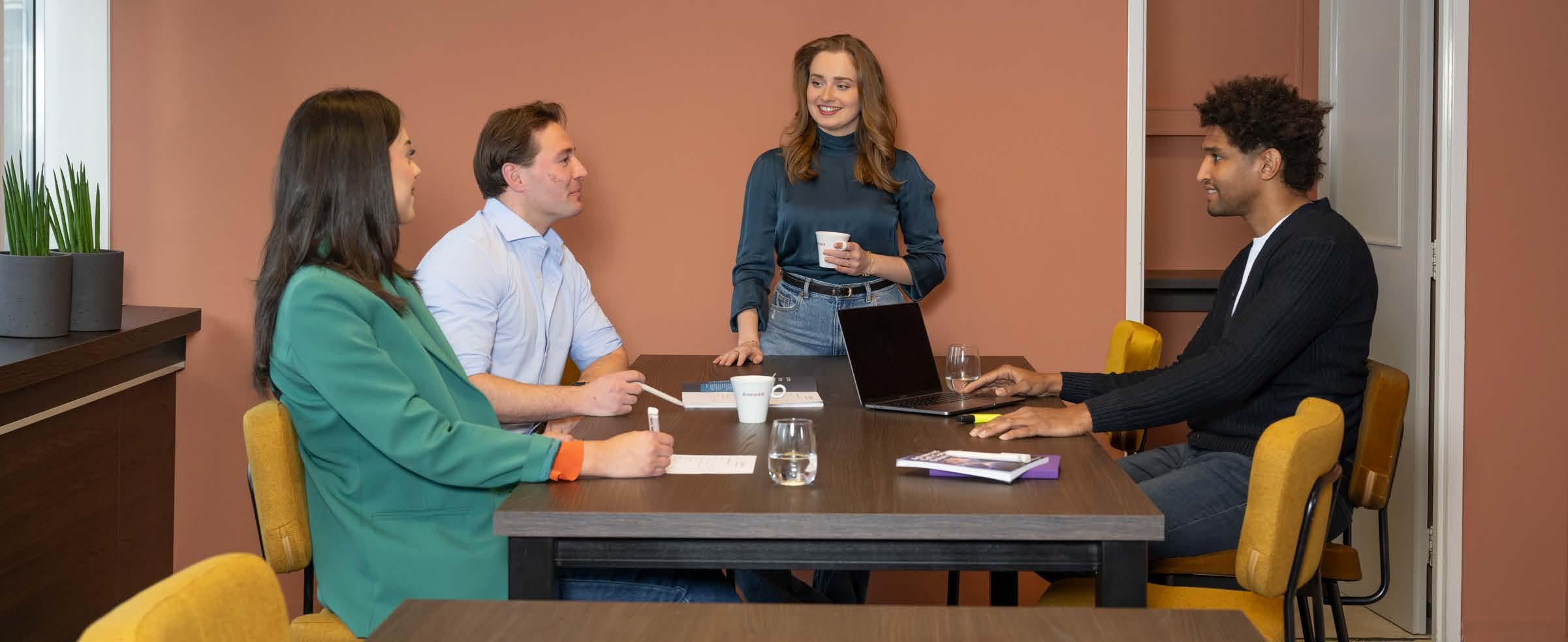
In het hart van het Nederlandse life sciences ecosysteem bevindt zich de Pivot Incubator: een plek van Pivot Park dat in Oss gevestigd is. Deze incubator is méér dan een verzamelplaats van startups: het is een professionele, inhoudelijk sterke omgeving waar jonge biofarmaceutische bedrijven kunnen groeien: van proof-of-concept tot volwaardige onderneming. De combinatie van hoogwaardige infrastructuur, toegang tot gedeelde laboratoriumfaciliteiten en een sterk ecosysteem van een bruisende Pivot Park Community als netwerk, maakt de Pivot Incubator tot een rijke voedingsbodem voor innovatie & ondernemerschap in de biofarmaceutische sector.
Turnkey faciliteiten voor een all-in prijs Bij ons maak je gebruik van je eigen bench, waar je direct aan de slag kunt. Een labmanager die je van harte welkom heet, en je op stoom helpt. Je kunt gebruik maken van de gedeelde faciliteiten zoals centrifuges, zuurkasten, waterbaden en meer. Voor meer gespecialiseerd werk kan gebruik worden gemaakt van een volledig uitgerust ML-1 celkweekruimte, een bacterieel lab en een microscopieruimte. Voor de opslag van monsters is er veilige opslag voorzien: je krijgt een eigen afsluitbare koelkast en vriezer, en je hebt toegang tot centrale -80°C vriezers en opslag van cellijnen in een cryobank. Alle essentiële labvoorzieningen zoals perslucht , stikstof, vacuüm, CO2 en

droogijs zijn aanwezig. Als startup zit je gevestigd met like-minded bedrijven zodat jullie elkaar ontmoeten, van elkaar kunnen leren en elkaar verder brengen.
Gepersonaliseerde support
De Pivot Incubator heeft een programma op maat, waarbij je direct toegang hebt tot het ecosysteem die jou verder kunnen brengen. Wij geloven dat op maat gemaakte, ervaring gebaseerde begeleiding en toegang tot expertise essentieel zijn voor het succes van startende bedrijven. Daarom optimaliseren wij ons bedrijfssteunprogramma continu, door in te spelen op jouw specifieke behoeften.
“One of Pivot Park’s incubator’s key assets is its turnkey laboratories and offices, allowing you to begin experiments immediately after signing the contract. With advanced facilities like a fully equipped cell culture room and microscopy lab, it is an ideal environment for accelerating your startup.’’
Tom Schirris, CEO and Found QTM BiosciencesDi
Onderdeel van een volwassen ecosysteem Verbind en leer van mede-ondernemers. De Pivot Incubator is letterlijk en figuurlijk ingebed op Pivot Park, dat zich sinds de oprichting in 2012 heeft ontwikkeld tot een toonaangevende campus voor farmaceutische R&D in Europa. Wat Pivot Park uniek maakt, is de exclusieve focus op geneesmiddelenontwikkeling. Bij Pivot Park maak je deel uit van een dynamische gemeenschap van meer dan 60 bedrijven in de farmaceutische industrie, die niet alleen ondersteuning biedt, maar ook potentiële toekomstige klanten en partners. Daarnaast zijn de lijntjes kort naar investeerders.
Onze netwerk- en community-events zijn ontworpen om een goed verbonden ecosysteem te bevorderen, waarbij startende bedrijven waardevolle kansen krijgen voor netwerken, samenwerking en versnelling van hun groei. Groei je snel? Onze locatie biedt volop mogelijkheden om op te schalen.
De Pivot Incubator vormt binnen dit ecosysteem de logische start voor nieuwe initiatieven: jonge bedrijven en onderzoekers met baanbrekende ideeën, maar nog zonder de capaciteit of middelen om een eigen infrastructuur op te bouwen.
Vraag vrijblijvend een meeting aan via www.pivotpark.com/incubator
RIBOPRO ontvangt Serie A-financiering voor verdere ontwikkeling mRNA-platform
RIBOPRO heeft een succesvolle Serie A-financieringsronde afgerond ter ondersteuning van de verdere ontwikkeling en opschaling van zijn innovatieve mRNA- en lipid nanoparticle (LNP)-technologieën. Sinds de oprichting in 2020 heeft RIBOPRO een sterke technologische portefeuille opgebouwd met meerdere gepatenteerde mRNA-ontwerpen en productieprocessen, waarmee het bedrijf hoogwaardige, functionele mRNA-producten levert aan klanten wereldwijd. De nieuwe investeringsronde stelt het bedrijf in staat zijn leidende positie in de mRNA-sector verder uit te bouwen.

Synaffix sluit miljardendeal met Boehringer Ingelheim
Synaffix, een dochteronderneming van het Zwitserse Lonza en gespecialiseerd in antibody-drug conjugate (ADC)technologieën, heeft een strategische samenwerkingsovereenkomst gesloten met Boehringer Ingelheim ter waarde van meer dan $1,3 miljard. Boehringer zal de gepatenteerde linker- en conjugatietechnologie van Synaffix toepassen voor de ontwikkeling van next-generation ADC’s, met als doel de gerichte behandeling van oncologische indicaties te verbeteren.
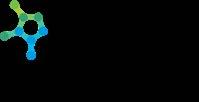
BioConnection uitgeroepen tot Europees bedrijf van het jaar in biofarmaceutische contractproductie
BioConnection is eind 2024 door Pharma Tech Outlook uitgeroepen tot “European Biopharmaceutical Contract Manufacturing Company of the Year 2024”. Deze erkenning onderstreept de toonaangevende positie van BioConnection in de markt voor contract manufacturing van steriele biofarmaceutische producten, mede dankzij hun state-of-the-art productie-infrastructuur en klantgerichte ontwikkelstrategieën.
Citryll haalt €85 miljoen op in Serie B-financieringsronde
Citryll, een biotechnologiebedrijf gericht op de ontwikkeling van innovatieve therapieën voor auto-immuunziekten en inflammatoire aandoeningen, heeft €85 miljoen aan kapitaal opgehaald in een Serie B-financieringsronde. De ronde werd mede mogelijk gemaakt door strategische investeerders waaronder Johnson & Johnson Innovation – JJDC en Novartis Venture Fund. De financiering zal worden ingezet om het klinische programma voor hun first-in-class NETosis-remmer verder te ontwikkelen, inclusief de voortzetting van klinische studies bij patiënten met reumatoïde artritis en hidradenitis suppurativa.

Strategische samenwerking ImmunoPrecise Antibodies en RIBOPRO
ImmunoPrecise Antibodies (IPA) en RIBOPRO zijn een strategische samenwerking aangegaan gericht op het versnellen en verbeteren van de ontwikkeling van nieuwe therapeutica. RIBOPRO is gespecialiseerd in geavanceerde technologieën voor intracellulaire toediening van therapeutische mRNA via lipid nanoparticle (LNP)-platformen. IPA brengt haar expertise in kunstmatige intelligentie (AI)-gestuurde ontdekking en ontwikkeling van therapeutische antilichamen in. De combinatie van AI-gebaseerde antilichaamontwikkeling en geavanceerde mRNA-delivery biedt mogelijkheden om immunotherapeutische responsen te optimaliseren en de time-to-clinic aanzienlijk te verkorten.

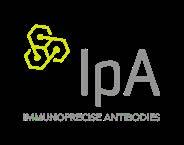
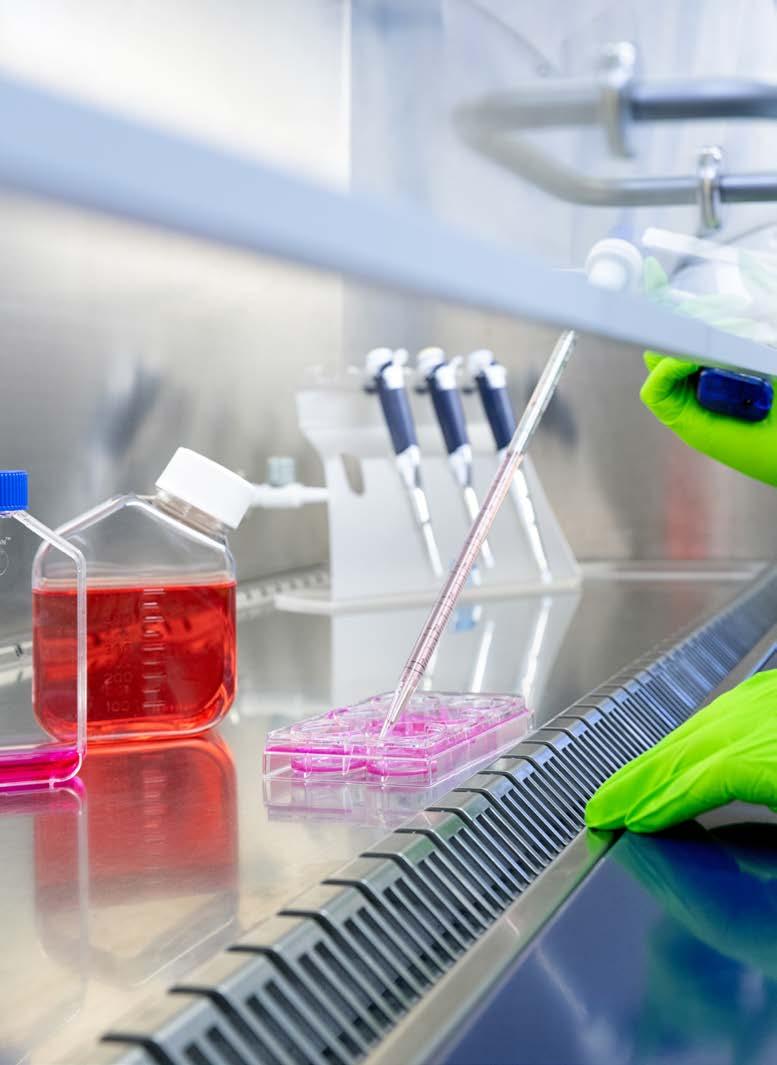
Designing drugs for the real world: A look beyond the clinical trial
What does a “successful” study drug truly mean? In the pharmaceutical world, a study drug may be clinically effective, yet if too expensive to manufacture, it risks being deemed non-viable. Often, drug development moves from one phase to the next without considering the long-term feasibility, including cost-effectiveness, scalability, and market access. Building future-proof strategies from the outset is key to ensuring sustainable success. Erik Gout, Director of Chemistry, Manufacturing, and Controls (CMC) and Azra Gholami, CMC Consultant at Venn Life Sciences (“Venn”) share their expertise in process optimisation and formulation development, with a focus on thinking beyond the development phase to ensure long-term success.
Venn’s consultancy has expertise in biologics and small molecules, each of which requires a distinct optimisation approach. For biologics, development is divided into upstream and downstream processes. The upstream process defines the cell line – typically prior to Phase 1 – which is rarely changed, as modifications may require a complete redesign of the downstream purification. In this article, we will focus on small molecules.
Optimisation and formulation development to ensure scalability
Phase 1 clinical development primarily focusses on evaluating the drug safety, using a basic or no formulation. The formulation of small molecules is typically not optimised and the synthesis route for the drug substance may still be under development. When moving from Phase 1 to Phase 2, the feasibility of the drug substance process and formulation will be assessed for use in future Phase 3 and commercial production. This stage focuses on optimising both the drug substance and drug product, keeping the final formulation and process in mind.
Erik highlights the importance of aligning development with long-term goals, advising clients to consider cost of goods and scalability
early on in development. “It’s not just about reaching the next phase,” he explains, “Early decisions should assess whether the formulation can scale effectively.” Key considerations include cost-efficient excipients, adaptable production processes that allow for Contract Development and Manufacturing Organisations (CDMOs) changes, and standardised methods to support a smooth transfer to commercial manufacturing.”
“For (bio)pharmaceutical clients using separate CDMOs for drug substance and drug product, Venn can manage both to ensure alignment”, says Erik, “We offer consultancy on decision-making, testing, process control, risk management, and logistics. While CDMOs have scientific expertise, Venn bridges knowledge gaps – like stability differences–by facilitating information exchange. We guide stability testing to ensure shelf life and help define critical manufacturing parameters through scalable process controls and risk management.”
Mitigating risks
“Our most important key services include process troubleshooting and risk management”, says Azra, “From the outset, we proactively identify and mitigate risks associated with the manufacturing process. Mitigating risks of unstable products can be achieved through process control and selecting the right packaging material. The choice of packaging – whether opting for cost-effective or more specialised materials – can significantly impact cost of goods during commercial production. Similarly, transport conditions, like storage at 5°C or lower versus room temperature, play a critical role. Storage at room temperature will generally be more cost-effective in the long run. Ultimately, the goal is to minimise unnecessary complexities while optimising for cost efficiency and quality.”
Perfect versus the real world
There is often a gap between what is technically possible and what is commercially viable. Long-term success depends on finding the right balance between innovation and feasibility. (Bio) pharmaceutical companies should take a strategic view from the start, focusing not just on short-term
goals but on commercial outcomes. Early informed decisions aligned with long-term objectives greatly improve the chances of sustainable success.
Venn provides expert guidance on process optimisation and formulation development, identifying potential obstacles in upcoming development phases. This includes evaluating transport, storage conditions, and associated costs – all with a clear focus on the commercial goal.
About Erik Gout and Azra Gholami
Erik Gout, Director of CMC at Venn, has 40 years of experience in the pharmaceutical industry. Erik worked as an analytical and pharmaceutical development scientist, CMC lead, and QA engineer. His CMC expertise spans drug development, technology transfers, GMP audits, and regulatory, making him a trusted and expert partner in due diligence and compliance. With a deep understanding of industry standards and best practices, Erik plays a crucial role at Venn to ensure the successful development and regulatory approval of pharmaceutical products.
Azra Gholami, CMC Consultant at Venn, has over 11 years of experience in the pharmaceutical industry. With a PhD in Molecular Biology from Ghent University and a background as a pharmacist, she specialises in Quality-by-Design-based analytical method development and validation for both small and large molecules. Since joining Venn in 2022, she has focused on using her experience in process optimisation, technology transfers, and CMC documentation to ensure compliance and efficiency in drug development.
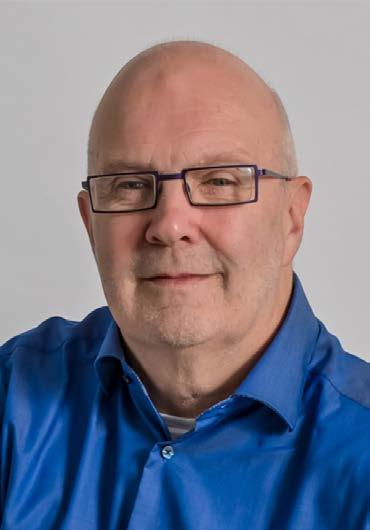
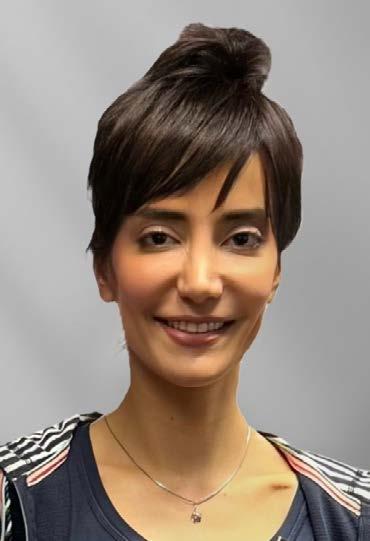
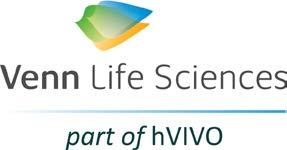

OncoLize BV (Maastricht/Leiden, NL) is in advanced pre-clinical stages of developing a very straightforward way of dealing with some of the most difficult to treat tumors, like pancreatic cancer, gastric cancer and colon cancer.
The company’s approach drastically increases the effectiveness of well-known and novel drugs, and at the same time reduces the serious side-effects that cancer drugs can inflict on patients. And it can be kept affordable as well, in contrast to many of the new drugs and therapies entering the oncology Pharma-market.
OncoLize partnered with experts from LUMC (Leiden University Medical Center) and recently presented spectacular survival rates in pancreatic cancer models (PDAC).
PDAC is one the most notorious cancers, not only for the poor survival rates (8-12% in 5 years’ time), but also because of the very low Quality of Life
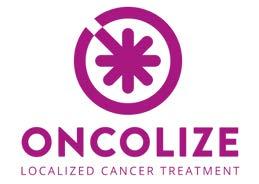
for the patients and their loved ones due to the intensive and high chemo treatments. Despite the poor survival rates, it is also one of the most expensive cancer treatments for national healthcare. The reason why PDAC is so difficult to treat with drugs is because of a thick layer of normal cells around the actual tumor cells, that effectively shield the tumor cells from exposure to the drugs.
100% survival, no side effects
The company can load its injectable drug depots (ChemoGell™) with a wide range of well-known chemo drugs, in this case Gemcitabine. With that, and by injecting their product directly into the tumor mass, they demonstrated 100% survival of the mice treated with their product ChemGem™ until the end of the study (8 weeks), while the mice in the control arms did not survive beyond 3-5 weeks (after injection of saline or empty drug depot). Even better, there were no signs of side-effects in the organs, the overall wellbeing and the behaviour of the mice treated with the ChemGem™ injections. The tumors were harvested from human patients and then transplanted under the skin of mice to test the product. Experiments in another mouse-model with gemcitabine-resistant tumors also showed a significant increase for ChemGem™ in efficacy and again no side effects.
ChemoGell™ product platform
The technology behind the ChemoGell™ injectable drug depots is quite remarkable in itself. ChemoGell™ is a highly versatile hydrogel platform consisting of well-known polymers that transforms from a free-flowing liquid at room temperature, into a drug depot once is reaches near-body temperature inside the targeted tumor. This ‘Thermo-gellation process’ is complete within seconds after injection.The drug that is mixed in is physically entrapped and is released at very high concentrations inside the tumor mass over the course of 7-14 days. The company has also shown this in animal trials for 4 different chemo drugs and a novel peptide, and has received patent grants from the USA, China and Japan, with final approval in EU this year.
The products are delivered into solid tumors using endoscopes, catheters, and fine injection needles. Delivering generic chemo or novel drugs in this localized manner offers precision: 10-100x higher concentration at target with much smaller total doses and up to 1000x lower drug levels outside the tumor…
As 90% of all cancers are solid tumors, and 70% of all tumors are diagnosed before metastasis is clinical, local treatment is a powerful alternative to the standard oral or intravenous delivery that first needs to fill up the entire body in the hope to have sufficient drug levels inside the actual tumor. Overall, for solid tumors the mean age of patients is 66 years when first diagnosed. At that age their immune-, hormonal- and metabolic-systems are more vulnerable, which they need to support the eradication of tumors. So, systemic treatment often hampers the ability of the patient to support the eradication of tumors, further increasing the levels of drugs to unsustainable levels with further increase of side-effects. Local and sustained release offers a powerful proposition to treat patients with better outcome, far less side effects and making it Triple A: Affordable and Accessible for All.
Raising €3.5 million and then €17 million to start clinical trials in 2026
The company is now raising €3.5 million to achieve all the approvals from the EMA and the FDA to start their first clinical trials by end of 2026, next to scale-up their production to source the products for pancreatic cancer and other indications. OncoLize features a highly experienced founders’ team now preparing a Seed B round of €3.5 million in 2025 and it expects to raise a Series A of €17 mln by end of 2026 to execute CT phase I/II studies in up to 3 indications, along with developing a pipeline of multiple product market combinations, scale-up of products for clinical trials and early commercialization potential.
The company also seeks to partner for impact in less privileged communities, so collaboration with NGO’s and impact investors is as much welcomed as VC-backed funding.
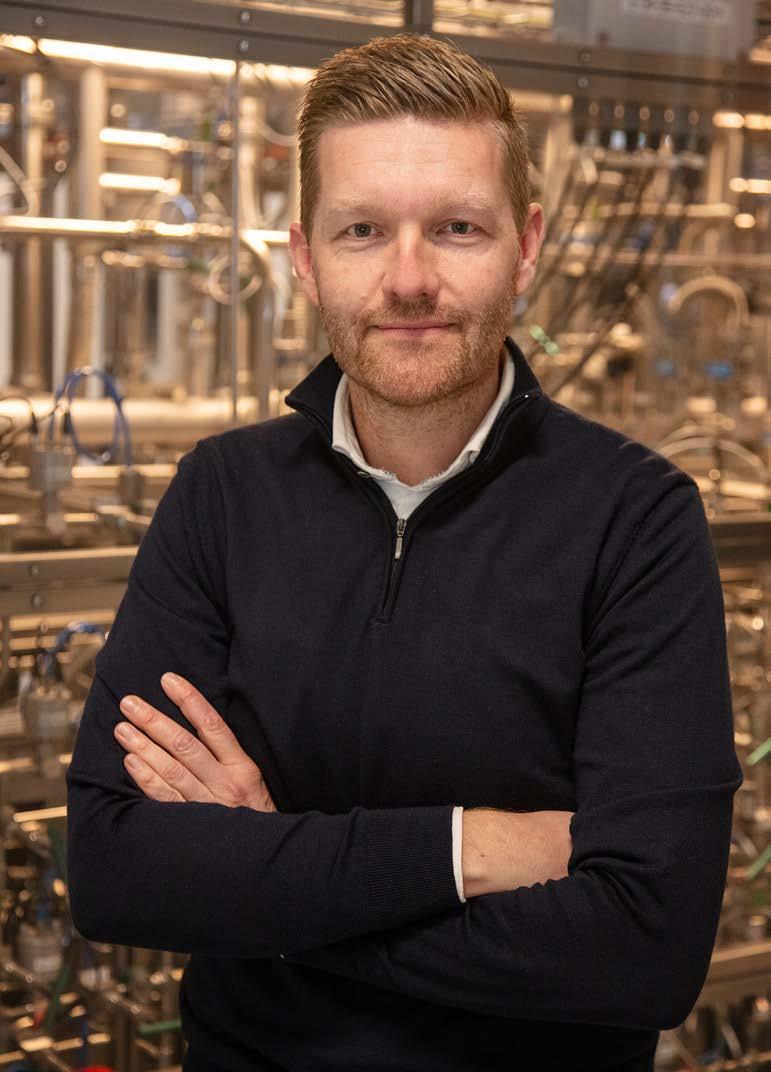
Over medische isotopen
Medische isotopen zijn radioactieve versies van elementen die in de geneeskunde worden gebruikt voor diagnostiek en therapie. Deze isotopen zenden straling uit die kan worden gedetecteerd met speciale apparatuur, wat artsen helpt om ziekten zoals kanker te diagnosticeren. Ze worden vaak toegepast in beeldvormingstechnieken zoals MRI scans. Bij therapie worden isotopen gebruikt die gericht straling uitzenden om tumoren te bestralen, terwijl het omliggende gezonde weefsel zo min mogelijk wordt beschadigd.
Verschillende stappen
Nieuwe ontwikkelingen
Er zijn naast de bestaande behandelmethodes veel interessante ontwikkelingen. Een daarvan is Theranostiek: een unieke combinatie van therapie en diagnostiek in één behandeling. Het Koper64 en Koper67 duo is hier een mooi voorbeeld van. Deze twee isotopen kunnen samen ingebracht worden bij een patiënt, waarbij de ene de prostaatkanker kan lokaliseren en de andere tegelijk behandelt ‘dat is echt een sterk staaltje medische innovatie, en maakt het voor de patiënt zoveel beter en minder belastend.’
Toegevoegde waarde
‘Mede door de opkomst van Theranostiek zien we veel kansen op R&D gebied. Die zien we echter ook stagneren omdat er te weinig capaciteit is met name in de eerder beschreven stap 2 en 3. In deze stappen wordt onder meer geïnvesteerd om een goed idee in de praktijk te kunnen uitrollen, ‘besluit Martijn. ’Juist in deze stappen kan Urenco een enorme toegevoegde waarde leveren, onder meer door het optimale te halen uit onze R&D kennis en expertise. Door op te schuiven in de keten versterken we onze rol in de gezondheidszorg, dragen bij aan innovatieve ontwikkelingen en verminderen tevens de kwetsbaarheid van het traject.’ Urenco
Al ruim 30 jaar verrijkt Urenco Isotopes in Almelo isotopen voor medische, industriële en wetenschappelijke toepassingen. Het bedrijf levert de grondstof van producten die onmisbaar zijn in bijvoorbeeld kankerdiagnostiek en behandeling. Vanuit die positie aan het begin van de keten speelt Urenco een stille maar cruciale rol in de wereldwijde gezondheidszorg: elk jaar zijn de isotopen uit Almelo goed voor zo’n twee miljoen behandelingen wereldwijd. Maar de wereld verandert. De vraag naar medische isotopen groeit explosief, terwijl geopolitieke spanningen en beperkte capaciteit in de keten de leveringszekerheid onder druk zetten. “Als producent van de grondstof weten wij als geen ander hoe kwetsbaar de keten kan zijn,” zegt Martijn van Hezel. Juist omdat we aan de basis staan – en daar onze expertise en betrouwbaarheid al decennialang hebben bewezen – is het logisch én noodzakelijk dat we verder in de keten opschuiven. Door ook betrokken te raken bij de activatie en verwerking van isotopen – essentiële schakels tussen productie en patiënt – wil Urenco bijdragen aan een sterkere, stabielere infrastructuur. “We hebben de kennis, de technologie én de morele plicht om de keten toekomstbestendig te maken,” aldus Van Hezel. “Zodat patiënten niet hoeven te wachten op behandelingen waarvoor de basis allang klaarligt.”
De productieketen van medische isotopen omvat een zorgvuldig en technisch proces dat verschillende cruciale stappen doorloopt om ervoor te zorgen dat de producten op het juiste moment bij de patiënten terechtkomen. ‘Grofweg heb je vier stappen’ legt Martijn uit. Het begint met een stabiele isotoop, die verrijkt of verarmd wordt. Vervolgens, in stap 2, wordt de stabiele isotoop radioactief gemaakt, wat essentieel is voor de werking van de nucleaire medicatie. In stap 3 wordt het geactiveerde materiaal chemisch omgezet en verpakt in de juiste vorm. Ten slotte, in de laatste stap, komt het product via farmaceuten bij de ziekenhuizen en patiënten terecht.
Opschuiven in de keten
Het is een complexe zaak. ‘de behoefte aan medische isotopen is enorm, maar de afhankelijkheid van Russische leveranties brengt onzekerheden met zich mee. Nederlandse medici en farmaceutische bedrijven spraken al eerder hun ongerustheid uit over de Europese afhankelijkheid van de Russische nucleaire sector.
Zo wordt er bijvoorbeeld het zeldzame aardmetaal Ytterbium verrijkt om Lutetium-177 te krijgen, een belangrijke isotoop om uitgezaaide prostaatkanker te behandelen. Die levering gaat met horten en stoten, tekorten dreigen en patiënten worden gedupeerd. ‘ En daar kan Urenco Isotopes hopelijk wat aan doen. Niet alleen, maar samen met partners en universiteiten. ‘Juist omdat we die eerste stap al zo goed doen, bevinden we ons in een unieke positie om ook stap 2 en 3 te gaan doen. De huidige infrastructuur is te fragiel en de vraag stijgt alleen maar. Het is eigenlijk pure noodzaak en het juiste om te doen.
Over Urenco Isotopes
Urenco Isotopes verrijkt en verarmd al meer dan 30 jaar isotopen die gebruikt worden in de meest innovatieve toepassingen denkbaar. Ze zijn de grootste westerse producent van deze producten.
Urenco Isotopes is onderdeel van de Urenco Group met vestigingen in Nederland, Duitsland, het Verenigd Koninkrijk en de Verenigde Staten. De Urenco Group is in handen van de Nederlandse overheid, het Duitse RWE/EON en de Britse overheid.
CO2-neutrale productie in Tilburg:
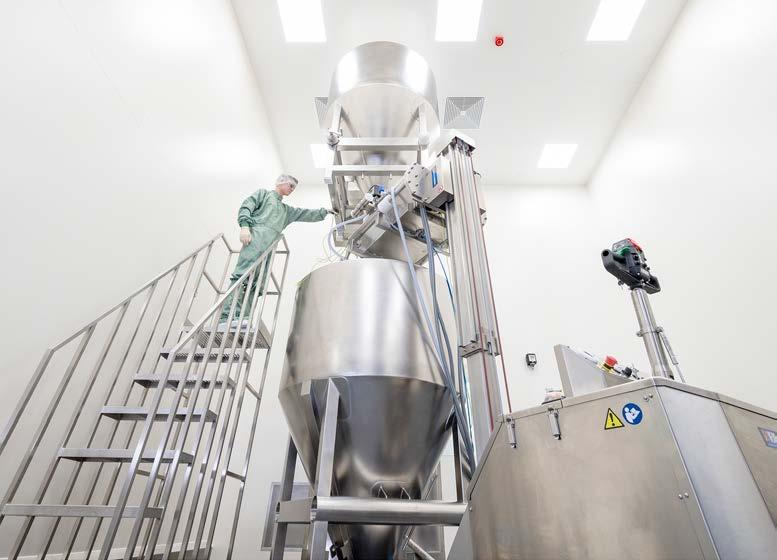
Fujifilm in Tilburg is continu in transitie. Op het terrein waar decennialang fotografische producten werden gemaakt, draait een fabriek waar celkweekmedia worden geproduceerd – cruciale bouwstenen voor medicijnen, vaccins en nieuwe therapieën. Sinds april 2025 gebeurt dat volledig CO2-neutraal. Een indrukwekkende stap die niet alleen de koers van het bedrijf symboliseert, maar ook een bijdrage levert aan een duurzamere wereld.
Bouwen aan een betere toekomst
De celkweekmedia die in Tilburg worden geproduceerd, vormen letterlijk de voedingsbodem voor medische vooruitgang. Ze worden gebruikt voor het kweken van cellen die nodig zijn voor de ontwikkeling en productie van vaccins en voor celtherapieën die in opkomst zijn binnen de moderne geneeskunde.
“De impact van wat wij hier maken, is groot,” zegt Albert van Maren, president van FUJIFILM Manufacturing Europe B.V.. “We leveren een onmisbare schakel in de ontwikkeling van behandelingen die levens veranderen. Dat maakt het werk hier betekenisvol, elke dag opnieuw.”
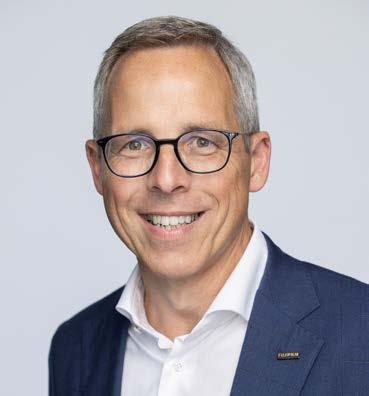
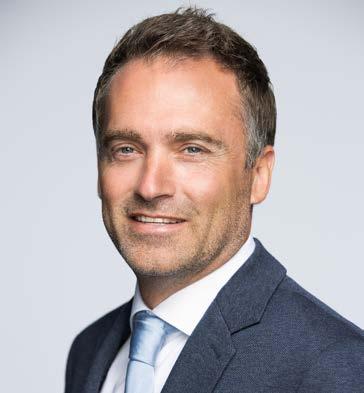
Duurzaam produceren, met een missie
Die betekenis reikt verder dan alleen de medische wereld. Fujifilm in Tilburg heeft zich gecommitteerd aan klimaatneutrale productie in 2030 en in 2025 wordt dit deels al werkelijkheid. Sinds april 2025 draait de Life Science Manufacturing fabriek volledig CO2-neutraal. De benodigde energie komt uit windturbines en stoom wordt op duurzame wijze opgewekt. Begin 2025 is namelijk een krachtige E-boiler operationeel, die voldoende stoom genereert voor de de celkweekmediaproductie. Ook watergebruik wordt actief teruggedrongen en waar mogelijk gezuiverd en hergebruikt.
Albert van Maren, ziet duurzaamheid als een logische kernwaarde van moderne industrie: “Met CO2-neutrale productie laten we zien dat innovatie en verantwoordelijkheid hand in hand kunnen gaan. We willen niet alleen koploper zijn in technologie, maar ook in onze zorg voor de planeet.”
Van fotografie naar farmacie
De overgang van fotografische producten naar celkweekmedia lijkt op het eerste gezicht groot, maar volgens Sander Vermeulen, COO van FUJIFILM Manufacturing Europe, ligt de basis nog steeds in vakmanschap en precisie. “We zijn een Japans bedrijf. Een sterke focus op kwaliteit zit in ons DNA, zowel in het productieproces als in de controle van het eindproduct. In onze fotografische productie leerden we extreem zorgvuldig te werken met chemische stoffen. Die expertise is nu van grote waarde voor het maken van hoogwaardige celkweekmedia.”
De media die in Tilburg worden geproduceerd, zijn ‘animal component free’ – vrij van dierlijke of menselijke ingrediënten – en worden wereldwijd ingezet in researchlabs en farmaceutische fabrieken. Fujifilm ziet een sterke groei door de toename van celgebaseerde therapieën en gepersonaliseerde geneeskunde.
Lokaal produceren, wereldwijd effect De fabriek in Tilburg bedient zowel de Europese markt als daarbuiten. Dankzij de strategische ligging, hoogwaardige kennis en ruime
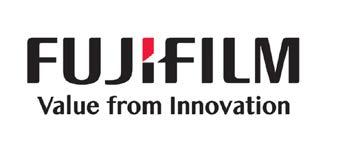
groeimogelijkheden is de locatie inmiddels een belangrijk internationaal knooppunt geworden voor Fujifilm’s Life Science-activiteiten. “Wat we hier doen, draagt bij aan een robuustere en duurzamere gezondheidszorg,” zegt Van Maren. “We leveren lokaal, waardoor we de keten verkorten, verspilling verminderen en sneller kunnen inspelen op de behoeften van klanten.”
De toekomst ligt in cellen én in keuzes Fujifilm in Tilburg laat zien dat industriële productie, innovatie en duurzaamheid elkaar niet uitsluiten. Integendeel, terwijl de wereld zoekt naar oplossingen voor klimaatverandering én gezondheidsuitdagingen, bewijst deze fabriek dat beide ambities verenigbaar zijn.
“We zijn trots op wat we doen,” besluit van Maren. “Elke kilo celkweekmedia die hier de deur uitgaat, kan het begin zijn van een behandeling of een vaccin. En dat doen we op een manier die ook onze planeet recht doet.”
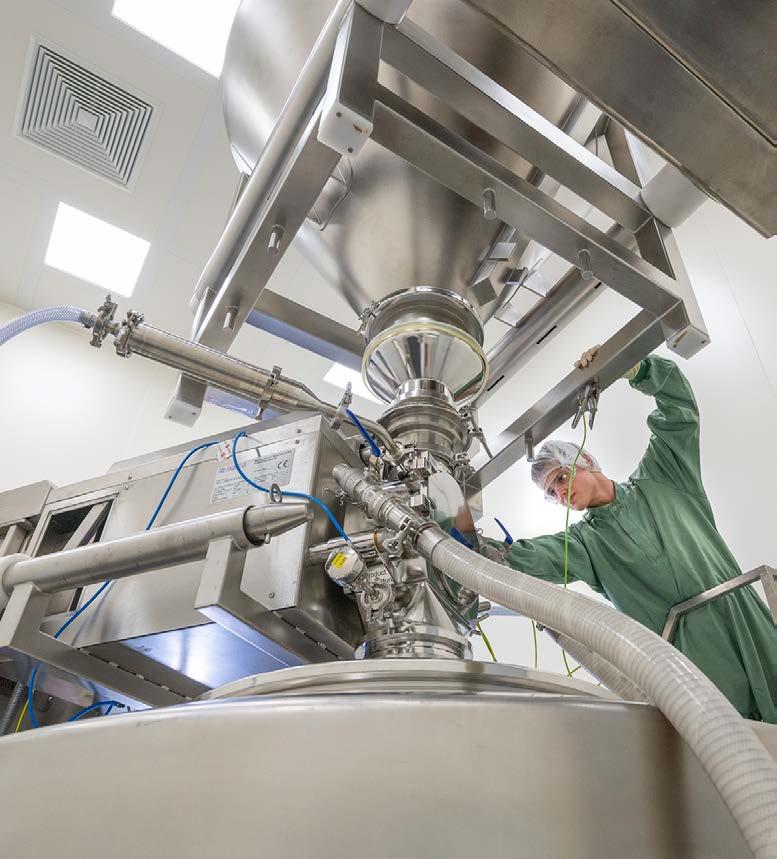
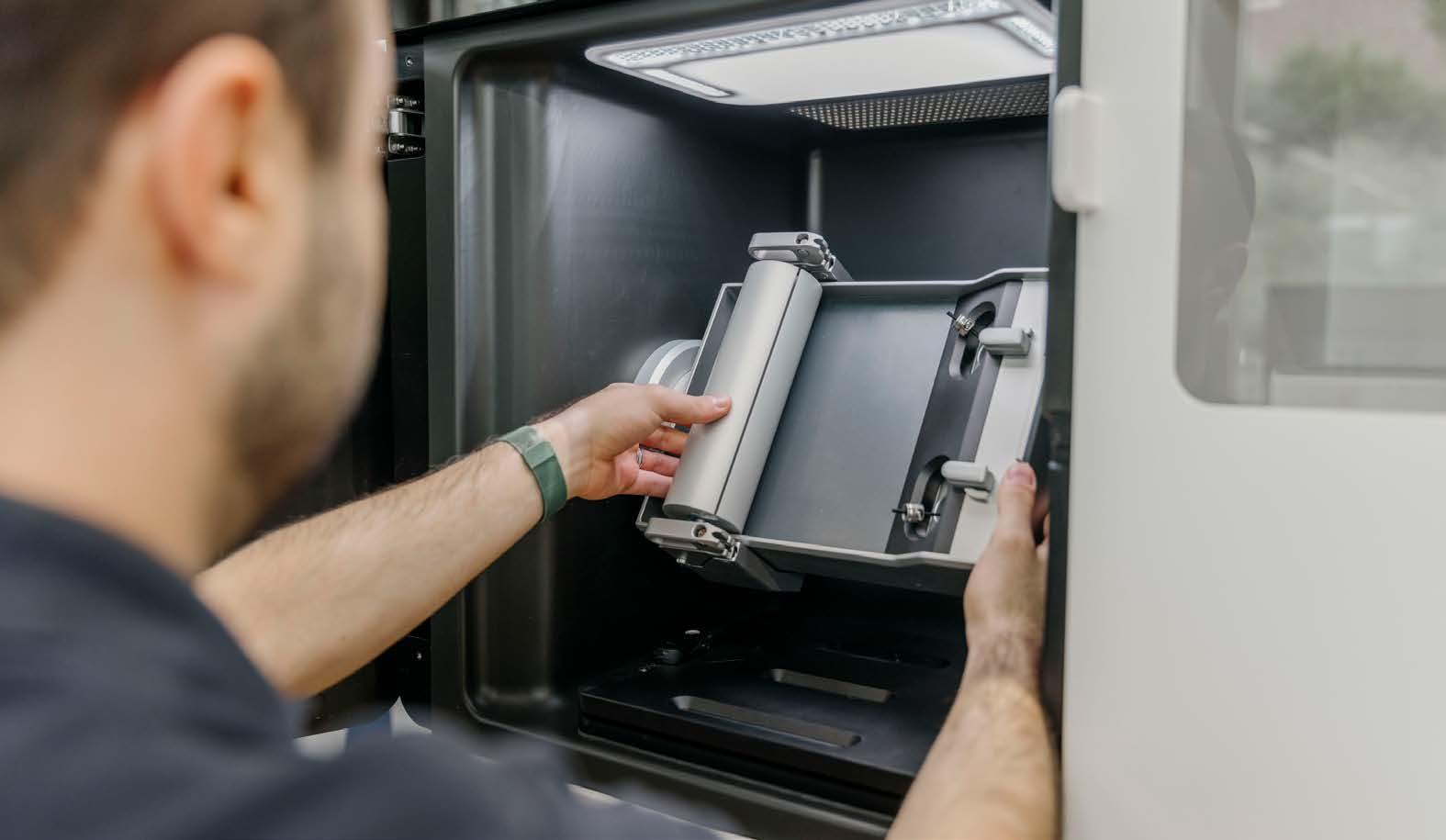
Demcon develops innovative technologies for social challenges, with a strong focus on healthcare. A key focus area is biotechnology, where Demcon life sciences & health supports the entire process from cell cultivation to tissue and organoid production. “With our broad technology portfolio, we can make meaningful impact in the fields of medical technology, biotechnology, and pharmaceutical research.”
Demcon started out in advanced mechatronics and has grown into a group of high-tech companies, with over 1,100 employees. For almost fifteen years, Demcon has been active in life sciences & health, covering medical technology, biotechnology, and in vitro diagnostics. “As a result, we have a lot of experience in developing (bio)medical technology, in particular bioreactor technology for regenerative medicine and tissue engineering,” says Michiel Jannink, vice president of Demcon life sciences & health.
Full-blown design house
In the process, Demcon created a full-blown design house in life sciences & health, Jannink explains. “With our technology experts, application specialists and advanced facilities including cleanrooms and cell culture labs, we serve academic and corporate customers worldwide. We have competencies in system engineering and development of medical and biotech products and equipment, and broad regulatory and quality

assurance expertise. In addition, we have acquired shares in various biotech companies, to become their technology and investment partner.” These include Orgonex, Scinus Cell Expansion, ReGEN Biomedical and Sync Biosystems.
Improving organoid cultivation
Orgonex, for example, emerged from research into improving the cultivation process for organoids, miniature organ tissues that are used for both fundamental research and medical and pharmaceutical applications. This has resulted in a bioreactor that has a five times higher yield than traditional, manual cultivation methods. The compact system is easier to integrate into the lab process than other solutions for automating the cultivation.
Making stem cell therapy accessible
Another cultivation solution comes from Scinus Cell Expansion. They automate the expansion of stem cells to relevant numbers, to make stem cell therapy accessible worldwide to a broad group of patients. “We want to offer patients the prospect of a cure for diseases such as diabetes, Alzheimer’s and ALS, and recovery from a heart attack or skin reconstruction. The latter is possible because Scinus’ bioreactor technology can be used to scale up the cultivation of stem cells for the production of cells and microtissues.”
Automating tissue production or regenerative medicine and pharmaceutical screening
Taking tissue sizes one step further, ReGEN Biomedical focuses on automating the production of biological tissues for regenerative medicine and pharmaceutical screening. The company develops advanced production facilities as part of the RegMed XB national pilot factory that is being set up to cover the entire chain of development and production of stem cells, mini-organs, tissues and smart (bio)materials. “Our participation in ReGEN Biomedical is a milestone in publicprivate partnership in the field of regenerative medicine. We are now at the beginning of the industrialization of tissue production for medical applications that hold great promise for patients,” Dennis Schipper, CEO of Demcon, commented at the official launch.
Improving and enhancing biological assays
During development of drugs and treatments, accurate testing that is tailored to the patient is essential. Therefore, Sync Biosystems focuses on the use of high-tech engineering for improving current biological assays by introducing precise fluidic control. Using their proprietary technology, Sync Biosystems has a unique way to robustly automate advanced human cell culture models. In addition, it enables scientists to mimic patient-like (pharmaco)kinetics and apply more continuous readouts. “We want to make drug testing and disease modeling easier and more reliable,” states Berend van Meer, managing director of Sync Biosystems. “To that end, we create a bridge between in vitro biology, microfluidics and mechatronics to add possibilities to existing assays without changing the workflow of the end user.”
Impacting research and society
“All these companies are great additions to our biotechnology portfolio,” Jannink concludes, “enabling us to cover the chain from cell cultivation to tissue and organoid production. Our ambition is to provide researchers and product developers with better cell culture models and more advanced tools for studying complex real-life problems. With our broad technology portfolio and synergy between our design house and the various companies, we can make real impact on medical, biotechnological and pharmaceutical research.”
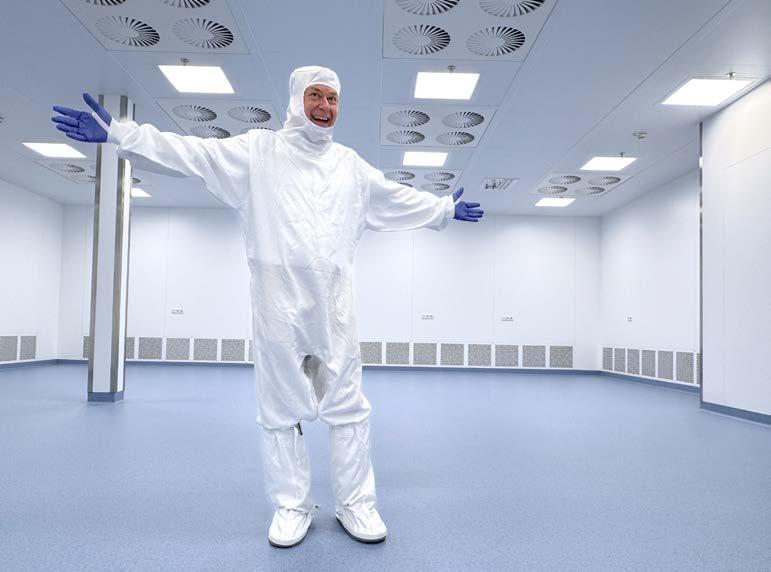
Met de opening van vier GMP-compliant cleanrooms op de High Tech Campus in Eindhoven zet Smart BioMaterials Consortium (SBMC) een grote stap in de ontwikkeling van infrastructuur voor research, ontwikkeling en productie van therapieën gebaseerd op biomateriaal. Volgens CEO Jan Rietsema vormt de opening van de nieuwe cleanrooms een cruciale stap in de doorbraak van regeneratieve therapieën en een belangrijke hefboom voor startups en scale-ups die actief zijn in deze sector. Eerder nam SBMC ook al een ISO 13485-gecertificeerd ontwikkellaboratorium op het terrein van de Technische Universiteit Eindhoven in gebruik.
Van idee naar toepassing
“Een belangrijk voordeel is dat klanten de cleanrooms flexibel kunnen huren,” legt Rietsema uit. Daarnaast zijn de cleanrooms schaalbaar door hun flexibele grootte. “Dat verlaagt de drempel om aan de slag te gaan. Startups kunnen klein beginnen, maar wél direct volgens de normen die nodig zijn voor klinische toepassing. Ze kunnen focussen op hun eigen product, terwijl de productieomgeving door SBMC wordt gecontroleerd.”
De cleanrooms zijn ‘plug-and-play’: gebruikers brengen hun eigen productieproces mee, SBMC faciliteert de infrastructuur én de kwaliteitsborging van deze cleanrooms. “Voor veel startups is dat nieuw terrein.”
Eerste klant bevestigd Nog vóór de cleanrooms officieel in gebruik werden genomen, was het contract met de eerste klant al getekend. Rietsema: “Dat is een belangrijke mijlpaal. Voor bedrijven die nog twijfelen of het risicovol is om hun productie bij ons onder te brengen, laat dit zien dat de markt ons vertrouwt. We zijn operationeel, klaar voor gebruik en er is directe belangstelling vanuit het veld.”
Ontwikkellaboratorium voor vroege fase
Rietsema. “Dat doen we niet alleen, maar samen met partners als High Tech Campus Eindhoven, de Brabantse Ontwikkelings Maatschappij (BOM), de Technische Universiteit Eindhoven (TU/e), Fontys Hogescholen, de Helmond Biotech Materials Hub en Brainport Development. Het gezamenlijke doel is het creëren van een sterk ecosysteem waarin innovatie, wetenschap, talent en ondernemerschap samenkomen.”
Meer dan infrastructuur
SBMC biedt meer dan alleen vier muren met apparatuur. Bedrijven kunnen rekenen op inhoudelijke begeleiding, onder meer bij proofof-concept testen, productontwikkeling en kwaliteitsmanagement. Ook is er toegang tot financieringsinstrumenten: startups kunnen tot 500.000 euro ondersteuning aanvragen, bijvoorbeeld voor een ontwikkelproject, validaties of vroege productie.
“We willen de kans op succes vergroten. Dus investeren we niet alleen in stenen en machines, maar ook in mensen, kennis en kapitaal,” zegt Rietsema. “Uiteindelijk draait het om impact: hoe sneller we regeneratieve therapieën bij de patiënt krijgen, hoe beter.”
Voor een bezichtiging of kennismaking, neem contact op met Danielle Trappenburg via bd@smartbiomaterials.nl of kijk op www.smartbiomaterials.nl. SBMC
“In Brainport zijn we goed in het bedenken van briljante ideeën in regeneratieve geneeskunde,” vertelt Rietsema. “Maar de vertaalslag van lab naar kliniek is ingewikkeld, duur en tijdrovend. Met ons ontwikkellaboratorium én met de nieuwe cleanrooms willen we die kloof dichten. Startups en jonge bedrijven kunnen nu versneld therapieën produceren onder GMP-condities, zonder zelf te hoeven investeren in infrastructuur.”
Wat maakt deze faciliteit uniek?
De nieuwe faciliteit telt vier afzonderlijke cleanrooms die voldoen aan GMP Class C-normen en ISO 6/7-classificaties.
Cleanrooms zijn essentieel in de biomedische sector om de productkwaliteit te handhaven en te voldoen aan strenge wettelijke normen. Ze bieden gecontroleerde omgevingen die besmettingsrisico’s minimaliseren en de veiligheid en werkzaamheid van biomaterialen, medische hulpmiddelen en combinatieproducten garanderen.
Naast de cleanrooms beschikt SBMC over een volledig uitgerust ontwikkellaboratorium voor het optimaliseren van processen voordat ze naar de cleanroomfase gaan. Hier kunnen bedrijven experimenteren, formuleringen verfijnen en preklinische validaties uitvoeren.
“In het lab kunnen bedrijven hun materiaal karakteriseren, testen op verwerkbaarheid of bijvoorbeeld biocompatibiliteit beoordelen”, zegt Rietsema. “Pas als ze klaar zijn voor productie onder GMP-voorwaarden, stappen ze over naar de cleanrooms. Die opbouw –van lab naar cleanroom–zorgt voor efficiëntie en verkleint het risico op kostbare herhalingen.”
Ambities
SBMC is gevestigd in het hart van Brainport Eindhoven, een regio die zich snel ontwikkelt tot een internationale hotspot voor biomaterialen en medische technologie. “We hebben de ambitie om Brainport wereldwijd op de kaart te zetten als hét centrum voor slimme biomaterialen,” aldus
Meer weten?
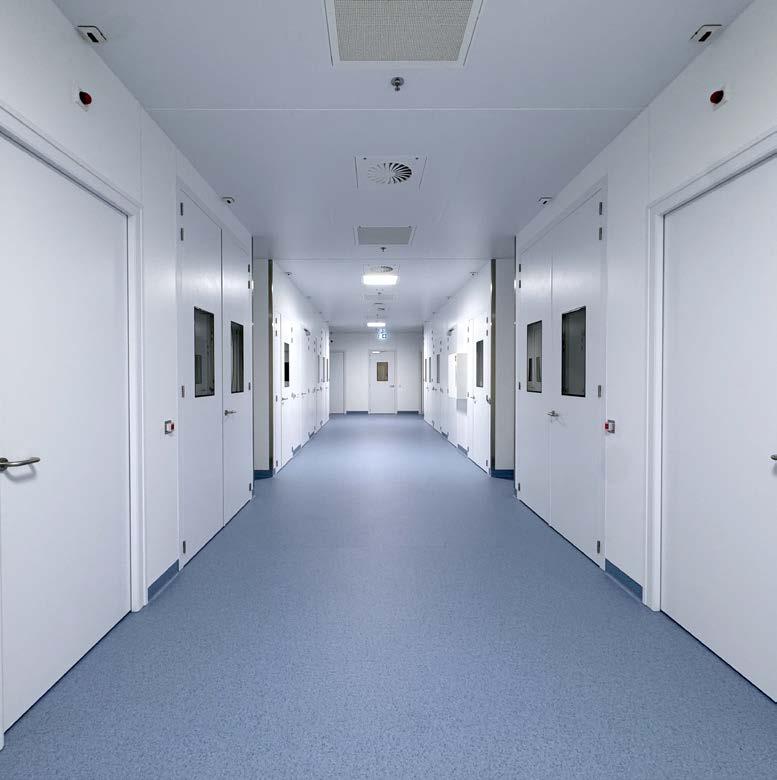
Bij grootschalige nieuwbouw en renovatie projecten wordt nagenoeg steevast gekozen voor een traditionele aanpak. Adviseurs maken per discipline het ontwerp/bestek en hoofdaannemer, onderaannemers en zeer veel kleinere specialistische partijen, lees ZZP’ers, voeren het project uit. Het bestek vormt de leidraad voor het complexe en intensieve traject. Optimale communicatie is cruciaal, maar niet eenvoudig in een proces waarbij tientallen, soms honderden, partijen zijn betrokken. Alex Jansen pleit voor een eenvoudiger aanpak..
Cleanspace Cleanrooms heeft recent turnkey een nieuwe GMP laboratorium opgeleverd bij een internationaal farmaceutisch verpakkingsbedrijf. De faciliteit is volledig bestemd voor het verpakken van kleine badges van medicijnen in klinische fase 3. Een voorbeeldproject om trots op te zijn, zegt Alex Jansen die samen met Peter van Wieren in 2021 Cleanspace begon. Met hun jarenlange kennis en ervaring in de sector achtten ze het tijd voor een nieuwe visie. Dat leidde bijna als vanzelfsprekend naar een filosofie die afweek van de geijkte paden: integrale turnkey bouw en ontwerp van cleanrooms met eigen mensen en middelen. Jansen geeft ook toe dat de aanpak van Cleanspace Cleanrooms tot enige verbazing leidde bij de gevestigde orde; desalniettemin bleef het succes niet uit. We adviseren, ontwerpen, fabriceren en bouwen de gehele cleanroom zelf en zijn daardoor in staat alle facetten van de cleanroom op elkaar af te stemmen en controleren. Hierdoor bouwen we sneller, goedkoper en met hogere kwaliteit. Bij ons heeft een gemiddeld cleanroom project tot en met validatie een doorlooptijd van 6 tot 9 maanden; of het nu een GMP laboratorium is, een operatiekamer complex of een cleanroom voor de hightech semiconductor industrie. Gebruikelijk is dit vaak een jaar tot meerdere jaren.
Als ontwerper en bouwer van cleanrooms wil Cleanspace zich onderscheiden door het belang van veiligheid, prestaties en betrouwbaarheid te combineren met een laag energieverbruik, kortweg sustainable contamination control. Cleanrooms zijn nu eenmaal energieslurpers; in een tijdsgewricht waarin de aandacht voor energiebesparing en duurzaamheid hoogtij voert, komt de visie van Cleanspace op het goede moment. Een visie die realistisch is door een goed doordacht ontwerp en logistiek met slimme,
moderne installaties waarmee besparingen worden bereikt.
Een voorwaarde is dan wel dat ontwerp en realisering worden toevertrouwd aan Cleanspace. Alex Jansen: “Wat we vragen is om de volledige bouw van het cleanroomgebied aan ons toe te vertrouwen: van ontwerp tot eindoplevering. Een integrale aanpak van het design en de bouwkundige werkzaamheden tot de complete installatietechniek. Wij wijken daarmee af van wat gebruikelijk is in de branche: een bouwkundig aannemer en installatie aannemer die samen een cleanroom bouwen. Wij zijn daarin inderdaad anders, maar weten met onze decennialange cleanroom ervaring waar we over praten. Het is de meest effectieve en efficiënte manier om een cleanroom te bouwen. Dat we beschikken over een eigen productiefaciliteit in Middenmeer is daarnaast ook van een grote toegevoegde waarde voor de kwaliteit en leverbetrouwbaarheid en snelheid.”
Er is nog een ander aspect, vervolgt Alex Jansen:”Cleanroombouw en ontwerp is een specialisme waarbij kennis van en vertrouwd zijn met de regelgeving en de werkprocessen van de opdrachtgevers, onontbeerlijk is. We bouwen daarom met eigen mensen of ons bekende partijen. We staan doorschuiven van uitbesteed werk niet toe en zien er juist op toe dat partijen zelf het werk uitvoeren. Hiermee houden we de communicatielijnen kort. Maar net zo belangrijk: we voorkomen dat bouwbudget nodeloos wordt uitgegeven aan tussenpartijen die slechts werk en verantwoordelijkheden doorschuiven en je daarna geen idee hebt wie er op de bouw komt. Bouwers die geen kennis hebben van noodzakelijke cleanroom werkprocedures en/of het opvolgen ervan niet nodig vinden. En zich pas te laat realiseren van de extra kosten en herstelwerk dat ze hebben veroorzaakt.”
“Wij doen het daarom graag anders: wij zeggen, laat ons maar zien welke ruimte, welke oppervlakte we kunnen gebruiken en dan bouwen wij van A tot Z de meest optimale cleanroom die voor uw budget mogelijk is. Geen gedoe met partijen die niets afweten van cleanrooms, er is een duidelijk aanspreekpunt dat altijd beschikbaar is voor vragen. Resultaatgericht en korte lijnen.”
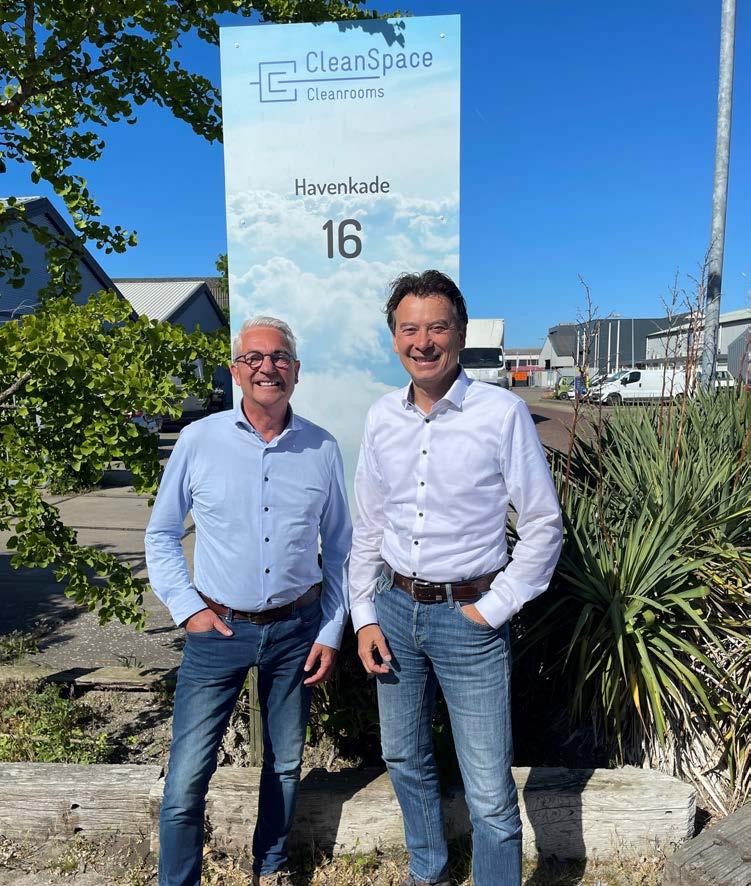
En dat laatste spreekt vooral farmaceutische en zorgaanbieders met kleinere budgetten of zeer specialistische projecten aan. Alex Jansen: “Met onze aanpak zijn we succesvol in onder andere privéklinieken als het gaat om het operatiekamer gebied. Een groeiende markt. De klinieken worden vaak gerealiseerd in gebouwen die een heel andere functie hebben gehad. Een kantoorgebouw of een statige villa. De eigenaren en directies denken als ondernemers. Onze uitdaging wordt dan om met de beschikbare vierkante meters een OK complex te realiseren dat voldoet aan alle regelgeving en waar het chirurgisch team optimaal zijn werk kan doen. Ook in de farmaceutische en bioscience bedrijven zien we dat onze aanpak goed aansluit. Bedrijven willen snel kunnen inspelen op ontwikkelingen in de medicijnenmarkt en zijn daarbij op zoek naar bedrijven die snel en adequaat aanpassingen van hun GMP faciliteit doorvoeren. Men zoekt een betaalbare functionele oplossing, wil geen gezeur en een project dat op tijd wordt uitgevoerd, conform de afspraken. Dat sluit precies aan bij onze manier van denken en werken.”
Dat de gemaakte keuzes succesvol zijn, is duidelijk.: “We zijn niet voor niets in 2023 genomineerd als beste startende onderneming van Noord Holland en bouwen voor ASML wereldwijd hun modulaire cleanrooms, maar dit succes brengt ook weer andere uitdagingen met zich mee”, besluit Jansen: “Met onze aanpak zijn we misschien wel anders, maar ook wij ervaren de uitdaging deze groei vast te houden en goede mensen aan ons te binden.”

The premier job event for the Life Sciences industry From MBO to postdoc, student to professional!


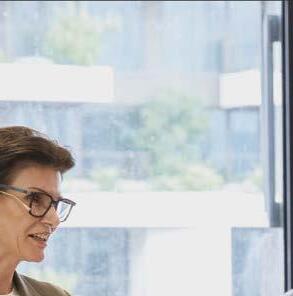
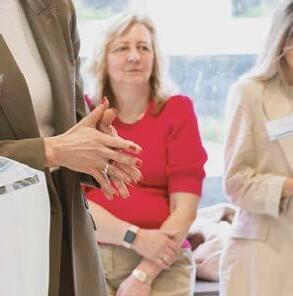


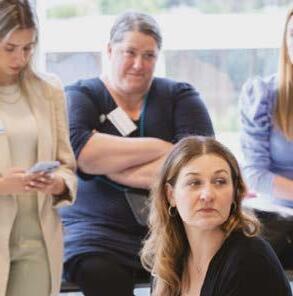
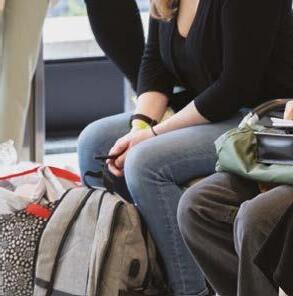




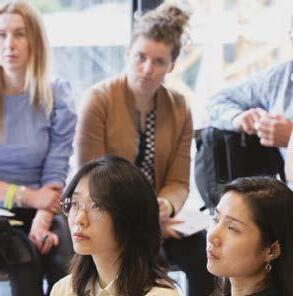
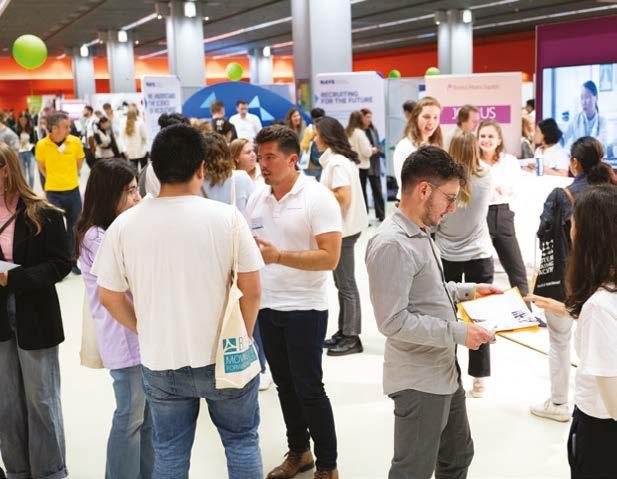

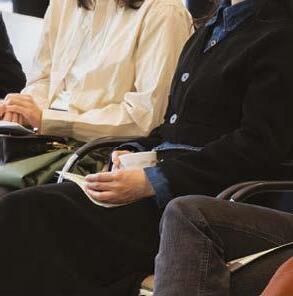
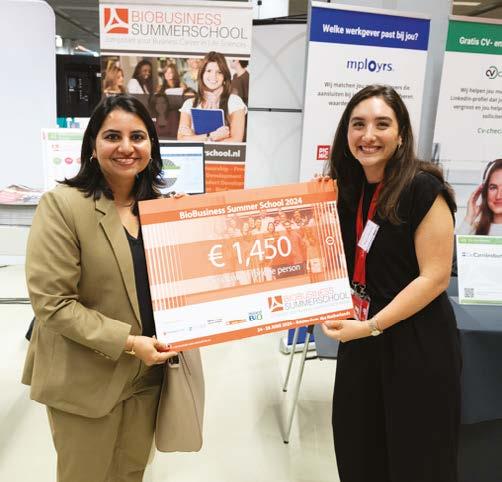
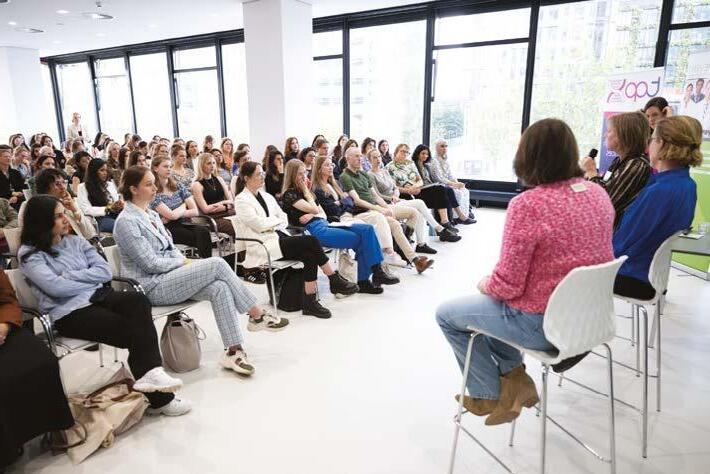
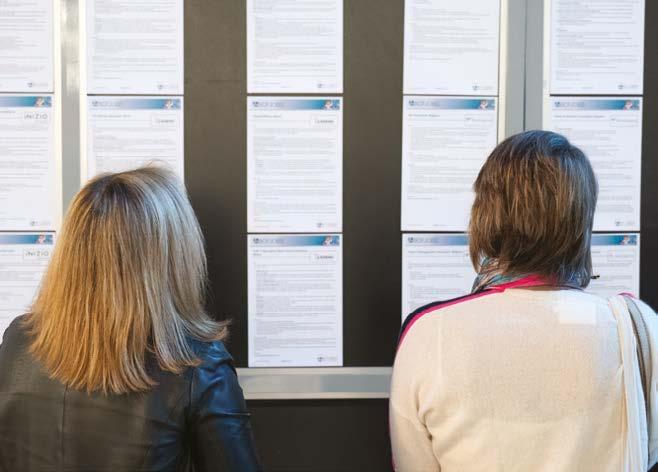

BCF Career Event Belgium – 27 November 2025 BCF Career Event Netherlands – 21 May 2026
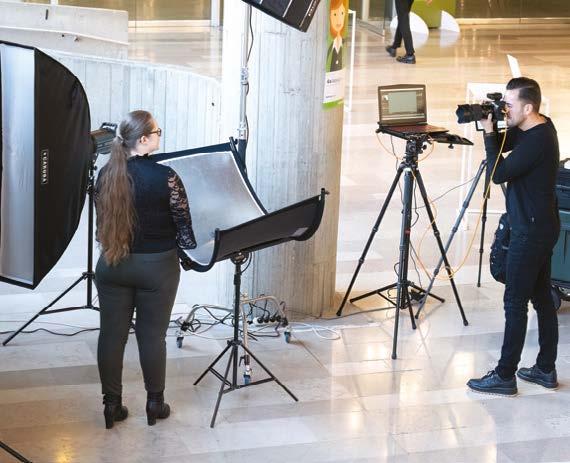
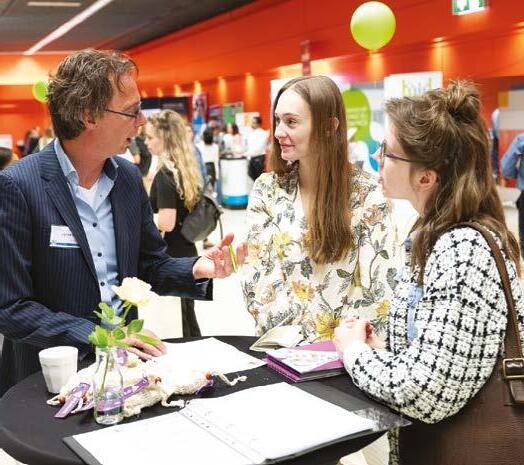
For your employer branding & talent recruitment!
BCF Career is the largest Life Sciences career event in the Netherlands since 2005, offering an unparalleled opportunity to connect with thousands of highly skilled job seekers. Our event attracts a diverse range of students and professionals in the field of Life Sciences (Bio, Chemistry, Food, Pharma). Exhibiting at BCF Career Event gives companies the chance to showcase their brand, network with potential candidates and promote job opportunities.

































“BCF Career Event is unique as it’s the only career fair specifically tailored for the chemistry and life sciences sectors. We have visited the BCF Career Event for each of the 20 editions and will continue to do so in the future.”
Op het snijvlak van wetenschap & medicijnbeoordelingen: Platform technologieën
De aandacht voor platform technologieën is de laatste tijd flink toegenomen, vanwege de potentie om de ontwikkeling van geneesmiddelen te versnellen. Een groeiend aantal vaccins (denk aan COVID-19 vaccines), antisense oligonucleotiden (bijvoorbeeld voor het behandelen van Spinale musculaire atrofie) en geavanceerde medicijnen, zogenoemde Advanced Therapy Medicinal Products (ATMP’s), worden geproduceerd met behulp van platform technologieën.
Daarom stond op 19 mei de Wetenschapsdag van het College ter Beoordeling van Geneesmiddelen (CBG) in het teken van de kansen en uitdagingen omtrent platform technologieën.
Wat is een platform technologie?
Tijdens de Coronapandemie werden in rap tempo vaccines ontwikkeld, onder andere dankzij platform technologieën. Het idee achter een platform technologie is dat dezelfde bouwstenen gebruikt kunnen worden voor het ontwikkelen van meerdere therapieën. Bij sommige van de COVID-19 vaccines wordt namelijk gebruik gemaakt van de productie van mRNA, waarbij je lichaam vervolgens met behulp van dit mRNA zelf de antigenen aanmaakt.
De productie hiervan is daardoor een stuk sneller dan traditioneel antigenen of (gedeactiveerde) virussen produceren. Daardoor kan bijvoorbeeld snel geanticipeerd worden op nieuwe varianten van het virus, zoals bij SARS-CoV-2 het geval was. Een ander voorbeeld van een platform technologie is CRISPRCas, die het manipuleren van pathogene mutaties in de patiënt mogelijk maakt.
Beoordelen van platform technologieën en de nieuwste ontwikkelingen
Zulke nieuwe ontwikkelingen vragen om een vernieuwende blik wat betreft de beoordeling van geneesmiddelen. Hoe wordt de desbetreffende platform technologie bijvoorbeeld veilig en consistent geproduceerd en wat zijn de baten en risico’s (B/R) omtrent deze nieuwe geneesmiddelen?
Niet alleen de nieuwste platform technologieën passeren het CBG, ook ontwikkelingen op het gebied van ATMPs (bijvoorbeeld gen- en celtherapieën), personalized medicine (geneesmiddelen specifiek voor een individu, bijvoorbeeld met behulp van biomarkers) en artificial intelligence (AI) komen steeds vaker voor.
Daarom is het belangrijk dat onze collega’s zoveel mogelijk aan de voorhoede van de wetenschap opereren, zodat de werkzaamheid en veiligheid van geneesmiddelen gewaarborgd blijft.
Bezoek onze website voor meer informatie: www.cbg-meb.nl

Leyden Labs is a clinical-stage biotechnology company based in the Netherlands working to free people from the threat of respiratory viruses.
Leyden Labs is creating a novel, non-vaccine approach to fight back against the threat of respiratory viruses.
By leveraging its Mucosal Protection Platform, Leyden Labs aims to develop a portfolio of candidates to provide protection against influenza, coronaviruses, and other respiratory viruses through a new class of broadly protective nasal sprays.
Systemically administered vaccines primarily generate systemic protection. However, airborne viruses, including influenza and coronaviruses, enter the body through the nose and mouth. Thus, what we need is protection right at the gate, at the respiratory mucosa, to more effectively prevent initial infection and subsequent illness.
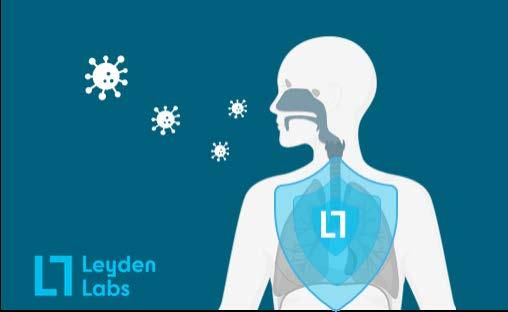
Based in Leiden, the Netherlands, Leyden Labs has an ambitious team pursuing this novel strategy. We are developing nasal sprays that administer broadly protective antibodies directly to the respiratory mucosa. These antibodies aim to protect against full viral families, so they are expected to keep working even when a virus mutates and evolves.
These nasal sprays are envisioned to be used regularly throughout times when circulating viruses are burdening society – with opportunities for use in cases of seasonal infections, as well as in pandemic outbreaks. Through self-administration, users have additional viral protection in their control.
Given the limitations of vaccination, many people could benefit from such an approach that offers additional protection. Notably, this intranasal strategy is also beneficial for people with weakened immune systems because it does not require a fully functional immune response by the body.
To learn more about Leyden Labs, including how to join our mission, please visit www.leydenlabs.com
Nouryon is a global leader in specialty chemicals, with Kromasil® as an integral part of its advanced range of chromatography media. With over 35 years of experience in manufacturing and packing stationary phases, Kromasil® provides highperformance products to various industries, including pharmaceuticals, clinical, environmental, food, and beverage sectors.
Kromasil® chromatography media are designed for high-performance liquid chromatography (HPLC) and supercritical fluid chromatography (SFC). Our silica-based stationary phases meet international standards, ensuring durability and load capacity. These products are essential for the purification of active pharmaceutical ingredients (APIs), aiding in the development of drugs with improved efficacy.
Specifically, Kromasil® plays a vital role in the purification of GLP-1 receptor agonists used in treating type 2 diabetes and obesity, as well as in the purification of insulin for diabetes management. These applications highlight the importance of Kromasil® in ensuring the purity and effectiveness of these key medications.
Beyond pharmaceuticals, Kromasil® is important in various analytical applications, including the screening and quality control of pharmaceutical ingredients, food, and beverages. Our Kromasil® chromatography media, made of spherical silica particles, provide flexible solutions for different purification processes, ensuring high purity standards are met.
Kromasil® are available in bulk and high-pressure slurry-packed columns. This technology supports chromatographers in achieving better separations and analyses, backed by our patented silica technology and years of expertise in silica chemistry.
As part of Nouryon’s mission, Kromasil® continues to advance the field of chromatography, offering innovative solutions that support progress in pharmaceuticals and related industries. Our extensive experience and expertise make us a reliable partner in developing chromatography technology, ensuring high-quality results that meet the demanding needs of healthcare and scientific research.


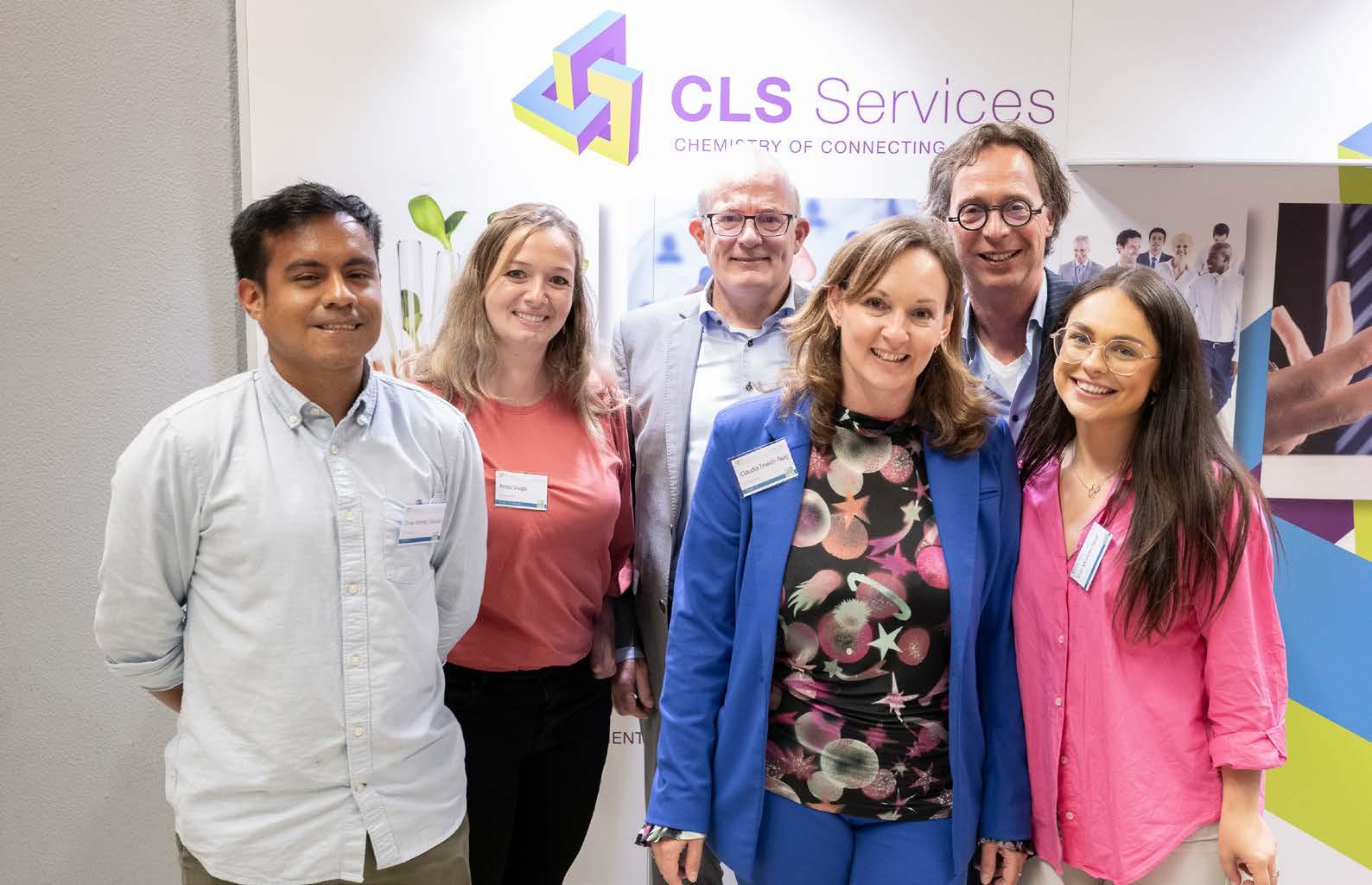
Romana: “They matched me with a job of which I would never think about in the first place. It turned out to be a dream job that fits my strengths, skills and personality perfectly.”
At CLS, we want our candidates to be happy at work and help them build their careers through personal development. Similarly, we are keen to offer our clients excellent candidates, so their business can run smoothly and they need not worry about vacancies.
Challenging. Demanding. Stimulating. Relevant. That’s working in chemistry and life sciences. The right environment for substantially motivated and ambitious professionals who like to tackle complex issues and improve their personal and professional development.
Fair treatment
“When people are happy, so are we. We aim to provide the best options for our clients, candidates, and employees.” Jan Paul Favier, co-founder and co-owner of CLS Services, is unequivocal about the company’s motivation: “We strive to do things right. At CLS, we don’t work with rigid targets. This ensures that people genuinely choose the company, the role, and for us. Our focus is on creating a work

environment we would want for ourselves – one that fosters enjoyment. We always advise people to find a job they are enthusiastic about and enjoy, and be realistic at the same time.”
Floris: “At a time when the job market is becoming increasingly transactional, CLS’s human approach is truly refreshing. They take good care of their employees and take the initiative in doing so.”
Welcome at CLS
CLS Services specialises in recruitment, executive search and secondment of functional specialists and managers at B.Sc., M.Sc. or Ph.D. level. At CLS Services we all have a professional background in Chemistry or Life Sciences. That is why we know exactly what talents and clients are going through.
René Kemps, co-founder and co-owner of CLS Services: “We prefer long term partnerships that align with our promise: Dedicated to Excellence. With our feet firmly in the worlds of food, medicine, industry, environment, diagnostics, sustainability, energy and agriculture, we understand your business inside out, too. Some of our clients have been with us for 20 years. These are major companies in the Netherlands, which speaks volume.”
Miranda: “CLS is the only agency I am working with that plans a yearly site visit and calls me now and then, apart from formal performance evaluations. They care about their employees and their clients, that shows.”
Suitable candidates
René continues: “Challenge us with a niche vacancy. We gladly accept the challenge of filling niche vacancies—it keeps us sharp. We will return with a carefully selected shortlist of suitable candidates from our network. Consider us an additional recruiter rather than a competitor to an organisation’s in-house recruitment team. When it comes to those hard-to-fill niche roles, that’s where we excel.”
Sander: “CLS has always been there for me—first as an employee and now as a R&D Excellence & Quality Manager. I can engage in open discussions with them, they actively contribute ideas, and they possess a deep understanding of the job market.”
Discover opportunities
How to create the perfect match? Connect with us. We will discover what makes you both happy: candidate and client. We like to get to know you best before we introduce one to another: what team and culture would fit in, what skills are needed for the certain role? Candidates always have a personal indepth interview. Keeping their qualities, personality and expertise in mind, we then think of which positions are available that could match those. Finding the right fit for candidates and clients. That is how we roll: Dedicated to Excellence.
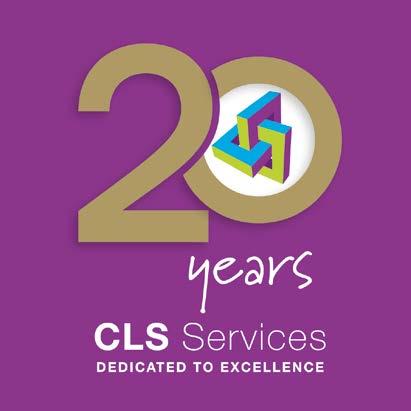
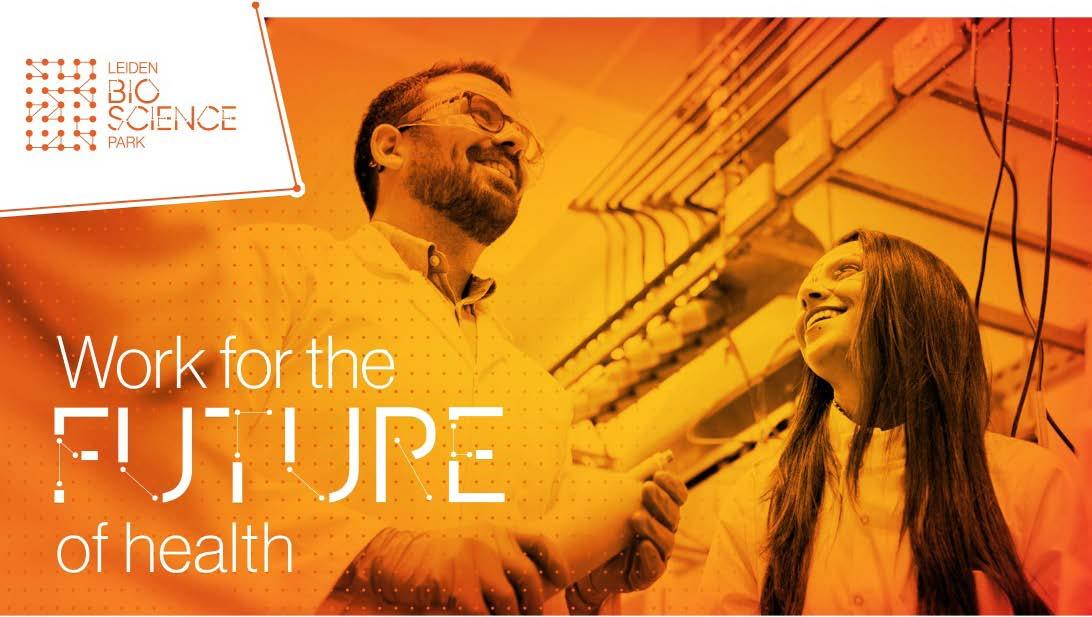
Talent is schaars. Zeker in een sector als de Life Sciences wordt iedere werkgever wel geconfronteerd met dit harde feit. Het nieuwe Job & Internship Portal van Leiden Bio Science Park, biedt zowel werkgevers als (potentiële) werknemers of stagiaires een laagdrempelige mogelijkheid om te verbinden. Of het nu gaat om internationale kennisinstituten, startups, scale-ups of global bedrijven in het Leiden Bio Science Park als Europa’s leading Life Sciences Hub draagt iedereen bij aan een vruchtbaar ecosysteem.
Met 26.000 werknemers. 27.000 studenten. 519 organisaties waarvan 386 Life Sciences. Bijna 180 spin-offs en startups is het Leiden Bio Science Park het grootste, meest levendige en meest innovatieve Life Sciences park in Nederland. Maar dat niet alleen. In Europees verband wordt het park ook beschouwd als een vooraanstaande Life Sciences hub. Logisch dat binnen een hub van een dergelijke grootte de speurtocht naar talent een continue en zeer uitdagende is. Thijs Remijn is daar als
Projectleider Human Capital Agenda en als aanjager voor diverse talent programma’s dagelijks mee bezig. Ook de ontwikkeling van het nieuwe Leiden Bio Science Park Job & Internship Portal behoort tot zijn verantwoordelijkheid.
‘ Met meer dan 500 organisaties kan het voor werkzoekenden lastig zijn om door de bomen het bos te zien. Voor bedrijven is het de uitdaging om goed vindbaar en zichtbaar te zijn. Door het nieuwe Portal, dat in samenwerking met startup 360Pharma en met subsidie vanuit de provincie Zuid-Holland tot stand is gekomen, maken we lijnen korter en profileren het park meer als geheel. Immers, het gaat om het samenspel tussen al die organisaties op het park, dat zorgt voor unieke mogelijkheden. Daaruit ontstaan bijzondere innovaties. Zo biedt het nieuwe Portal, persoonlijke verhalen van mensen die vertellen wat hun beroep inhoudt en hoe ze bij dragen tot de internationale community op het park. Ook kunnen werkzoekenden hun profiel verbeteren door gebruik te maken van vlogs, en dat geldt ook voor de bedrijven.’
Het Leiden Bio Science Park Job & Internship Portal is niet het enige talentprogramma waar op het Leiden Bio Science Park aan gewerkt wordt, zo zijn er onder andere plannen voor een LLO Portal, onboardingsprogramma voor nieuwe medewerkers op het park en vindt eind juni tijdens de Dutch Bio Science week onder andere wetenschapsbattle ‘Vuurvliegen’ plaats waar wetenschappers hun onderzoek presenteren aan basisschoolkinderen. C3 (een communicatie centrum voor jongeren en chemie) en de organisatie van een jaarlijkse science battle om de sector science bekender en meer toegankelijk te maken voor een jong publiek.’
‘We zijn niet voor niets the-place-to-be voor talent dat in Life Sciences wil werken. Dat wordt steeds bekender en zorgt voor versterking van onze Human Capital Agenda, ‘aldus Thijs.
bekijk het nieuwe vacatureportaal https://jobs.leidenbiosciencepark.nl/
After finishing her Master's thesis, Lindsay didn't expect what came next: a job offer from the same company she interned at."This flow from starting my bachelor's to getting my first job at the Leiden Bio Science Park was something I had never imagined when I started my studies." That unexpected path—from student to scientist, all within the Leiden Bio Science Park—has given Lindsay a unique perspective on personal growth and the biotech ecosystem around her.
Since joining the Leiden Bio Science Park community, Lindsay has noticed a shift in herself. "Professional confidence. Within the community of Leiden Bio Science Park, I developed the knowledge I have today, and I am growing into my career faster than expected. I have been given already so many opportunities to enhance my skillset, boosting my confidence that I can make a difference." One of the things that surprised her most about her job was how much teamwork goes on behind the scenes. "The number of collaborations in place to make scientific advancement possible. I, too, am guilty of having thought that most biotech companies mostly keep to themselves, trying to protect everything that happens within. Now that I am part of it, I see many more partnerships and collaborations than most people know."
When asked what it's like to work in a place like Leiden Bio Science Park, Lindsay highlights both the pace and the people."Having so much scientific advancement, so close to home. This makes it easier to reach out and build a network." "Most people at the Leiden Bio Science Park are very passionate about their job, having the feeling they contribute to the greater good. Most people I have spoken to light up when I ask about what they are doing within their job. I also see a lot of people on lunch walks with colleagues, encouraging them to take lunch away from their desks."
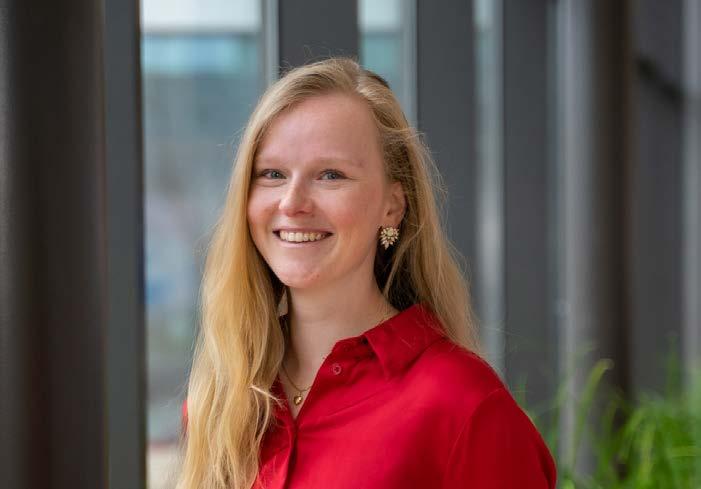
For Andrea Capuano, what matters most in his work at EXIT071 is steady progress. The satisfaction comes not from one standout moment, but from the path his team is building together.
“There isn’t a single moment that stands out as a clear source of pride. What really makes me happy and keeps me going is the journey I’ve been on with EXIT071. Seeing how far we’ve come, step by step, gives me a deep sense of satisfaction.” His work focuses on improving how we detect diseases, with a special interest in extracellular vesicles, the tiny particles released by cells that carry important signals. These could help make diagnoses faster, earlier, and less invasive.
“These vesicles hold incredible potential for early disease detection. Advancing non-invasive approaches to identify meaningful biomarkers directly in body fluids, like urine or blood plasma, is one of the most important frontiers in the coming years.”
Since joining the Leiden Bio Science Park, Andrea has seen how much easier it is to connect with others across labs, disciplines, and company types. “What has surprised me the most, and what’s truly rare to find in other cities, is the remarkable level of connection between startups, universities, large companies, and training institutions.”
That openness has shaped his way of working. It’s also helped him communicate complex topics more clearly, something that comes in handy when talking about extracellular vesicles.
“Many are amazed to learn that our cells naturally produce tiny extracellular vesicles. It’s often surprising to people that such small messengers exist, let alone that we can ‘catch’ them and use them to understand what’s happening inside the body.”
What Andrea appreciates most about the park is how people with different skills and backgrounds can help each other move forward.
“What we might not be able to do in-house at our company is often exactly what someone else nearby specializes in, and vice versa.”
He mentions EXIT071’s collaboration with Leiden University on the Grip On MASH project, which studies severe liver diseases, as one example of how accessible this kind of teamwork is at Leiden Bio Science Park Alongside that, the work culture fits him well. “At Leiden Bio Science Park, one of the aspects I value most is the emphasis on collaboration over competition.”
Andrea does his part by staying visible and involved.“In my own small way, I try to contribute to this culture by actively communicating our work at events, taking part in community initiatives, and always being open to meeting new people and exploring potential collaborations.”
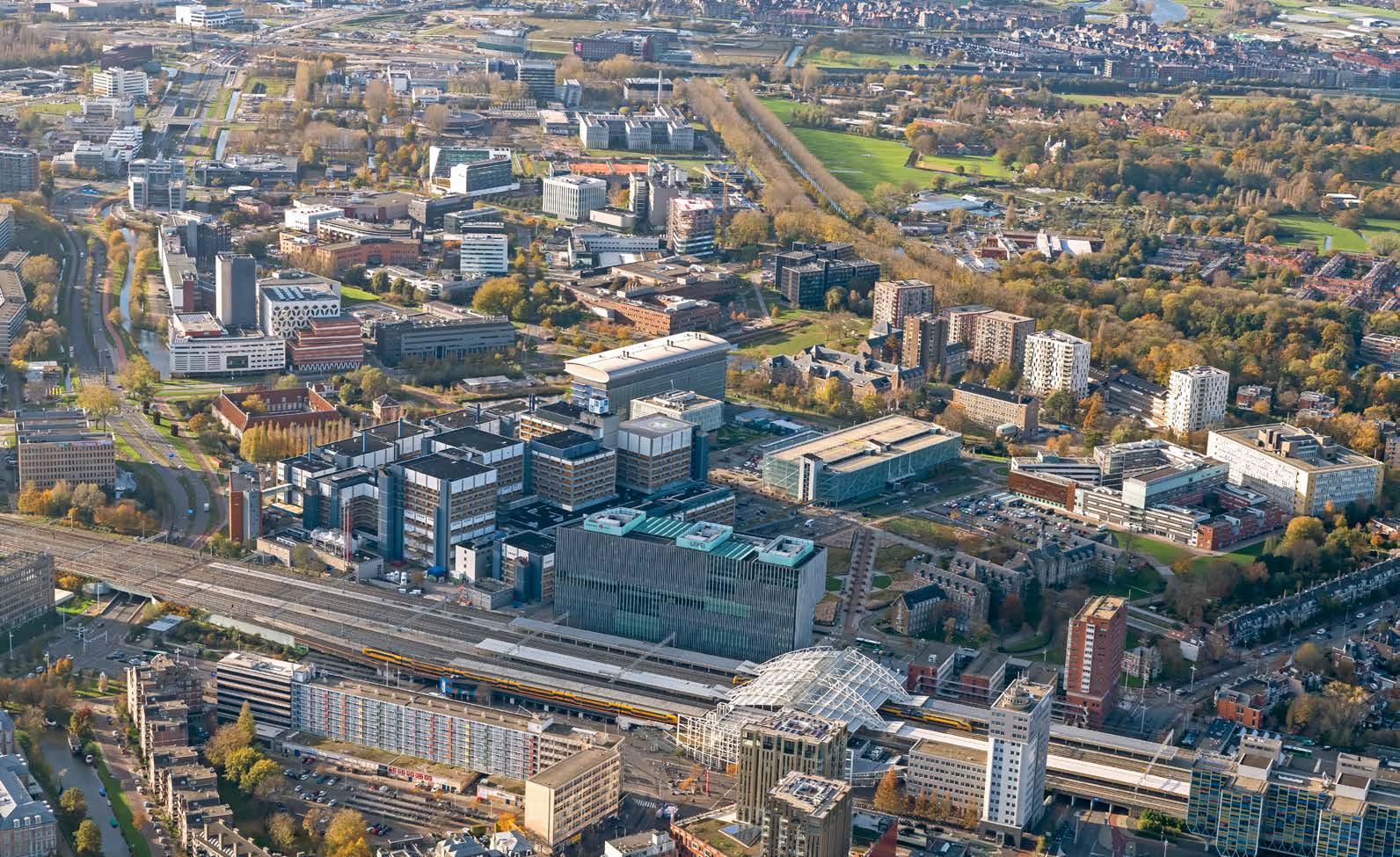
Tiofarma: Meer dan 30 jaar farmaceutische expertise vanuit Oud-Beijerland
Tiofarma is een onafhankelijk, Nederlands familiebedrijf dat al ruim dertig jaar hoogwaardige geneesmiddelen ontwikkelt en produceert. Vanuit Oud-Beijerland wordt dagelijks gewerkt aan farmaceutische oplossingen met wereldwijde impact. Met GMPen FDA-gecertificeerde productielocaties en meerdere in-house analytische labratoria maken we end-to-end ondersteuning mogelijk—van R&D tot en met commerciële productie.
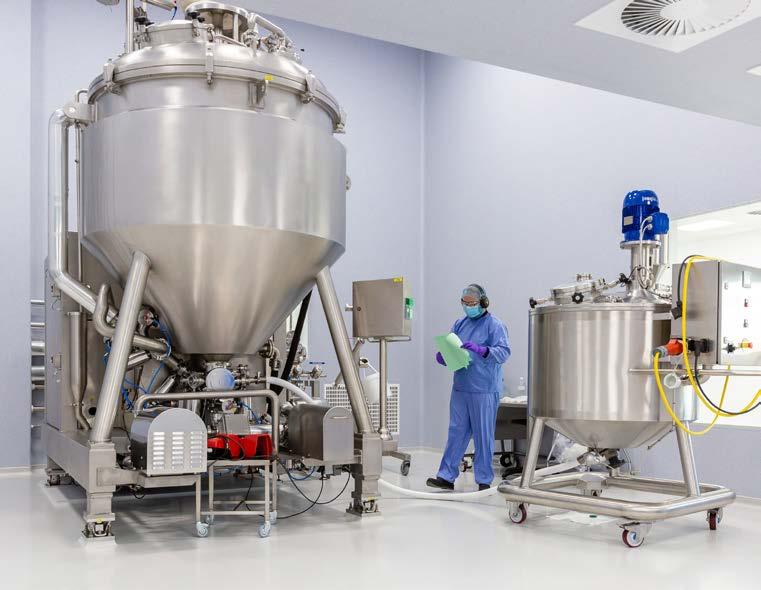
Gespecialiseerd, schaalbaar en multidisciplinair Tiofarma is gespecialiseerd in halfvaste formuleringen zoals crèmes en zalven, neussprays en vaste toedieningsvormen zoals tabletten. Daarnaast beschikt het bedrijf over expertise in farmaceutische ontwikkeling, analytische ondersteuning, regulatory affairs, sourcing, warehousing en commerciële productie. Binnen elk project wordt nauw samengewerkt tussen disciplines, met aandacht voor haalbaarheid, compliance en technische uitvoerbaarheid.
Groeien om te verbeteren
De kernwaarden Samen, Resultaatgericht en Ontwikkelen vormen het fundament van de bedrijfscultuur. Wetenschappers vinden bij Tiofarma een werkomgeving waar expertise wordt benut, kennisontwikkeling wordt gestimuleerd en samenwerking tussen afdelingen vanzelfsprekend is.
Zoals algemeen directeur Hans Waals het verwoordt: “Onze groei is geen doel op zich, maar een middel om onze impact te vergroten. We blijven investeren in onze collega’s, technologie en processen, zodat we onszelf continu verbeteren en voorop lopen op het gebied van kwaliteit.”
Meer weten? www.tiofarma.nl
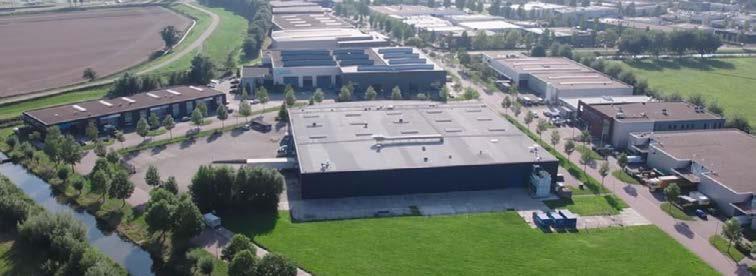
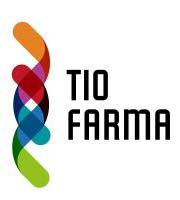
With more than 3,000 passionate team members across the world, we’re on a daily mission to develop the finest vegetable varieties. Our goal? To deliver seeds with that special something: vegetables with better taste, better yields, and better resistance. On our mission to feed the world, we challenge ourselves to gain deeper insights and find the next breakthrough. We grow and innovate together, and everyone’s contribution is valued. Throughout our 85 years, our family values, passion, independence and or focus on innovation have truly set us apart. Over 480 million people are eating our vegetables every day, something we are very proud of!
Our passion isn’t just a trademark; it’s our driving force, propelling our rapid growth. We are one of the very few independent family businesses active at the top of the vegetable-breeding industry. Jaap Mazereeuw, Enza Zaden’s Managing Director and the third generation in command about the power of family businesses: “Family businesses focus on the long term, in their vision, strategy and relationships with people. Our family company has a supportive, energetic culture. Strong team players with an entrepreneurial spirit who easily take responsibilities, is exactly what we like to see in our colleagues”. If you’re ready to explore your potential and thrive in a supportive environment, we welcome you to develop your talents with us. The combination of entrepreneurship, initiative and a healthy dose of determination has made Enza Zaden great and brought us where we are today.
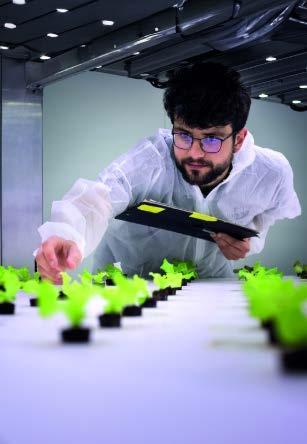

At Hays, we understand that finding the right career opportunity is essential for your success. Life Sciences is one of the most future-oriented sectors, with a significant impact on our economy, society, and science.
What sets Hays apart is our personal approach.
We see our relationships as long-term partnerships, not just transactional. We take the time to understand your ambitions, listen to your career goals, and offer opportunities that truly align with your skills and future plans. Our goal is to guide you toward the right next step in your career.
With our extensive network and deep knowledge of the Life Sciences industry, we connect you with opportunities that will not only challenge you but also help you grow. Our consultants have proven expertise in recruiting across various Life Sciences fields.
Whether you’re seeking a new challenge or the next step in your career, we’re here to help you find the right fit.
At Hays, we are more than just recruiters – we are your partner in career development, working with you to shape your future.
Want to know more? Visit us at www.hays.nl.
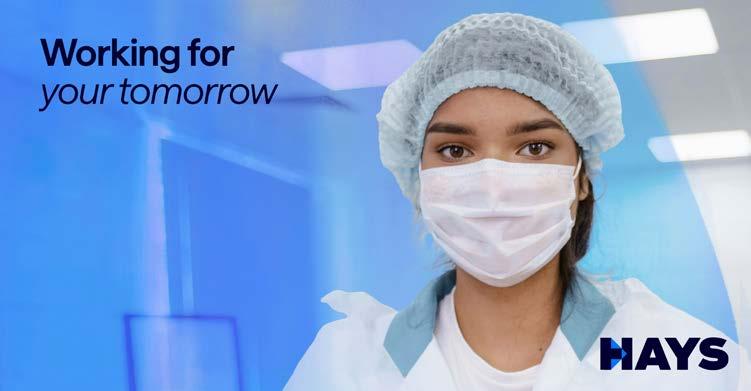

‘Wanneer wij olie of andere bronnen blijven gebruiken, produceren we te veel CO2 en dan is de aarde gedoemd uit te sterven. Een grondstoffentransitie is dus een absolute noodzaak.’ Duidelijke woorden van aanstaand lector Biobased Innovations van de HAN Christof Francke.
Hij vervolgt: ‘We maken plastics uit olie. Dat zijn we gewend, daar hebben we fabrieken voor. Maar plastics maken uit planten is nog lang geen standaard. En dat terwijl micro-organismen in principe alles kunnen maken wat je maar wilt. Ook olie. Binnen het lectoraat hebben we de kennis om het verschil te maken. Dat willen we doen samen met studenten, onze partners en Centre of Expertise HAN BioCentre.’
De belangrijkste technologie om die dingen te kunnen veranderen, is de biotechnologie. Het is een van de thema’s die centraal staan binnen het lectoraat Biobased Innovations. Francke: ‘We werken aan de productie van biomoleculen uit organische reststromen.’ Hierbij is bijzondere aandacht voor het vinden van duurzame scheidingsmethoden en circulaire fermentatieve productieprocessen voor commercieel toepasbare stoffen als vezels en harsen.
Het tweede thema waaraan binnen het lectoraat wordt gewerkt, is data science. ‘Voor ons betekent dit de toepassing van next generation sequencing voor agro, chemie, food en health en de ontwikkeling van interfaces, en dataminingstrategieën en modellen’, meldt Francke. Met speciale attentie voor het kunnen monitoren van microbiële metabole activiteit (in de bioreactor, maar ook in de bodem) en voor het gericht ontwerpen van starterculturen en enzymen.
Het team
Het team van het lectoraat bestaat uit mensen met verschillende expertises. Naast Francke zijn er associate lector Biobased Technology Richèle Wind en nog 25 medewerkers, waaronder docentonderzoekers, technicians, projectleiders en ondersteund personeel. De vakgebieden zijn micro- en moleculaire biologie, analytische chemie en bio-informatica.
Ondanks zijn aanstaande installatie als lector, is Francke al geruime tijd betrokken bij de HAN en bij het lectoraat. Vanaf 2013 is hij als onderzoeker in dienst van de HAN en sinds 2016 is hij associate lector, met een focus op bio-informatica en data science ten behoeve van biotechnologische toepassing.
Daarvoor was hij tien jaar actief in publiek-privaat onderzoek, eerst op het gebied van genomics (via TIFN, Kluyver Centre en CMBI).
Francke heeft een brede wetenschappelijke carrière in de natuur- en levenswetenschappen. Na zijn studie Scheikunde en zijn militaire diensttijd promoveerde hij in de biofysica. Hij deed ervaring op met moleculaire biologie en systeembiologie via postdoc posities in Jeruzalem en Amsterdam. Qua moleculaire en functionele focus vormt het identificeren, produceren, zuiveren, karakteriseren en ontwerpen van eiwitten de rode draad in zijn werk. Daarbij is het betekenis halen uit data het fundament en staat het kunnen toepassen van de kennis uit zowel ‘wet-lab’ als ‘dry-lab’ voorop.
De installatie van Christof Francke is gepland voor donderdag 3 juli 2025 op de HAN Campus in Nijmegen. Voorafgaand aan het officiële programma is een innovatiemarkt op Laan van Scheut 2 in Nijmegen.
Tijdens de officiële installatie houdt Francke zijn intreerede met als titel Werken aan een groene horizon met duurzame biobased innovaties. Aanmelden kan via han.nl/biobased-innovations.
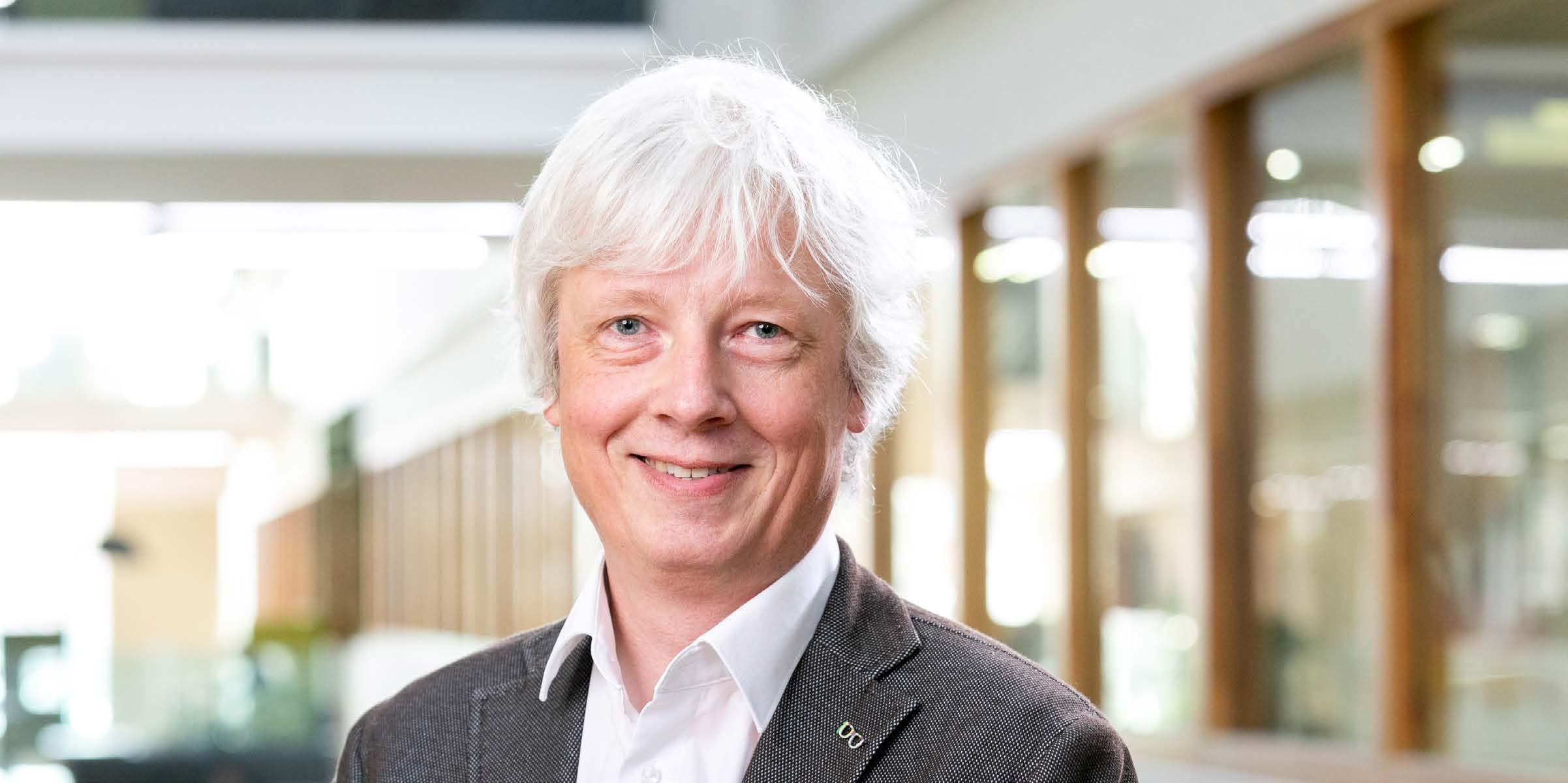
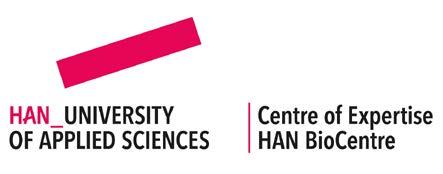
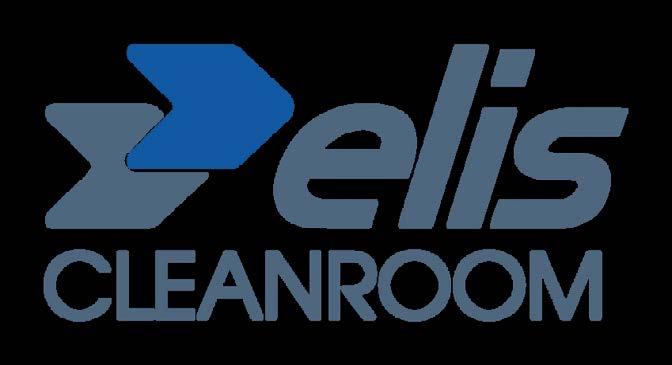
Regeneratieve Regeneratieve & Cellulaire & Cellulaire
Industrie Industrie
Herbruikbare cleanroom oplossingen voor 1 productiebatch, 1 leven. Ondersteuning van deze industrie in hun levensreddende missie.
Wij hebben de kledingoplossing die u nodig hebt!
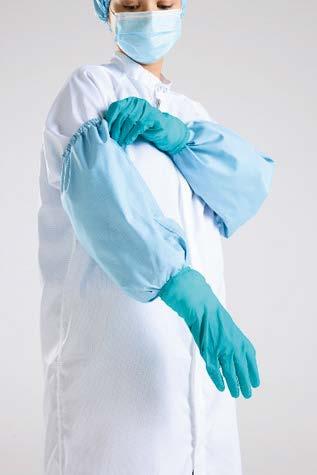
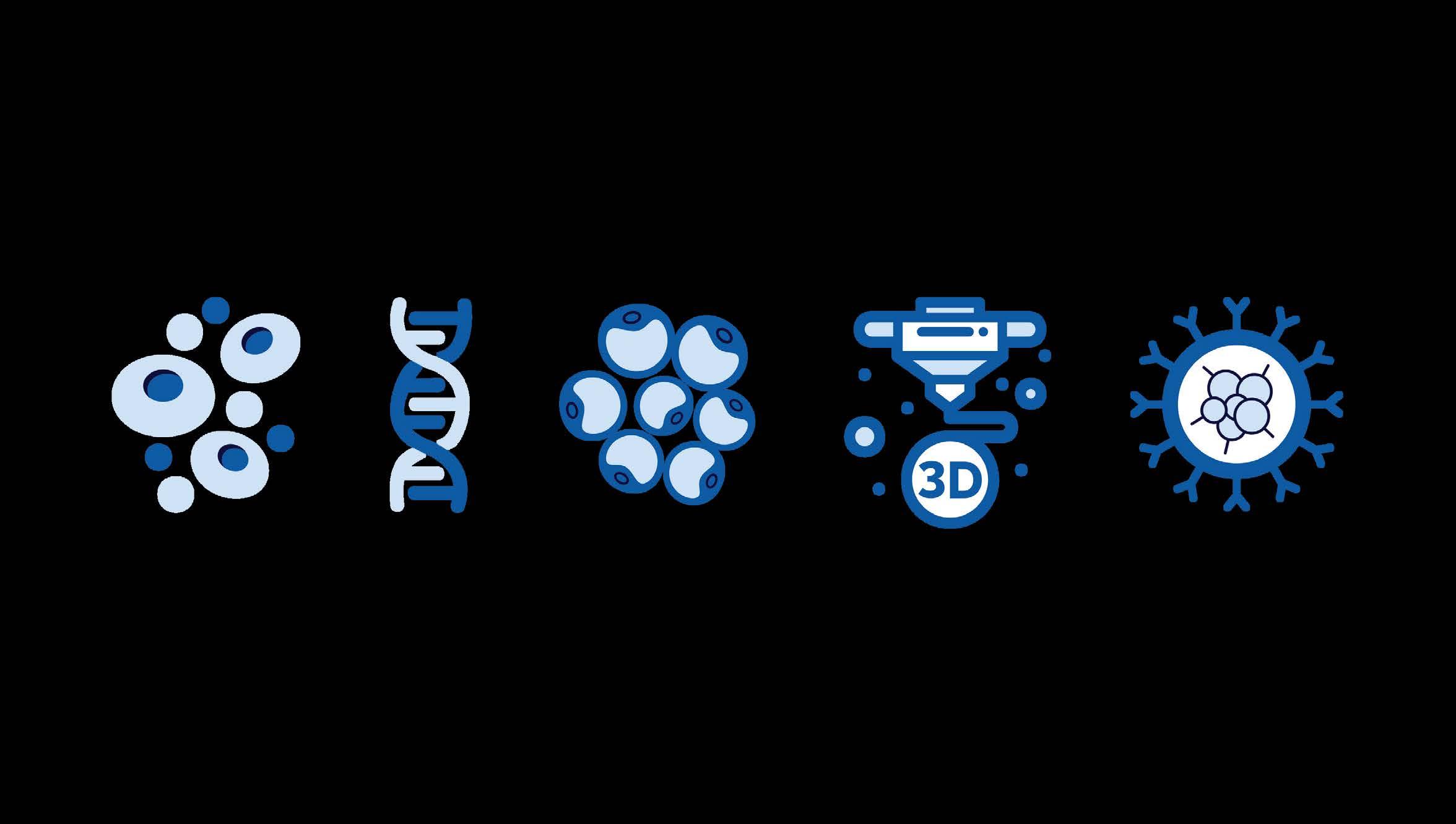
Door te kiezen voor Elis Cleanroom investeert u niet alleen in de juiste Cleanroomkleding, maar kiest u ook voor een partner in herbruikbare wasoplossingen die zich inzet voor de toekomst met duurzame, kosteneffectieve en innovatieve diensten.
Join our growing community today and take the next step in your career or recruitment journey with BCFjobs!
Projectleider Emissiemetingen
Petten
CLS Services
Technical Support Specialist
Utrecht Science Park
GenDx
Development Technician A
Oud Beierland
Tiofarma
Software Consultant EPD
Amsterdam
ChipSoft
Head of Analytical Chemistry
Enschede
Oxford Global Resources
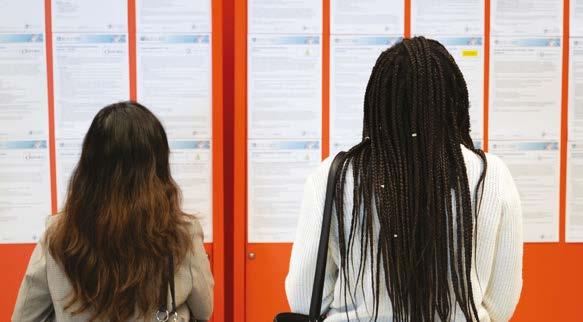
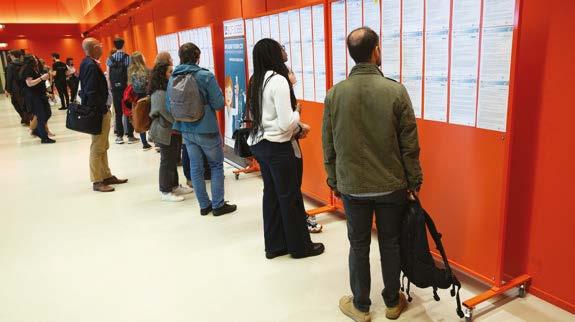
Quality Coordinator
Geldermalsen
CLS Services
Project Manager R&D Oncology
Utrecht Science Park
GenDx
Lab Automation Consultant Netherlands
7 PhD positions available Leeuwarden
Wetsus
Accountmanager Life Sciences (ref. 2407) Randstad regio BIRD Recruitment







Calling all life sciences companies, from start-up to multinational! Are you looking to attract top talent? Advertise your jobs on our career platform, during events and in the next edition of BiotechNEWS! Consult the BCF team for more info via info@bcfcareer.com or +31(0)35 303 0013.
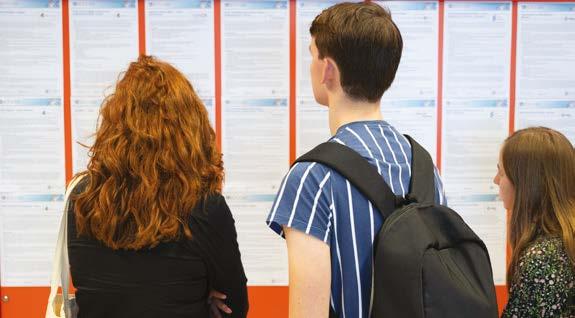
QA & Risk Manager
Utrecht AMT Medical
Technician Operations (Molecular Biology)
Utrecht Science Park
GenDx
Professional CSV Consultant Netherlands wega
Associate QA Specialist
Netherlands
Real
YOUR VACANCY HERE? Visit www.bcfcareer.nl/jobs

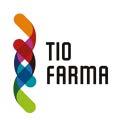
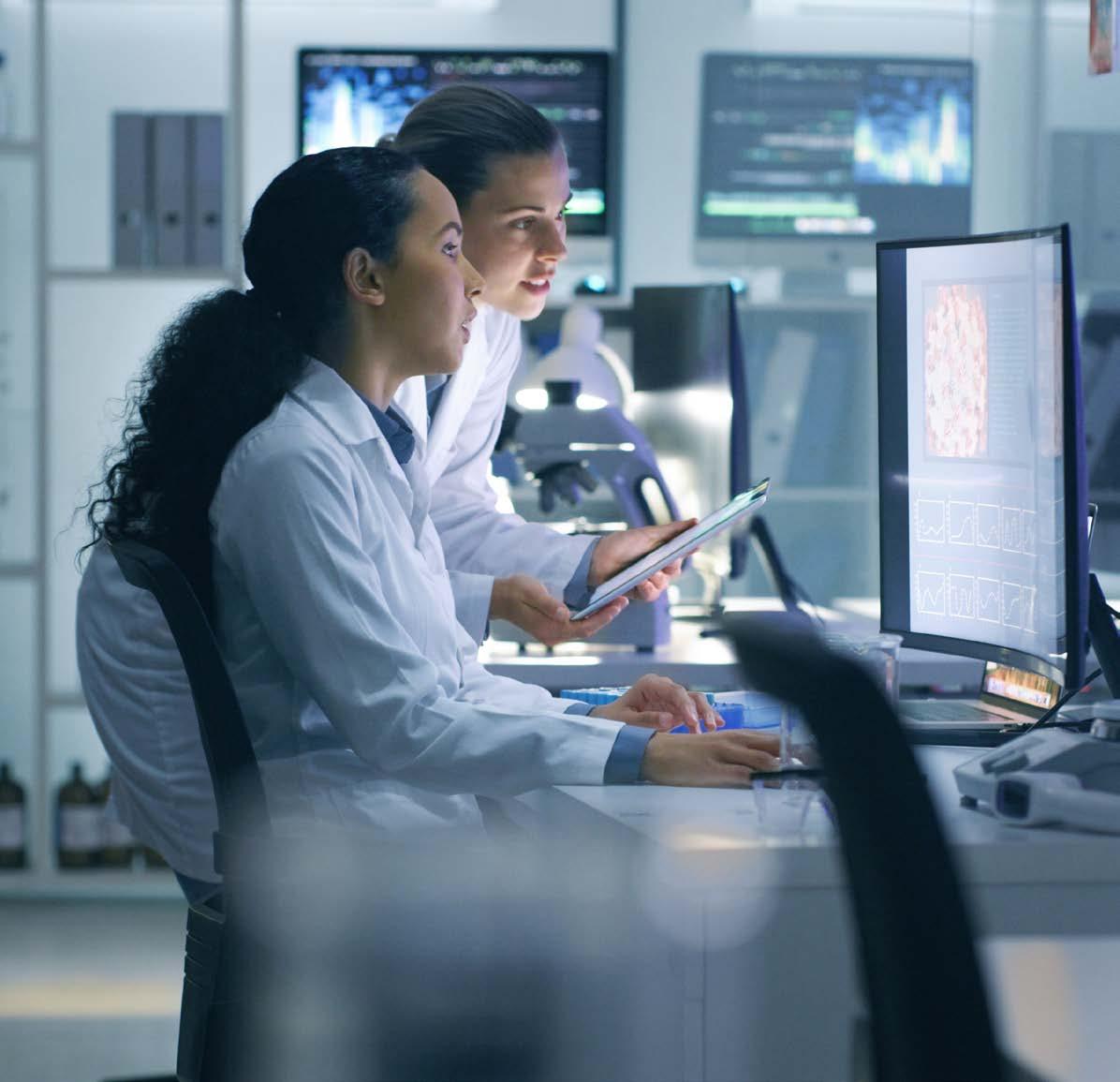
In the fast-paced world of life sciences and healthcare, it can be daunting to navigate regulatory hurdles and stay ahead of market trends. At Loyens & Loeff, we are dedicated to supporting your innovations and helping you to overcome these challenges. Whether you’re developing ground-breaking biotech solutions or improving patient care through e-health, our expert team is here to provide the strategic legal and tax solutions you need to succeed.
Why choose Loyens & Loeff?
We have a deep understanding of the unique challenges and opportunities within the life sciences and healthcare sector, and we ensure that our solutions are always aligned with the latest developments and regulations. We work closely with you to achieve your objectives and help your business grow, because your success is our goal. Our team is accessible, committed, trustworthy and effective, earning us high rankings in The Legal 500 and Chambers Europe.
Contact us today
Ready to elevate your business? Get in touch with our Life Sciences & Healthcare experts to find out how we can help your business grow and innovate.
In the fast-paced world of life sciences and healthcare, navigating regulatory hurdles and staying ahead of market trends can be challenging.
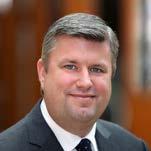
Tom van Helmond
Partner
T +31 20 578 52 17
M +31 6 51 84 65 70
E tom.van.helmond@loyensloeff.com

Vincent van der Lans
Partner
T +31 20 578 59 85
M +31 6 57 70 80 23
E vincent.van.der.lans@loyensloeff.com

Dieuwke Hooft Graafland
Senior Attorney at Law
T +31 20 578 53 81
M +31 6 50 52 18 78
E dieuwke.hooftgraafland@loyensloeff.com
What others say: “The Healthcare and Life Sciences practice has consistently demonstrated a deep understanding of the unique challenges and opportunities within the life sciences and healthcare industry, offering tailored advice that balances legal expertise with industry knowledge. Their multidisciplinary team combines legal, regulatory, and tax expertise, enabling them to provide integrated solutions that address the full spectrum of challenges in healthcare and life sciences. They have a strong track record of navigating complex regulatory environments, both at national and EU levels.”
Legal 500 – 2025.
loyensloeff.com
De kracht van nabijheid
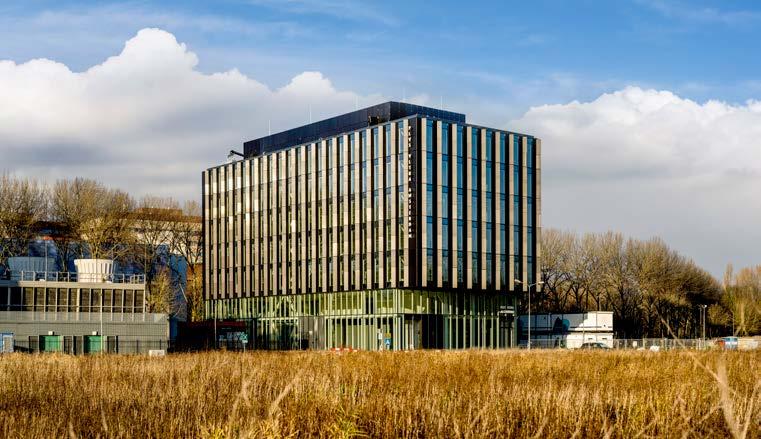
De Nederlandse wetenschap speelt een steeds grotere rol in genetisch onderzoek en medische innovatie. Door de groeiende vraag naar gepersonaliseerde behandelingen en de razendsnelle technologische ontwikkelingen is precisiegeneeskunde relevanter dan ooit. Dankzij een sterke combinatie van academische kennis en ondernemerschap groeit Nederland uit tot een koploper op dit gebied.
Science clusters en ecosystemen
Dat deze innovatie zich steeds meer ontwikkelt, komt mede door het ontstaan van sterke science clusters. Deze clusters, zoals universiteitscampussen en science parken, spelen een cruciale rol in het bevorderen van werkgelegenheid, nieuwe bedrijfsactiviteiten en het vinden van oplossingen voor maatschappelijke problemen. Dit blijkt onder meer uit het impactrapport “Inventarisatie en meerwaarde van campussen in Nederland” van Buck Consultants International (BCI) dat eind vorig jaar verscheen. De kracht van science clusters ligt niet alleen in het stimuleren van lokale bedrijfsactiviteiten, maar vooral ook in het versnellen van innovatie.
Hierbij is van belang dat er verschillende factoren aanwezig zijn zoals kennis, talent en kapitaal. “Juist door dit in nabijheid van elkaar te brengen, blijft de ontwikkeling van technologieën en innovaties versnellen” zegt Peter van den Heuvel, Senior Leasing Manager bij Kadans Science Partner. Naast de volwassen science parken die Nederland rijk is, worden er ook nog diverse science clusters doorontwikkeld en zelfs nieuw opgericht. Allemaal om samenwerking en innovatie te bevorderen.
Amsterdam als centrum voor medische innovatie Het hart van medische innovatie klopt in Amsterdam rondom het Amsterdam UMC. Binnen het Amsterdam Life Sciences District werken onderzoekers aan grensverleggende therapieën,
waaronder op het gebied van genetische sequencing en precisiegeneeskunde. Een mooi voorbeeld hiervan is het onderzoek naar het RS-virus, dat leidde tot de ontwikkeling van het vaccin Nirsevimab voor pasgeborenen.
De regio blinkt ook uit in technologische toepassingen zoals 3D-printing. Onderzoekers en bedrijven ontwikkelen innovatieve implantaten en
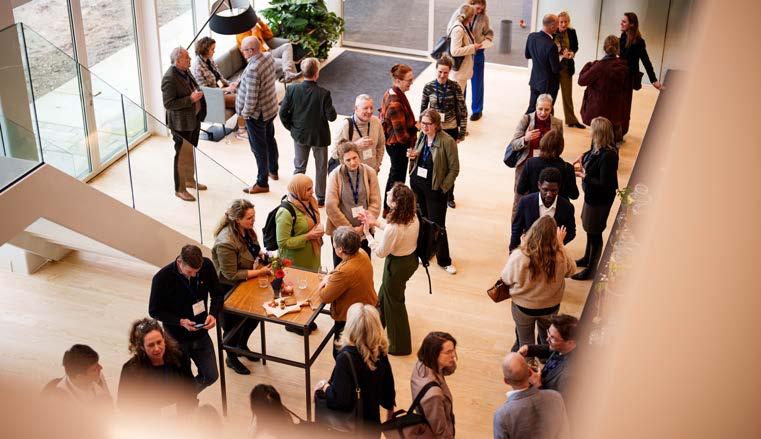
protheses die nauwkeurig kunnen worden afgestemd op individuele patiënten. Deze nauwe samenwerking tussen wetenschap en bedrijfsleven zorgt ervoor dat medische doorbraken sneller hun weg vinden naar de praktijk.
Peter benadrukt het belang van deze kruisbestuiving: “Het is niet alleen de technologie, maar juist de directe samenwerking tussen onderzoekers, ondernemers en investeerders die zorgt voor een stroomversnelling. Dat zien we dagelijks terug in de omgeving rondom het Amsterdam UMC.”
Plus Ultra Amsterdam: katalysator van samenwerking
Rondom het Amsterdam UMC - locatie AMC staat een nieuw science cluster volop in ontwikkeling: het Medical Business Park. Dit park richt zich vooral op complexe patiëntenzorg en zeer gespecialiseerde behandelingen van zeldzame medische aandoeningen. Als aanjager van dit cluster is het eerste multi-tenant gebouw ontwikkeld door Kadans Science Partner: Plus Ultra Amsterdam. Dit high-end gebouw biedt huisvesting aan bedrijven en onderzoekers die werken aan baanbrekende innovaties en de ontwikkeling van nieuwe behandelingen. De combinatie van ultramoderne laboratoria en een open atrium bevordert samenwerking op natuurlijke wijze. “Wij geloven sterk in de kracht van nabijheid. In Plus Ultra Amsterdam brengen we partijen samen die werken
aan oplossingen voor dezelfde maatschappelijke uitdagingen, zoals het verbeteren van diagnostiek of het personaliseren van behandelingen,” aldus Peter.
De focus op open innovatie is daarbij cruciaal. Kadans faciliteert daarom niet alleen de ruimte, maar stimuleert de onderlinge verbinding tussen huurders, onderzoekers en externe partners, bijvoorbeeld door het organiseren en hosten van netwerk- en kennisevenementen.
Technisch hoogstaand
Al deze inspirerende plannen hebben natuurlijk wel de juiste ruimte nodig. Plus Ultra Amsterdam heeft daarom niet alleen een mooie uitstraling, maar biedt ook technisch hoogwaardige mogelijkheden voor laboratoria en andere onderzoeksfaciliteiten. “Kadans heeft meer dan 20 jaar ervaring opgedaan in het ontwikkelen van laboratoria. Met onze ‘Lab Ready’ standaard overhandigen we niet alleen de sleutels, maar de mogelijkheid om direct van start te kunnen gaan in een op maat gemaakt lab”, legt Peter uit. Daarnaast is Plus Ultra Amsterdam met een BREEAM Outstanding (de maximale score) certificering tevens een van de duurzaamste commerciële laboratoriumgebouwen van Nederland.
Laten we samen bouwen
In een wereld waarin de druk op gezondheidszorg alsmaar toeneemt en de behoefte aan precisiegeneeskunde groeit, zijn plekken zoals het Medical Business Park in Amsterdam onmisbaar. Ze vormen de fysieke en inhoudelijke infrastructuur waar samenwerking en innovatie wordt gestimuleerd.
Ook benieuwd geworden wat Plus Ultra Amsterdam kan betekenen voor jouw onderzoek? Maak kennis met Peter: p.heuvel@kadans.com of +31 6 13 89 48 90 voor een kop koffie of kom direct langs voor een exclusieve kijk in het gebouw.
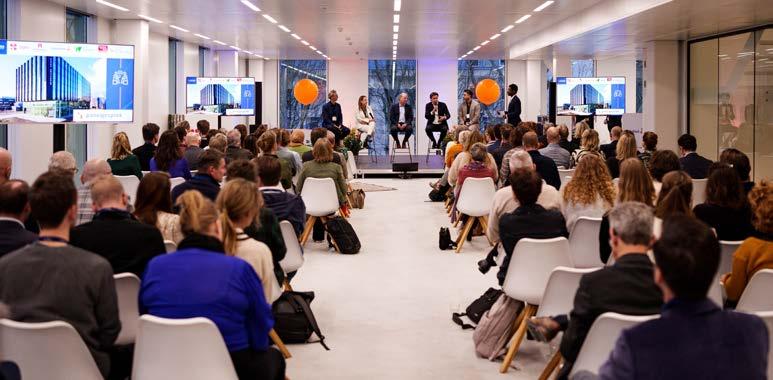


Uitdagend tijdperk biedt kansen
De tijden zijn veranderd in de life science industrie. Waar de industrie de afgelopen jaren profiteerde van een uitzonderlijke groei dankzij lage kapitaalkosten en een explosieve vraag naar geneesmiddelen, staat de markt er nu heel anders voor. De kosten van kapitaal zijn fors toegenomen en de markt is competitiever dan ooit. “Het draait niet meer alleen om het beste idee,” zegt Karst Jan de Jong, managing director van Avertim Nederland. “Wie vandaag wil concurreren moet ook in staat zijn een idee razendsnel en kosteneffectief te realiseren.”
Van gouden tijden naar schaarste De Jong schetst de omstandigheden in de industrie: “De grote vraag naar geneesmiddelen in de coronaperiode, in combinatie met een lage rente, creëerden een explosie aan investeringen en groei. Hierdoor is de concurrentie moordend geworden. Daarnaast hebben bedrijven meer personeel aangenomen en nu moet die investering terugverdiend worden.”
Volgens De Jong biedt dit uitdagende tijdperk ook kansen. “Bedrijven die er nu voor kiezen een efficiënte operatie in te richten, bouwen aan een duurzame toekomst.” Het verbeteren van processen in life science is de expertise van zijn consultancybureau Avertim. De van oorsprong Belgische organisatie, actief in meerdere Europese landen, helpt life science bedrijven hun interne ‘machine’ strak in te richten: “Onze mensen weten hoe je ontwikkel- en productieprocessen structureel verbetert.”
Digitalisatie en kunstmatige intelligentie als sleutel naar efficiëntie Hierbij spelen digitalisatie en kunstmatige intelligentie een steeds grotere rol. “Vroeger draaide alles om de inzichten en intelligentie van mensen. Nu is het zaak die te koppelen met datagedreven inzichten.”
Hoewel kunstmatige intelligentie veel wordt genoemd als dé gamechanger in de industrie, is de toepassing ervan in gereguleerde GMP-omgevingen nog geen dagelijkse realiteit. De Jong ziet vooral het potentieel: “AI biedt kansen om processen te versnellen, consistent en voorspelbaarder te maken – denk aan het verminderen van menselijke fouten, het sneller analyseren van data of het standaardiseren van rapportages. Maar in een streng gereguleerde omgeving is het
implementeren van zulke technologie geen kwestie van ‘even aanzetten’.”
Daarom benadert Avertim AI als een strategisch hulpmiddel op de middellange termijn. “We pionieren samen met klanten aan toepassingen die nu nog in een verkennende fase zitten. Dit zit met name op de ‘augmented human’, oplossingen waarbij medewerkers ondersteund worden door AI-technologie. Denk hierbij aan snel grote hoeveelheden data doorzoeken op gelijke usecases, het opstellen van standaard rapportages of documentatie. De AI ondersteunt hier maar maakt zeker nog geen eigen besluiten. De technologie is er, maar het moet nog ingepast worden in de GMPwerkwijze. Dat vraagt om zorgvuldigheid én visie.” Volgens De Jong is dit juist hét moment om te investeren in de voorbereiding. “Wie nu begint met experimenteren en bouwen aan betrouwbare, uitlegbare AI-oplossingen, zal straks het verschil maken in snelheid en kwaliteit. Wij helpen klanten die eerste stappen zetten – met respect voor compliance én oog voor de toekomst.”
Combinatie van denken en doen Avertim werkt nauw samen met zijn klanten – van grote farmaceutische bedrijven tot innovatieve biotech. Het adviesbureau is actief op verschillende niveaus binnen organisaties: van strategische vraagstukken tot het optimaliseren van productieprocessen of compliance management.
“We zijn een consultancyclub die de link legt tussen strategie en operatie,” aldus De Jong. “We denken mee aan de richting, en doen ook de praktische implementatie. Dit gaat om digitalisering van processen, het opzetten van nieuwe productiefaciliteiten en het ondersteunen van introductie van nieuwe geneesmiddelen. Consultancy gaat bij ons verder dan PowerPointdecks – het draait om uitvoering, resultaat en impact.”
Wat Avertim volgens De Jong onderscheidt, is de nauwe betrokkenheid bij de klant: “We werken samen met onze klanten. We komen vanuit de inhoud en kennen de processen, de regelgeving, de tools én de cultuur van de industrie. Daarnaast hebben we expertise op gebieden zoals change management, procesoptimalisatie, digitalisering en een externe blik. Hierbij zijn onze mensen flexibel en breed inzetbaar. Dat maakt samenwerken met ons effectief én plezierig.”
Een ecosysteem vol kansen
Nederland zou volgens De Jong ook volop in moeten zetten op een sterke Life Sciences industrie. Dit ecosysteem heeft veel te bieden: “De R&D en productie bieden veel hoogwaardige en interessante banen en de sector draagt veel bij aan het verdienvermogen van de BV Nederland. Daarnaast is medische innovatie ook goed voor patiënten. We hebben in Nederland al een sterke basis, van academie tot klinische fase, van startup tot gevestigde speler – de keten is in de basis goed georganiseerd. Maar we moeten blijven investeren om competitief te blijven. Investeren in life sciences is investeren in de toekomst van Nederland.”
Avertim als schakel tussen ambitie en realisatie De Jong is er duidelijk over: Avertim wil de verbindende schakel zijn tussen ambitie en realisatie. “Wij helpen bedrijven hun ideeën te vertalen naar uitvoerbare, schaalbare processen. Want alleen dan maak je impact – niet alleen op de markt, maar ook op het leven van patiënten.”
Hij besluit hoopvol: “We bevinden ons in een turbulente periode in de wereld. Dat vraagt om nieuwe manieren van denken en werken om als industrie in Nederland competitief te kunnen blijven. Maar juist in zo’n tijd ligt de kans om je te onderscheiden. En daar helpt Avertim graag bij.”
Samenwerking op AI implementatie
AI gaat tot in de haarvaten van iedere sector verandering brengen. Dat geldt ook voor de Life Sciences industrie. Avertim werkt daarom samen IBM in het kader van Watsonx., het AI- en dataplatform. Avertim brengt als partner voor de Life Sciences sector kennis in van de industrie, processen en implementaties. IBM levert kennis op het gebied van AI-modellen, data-governance, -privacy en -security.
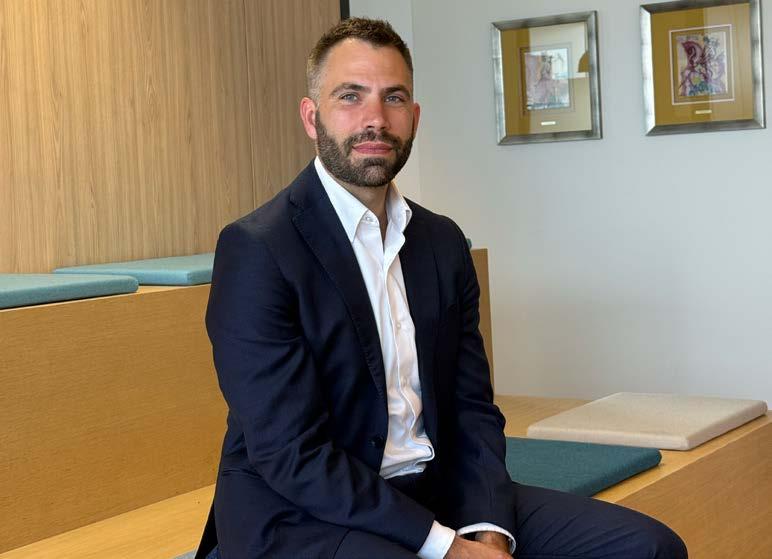
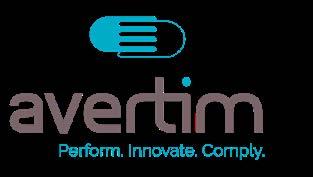
Transforming healthcare with technology:
Healthcare systems globally face mounting pressures: escalating costs, an aging population, and a shortage of skilled personnel. These factors threaten care delivery and equitable access. To address this, the sector must pivot toward a productivity-driven model emphasizing efficiency and improved outcomes.
This transformation hinges on prioritizing preventive care, facilitating early diagnosis through advanced biomarkers, tailoring therapies via personalized medicine, and enabling continuous patient monitoring beyond traditional settings. Integrating smart automation within hospitals, leveraging sensors and actuators to streamline workflows, is equally crucial.
Technological innovation is essential. When thoughtfully implemented, it alleviates workforce pressures, enhances patient outcomes, and curbs costs. Advancing healthcare productivity through innovation is foundational to building a resilient, accessible system.
TNO is at the forefront, committed to delivering impactful innovations addressing modern healthcare challenges. With a multidisciplinary approach, TNO offers a diverse portfolio of cuttingedge technologies. Key areas include digital therapeutics, wearable health technologies, retinal oximetry imaging, integrated photonics-based diagnostics, and personalized medicine through 3D printing. TNO also focuses on privacy-preserving ICT solutions, ensuring secure data use. Together, these technologies represent a cohesive strategy to reshape healthcare delivery.
Innovative health measurements, like wearable sensor technology, play an essential role in remote healthcare and research. TNO develops validated digital biomarkers for chronic diseases, including cardiovascular disease, diabetes, autoimmune diseases, and sleep disorders. TNO’s infrastructure supports remote data collection from wearables and apps, enabling real-time feedback in clinical studies. Collaborating with patients, professionals, pharma, and medTech companies, TNO co-creates biomarkers rooted in patient engagement.
Non-invasive devices provide easy access for diagnosis and monitoring. TNO uses light to create innovative devices. Light travels through tissue,
is absorbed by molecules and scattered in different directions. Such effects detect health biomarkers like oxygen saturation, vessel diameter and bilirubin concentration. TOMCA® designs optical devices measuring health uniquely. Examples include a fundus camera imaging retinal oxygen distribution or a wearable monitoring vasoconstriction. Integrated photonics and ultrasound expertise gave birth to the IPUT®, a highly sensitive transducer increasing ultrasound image resolution, enabling precise, non-invasive early detection.
The TNO Holst Centre in Eindhoven is a hub for innovation in microelectronics and photonics, pioneering wearable technology for healthcare. Collaborating with international partners, the Centre translates research into scalable solutions. Leveraging printed electronics, hybrid integration, and photonics, Holst Centre enables platforms like vital sign monitoring patches, smart wound care systems, wearable ultrasound devices, and photonic biosensors. Collaborating through hubs like Chip Integration Technology Centre (CITC) and Photonic Integration Technology Centre (PITC), the Centre accelerates innovation with proven success, such as developing an ECG monitoring patch with Philips and other companies.
Holst Centre focuses on addressing healthcare needs through:
• Smart wound care with integrated sensors
• Wearable ultrasound systems for diagnostics






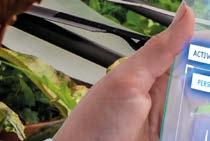
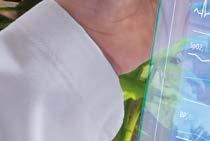
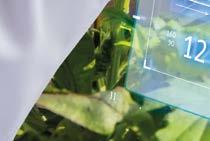






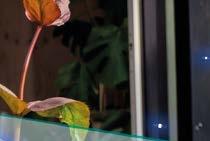






• Sensor-enabled smart catheters
• Ultrasensitive biosensors for infection detection
Supported by initiatives like NextGen HighTech and PhotonDelta, and projects like PhotonMed, Holst Centre aims to bring groundbreaking technologies to clinical practice.
TNO’s EFAM group develops 3D pharmaceutical printing for personalized medications. Using semisolid extrusion technology, this approach enables flexible manufacturing of tailored tablets. In collaboration with Erasmus MC, TNO installed a 3D printer in a hospital pharmacy for pediatric patients. Research is expanding to other patient groups, with 3D-printed medication expected soon.
Healthcare data is sensitive and must be handled carefully. Privacy Enhancing Technologies ensure data is kept at its source, sharing only aggregated or anonymized results through advanced algorithms and cryptographic methods. TNO furthers research and deployment of these technologies to address data sharing challenges, aiming to transform healthcare delivery, making it more efficient, accessible, and personalized.
For more information, please contact wim. vanhartingsveldt@tno.nl




















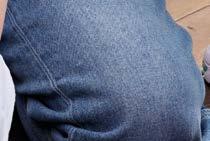










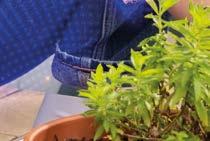




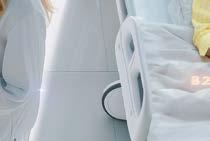





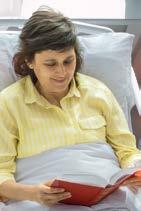

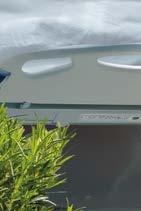


Slimmere software, betere supplychain:
Stel je eens voor dat jouw lab management zo effectief is dat het vrijgaveproces van ingrediënten en medicijnen met dagen wordt verkort. Of dat je zoveel controle en inzicht hebt op het proces voor productkwaliteit dat je product gegarandeerd veilig is bij uitlevering aan je klant. En wat als je productieplanning zo transparant en flexibel zou zijn, dat je proactief kan inspelen op verwachte vertragingen door grondstoftekorten? Dat is zéker een haalbare kaart, vindt Gerben Donken, director Life Sciences bij NTT DATA Business Solutions. De laatste jaren werkte hij met zijn consultants aan softwarematige aanvullingen – specifiek voor de life sciencesindustrie – op het veelgebruikte ERP-systeem SAP om processen in een fabriek, maar ook over de volledige breedte van de operatie en de distributieketen, nog strakker aan te kunnen sturen.
Een complex speelveld vraagt om geïntegreerde oplossingen
In de farmaceutische industrie is geen ruimte voor fouten. Maar er is wél ruimte om je processen zo te optimaliseren dat je risico’s elimineert en bovendien ook nog efficiënter te werk gaat, stelt Donken. En dat is hard nodig, want producenten in life sciences kampen met steeds grotere uitdagingen: schaarste van grondstoffen, supplychains waar niet altijd op vertrouwd kan worden, groeiende concurrentie die de marges drukt, strengere regelgeving en toenemende druk op efficiëntie en veiligheid. Een complex speelveld dus. “Maar op dat veld liggen genoeg mogelijkheden om processen in de fabriek en de keten aanzienlijk te verbeteren en zo effectiever en kostenbesparend te werken. Met behulp van software en de specialistische kennis van experts die precies weten wat er op de productievloer in deze sector speelt, ontstaat een krachtige combinatie die de basis vormt voor functionaliteiten die écht het verschil maken in het dagelijkse werk van productiebedrijven”, zegt Donken.
“De kracht zit in de combinatie van SAP-technologie en domeinkennis uit de praktijk –dat is waar wij echt het verschil maken.”
Niet alleen worden producenten geconfronteerd met uitdaging van buitenaf. Ook intern kennen farmaceutische productieprocessen veel
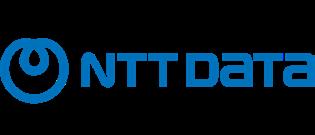
afhankelijkheden en daarmee uitdagingen. Donken: “Het is belangrijk om het silodenken in faciliteiten te minimaliseren en zoveel mogelijk processen digitaal met elkaar te verbinden,” legt hij uit. “Hierdoor verlaag je niet alleen het risico op fouten. Je verhoogt ermee de productkwaliteit, verbetert de patiëntveiligheid en kan hierdoor ook de integriteit van je data beter borgen.”
Lab management versnelt vrijgaveprocessen aanzienlijk
Gerben Donken benadrukt vooral de rol van het laboratoriumbeheer. “Het lab is de spil in het vrijgeven van grondstoffen, halffabricaten en eindproducten. Snelle vrijgave zorgt voor een gestroomlijnder productieproces, maar dat is voor menig producent nog steeds een uitdaging. Bottlenecks zijn onder meer papiermatig werken, het niet slim kunnen combineren van soortgelijke tests over verschillende batches en het gebrek aan inzicht welke tests prioriteit moeten krijgen vanuit een productie- en klantperspectief. We ontwikkelden daarom een lab managementoplossing voor geïntegreerde planning en het testen en monitoren van quality control-samples, die volledig integreert met je supplychainprocessen. Daardoor bespaar je als producent tijd op kwaliteitscontroles en batchreleases zonder in te leveren op kwaliteit.”
Betrouwbaarheid van cold chain management is onmisbaar
Nog zo’n cruciaal proces om de integriteit van grondstoffen en medicijnen te bewaken, is de cold chain. “Omdat een standaard ERP daarin niet voorziet op het niveau dat wenselijk is in GxP-omgevingen, hebben we een oplossing ontwikkeld die realtime bijhoudt wanneer temperatuurgevoelige batches uit de vriezer zijn, die temperatuurafwijkingen voorkomt en het opvriezen en ontdooien monitort. Daarnaast biedt het compliant rapportages die inzicht geven in de volledige koudeketen. Van grondstof tot eindproduct. Zo houd je als fabrikant volledige inzage over de productkwaliteit, van productie tot aflevering bij klanten, waardoor je batches kunt terugroepen wanneer de maximale temperatuur wordt overschreden.”
Flexibele productieplanning als antwoord op tekorten
Productieplanning in de farmaceutische industrie vraagt om overzicht én flexibiliteit om vertragingen te voorkomen. En dat is niet altijd
een haalbare kaart. Ook daar verzon Donken’s team – geïnspireerd door de uitdagingen van diverse klanten – een oplossing voor. De Production Planning Monitor integreert data zoals productkenmerken, voorraadniveaus en planningsinformatie, waardoor planners in één oogopslag inzicht hebben in wat wanneer geproduceerd moet worden, op basis van de actuele situatie en beschikbaarheid. “Onze klanten konden zo eindelijk afscheid nemen van talloze Excelbestanden die naast het ERP-systeem bestonden,” zegt Donken. “Deze monitor maakt planning niet alleen eenvoudiger, maar ook betrouwbaarder.”
Voordeel voor fabrikant én patiënt Volgens Donken biedt het optimaliseren van processen met SAP niet alleen financiële voordelen voor producenten. “Onze missie is om onze klanten te helpen hun doel te behalen: zorgen dat patiënten op tijd kunnen beschikken over veilige, werkzame medicijnen van consistente kwaliteit. Mijn team is enorm gedreven en we willen life sciences-bedrijven doorlopend ondersteunen met nieuwe, slimme oplossingen. Of het nu gaat om logistieke stromen, kwaliteitsprocessen of onderhoud zoals kalibratieprocessen: er is altijd ruimte voor verbetering. En precies dáár ligt onze kracht.”
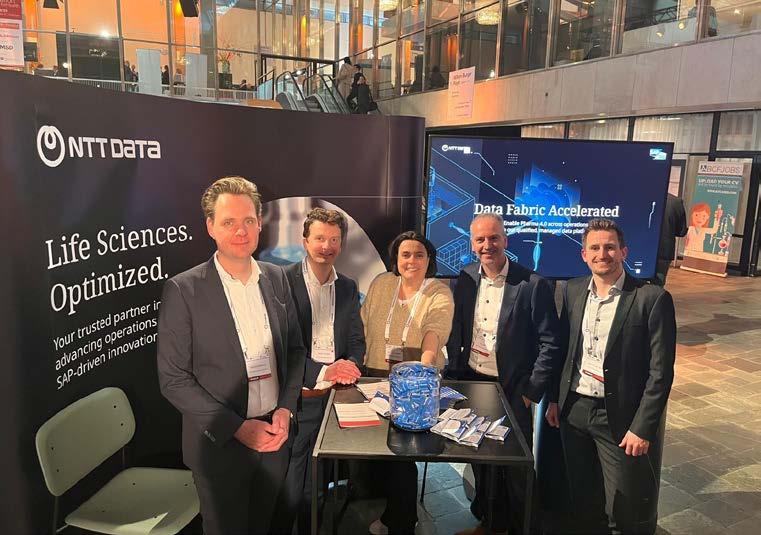
Benieuwd hoe jouw operatie efficiënter en veiliger kan dankzij de life sciences-expertise van NTT DATA Business Solutions? Scan de QR-code

Hoe zorgt Nederland ervoor dat het blijft voorlopen in farmaceutische innovatie en geneesmiddelenontwikkeling? Het nationale initiatief PharmaNL speelt hierin een belangrijke rol. PharmaNL is een publiek-privaat consortium van Leiden University / Leiden University Medical Center (LUMC), Campus Groningen en Pivot Park. PharmaNL wordt mogelijk gemaakt door de investeringen van de partners en een toekenning uit het Nationaal Groeifonds. Het doel van PharmaNL is de concurrentiekracht van de Nederlandse farmaceutische sector duurzaam te versterken en de beschikbaarheid van geneesmiddelen te waarborgen.
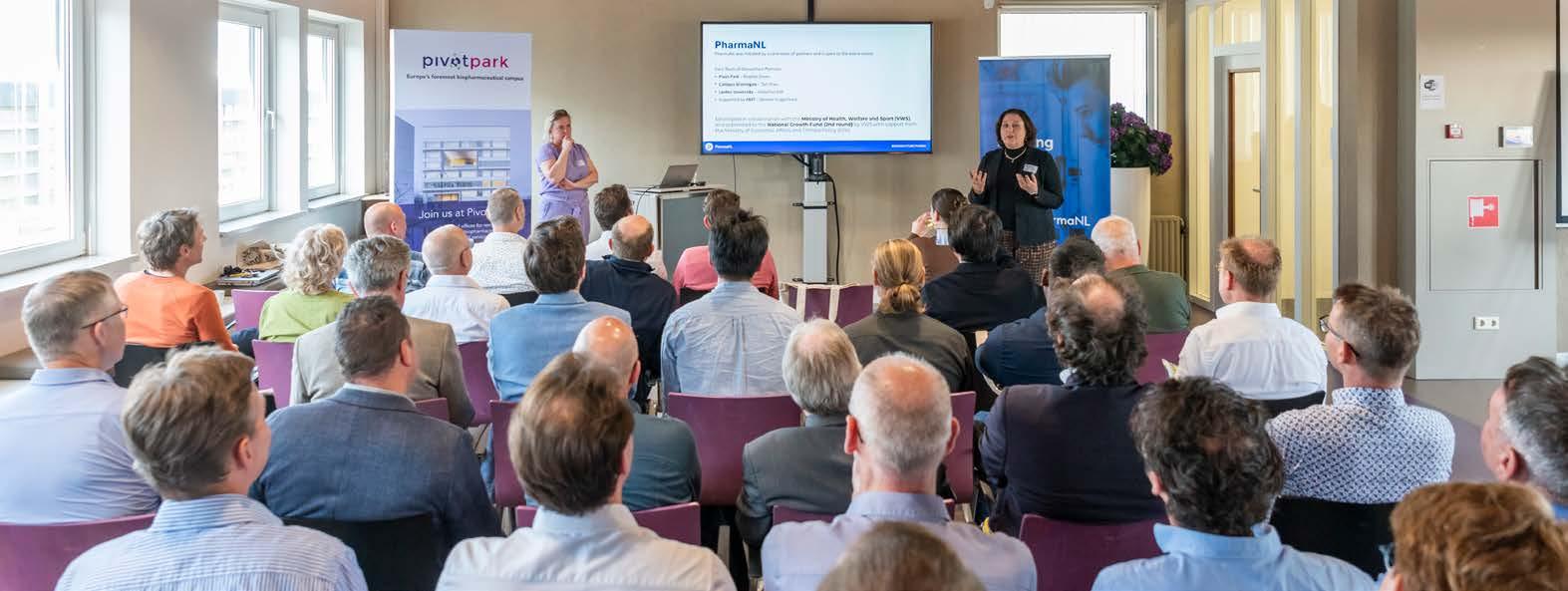
Hubertus Irth, bestuurslid van PharmaNL: “Met PharmaNL zetten we in op zowel de technologische innovatie als de opleiding van de volgende generatie farmaceutische professionals, zodat Nederland zijn leidende positie in de wereldwijde farmaceutische industrie behoudt.”
Binnen twee programmalijnen (Shared Development Infrastructure en Human Capital Growth) investeert PharmaNL in het versterken van de infrastructuur en het human capital van de sector. In dit artikel lichten we twee PharmaNLprojecten uit die laten zien hoe PharmaNL bijdraagt aan zowel technologische innovatie als de opleiding van de professionals van de toekomst.
Shared Development Infrastructure: de opkomst van nanogeneeskunde
Onder programmalijn 1: Shared Development Infrastructure ligt de focus op het versterken van het verdienvermogen en de concurrentiekracht van de Nederlandse farmaceutische waardeketen. Door het verbeteren van gedeelde R&D&Iinfrastructuur in hubs zoals Leiden, Groningen, Oss en Delft, wordt de ontwikkeling van nieuwe geneesmiddelen versneld. Een sprekend voorbeeld hiervan is iPsomics.
Het project iPsomics, geleid door prof. dr. ir. Floris Foijer van het UMCG, richt zich op de ontwikkeling van baanbrekende technologieën, zoals single-cell genomics, waarmee het genoom van individuele cellen geanalyseerd kan worden. Deze technologie is essentieel voor het begrijpen van chronische
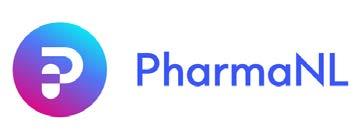
en complexe ziekten, zoals kanker, waarbij cellen grote genetische variaties vertonen.
Het project heeft niet alleen wetenschappelijke waarde, maar ook commerciële potentie. Samen met partners als de LIFE Cooperative, Pivot Park en GenomeScan, richt iPsomics zich op het toegankelijk maken van deze technologieën voor de bredere farmaceutische en diagnostische markt. Peter Ketelaar van LIFE Cooperative: “Ons doel is om technologieën die nu in het lab functioneren, betaalbaar en breed inzetbaar te maken voor de markt, zodat ze nieuwe mogelijkheden openen voor de ontwikkeling van geneesmiddelen.”
Human Capital Growth: life-long learning voor geneesmiddelontwikkeling Innovatie vraagt niet alleen om technologie, maar ook om mensen met de juiste kennis en vaardigheden. Onder programmalijn 2: Human Capital Growth (HCG) werkt PharmaNL aan het duurzaam versterken van het menselijk kapitaal binnen de sector. Een in 2024 gehonoreerd project (‘Life-long learning programma voor post-graduate biomedische en farmaceutische professionals’) vanuit het LUMC laat zien hoe dit in de praktijk vorm krijgt.
Het project richt zich op het ontwikkelen van een life-long learning programma voor postdoctorale (bio)medische en farmaceutische professionals die werken aan de ontwikkeling van nieuwe geneesmiddelen of vaccins.
Het programma omvat online cursussen over onder meer preklinische studies, efficiënte ontwikkelstrategieën en het opstellen van een Common Technical Document (CTD) voor registratie bij autoriteiten. Deze worden toegevoegd aan het bestaande aanbod van Futurelab, dat al cursussen biedt over klinische ontwikkeling, intellectueel eigendom en markttoelating. Dankzij deze uitbreiding ontstaat een samenhangend en toekomstbestendig opleidingsprogramma voor de volgende generatie geneesmiddelontwikkelaars.
Samen bouwen aan de toekomst PharmaNL laat met de subsidies voor projecten als iPsomics en het Lifelong learning-traject zien hoe doelgerichte investeringen bijdragen aan een sterke, innovatieve en veerkrachtige farmaceutische sector. Door technologie en talentontwikkeling hand in hand te laten gaan, wordt niet alleen het verdienvermogen versterkt, maar ook de maatschappelijke impact vergroot. Het is deze integrale aanpak die PharmaNL zijn slagkracht geeft.
Dien jouw idee in!
Tot en met maandag 19 mei 14.00 uur staat de huidige PharmaNL SDI subsidieronde open. De projecten van deze subsidieronde zullen bijdragen aan een uitbreiding en versterking van farmaceutische hubs, kennisinstellingen en ondernemingen met toekomstbestendige apparatuur. Bekijk de website van PharmaNL voor meer informatie: www.pharmanl.org
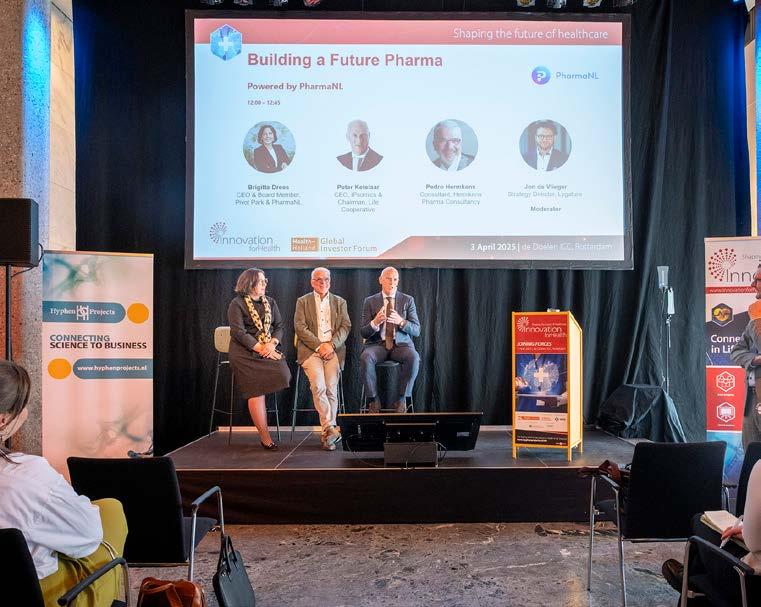
Teva Pharmaceuticals, a global leader in the pharmaceutical industry, is dedicated to improving the lives of patients through innovative healthcare solutions. With a rich history spanning over 120 years, Teva has established itself as the world’s largest manufacturer of generic medicines, ensuring that quality healthcare is accessible to millions of people worldwide
At Teva Nederland, we are committed to fostering a dynamic and inclusive work environment where talents can thrive and make a meaningful impact. Our team is united by a shared purpose: to deliver life-changing treatments to patients in need. By joining Teva, you will be part of a global network of professionals who are passionate about advancing healthcare and making a difference in the lives of patients
With our 3 facilities in Haarlem, we are manufacturing life saving drugs/medications, collaborating closely with healthcare professionals to supply the best cure for patients and support other departments at local, regional and global levels through our European headquarter.
At Teva, you will have the chance to work on diverse projects, collaborate with Experts, and contribute to the development of innovative medicines that address unmet medical needs.
Our commitment to professional growth and development ensures that you will be supported and empowered to reach your full potential.
We are dedicated to sustainability and improving access to healthcare in underserved communities. Our initiative aims to create a healthier future for all, and we invite you to be part of this journey.
Meet our Team at stand 49 to learn more about the exciting career opportunities at Teva Nederland. Together, we can innovate for a healthier future and make a real difference in the lives of patients.
Join Teva Pharmaceuticals – Where Your Career Meets Purpose.
Check: www.teva.nl/yourcareer/
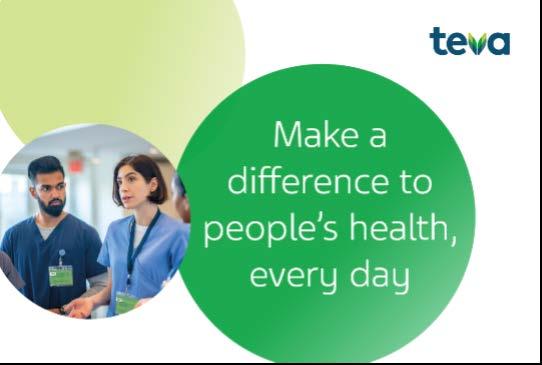
RIBOPRO, a pioneering technology provider specializing in mRNA and lipid nanoparticle (LNP) technologies, announced a strategic collaboration with ImmunoPrecise Antibodies Ltd. (NASDAQ: IPA) (“IPA”), a global leader in AI-powered antibody discovery and development. This collaboration seeks to revolutionize the discovery and development of therapeutic antibodies by integrating RIBOPRO’s advanced mRNA-based expression expertise with IPA’s in silico and wetlab antibody discovery capabilities.
The collaboration leverages RIBOPRO’s expertise in mRNA sequence optimization and LNP-based delivery with IPA’s advanced B-cell screening, single-cell analysis, and deep-learning AI-driven discovery workflows. Together, the two companies aim to accelerate and enhance the development of novel therapeutics by improving antigen presentation and immune responses, a critical step in antibody discovery.
Transforming Antibody Discovery with mRNA Technology
The success of generating therapeutic lead antibodies towards complex antigens using traditional immunization-based discovery platforms may be hampered by challenges associated with the proper expression of these antigens. By leveraging RIBOPRO’s proprietary mRNA and LNP technologies, this partnership enables precise, efficient antigen expression, thereby facilitating potentially more effective immune responses and possibly accelerating the path to discovering novel antibody therapeutics.
“Partnering with ImmunoPrecise Antibodies enables us to push the boundaries of mRNA-based immunization for therapeutic antibody discovery,” said Sander van Asbeck, CEO of RIBOPRO. “By integrating our expertise in mRNA design and nanoparticle delivery with IPA’s cutting-edge antibody discovery and engineering capabilities, we can address longstanding challenges in antigen expression, bringing forth new possibilities for precision therapeutics.”
Driving Innovation in AI-Powered Antibody Discovery
IPA’s approach combines advanced AI-driven analytics with highly specialized wet-lab methodologies to design and optimize antibodies with the highest clinical relevance. The integration of mRNA immunization into IPA’s workflow is expected
Surfix is a Dutch MedTech company based at the Agro Businesspark in Wageningen. Founded in 2011 as a contract research organization specializing in nano-coatings, the company pivoted in 2021—following a successful seed investment round—to focus on building a scalable product.
Since then, Surfix has been on a mission to revolutionize point-of-care diagnostics through its innovative Photonic Diagnostic Platform: a multimodal solution that delivers lab-level precision for protein detection, combined with the speed and ease of point-of-care testing (POCT).
The platform integrates advanced photonics and proprietary selective coating technologies with smart microfluidics to provide fast, highly accurate, and cost-effective diagnostics. It is particularly well-suited for detecting biomarkers at sensitivity levels beyond the reach of conventional POCTs—addressing a critical unmet need in healthcare. Potential applications range from infectious disease detection to chronic disease monitoring, aligning closely with the interests of major diagnostic players.
Progress has accelerated in Wageningen. Last year, two top-tier diagnostics companies conducted paid, blinded evaluations of Surfix’s platform. Both reported excellent results and initiated larger follow-up studies. This year, one of those companies confirmed Surfix’s exceptional sensitivity in blood plasma, achieving a detection limit of 1 picogram/mL for IL-6. The results were benchmarked against a state-of-the-art central lab system, validating the platform’s lab-grade precision in a POCT format. The other partner coprepared a major IHI grant application with Surfix.
Meanwhile, Surfix continues to scale its operations, with a sharp focus on key value inflection points. The company also accepts co-development projects for immunoassays, generating early revenues and fostering partnerships with leading diagnostics companies.

Surfix USPs: multiplex with broad dynamic range and beyond lab-level sensitivity.


In-person meetings drive innovation
Despite all the benefits that electronic communication means may provide, engaging with the smartest and most creative drug developers in person creates the required atmosphere for true innovation.

In April and May 2025, hundreds of representatives of the brightest R&D driven companies and academic and medical research teams gathered at Global Investors Forum, Innovation for Health and iDR25, with From Molecule to Business on 3 June 2025 still to come (attending is recommended!). Latest developments and trends were and will be discussed, and in the (panel) discussions current ideas and best practices were evaluated and challenged in view of improvements needed.
Identifying common themes complicating drug development progress In the drug development field, many issues and discussions come down to four central themes:
(1) Access to sufficient financial resources at the right moment in time;
(2) The rather lengthy path from discovery till market authorization and ultimately a new pharmaceutical in the pharmacy and clinic (made accessible for patients);
(3) The recognition that experts on various different aspects of drug development are needed along the way to success and throughout the years, with the understanding that no single person combines all the knowledge and expertise in all fields: true team work required; and
(4) The uncertainty whether market authorization will be followed by reasonable and societal acceptable pricing, and in addition, by proper reimbursement schemes sufficient to start the effort and investment at all would such end-point be apparent right from the start, say 10-15 years ago.
The Dutch perspective: central role for academia in fuelling the drug development pipeline Fortunately, in The Netherlands, it appears that there is still an enormous pool of innovative and ambitious individuals and teams willing and capable of starting and progressing drug development programs, despite the long and uncertain future ahead. Commonly, new ideas and initial promising
data stems from academic research in universities, research centers and academic hospitals. The technology transfer offices (TTOs) play a decisive and pivotal role in valorisation of such potentially next generation drug development programs. New start-up and spin-off companies are established, internal and external qualified co-workers are teaming up and the journey starts.
Life span of an early-filed patent and clinical trial data protection are not sufficient It is virtually without exception that such researchdriven initiation of a drug development program is accompanied by often a single or only a few patent applications filed by the TTO in close collaboration with the research group. Bearing in mind the quite regular time span till market authorization and distribution to pharmacies and hospitals of somewhere between 10 and 15 years, the life span of a patent, 20 years, with sometimes the option of expanding the protection to up to 25 years, might be too limited for allowing a proper return on investment, at first sufficient to cover costs and mitigate risks during the development program. In view of these timelines it is often heard that data protection for 10 years relating to conducted clinical trials for achieving market approval is filling in this gap. However, reality shows differently. When such data protection and patent protection relating to a patent filed in the early days of academic research lapse, further market protection is still essential for a viable and sustainable drug development program resulting in new therapies for patients.
Prolonged protection: rule of thumb for filing for longer patent protection, a practical approach From filing a single patent application by a TTO, just before publication or thesis defence of the first glimpse on a potentially new therapy, to executing an established patenting strategy as an integral part of the drug development program; what is the gap apart from access to sufficient funding? It all starts with accepting that such single patent application filed in the early days will not be sufficient. Turning this insight into practice, filing new patent applications within 3-5 years from the first filing, within 5-8 and within 8-12 years, can for example be chosen as a healthy strategy and essential business aim. Easy said, but how? Some guidance is provided by the natural habit of those involved in a drug development program: if an inventor, R&D manager, CSO or CEO recognizes that new data is worthwhile presenting on a conference, network event, investors pitch or the like, and feels a strong need to take the stage, likely it is highly worthwhile at about 3 weeks in advance to
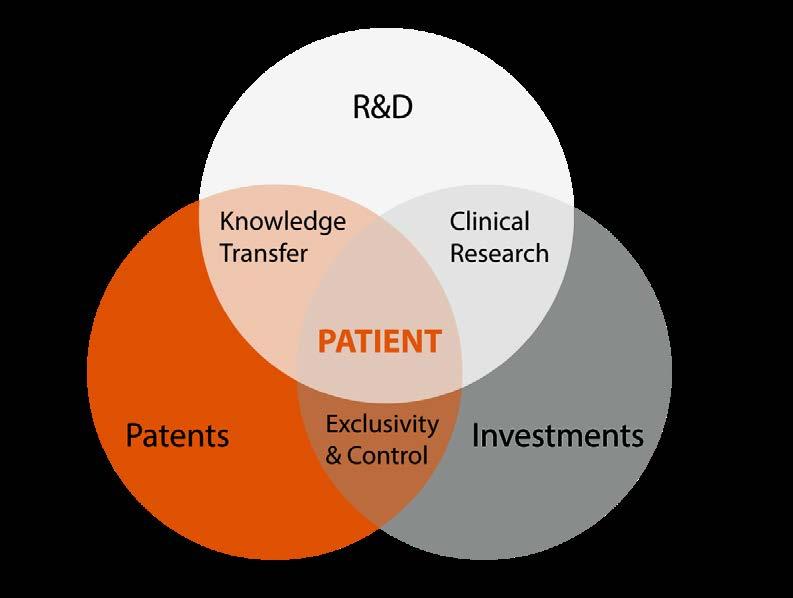
inform the patent attorney that a new invention should be secured first, before the new pitch in the spotlights is delivered. The same for filing poster abstracts, publishing papers and submitting clinical trial protocols of which critical parts will be made publicly available. The rule of thumb is: if there is a need or felt urge to disclose new data in public, a new invention worthwhile patenting is most likely apparent. Overviewing timelines till for example clinical trials phase I, II and III, accompanying new insights and data become available at the indicated time suitable for prolonged patent protection beyond what data exclusivity would be able to provide. Thus nicely fitting with the designed patenting strategy.
Building a business in practice – team work acknowledging responsibilities and expertise
- Integrate a patent attorney in the core teams involved in drug development programs;
- Schedule periodic invention review and new invention identification meetings;
- Install a rather stringent gatekeeping protocol, for clearing in time any and all publications stemming from the drug development program;
- Do not rely on non-disclosure agreements, only;
- Leave it up to the experts to assess which data is fit for valid and valuable patent protection at which moment in time;
- Understand the basics of patenting and appreciate that filing for a new patent application generally will take about 2-4 weeks of time, therewith in most occasions hardly interfering with timelines of other disciplines gathered in the drug development program.
SUCCES ON YOUR JOURNEY TOWARDS NEW THERAPIES!
Barend Bouma
European patent attorney pharma & life sciences Partner at NLO – Ipsilon
Email: bouma@nlo.eu Telephone: +31-613269542
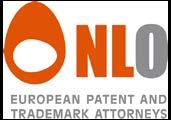
Grit isn’t a personality trait. It’s not loud and it doesn’t seek applause. It’s a practice—a way of showing up when nothing is guaranteed.
By Sarah Opitz
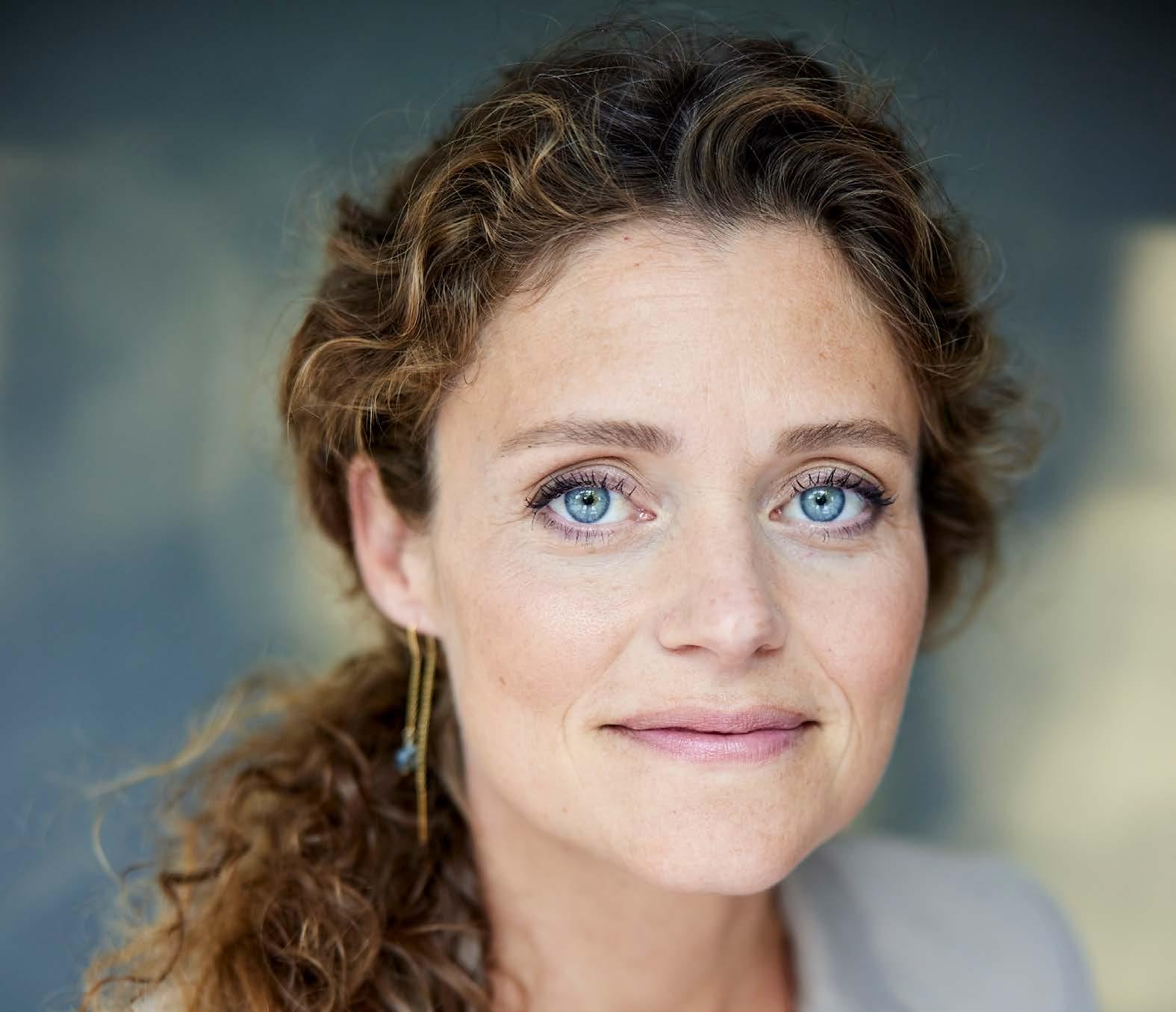
Psychologist Angela Duckworth defines grit as passion and perseverance for long-term goals. It’s not about talent or luck—it’s about what you do when things get hard. In her book Grit, she explores how high achievers blend stamina and purpose over time.
That quiet determination, unseen but unwavering, keeps people moving long after the excitement fades. Eline van Beest seems to embody that mindset instinctively. Her path echoes the kind of persistence Duckworth describes: hurdles, setbacks, and steady, relentless progress toward a singular mission—to redesign the path to success for med-tech founders.
While at Delft University of Technology, Eline founded and built NightBalance, a medical technology company focused on sleep apnea. She sold it to Philips, went on to lead a biotech company, and is now focused on building the infrastructure she wished she’d had. She’s not just asking for change. She’s creating it.
Backed by Stichting Santiago and with the purpose to collaborate with the four Dutch technical universities, Eline is setting up the Netherlands’ first Professorship in Med-Tech Valorisation, a role now in the process of being filled. This bold move aims
to close the gap between academic research and real-world execution. Universities teach theory, but few equip students with the realities of regulation, documentation, clinical validation, medical product development and production. “We don’t learn this in school,” she says. “and it shows.”
Eline is also launching the Santiago WISE award, a prize for early-stage women in med-tech. This mini scholarship covers the cost of medical technology training courses. The aim is to equip female founders with real-world med-tech skills often missing from academic settings. Winners will be announced at the TOPX Summit this November.
“Women receive just 1–2% of funding, even though we generate 30–35% of the field’s innovations,” Eline explains. “If we can help them stand out—even a little—they’ll have a better shot.”
Despite advice against launching a med-tech company, Eline founded NightBalance to improve sleep apnea treatment. She built the company from an early-stage idea, culminating in a highprofile acquisition by Philips, placing her device in over a dozen markets worldwide. It reshaped her
understanding of scale, leadership, and the realities of building in healthcare.
“As a young entrepreneur, I had a reason to quit every day.”
That grit was tested in 2017, one of the hardest moments of her career. Eline had just raised €12.5 million and was pregnant with her second child. Her team had reached all clinical endpoints and needed one final milestone—approval from Dutch health authorities for coverage through the healthcare system—to unlock the next tranche of funding from investors.
At the end of September, the call came: denied. Again. It was the third rejection in four years. The criteria had shifted again. Frustrated and just weeks away from parental leave, with only three or four months of runway, Eline faced a brutal decision: accept a painful bridge loan or risk collapse. “This is it,” she remembers thinking. “This is the end.”
What turned the tide wasn’t data. It was something Eline had spent years quietly building: trust. Her close relationship with the patient association became a game changer, and they responded quickly to address the final concerns raised.
In mid-December, just two days after giving birth, her phone rang: Milestone met.
Two days later, Philips called.
What No One Teaches You
Med-tech entrepreneurs often face an uphill battle.
Eline is a Dutch entrepreneur and investor with deep experience in medical technology and biotech. She founded and scaled NightBalance, a medtech company treating sleep apnea, which was acquired by Philips in 2018. She later served as CEO of Hybridize Therapeutics, a biotech company spun out from the LUMC. Currently, she’s a partner at Thuja Capital, where she invests in early-stage healthcare companies. Eline holds a MSc in Industrial Design Engineering, with a specialization in medical technology from the Delft University of Technology.
Universities prioritize research but rarely teach the skill set needed to bring a device to market. When Eline launched NightBalance, she didn’t know how much regulatory acumen mattered—until she and her team misclassified their device as Class I when it should have been Class II. The error had swift and unforgiving consequences.
“You think you’re moving fast until you realize you’re starting over. We had to redo our documentation. We lost a whole year.” She still talks about that experience when mentoring other founders. Not because it was unusual—but because it was predictable, and avoidable. This gap is exactly what Eline is working to close. Through the professorship and the prize, she wants to teach founders to ask smarter questions sooner. “In biotech, there are seasoned professionals along the entire pipeline. In med-tech, founders are left guessing.”
The gap between technical brilliance and real-world readiness still drives her, but now from the investor’s seat. Today, Eline sees many young entrepreneurs. “They pitch with great ideas. But when I ask for a design history file, they look at me like a deer caught in headlights. No one taught them this part.” She’s committed to building that missing layer of education and support.
Rethinking Leadership
Early in her career, Eline was deeply involved in every detail. “I cared so deeply about getting everything right,” she recalls. Over time, she realized leadership isn’t about proximity. It’s about trust.
This lesson became clear when she brought in an interim CEO, 15 years her senior, during maternity leave. Eline had assumed that weekly check-ins were enough. But the interim leader met with the team daily. “I thought, isn’t that micromanaging? But she said: ‘You have to build muscle with them—until they can do it themselves.’”
It was a revelation. Now, Eline leads by that principle: guide early, then step back.
She also values external perspective. At Hybridize, her biotech venture, an advisory board gave her space to test ideas.
And today, Eline channels her experiences and those gathered from others into a CEO academy she created at Thuja Capital, where founders meet regularly to speak candidly about what they’re facing. “You think you’re alone,” she says. “You’re not.”
The Cost of Being Seen
On a trade mission to the U.S., she was asked the same question at least ten times: Who are you here with? It wasn’t curiosity, she realized, but assumption. “It’s like a drip on your forehead,” she says, tapping it. “A thousand tiny drops that wear you down.” She was the one leading a part of the mission, yet few saw her as the leader.
This constant underestimation is what drives her visibility work. When asked to present, Eline often passes the mic along the curated list of women leaders she keeps, from rising stars to seasoned veterans over 50. “We always see the same women— or the same type of woman—on stage.” she explains, “We need broader representation. More age diversity. More depth.”
Visibility isn’t vanity. It changes who gets funded, who gets heard, and who gets believed.
Grit Isn’t Glamorous. But It Builds Things That Last. Eline’s journey hasn’t been linear, but each chapter has left a mark. After NightBalance, Eline led a biotech company that developed an IND-cleared
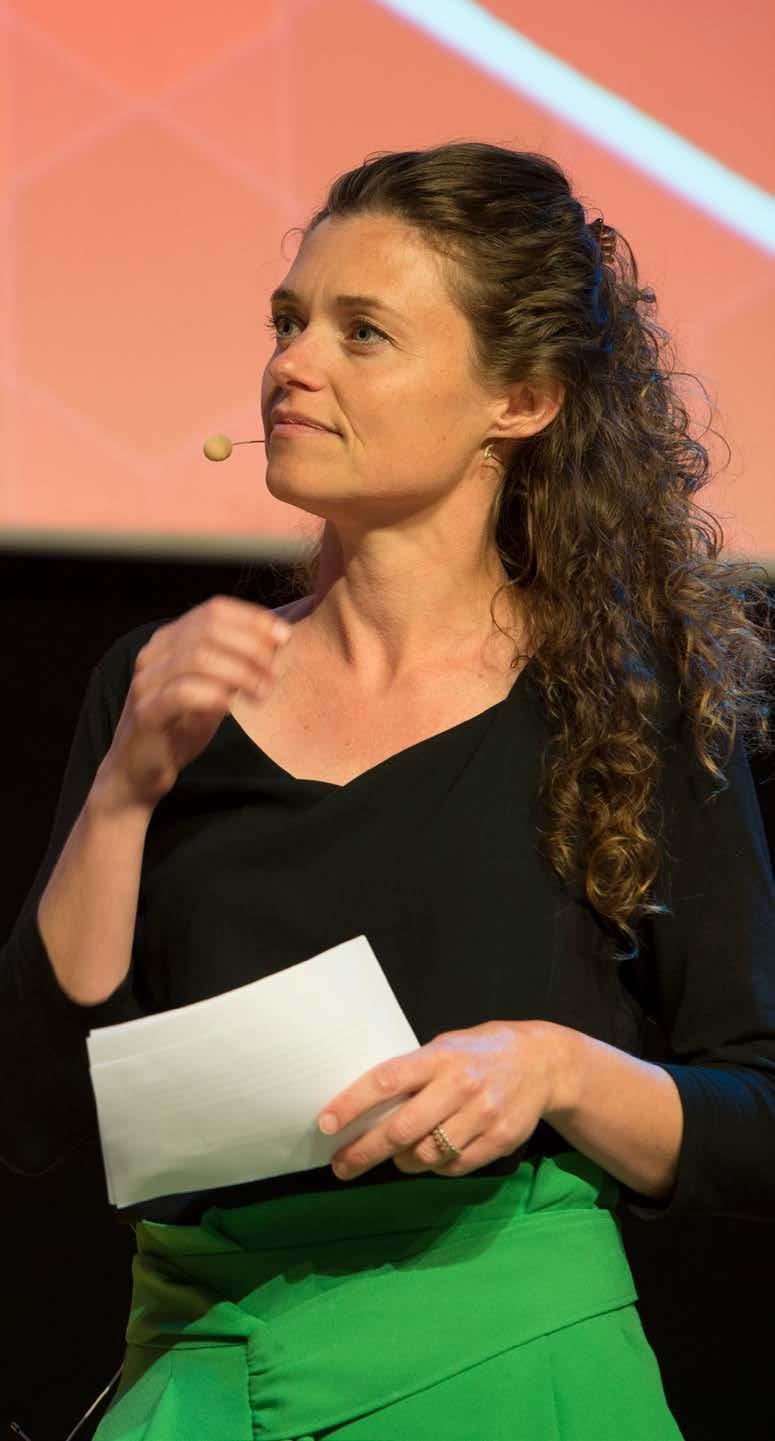
asset now in clinical trials. The team successfully out-licensed the asset in a $100 million deal and continues to advance it under the licensee.
The company is no longer developing new assets but remains in place. “Success isn’t always about running the company forever. It’s about making sure what you build outlives you.”
The work Eline does now is foundational and sometimes invisible. But she knows how to play the long game. She aligns closely with Duckworth’s research: grit isn’t flashy. It’s the quiet resilience that builds enduring systems.
“We can’t keep doing things the same way and expect different results.
If you’re an investor, back diverse founders. If you’re an academic, teach real-world development. If you’re on a stage, share it.
And if you’re a founder, learn everything you can— because ideas are everywhere.
Execution is rare.”
Through grit by design, Eline van Beest is opening doors—and making sure they stay open for those coming next.
Eline is launching a new initiative to support women founders in med-tech. The prize offers access to educational courses on medical technology development to set them up for success and give them a competitive advantage in the market.
More information can be found at: https://santiagofonds.nl/WISEaward.
Winners will be announced at the TOPX Summit in November 2025.
“Women receive just 1–2% of funding, even though we generate 30–35% of the field’s innovations. If we can help them stand out— even a little—they’ll have a better shot.”




7 Intensive Modules Over 7 Weeks from October 31st to December 12th 2025 AN IN-DEPTH, FAST-PACED COURSE IN FINANCE & VALUATION IN LIFE SCIENCES & HEALTH


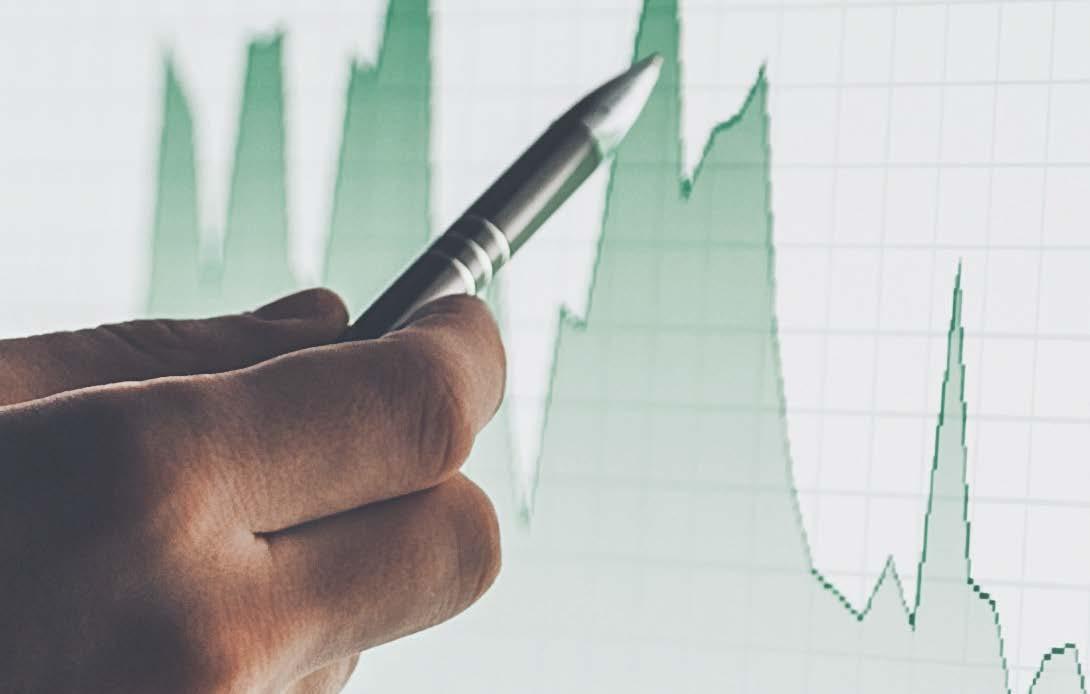
EXPAND YOUR KNOWLEDGE ON FINANCE & VALUATION IN LIFE SCIENCES & HEALTH
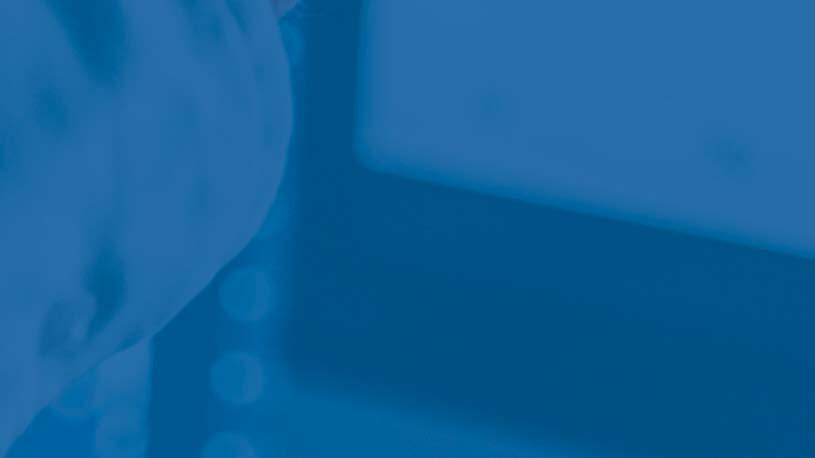
PARTICIPANT PROFILE
• Biotech & Medtech Founders
• Tech Transfer O cers
• Investment Analysts
• Policy makers
• Consultants
• Business Analysts
• PhD Students & Post Docs
• Alliance Managers

ECTS CREDITED

The course has a study load of 6 ECTS (168 hours). You will receive a certi cate of attendance after completing the course.


Understanding nancial concepts and business valuation is critically important in Life Sciences & Health industry. Whether you are an entrepreneur seeking funding for your start-ups, a tech transfer o cer, a business analyst, a consultant, policy advisor evaluaing business proposals and business cases, or PhD or Post Docs looking to kickstart a career in nance, this in-depth crash course will increase your understanding and expand your knowledge on valuating companies in Life Sciences & Health sector. This course is organized by Vrije Universiteit Amsterdam. Dive into real-world case studies from the Life Sciences & Health sector and master the essentials of strategic nancing, valuation, and the incorporation. For
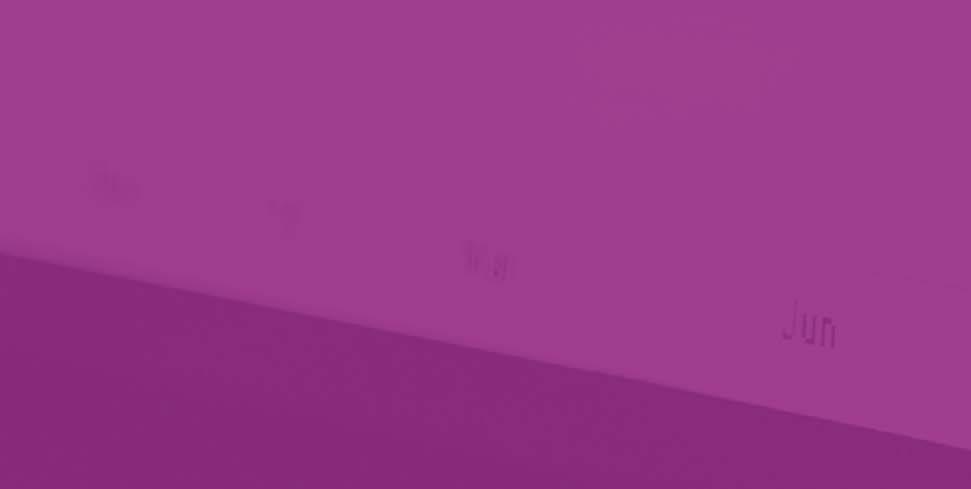
PROGRAMME COVERING:
• Financial statement analysis
• Making a convincing business case
• Financial feasibility: calculations & valuation
• Negotiating & VC deal terms

• The time value of money and capital budgeting
• Scaling up: nancial requirements and best practice
• Securing an exit: the role of investment bankers
READY TO BOOST YOUR FINANCIAL SKILLS?





information and registration: www.hyphenprojects.nl/f4g
Regenerative and cellular industry
Regenerative and cellular medicine is de volgende fase in de zoektocht naar de heilige graal van de geneeskunde. Met als adagium ‘one batch, one life’, ontwikkelen wetenschappers wereldwijd nieuwe toepassingen om met gezonde lichaamseigen cellen zieke of beschadigde cellen te repareren. Biotech op het allerhoogste niveau en gezien de resultaten veelbelovend. De groei van deze tak van de geneeskunde brengt ook op andere terreinen uitdagingen met zich mee. Bijvoorbeeld als het gaat om veiligheid en het voorkomen van contaminatie. Elis Cleanroom biedt hier tastbare oplossingen voor.
De biotech industrie maakt flinke stappen op het gebied van cel- en gentherapie. Het ontwikkelen van maatwerk medicatie bijvoorbeeld, afgestemd op een kleinere patiëntengroep, is een grote stap voorwaarts. Maar ook het isoleren van gezonde cellen uit het lichaam, deze modificeren en weer in het lichaam van de patiënt terugplaatsen neemt een grote vlucht. Dat is merkbaar aan de groei van het aantal specialistische onderzoekscentra en CMP-organisaties die hun faciliteiten steeds vaker aanpassen op kleinere batches; tot zelfs een unieke batch voor één patiënt.
Anneleen Desmet, binnen Elis directeur innovatie en specialist op het terrein van contaminatie controle: “De faciliteiten voor biotechnologie schieten als paddenstoelen uit de grond. Zeker vanaf het moment dat een bedrijf een nieuwe therapie of techniek heeft ontwikkeld. Het is een redelijk nieuwe sector, die wij nu goed in kaart hebben gebracht en die wij de juiste hulpmiddelen aan kunnen bieden.”
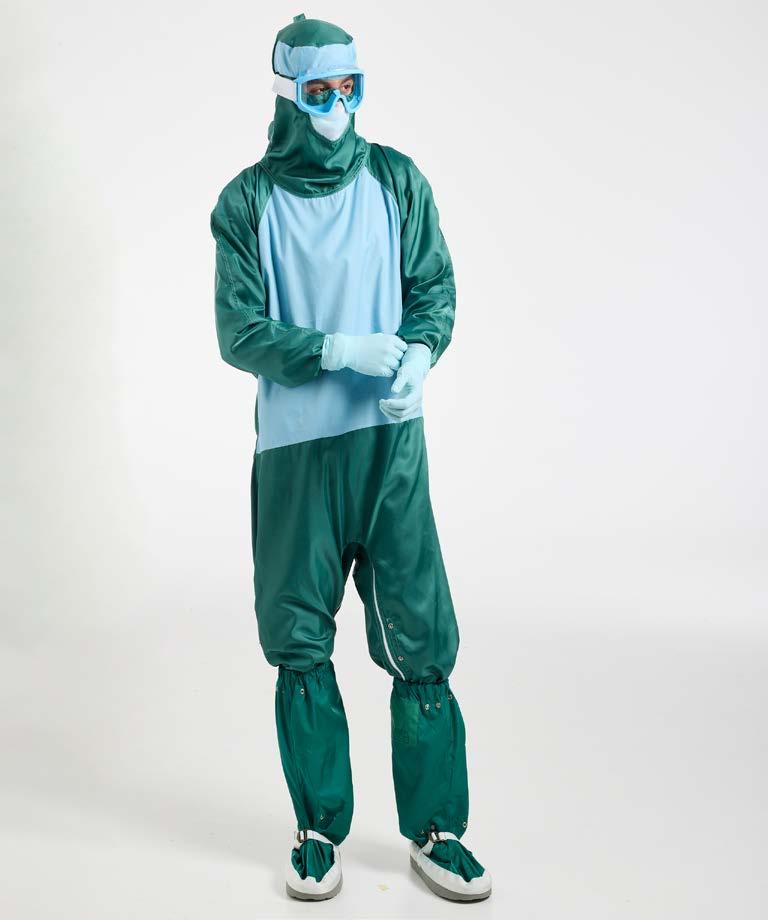
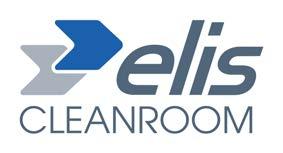
Die aanpak is uiteraard gebaseerd op de kracht van Elis Cleanroom, namelijk kennis van en het leveren van uiteenlopende diensten op het gebied van bedrijfsen cleanroom-kleding, wasserij- en hygiëne-diensten en schoonmaakproducten. De Franse multinational heeft wereldwijd 400.000 klanten; een signaal van de kwaliteit en kennis.
De regenerative and cellular industry maakt daar in toenemende mate deel van uit, constateert ook productmanager West-Europa Arthur Lettinga: “Het is een specifieke industrie die zich richt op specifieke behandelingen voor patiënten, waarbinnen weer subsegmenten focussen op eigen onderzoek als stamceltherapie, gentherapie, 3D bioprinting en immunotherapie.”
Elis Cleanroom heeft gesignaleerd dat deze relatief nieuwe industrie niet altijd vanzelfsprekend de volledige kennis heeft over bijvoorbeeld reusable, product beschermend textiel en service oplossingen voor hun (steriele) kritieke omgevingen, om met de voor hun beste oplossing voor hun productie te komen en eventuele contaminatie en overdracht te voorkomen en te controleren.
Anneleen Desmet: “Over die kennis beschikken die nieuwe bedrijven veelal niet, maar in feite hoeft dat ook niet: als Elis Cleanroom hebben wij die expertise en de diensten. Dat hebben we ook voor deze segmenten: een geconsolideerd pakket met diensten en producten, dat nu beschikbaar is. En dat is belangrijk, want het is een competitieve sector en men kan niet een jaar verliezen.”
Een van de uitdagingen waarvoor Elis werd gesteld was in hoeverre in de subsegmenten de juiste classificaties conform ISO 14644, GMP and Annex 1 konden worden geboden. Lettinga daarover: “Voordat je aan tafel zit bij een bedrijf, weet je nooit precies wat de activiteit omvat. Dat hoor je uiteindelijk wel als we aan tafel zitten, maar we hebben nu een totaalpakket waarmee we in de subsegmenten per classificatie meerdere smaken kunnen aanbieden. We kijken per zone wat er vereist is qua kleiding en hebben een beslisboom ontwikkeld waarmee het bedrijf kan beoordelen wat er vereist is wat classificatie betreft en welke producten daarvoor nodig zijn. In alle klassen van A tot en met D en CNC uiteraard.”
Overigens is niet alles in beton gegoten want in sommige situaties stelt Annex 1 een zogeheten task specific product. “Dat betekent dat er ruimte is voor interpretatie want het gaat om het proces; dat is
leidend. Het kan zijn dat er voor bepaalde handelingen extra veiligheid moet worden ingebouwd. Dat kunnen wij dan ook aanbieden omdat we een goed beeld hebben van de vragen in deze sector. En daarmee breidt ook onze kennis steeds verder uit.”
Anneleen Desmet voegt daaraan toe: “We weten meer van de technieken die toegepast worden voor deze nieuwe therapieën en ik durf te stellen dat we in 95 procent van de vragen de juiste oplossing hebben. En over die laatste vijf procent, daar werken we constant aan.”
Beiden benadrukken dat de kleding en aanverwante producten niet het enige is. Het is vooral ook de adviserende rol die de experts van Elis Cleanroom hebben. Immers, het is een nog jonge tak van wetenschap en geneeskunde waarin zich weer nieuwe spelers aandienen. Juist dan is de deskundigheid en ervaring van Elis Cleanroom op gebied van contaminatie controle en cleanroom textiel van grote waarde.
Inmiddels heeft Elis Cleanroom in meerdere landen speciale teams opgezet om de regenerative and cellular industry te bedienen met advies en producten. De eerste kennismaking met een aantal bedrijven is positief, zegt Anneleen Desmet: “We merken dat onze inspanningen in deze nieuwe industrie worden geapprecieerd en herkend.” Arthur Lettinga: “We hebben nu onze brochures klaar en kunnen beginnen. En veel bedrijven kennen ons al vanuit de farmaceutische industrie. Hoe mooi is het dat je dan je verhaal kunt doen in deze nieuwe sector.”
Veilige waszak
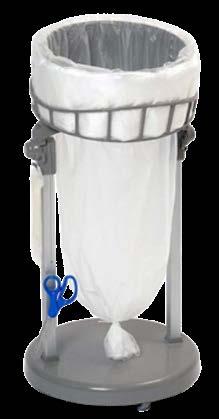
Het verspreiden van virussen en gevaarlijke stoffen moet, mede vanwege de risico’s, uiteraard te allen tijd worden voorkomen. Elis Cleanroom heeft een speciale waszak ontworpen, waarmee eventueel besmette kleding veilig kan worden verwerkt. De basis is een risico-inventarisatie in hoeverre er gewerkt wordt met gevaarlijke stoffen waardoor er mogelijk besmet wasgoed retour komt in de wasserij. Daarvoor heeft Elis een duurzaam product waar een klant zijn/haar wasgoed afgesloten in kan opbergen, zodat er geen contact met de mens mogelijk is. Op het moment dat dit de wasserij binnenkomt gaat dit zonder contact met de mens te hebben rechtstreeks in de wasmachine.
Ruim een jaar. Zo lang bestaat Biotech Booster nu. En in maart 2025 werd dat prille bestaan voor de 2de keer gevierd met een annual event in het AFAS Theater in Leusden. Wat een dynamiek. Wat een opkomst. En bovenal: wat heeft dit uniek verbond van kennisinstellingen en bedrijven dat kennis over biotechnologie efficiënt valoriseert, al veel bereikt!
In januari 2024 werd het operationele startsein gegeven voor Biotech Booster. Inmiddels geeft de organisatie daadwerkelijk een enorme boost aan valorisatie in de biotech en een nieuwe benadering voor valorisatie door samenwerking tussen kennisinstellingen en ondernemers in thematische clusters. Een doel dat prioriteit had bij het Nationaal Groeifonds die Biotech Booster bijna € 50 miljoen toekende voor 3 jaar. Voor de periode vanaf 2025 werd bijna €200 miljoen onvoorwaardelijk toegekend. Nu worden dagelijks veelbelovende ideeën gescout en geselecteerd door 39 Business Developers en Impact Developers van universiteiten, UMC’s en hogescholen die samenwerken in 5 thematische clusters. Daarnaast 160 ondernemers die meehelpen bij selectie en begeleiden van projecten. Tezamen geven zij aan of de aanvraag door kan naar level 1 van het Biotech Booster Programma: de Proof-of Principle projecten.
CEO Nettie Buitelaar wordt ondersteund door een ervaren Management Team met Rein Strijker en Keshen Mathura. De raad van commissarissen bestaat uit Jo Bury (voormalig directeur en medeoprichter van het Vlaams Instituut voor Biotechnologie, VIB), Mirjam van Praag (hoogleraar ondernemerschap en voormalig bestuursvoorzitter Vrije Universiteit Amsterdam), Susan Swarte (lid raad van bestuur TNO) en Annemiek Verkamman (directeur hollandbio).
Meer informatie www.biotechbooster.nl
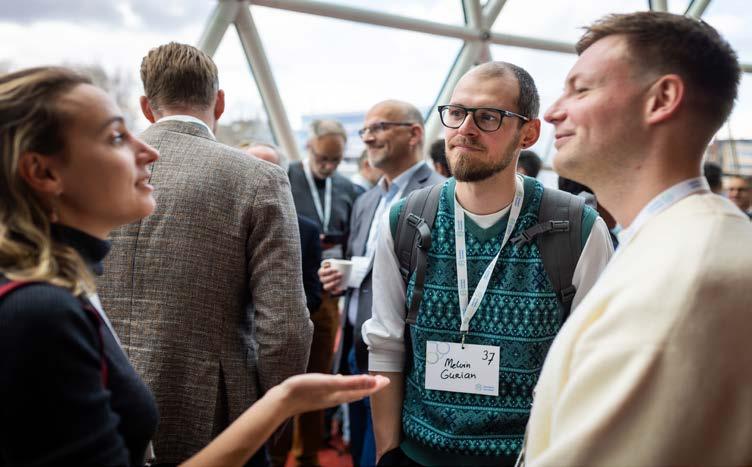
Biotech Booster is een initiatief van:
• de Universiteiten van Nederland UNL;
• de Nederlandse Federatie van Universitair Medische Centra NFU ;
• de Vereniging Hogescholen VH;
• belangenvereniging HollandBIO; en
• biotechnologiebedrijven DSM firmenich en Janssen.
Het ministerie van Onderwijs, Cultuur en Wetenschap is het verantwoordelijke departement voor Biotech Booster als Nationaal Groeifondsproject.
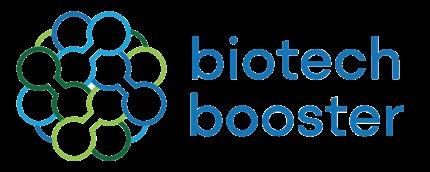
Deze PoP projecten krijgen ondersteuning en begeleiding van experts en daarnaast maximaal €200.000 subsidie voor 2 jaar. Het is een ecosysteem vol unieke samenwerkingen die Nederland als innovatieland ook internationaal op de kaart zet.
De eerste ronde leidde tot meer dan 200 aanvragen waaruit 50 Proof of Principleinnovatieprojecten en 50 aanvragen waaruit 4 Proof-of-Concept projecten zijn geselecteerd. Tijdens het annual event presenteerden 37 van hen zich op de innovatiemarkt. Wat een mooie, nieuwe ideeën en start ups vanuit biotech-onderzoek van kennisinstellingen. We selecteerden er 2 om uit te lichten: Reduce and use Landfill Methane en Shikimax, duurzaamheid en een groenere economie speelt bij beide een belangrijke rol, ze leggen uit welke boost het Biotech Booster Program heeft gegeven.
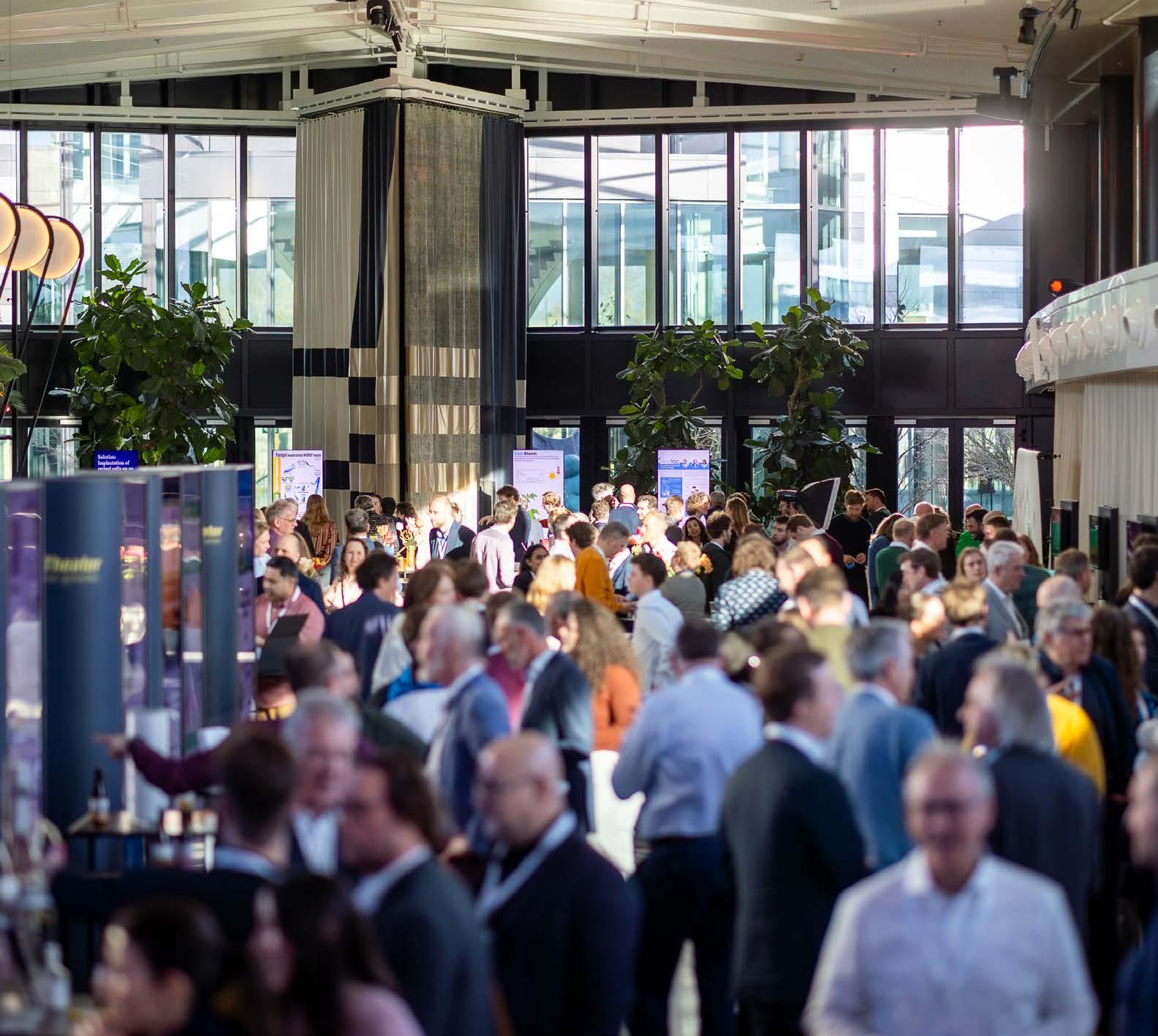
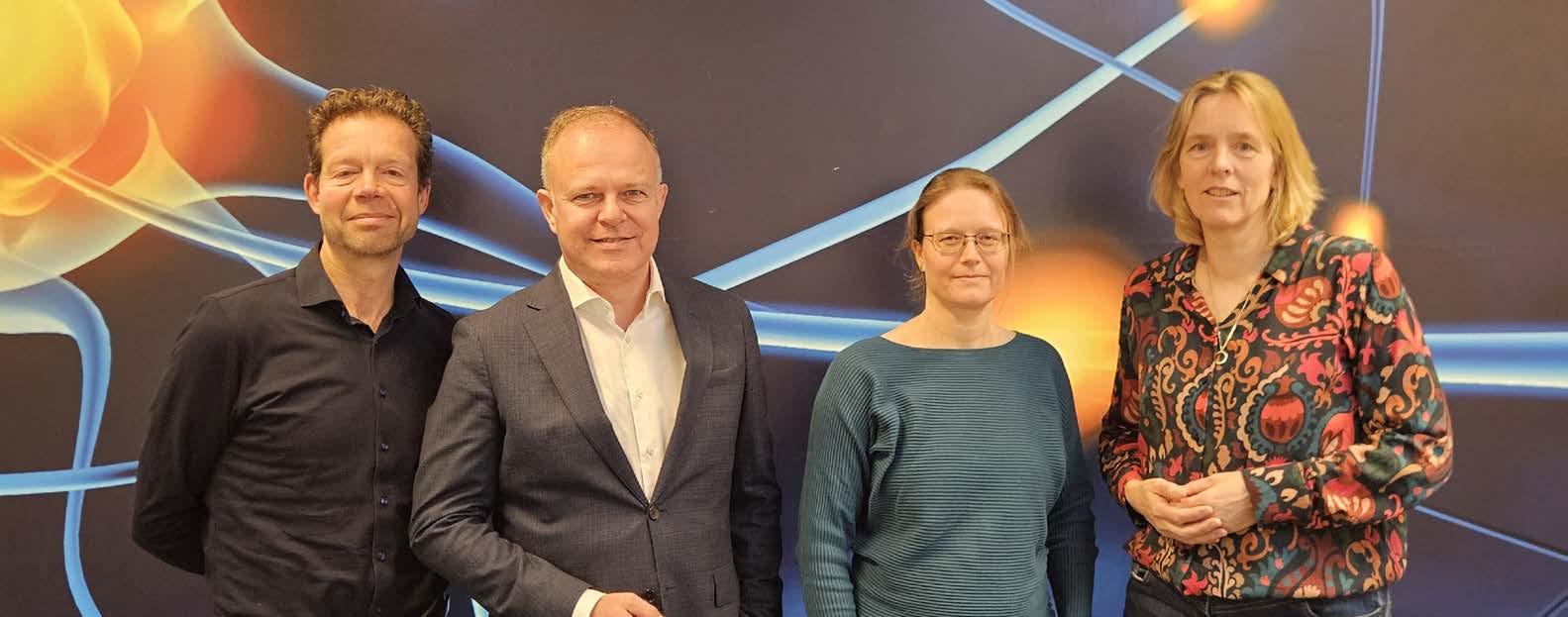
Reduce and use Landfill Methane
Methaanhoudend stortgas voor de productie van bioplastics
Op de innovatiemarkt van het annual event troffen we ook Nardy Kip docent onderzoek fermentatie technologie aan de HAN en onderzoeker bij het HAN BioCentre in de stand van Reduce and use Landfill Methane.
Het team, dat verder bestaat uit DouweFrits Broens die vooral de marktanalyse en economische haalbaarheid van het biofilter onderzoekt, en projectleider Richèle Wind, ontving vorig jaar een Biotech Booster grant van €200.000. Het onderzoek gaat uit van stortplaatsen waar niet alleen het krachtige broeikasgas methaan langdurig (tot soms een eeuw lang) vrijkomt, maar ook andere gassen.
Deze uitstoot kan bij een hoog percentage nuttig worden aangewend, bijvoorbeeld als bron van elektriciteit en warmte, maar bij een laag percentage methaan is er geen nuttige toepassing en wordt het afgefakkeld of uitgestoten.
‘Dat is de afvalstroom waarop het team zich focust,’ legt Nardy kip uit. ‘Lage concentratie methaan waaruit we waarde kunnen creëren door het methaan te reduceren en om te zetten in biologisch afbreekbaar plastic. Daarbij maken ze gebruik van methanotrofe cultures die methaankunnen omzetten in bioplastics of meer specifiek polyhydroxybutyrates (PHBs).
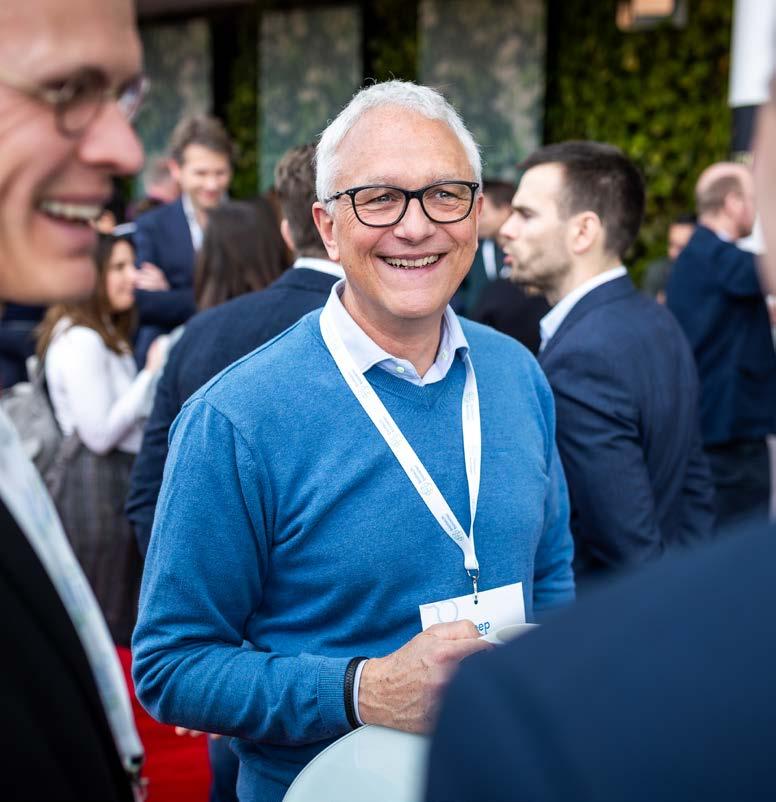
HAN BioCentre isoleerde nieuwe methanotrofe culturen die kunnen groeien op stortgas. Het doel van deze studie waarvoor de grant werd verkregen, is om een biofilter te ontwikkelen die op de stortplaats toepasbaar is en zo uiteindelijk methaan emissies te verminderen en te gebruiken voor de productie van duurzame bioplastic. Nardy: ‘Het biofilter dient zó te ontwikkeld te worden, dat deze ter plaatse onder alle weersomstandigheden moet kunnen functioneren. Het team onderzoekt hoeveel methaan uit het stortgas gehaald kan worden en hoe vervolgens zoveel mogelijk bioplastics geproduceerd kan worden. Als deze techniek uiteindelijk werkt en economisch haalbaar is, dan kan dit ook worden toegepast op andere afvalstromen die methaan bevatten bijvoorbeeld stallucht.’
Omdat Reduce and use Landfill Methane pas per 1 februari 2025 is begonnen, is het team vooral aan het opstarten, dus cultures opkweken en de experimentele set up bedenken. Het idee is om tegelijkertijd ons proces te optimaliseren op het lab en de opschaling van lab schaal naar prototype biofilter voor de stortplaats te combineren. Ook beginnen we direct met een marktinventarisatie,’ besluit Nardy Kip.
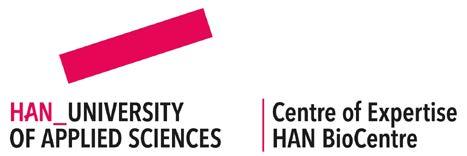
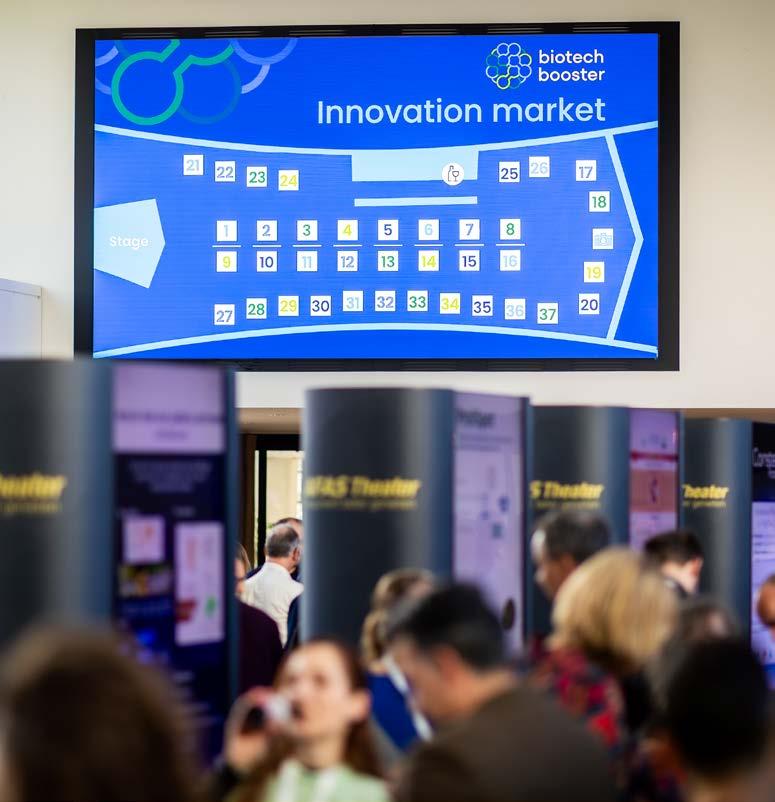
Biotech Booster optimaliseert platform SHIKIMAX gaf met het gehele team acte de presence op de innovatiemarkt. Het team, dat in 2024 een Biotech Booster grant van €200.000 ontving, onderzoekt duurzaamheid in de chemische industrie, specifiek als het gaat om de productie van dagelijks gebruikte, aromatische compounds van voedseladditieven tot polymeren.
‘SHIKIMAX is een op synthetische biologie gebaseerd platform dat beperkingen in de productie van microbiële aromaten overwint en een duurzaam alternatief biedt voor petrochemische synthese, ‘vertelt Lyon Bruinsma, Postdoc Bio Process Engineering aan de WUR. ‘In tegenstelling tot traditionele microbiële methoden, koppelt SHIKIMAX aromatische biosynthese aan groei, waarbij bijna alle koolstof naar productvorming wordt geleid, wat ongekende opbrengsten oplevert.
SHIKIMAX is een gepatenteerd plug-in microbiotische platformtechnologie dat hernieuwbare grondstoffen omzet in een brede range van waardevolle biobased aromatics met een 80% productie yield en een optimale consistentie. Het doel is om duurzame producten toegankelijker te maken en tevens bij te dragen aan een groenere economie.’
‘Het Biotech Booster program geeft een boost aan het onderzoek voor het verder optimaliseren van het platform voor industriële productie, het uitvoeren van techno-economische analyses, en het actief zoeken naar partnerships voor co-development.
Daarnaast wordt de go-to-market strategie verscherpt door onder meer klantenanalyses zodat SHIKIMAX effectief kan worden geïntegreerd in de bestaande toeleveringsketen, ‘aldus Lyon Bruinsma die we ter plekke spraken en die promoveerde op aan groei gekoppelde selectie van de bacterie Pseudomonas putida via de shikimaatroute.
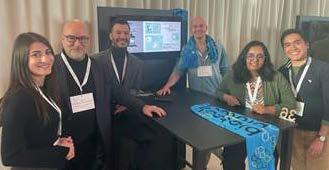
Respiratory virus infections kill hundreds of thousands of people every year, with COVID-19 and influenza among the leading causes. Projections on the virus surface, such as the coronavirus spike protein, enable these pathogens to enter our cells and cause infection. Blocking this process with biotherapeutics is a promising approach to prevent infection and thereby disease
VirXcel, a biotech startup based in Amsterdam, is developing novel antivirals against respiratory viruses using macrocyclic peptides. These peptides offer exceptional stability and specificity, positioning VirXcel’s pioneering approach at the forefront of antiviral innovation.
The company is developing a nasal spray as its primary mode of delivery, targeting respiratory infections at their point of entry. The macrocyclic peptides serve as both pre- and post-exposure prophylaxis by binding conserved sites on viral surface proteins that are difficult to reach with traditional biotherapeutics, such as antibodies. This strategy enables rapid, localized action and offers a user-friendly alternative to systemic therapies.
VirXcel’s lead candidate, VXL-001, targets the SARS-CoV-2 spike protein and is currently undergoing pharmacokinetic studies, following promising data from in vitro virus infection models. These ongoing studies aim to validate the peptide’s safety, bioavailability, and efficacy in vivo, supporting the company’s vision of developing affordable, fast-acting, broad-spectrum antivirals. The VirXcel team combines deep academic expertise with entrepreneurial drive, underpinned by strong backgrounds in peptide chemistry, respiratory virology, and drug delivery systems. The company maintains close ties with Utrecht University (UU) and Vrije Universiteit Amsterdam (VU).
Founded in 2024 as a UU spin-off, VirXcel secured pre-seed funding from Innovatiefonds NoordHolland to advance preclinical proof-of-concept studies for VXL-001. The company is currently raising additional seed funding and welcomes discussions with life science investors.
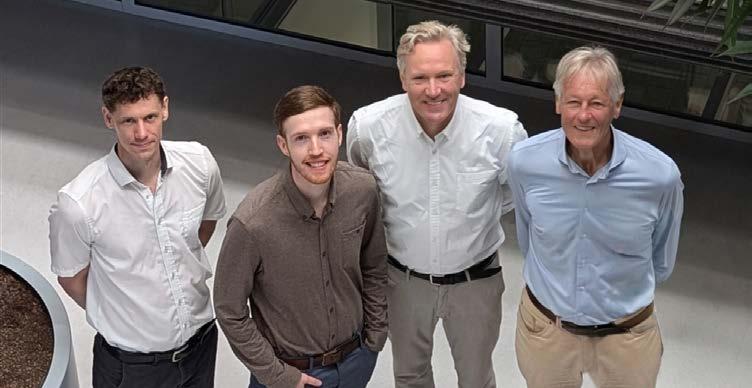
Lijnden/Oss, 7 april 2025 – CP Services
B.V., specialist in cleanroom validatie en procesoplossingen voor de (bio)farmaceutische industrie, opent per april 2025 een nieuw kantoor op het toonaangevende Pivot Park in Oss. Deze strategische uitbreiding onderstreept de ambitie van CP Services om biotechbedrijven en farmaceutische startups nog dichter bij huis te ondersteunen in hun groei en innovatie.
Met deze nieuwe vestiging op dé biofarmaceutische hotspot van Europa breidt CP Services haar dienstverlening uit naar een bredere groep innovatieve bedrijven. Vanuit het nieuwe kantoor – gevestigd in gebouw RK-2334 – biedt CP Services directe ondersteuning op het gebied van cleanroom- en procesvraagstukken. Denk aan specialistische diensten zoals procesmodificaties, onderhoud, verduurzamen en validatie van cleanrooms en installaties, kalibratie van sensoren, én onderzoek naar optimalisatie en energiebesparing van cleanrooms en procesinstallaties.
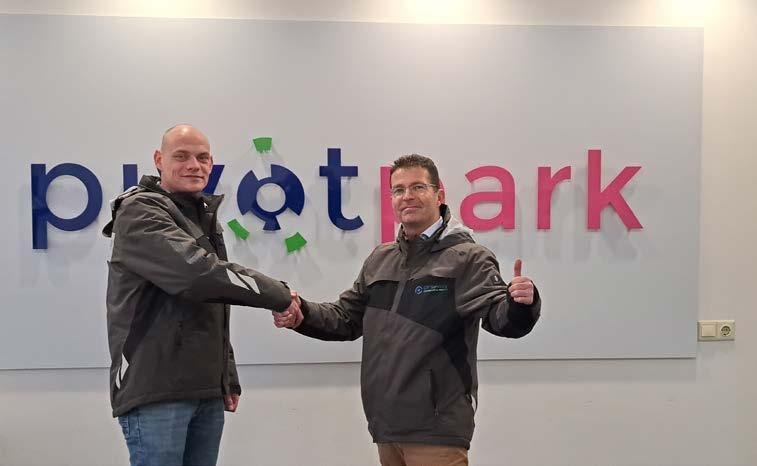
Wat deze stap bijzonder maakt, is de unieke synergie tussen CP Services en de missie van Pivot Park: het versnellen van farmaceutische innovatie.
Door letterlijk dichter bij biotechondernemers te zitten, kunnen de engineers van CP Services sneller schakelen, kennis delen en hands-on ondersteuning bieden bij complexe technische uitdagingen.
Het hoofdkantoor van CP Services blijft gevestigd in Lijnden, van waaruit al jaren succesvolle duurzame samenwerkingen worden onderhouden met ziekenhuizen, farma-producenten en high-end cleanroomomgevingen. Het nieuwe filiaal in Oss markeert een belangrijke mijlpaal in de landelijke dekking van het bedrijf.
Meer weten?
Neem contact op met onze engineer Anton Willems, gevestigd op Pivot Park (gebouw RK2334) via anton.willems@cpservices.nl of +31 6 11367589.
Bekijk ook onze website: www.cpservices.nl

Waarom jouw biofarmaceutisch bedrijf thuishoort op Pivot Park
Ben je op zoek naar de ideale plek om jouw biotech- of farmaonderneming te laten groeien en bloeien? Pivot Park in Oss biedt moderne werkplekken én een omgeving die volledig is ingericht op biofarmaceutische innovatie. Van startups tot gevestigde bedrijven: hier vind je laboratoria, kantoorruimtes en GMP-faciliteiten die klaar zijn voor gebruik.
Voor elke fase een passende werkplek Pivot Park beschikt over geavanceerde biologische en chemische labs, GMP-gecertificeerde pilotfaciliteiten, compleet ingerichte kantoren en diverse vergaderruimtes. Speciaal voor startende bedrijven is er de Pivot Incubator, met onder andere een eigen lab werkplek, celkweekfaciliteiten, gedeelde apparatuur en toegang tot vergaderruimtes.
Een netwerk dat je verder brengt
Wat Pivot Park uniek maakt, is de sterke community van biofarmaceutische bedrijven en experts. Door samen te werken, kennis te delen en apparatuur en technologieën te benutten, ontstaan er waardevolle verbindingen. Bovendien zijn er op het terrein adviseurs beschikbaar op het gebied van financiering en ondernemerschap, die je helpen om je volgende stap te zetten.
Direct beschikbaar, klaar voor groei
Op zoek naar een plek waar je vandaag nog kunt starten? Er zijn momenteel diverse lab ruimtes, kantoren en incubatorplekken beschikbaar. Met eerlijke prijzen, uitstekende voorzieningen en een inspirerende omgeving is Pivot Park dé locatie voor elke biotech-of farmaceutische onderneming met ambitie.
Gerjan Kemperman, Ardena: Pivot Park kent een lange geschiedenis op het gebied van farmaceutische ontwikkeling. De gehele campus ademt farmaceutische innovatie, hetgeen het de ideale plek maakt om onze klanten van over de hele wereld te ontvangen. Oss is voor ons van grote strategische waarde vanwege de nabijheid van diverse universiteiten, waardoor wij toptalent kunnen aantrekken ter versterking van onze teams.
Meer weten?
Bekijk de beschikbare ruimtes of neem contact op met onze Business Development Manager via floriaan.bruins@pivotpark.com

Each year, Global Investor Forum, held in conjunction with Innovation for Health, becomes the beating heart of early-stage innovation in life sciences and health. At the 2025 edition, held on 2 April, 28 bold and ambitious startup companies took to the stage to pitch their solutions to some of the sector’s top investors. After a day of impressive presentations and tough jury deliberations, nine were selected to pitch again in the high-profile Start-up Pitch Contest finals at Innovation for Health on 3 April. Here’s your chance to get to know the nine standouts—their missions, technologies, and the remarkable strides they’re making toward transforming healthcare as we know it.
With a sharp focus on heart health, Milan-based Approxima is tackling tricuspid regurgitation (TR)—a condition impacting millions globally. Their percutaneous valve repair system uniquely targets the root cause of TR by reshaping the right ventricle. Supported by strong preclinical data and IP in key markets, Approxima is on track to launch clinical studies in the EU and US. Their ambition? A next-generation Class III cardiovascular implant that redefines simplicity and safety in structural heart interventions.
Ivy Medical is changing the way infusion therapy is delivered with the Ivy Duo+. This nextgeneration infusion pump, powered by intelligent software, automates workflows and minimizes alarms. It supports nurses by improving efficiency, freeing up valuable time. As healthcare systems face increasing staffing challenges, Ivy Medical enables hospitals to deliver safe, effective infusion therapy with fewer resources.
Born out of the University Medical Center Groningen, Implican is answering a longstanding surgical challenge: anastomotic leakage in colorectal surgery. Their smart implant system—two rings and a reusable applicator—
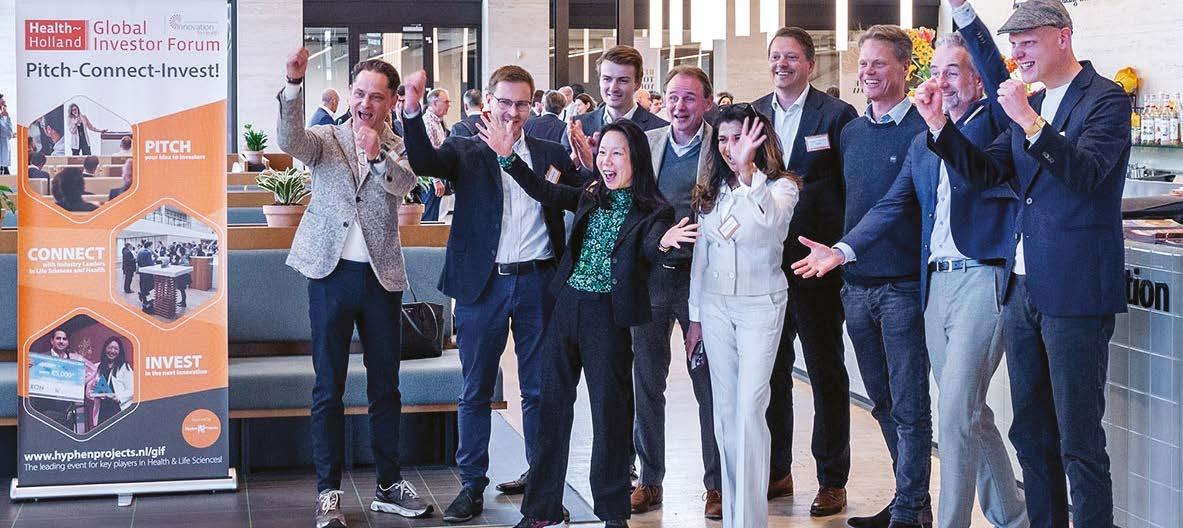
promotes clean wound healing and precise tissue approximation. With a sustainable business model and strong preclinical performance, Implican is preparing for its first-in-human trials in 2025.
OctoVascular is aiming to modernize cardiac bypass surgery with an automated anastomotic device. The minimally invasive, reloadable system simplifies vessel connection and promises faster recovery, shorter hospital stays, and more consistent outcomes for patients undergoing coronary artery bypass grafting. Their innovation has the potential to change the landscape of cardiovascular surgery.
On a mission to fight viral threats in animals and humans, LivingMed is developing the world’s first oral vaccine for avian influenza. Easy to administer and scalable, this game-changing solution could revolutionize poultry farming, reduce zoonotic risk, and bolster global health resilience. With a market potential exceeding €10 billion, LivingMed is leading the charge in veterinary immunization.
Founded by leading cancer researcher Prof. Dr. Krishnadath, SmadMinX targets one of
Each of these nine finalists stood out for their bold vision, rigorous science, and strong entrepreneurial drive. Their stories reflect the diversity and depth of innovation alive in Europe’s health and biotech sectors today. Are you building the next game-changing solution in health or life sciences? Don’t miss your chance to connect with top-tier investors, mentors, and partners at the next edition of the Global Investor Forum and Innovation for Health—taking place 25–26 March 2026 in Utrecht. Applications for pitching will open soon via www.hyphenprojects.nl/gif. Stay tuned—and get ready to take the stage.
oncology’s biggest unmet needs: metastasis prevention. Using Llama-derived antibodies (VHHs), their platform blocks critical cancer signaling pathways in SMAD4-mutant cancers. With strong preclinical results and no observed toxicity, SmadMinX is positioned to bring a firstin-class therapy to a €2.6 billion market.
XS Innovations is changing the game for dialysis patients with a novel implantable valve that regulates blood flow through an arteriovenous fistula. By preventing constant high-flow pressure, their device addresses one of the leading causes of dialysis-related complications. Having already shown success in animal models, XS Innovations is on track for First-in-Human trials by 2026.
Improving women’s health through precision diagnostics, Predica’s flagship product, CervicaDx, uses targeted RNA sequencing to identify cervical abnormalities early and noninvasively. Developed at RadboudUMC, the test reduces overdiagnosis, streamlines referrals, and alleviates stress for HPV-positive women. Predica plans to expand its platform across other women’s health indications, ushering in a new era of personalized screening.
Surgical Reality is empowering surgeons with instant, patient-specific 3D imaging—right inside the OR. Using AI and advanced computer vision, their platform provides high-resolution models without cloud processing, ensuring security and compliance. With active pilots in six Dutch hospitals and early traction in Germany and the US, they’re gearing up for CE certification and their next growth phase.
At this year’s Innovation for Health conference, the spotlight was firmly on the future of health innovation—from medtech to life sciences and pharma. Among the 28 promising start-ups that pitched their innovations, XS Innovations, led by CEO and co-founder Toon Stilma, emerged as the winner of the I4H Start-up Pitch Award 2025.
The award recognizes the most impactful and forward-thinking young company in health innovation. Sponsored by AXON Lawyers and F.INSTITUTE, the prize includes an in-kind award of €10,000 in legal and financial consulting services—support that could be pivotal as XS Innovations moves toward clinical validation and early market entry. The win also secures them a coveted feature in BiotechNEWS & Life Sciences— and for good reason.
A Pressing Challenge in Dialysis Care
Globally, over 2.5 million patients depend on dialysis machines for survival, typically undergoing treatment three times a week for several hours at a time. To facilitate this life-saving process, most patients receive an arteriovenous fistula (AVF)—a surgically created connection between an artery and a vein that allows for high blood flow. While AVFs are considered the gold standard in vascular access, they come with a critical downside: the fistula remains open 24/7, subjecting blood vessels to abnormally high flows even outside dialysis sessions. This constant stress frequently leads to complications, including vein enlargement, heart strain, clotting, and narrowing of blood vessels. On average, patients require follow-up surgeries at least annually to maintain the function of their AVF.
XS Innovations is tackling this challenge head-on with a deceptively simple yet potentially gamechanging solution.
The First Dynamic AVF Valve
The core innovation from XS Innovations is a smart, implantable valve that opens the AVF only during dialysis sessions and remains closed at other times. This Dynamic Arteriovenous Fistula (DAVF) is designed to restore the natural vascular balance, drastically reducing complications caused by constant high blood flow.
“Rather than treating the symptoms, we’re addressing the root cause,” explains CEO Toon Stilma. “With the DAVF, we can maintain

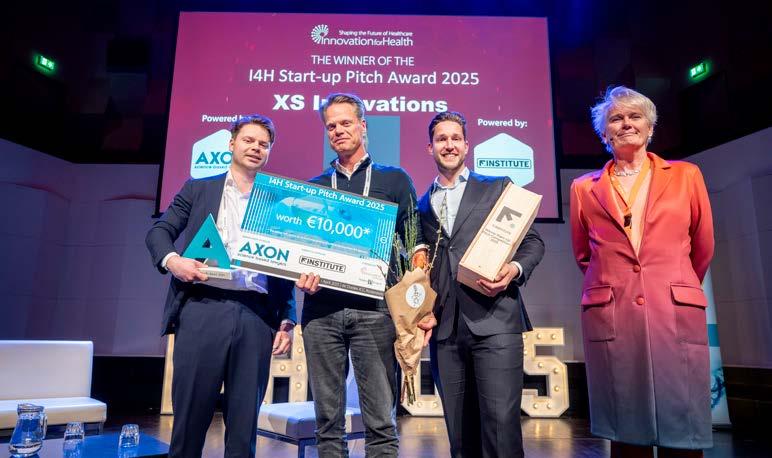
the benefits of AVFs for dialysis access while dramatically reducing the burden of complications, interventions, and hospital visits.”
The device has already shown strong results in animal studies and is now undergoing further preclinical validation. The company plans to begin first-in-human trials in 2026, with market introduction targeted for 2028–2029. If successful, the DAVF could transform care for more than half a million patients starting dialysis each year.
Medtech Expertise Meets Clinical Insight
Founded in 2024 as a spin-off from LUMC and TU Delft, XS Innovations brings together expertise from engineering, nephrology, and vascular surgery. The company’s progress is driven by a clear clinical need and a tightly aligned team of researchers, clinicians, and developers.
At the helm is Toon Stilma, whose career spans over 25 years in medical devices, aerospace engineering, and business consulting. Prior to founding XS Innovations, he led Roland Berger Tenzing, advising early-stage ventures on scaling strategy and operations. His current role involves steering the company’s vision, securing funding, navigating regulatory pathways, and forging strategic partnerships.
“We’re building something that not only works technically but also fits seamlessly into clinical workflows,” says Stilma. “The ultimate goal is to improve both outcomes and quality of life for patients.”
The I4H Start-up Pitch Award jury praised XS Innovations for its clear clinical relevance, thoughtful go-to-market plan, and the potential to significantly improve outcomes for a growing patient population. As kidney disease rates rise globally, innovations like DAVF are becoming increasingly urgent.
Winning the award brings both recognition and practical support. With legal and financial advisory services from AXON Lawyers and F.INSTITUTE, XS Innovations gains resources that are often make-orbreak for start-ups navigating the early phases of medtech development.
What’s Next for XS Innovations?
Looking ahead, the company is focused on completing preclinical validation, refining its device design, and engaging with regulators to prepare for human trials. Stilma emphasizes the importance of strategic collaboration in this journey.
“We’re actively seeking partnerships with clinicians, research institutions, and forward-thinking investors who share our mission. This award is a huge boost—not just in visibility but also in credibility.”
Call for Future Innovators
As the I4H Start-up Pitch Award continues to spotlight game-changing innovations, XS Innovations’ win sets a high bar for future contenders.
Are you an entrepreneur working on a disruptive healthcare solution with real-world impact? Want to gain visibility, connect with experts, and win practical support for your journey?
Then don’t miss your chance. Apply for the I4H Start-up Pitch Award 2026, taking place at Innovation for Health on 26 March 2026 in Utrecht, under the theme “Bridging the Gap”
For more info: https://www.hyphenprojects.nl/i4h
Whether you’re bridging the gap between lab and market, technology and care, or vision and execution—Innovation for Health is your platform.
SIGN UP. STAND OUT. START INNOVATING.
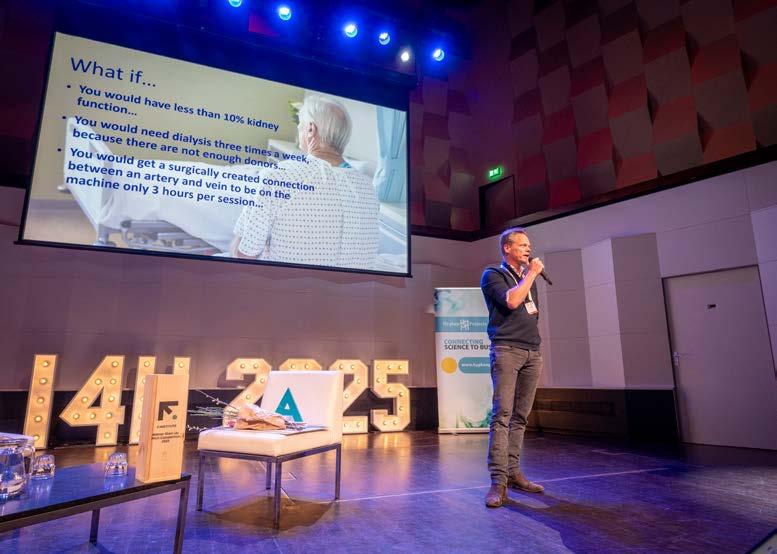
Name Start-up Company : LiveLunger
Name (co-)Founder: Veerle De Colvenaer
Mission Statement: Through revolutionizing respiratory care, we unlock the potential for patients to stay within control at home.
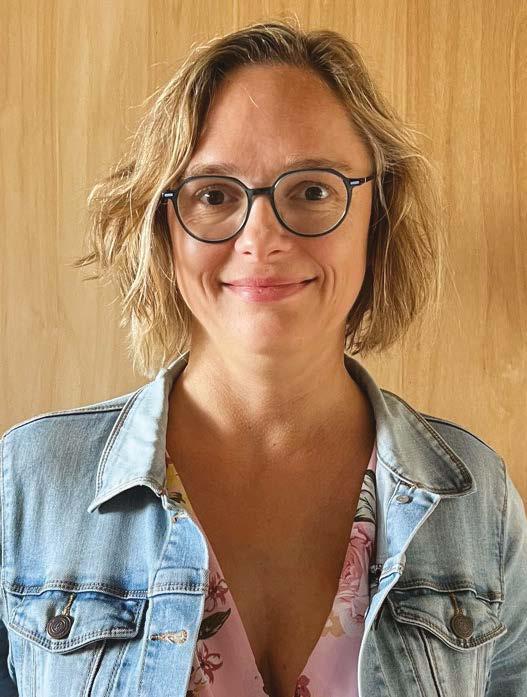
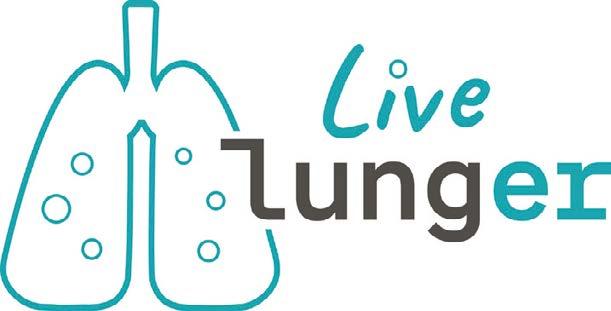
About Us:
LiveLunger creates groundbreaking products that transform respiratory care. We’ve created LungBeat: a clinically validated telemonitoring solution empowering chronic asthma patients in their daily asthma self-management.
Problem aiming to solve:
Asthma is a major noncommunicable disease, affecting both children and adults, being the most common chronic disease among children. Worldwide 262M people are affected by asthma. On average 1000 people die globally from asthma each day. Although efficient medication exists for asthma patients, deterioration of patient’s conditions is often due to one of the following factors: (1) Patients do not adhere to their therapy plan; (2) Patients do not apply their medication in a correct way; (3) HCP do not have sufficient insights in the patients’ condition in-between consultations and the severity of asthma is not correctly estimated; (4) It takes too long to achieve a status of asthma control because of the long period in between consultations. Moreover, asthma is a heterogenous condition, influenced by many comorbidities, which requires a close and personalized follow up.
Our Solution:
Our CE-Class I certified solution, LungBeat is composed out of a mobile app and a Bluetooth connected
spirometer to be used by the patient at-home; and a web portal for the lungnurse or pulmonologist in the healthcare setting. The mobile app enables the patients to do a quick check of their asthma status at home. Through a weekly questionnaire of 7 questions a weekly check of their status formulates a weekly advice on their therapy. This questionnaire is supplemented by the measurement of the lung capacity (FEV1 is the volume of air that can forcibly be blown out in first 1-second after full inspiration). The combined score of the questionnaire and the FEV1 spirometry value is crosschecked against the personalized action plan, which has been uploaded by the healthcare professional into the webportal of LungBeat.
USP:
The value of LungBeat was validated in clinical trials, showing improved asthma control, improved medication adherence and reduced risk for exacerbations. We are available in 11 languages. We were graded easy to use by patients. We offer a unique solution of a lungnurse-as-a-service on-site in the hospitals to lower the burden for clinicians.
Seeking:
To further internationalize we seek additional funding. Moreover we seek collaborators to build our next product that will not only monitor patients, but will also predict their risk at deterioration.
Azafaros announces Oversubscribed €132M Series B Financing to Advance Phase 3 Clinical programs of innovative therapies in lysosomal storage disorders. CryoCloud raises €2M to enhance machine learning for drug discovery.
Agomab announced positive topline Phase 2a interim results for AGMB-129 in Fibrostenosing Crohn’s Disease. Avidicure emerges from stealth with $50M seed round.
Alesta Therapeutics raised €65M in Series A to develop a treatment for hypophosphatasia, a rare genetic disease that weakens bones, teeth and muscles.
QurieGen raised €2.2M in a pre-seed round to redefine drug discovery through AI-powered single-cell multi-omics.
Doderm secures high six-figure funding to drive innovation in skin health.
Augustine Therapeutics raises €78 million to start clinical trials with its HDAC6 inhibitor.
EvidenceHunt raises €1.2 million for processing medical-scientific data into actionable insights.
TargED Biopharmaceuticals enters clinic with Phase 1 trial of its groundbreaking thrombolytic TGD001 to assess TGD001’s safety and tolerability in healthy volunteers.
TigaTx has been awarded up to $33.5 million in funding by the Advanced Research Projects Agency for Health (ARPA-H).
Sirius Medical raised 10 M EUR in scale-up funding to enhance the Pintuition Surgical Marker Navigation platform and extend their global reach to new markets.
BIMINI Biotech raised a EUR3M seed round to advance first-in-class therapeutics for hematological cancers.
Leyden Labs raised $70M to Advance its Intranasal Antibody Programs to Protect against Influenza and other Viruses.
Citryll raised EUR 85 million Series B to Advance Novel Net-Targeting Therapy for Immune-Mediated Inflammatory Disorders.
Synaffix has entered into an exclusive #ADC license agreement with Boehringer Ingelheim worth over $1.3 billion.
Heb je ook start-up & scale-up nieuws om te delen, stuur ons een mail naar: biotechnews@hyphenprojects.nl
Female founders in life sciences and health tech — and their investors — know what it means to play the long game. Before any research reaches the market as a viable product or service, they’ve invested years of time and millions in capital. The road is paved with trial, error, and relentless hope.
My core question — what happens to your business when you stop working? — hits differently in this sector. Unlike industries with short(er) go-to-market cycles, founders here are trained early on to view their companies through a financial lens. Even if profitability takes time, generating cash, profit, and long-term value is always part of the equation.
And because external funding often enters the picture long before product-market fit, exit strategy — whether through acquisition, IPO, or succession — is a conversation that starts earlier than in many other sectors.
In my new book, The 10 Million Euro Woman (Lannoo Campus, March 2025), I explore how return on time and money are the levers that drive profit, value, and ultimately wealth, not just for yourself, but for your team, your investors, and through your impact, for society.
This guide to building wealth helps founders and C-level executives to take the financial wheel and gain clarity over their (personal) exit plan. By thinking like a CFO or investor — regardless of your operational role — you can build a business that becomes a true financial asset.
I look forward to diving deeper into these ideas at the upcoming TOPX Event on 25 June.
— Véronique Bockstal, author, speaker, co-founder The Onwards Collective and founder of the Female Founders Academy at UCLL
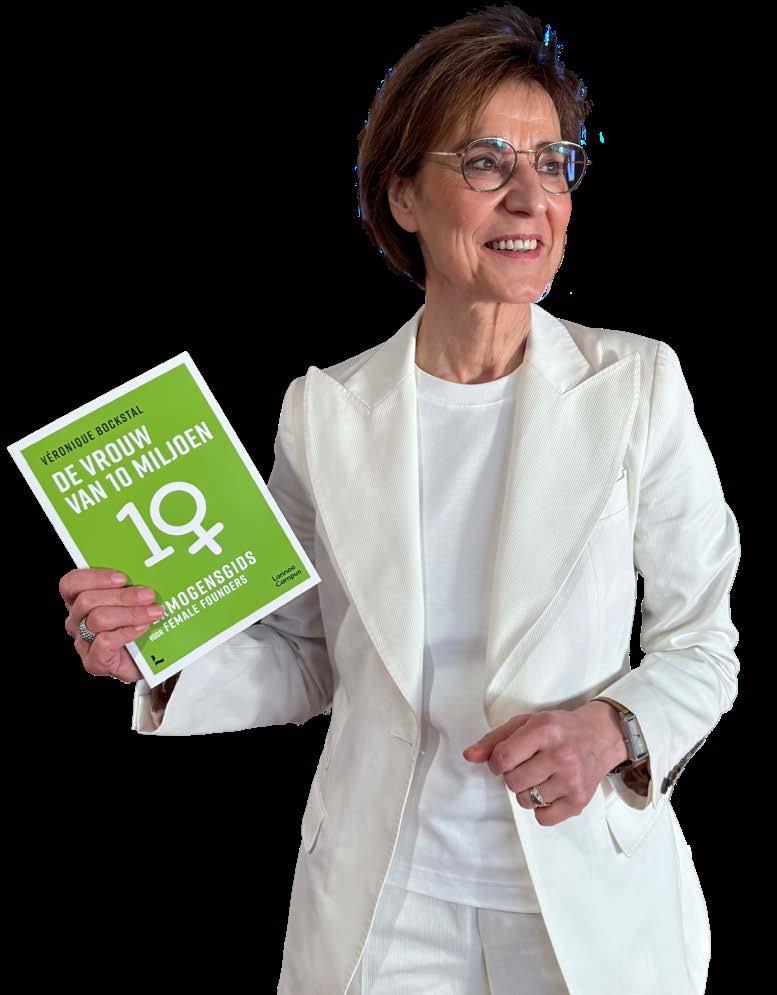
The Women’s Health Pitch session at the Innovation for Health 2025 conference, held on April 3rd in Rotterdam, placed a spotlight on groundbreaking innovations in women’s health. Sponsored by IDE Group, the session focused explicitly on addressing underserved and underfunded areas within women’s health, reflecting the event’s overarching theme, “Joining Forces.” The theme emphasised collaboration among innovators, healthcare professionals, and industry leaders to accelerate the advancement of women’s health solutions.
Five pioneering companies were selected to present their innovative solutions. First, An Van Den Bulcke from 4Tissue introduced advanced hydrogel solutions aimed at restoring tissue for breast reconstruction. Next, Georgina Booth from FEMALID showcased a female-friendly medical urinalysis container, addressing an often-overlooked aspect of women’s health diagnostics and significantly enhancing the usability of urine collection for medical testing. Following this, Ronald Vos of CC Diagnostics demonstrated their accurate method in cervical cancer
detection, highlighting significant advancements in making screening more available for all women. Additionally, Siobhán Kelleher from OnaWave Medical presented a novel medical device designed for simple, earlier and more cost-effective diagnoses of endometriosis. Finally, Violette Defourt from Rapidemic introduced revolutionary, decentralized molecular diagnostics for women’s sexual health, designed for rapid use.
Moderated by Daan Hittema, Business Development Leader Europe at IDE Group, the session featured an esteemed judging panel including Carmen van Vilsteren from Health~Holland and Arianne van Koppen from TNO.
Notably, the jury awarded two pitches, recognising both Georgina Booth from FEMALID and Violette Defourt from Rapidemic for their innovative contributions. In addition to recognition for their innovative contributions to women’s health, winners jointly received €10,000 worth of services from IDE Group, with the objective of accelerating their advancements and pushing them forward in their

respective fields of female health and rapid sexual health diagnostics.
The jury’s decision to recognize two pitches clearly reflected the collaborative spirit of the conference’s theme, “Joining Forces.” Furthermore, the overall high quality of all pitches and the insightful questions posed by the jury underscored the collective commitment toward advancing women’s health solutions through collaboration and shared expertise.
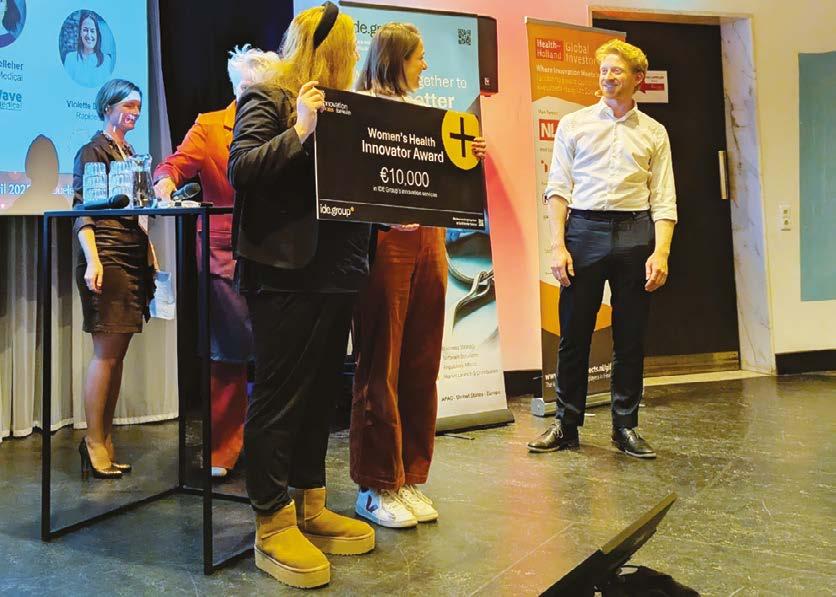

13 November 2025 at Corpus Congress Centre in Leiden
14 November 2025 at Accelerator in Utrecht
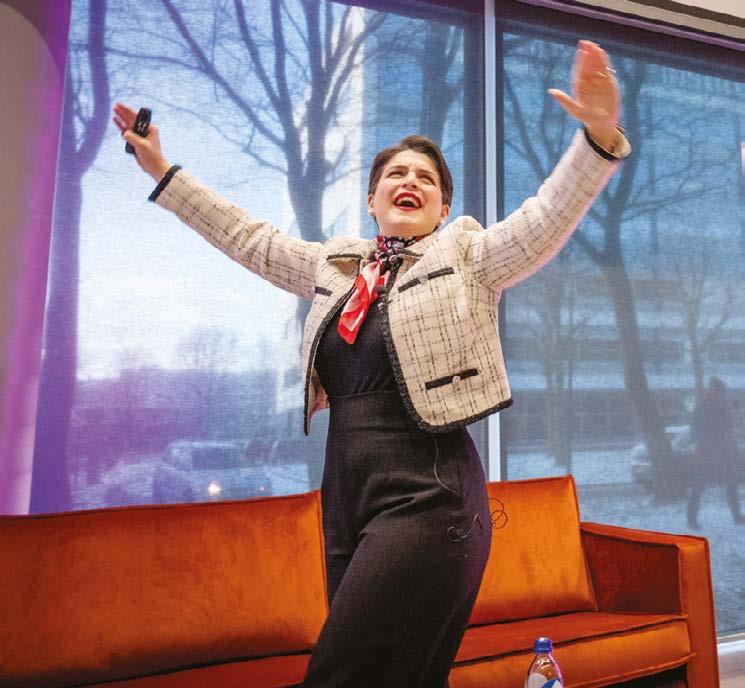

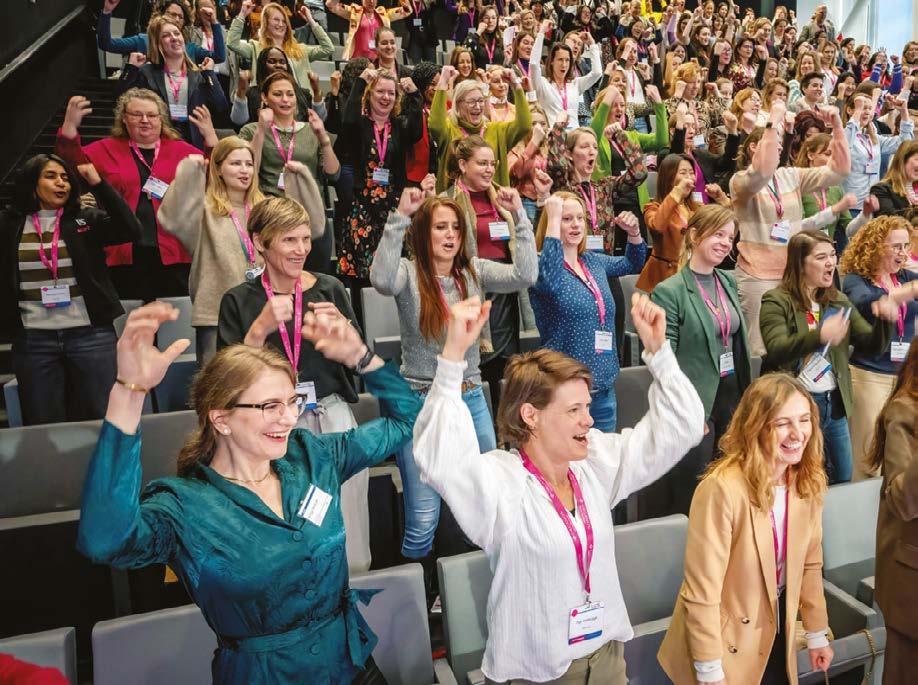

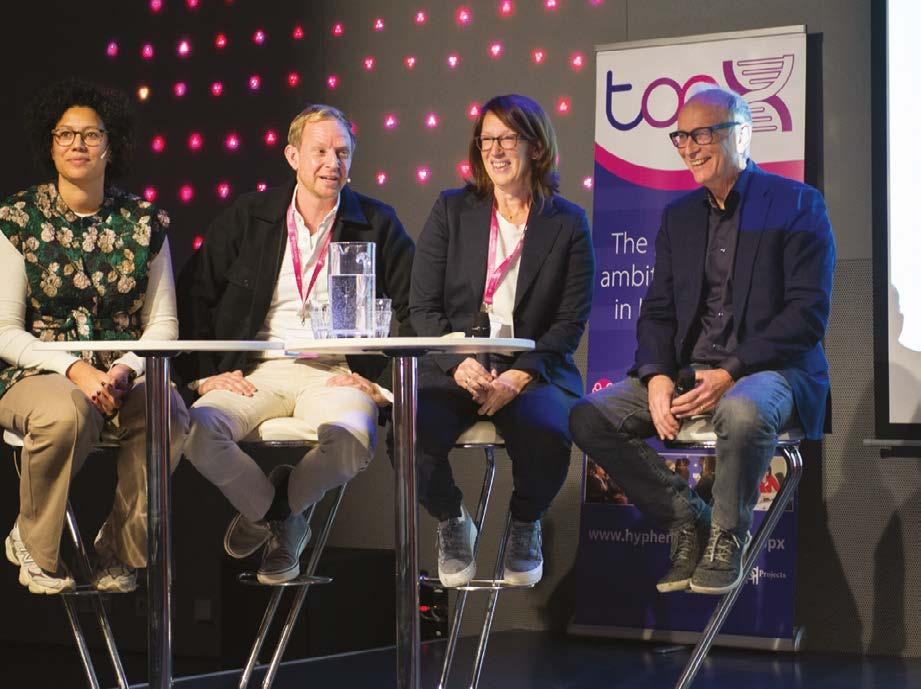
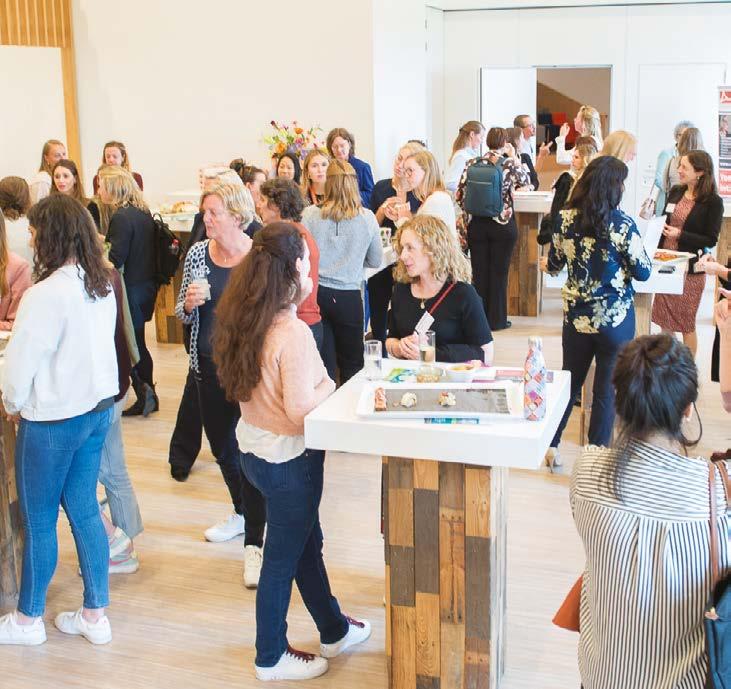
On 13–14 November 2025, the TOPX Summit will unite hundreds of talented professionals from industry, academia, government, and non-profits, driven by a shared ambition to lead and innovate in Life Sciences & Health. This year’s theme, “Leading Together in Life Sciences & Health,” focuses on building diverse, high-performing teams that drive innovation and benefit society. The two-day programme includes keynotes, panels, workshops, networking, and more.
What to expect?
• Inspiring talks from visionary leaders
• Insightful sessions & deep dives
• Speed dates with coaches and high-impact networking
• Interactive panels & hands-on workshops
• Females to Follow Award





The TOPX Summit is more than an event - it’s an opportunity to empower each other, get inspired, foster inclusive leadership, expand your network and develop your skills and mindset. Join us at TOPX Summit 2025 to rise together and lead the change Life Sciences & Health needs.
Interested in partnering with us? Explore sponsorship opportunities here: www.hyphenprojects.nl/topx/sponsorship
Building High-Performing Teams to Drive Innovation and Bene t Society For more information and registration: www.hyphenprojects.nl/topx/summit



Building High-Performing Teams to Drive Innovation and Bene t Society
13 November 2025 at Corpus Congress Centre in Leiden
14 November 2025 at Accelerator in Utrecht Leading





















#IAmRemarkable Workshop” at TOPX Event at Pivot Park on 10 July
On 10 July 2025, TOPX Network will host a powerful and interactive session titled “From Reflection to Recognition: #IAmRemarkable Workshop” at Pivot Park. Rooted in the global #IAmRemarkable initiative, this workshop is designed to empower participants from all backgrounds – regardless of age, gender, or position – to embrace and celebrate their achievements, while challenging the social norms and biases that often surround self-promotion.
The session will open with a personal reflection from Cristianne Rijcken, a seasoned entrepreneur and a TOPX ambassador. Her 15-minute personal story about her journey will set the tone for the workshop’s central goal: to encourage open, honest reflection and equip participants with practical tools for confidently expressing their accomplishments.
Facilitated by Timi Csontos, owner of My Best Self, a leadership coach and organizational culture expert, the workshop includes guided group discussions, exercises, and evidence-based insights into how bias and limiting beliefs can shape our professional narratives. Participants will explore how discomfort around self-promotion can hold them back, and will engage in activities that help shift this mindset – ultimately learning to articulate their value with clarity and confidence. Regardless of your professional background or career stage, the workshop offers a valuable space for reflection, structured dialogue, and the development of practical strategies to articulate your accomplishments with greater confidence and clarity.
As part of the broader TOPX Network’s commitment to personal and professional development in the life sciences sector, From Reflection to Recognition: #IAmRemarkable Workshop promises to be an energising and affirming experience that encourages all voices to be heard. To learn more about the global movement behind the workshop, visit www.rmrkblty.org/iamremarkable. For full programme details and registration, please see www.hyphenprojects.nl/topx/10-july-2025
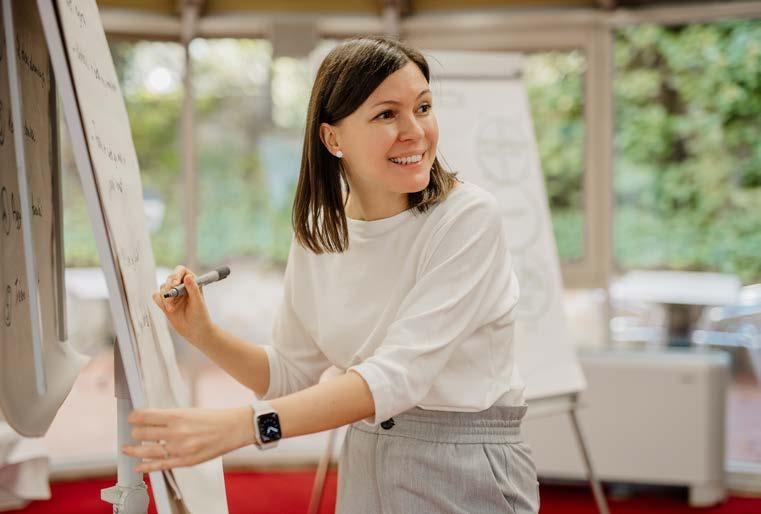
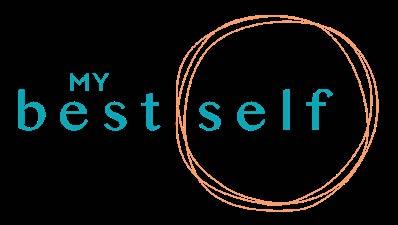
The Netherlands Women’s Health Research and Innovation Center
In het Erasmus MC is onlangs het Netherlands Women’s Health Research & Innovation Center opgericht, een initiatief van dr. Jeanine Roeters van Lennep, prof. dr. Hanneke Takkenberg en Greet Vink. Met dit centrum willen zij de gezondheid van vrouwen structureel verbeteren door onderzoek en innovatie te bundelen in nauwe samenwerking met wetenschappers, zorgverleners, beleidsmakers en ervaringsdeskundigen.
Volgens de initiatiefnemers is het hoog tijd voor een bredere kijk op vrouwengezondheid: “Vrijwel elke vrouw krijgt in haar leven te maken met vrouwspecifieke aandoeningen of gezondheidsproblemen die haar zwaarder treffen dan mannen. Het is onbegrijpelijk dat hierover zo weinig kennis is vastgelegd. Gezondheidsproblemen van vrouwen zijn uiteindelijk een probleem voor iedereen.” Het centrum wil die achterstand inhalen door te onderzoeken waarom bepaalde aandoeningen bij vrouwen vaker voorkomen of zich anders uiten, en welke rol biologische, sociaaleconomische en omgevingsfactoren hierin spelen.
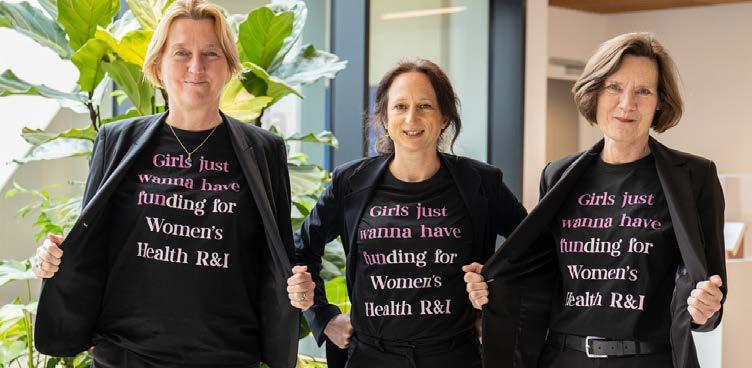
Het doel is om duurzaam gezonde levens te garanderen en het welzijn van alle vrouwen te bevorderen, zowel nu als voor toekomstige generaties. Vier strategische thema’s vormen de kern van het onderzoeksprogramma: het begrijpen van vrouwspecifieke aandoeningen, meer inzicht in de determinanten van vrouwen¬gezondheid en chronische ziekten, het verenigen van gefragmenteerde onderzoeks- en innovatieinspanningen, en het sluiten van ontbrekende schakels in de dataketen. Dit sluit aan bij SDG 3 van de Verenigde Naties: het bevorderen van gezonde levens voor iedereen.
Het centrum zet in op de transformatie van traditioneel medisch onderzoek naar een holistische benadering met een levensloopperspectief. “Uiteindelijk moet onze focus verschuiven van ziekte naar gezondheid, en van gezondheid naar een bloeiend levensverloop voor alle vrouwen.” Publiek-private samenwerking speelt daarbij een sleutelrol, met partners als technologiebedrijven, vrouwennetwerken en patiëntenorganisaties. Hiermee bundelt het centrum kennis en realiseert het concrete verbeteringen in de zorg voor vrouwen, in Nederland én daarbuiten.
Nederland blijft achter in vrouwelijke participatie in life sciences
Kansen voor vrouwelijk talent blijven onbenut in snelgroeiende sector
Nederland heeft internationaal een uitstekende reputatie op het gebied van life sciences, met gerenommeerde universiteiten en innovatieve onderzoeksinstituten. Toch vertaalt dit sterke fundament zich niet naar een inclusieve arbeidsmarkt. Volgens het STEM Skills Index-rapport, ontwikkeld door SThree, het moederbedrijf van Real en de wereldwijde workforce consultancy in de STEM-sector, en het Center for Economics and Business Research (Cebr), staat Nederland wereldwijd op de zevende plek als het gaat om algehele participatie in de life sciences. Maar opvallend genoeg blijft de participatie van vrouwen in delen van deze sector achter.
Tegelijkertijd kampt de sector met een groeiend tekort aan gekwalificeerd personeel. In april 2025 stonden er in Nederland 2.296 vacatures open in de life sciences, waarvan alleen al 742 in Amsterdam.
Waarom vrouwen afhaken in life sciences
Een studie van expertisecentrum VHTO wijst op structurele drempels met betrekking tot doorgroeimogelijkheden naar senior posities: beperkte toegang tot netwerken, genderstereotypering, en een ongelijke verdeling van zorgtaken. Vrouwen ervaren bovendien vaker dat ze zich extra moeten bewijzen in een overwegend mannelijke werkomgeving.
Toch zijn er ook lichtpuntjes. Zo blijkt uit recente analyses dat vrouwelijke wetenschappers bij NWO een hogere slagingskans hebben op het verkrijgen van een Veni-beurs dan hun mannelijke collega’s. Dat wijst op verbeterde genderbalans bij onderzoek financiering – een belangrijke stap vooruit.
Waar liggen de kansen voor vrouwen?
Hoewel STEM-beroepen vaker door mannen worden ingevuld, zijn vrouwen in life sciences goed vertegenwoordigd in functies binnen medisch en klinisch onderzoek. De uitdaging ligt in het behouden van dit talent binnen de sector. Meer afgestudeerden zouden voor een loopbaan in de industrie moeten kiezen. Daarnaast is het essentieel dat vrouwen op cruciale momenten in hun carrière, zoals bij doorgroei naar senior functies, gelijke kansen krijgen om te promoveren en door te stromen.

Bron: Dutch Health Hub
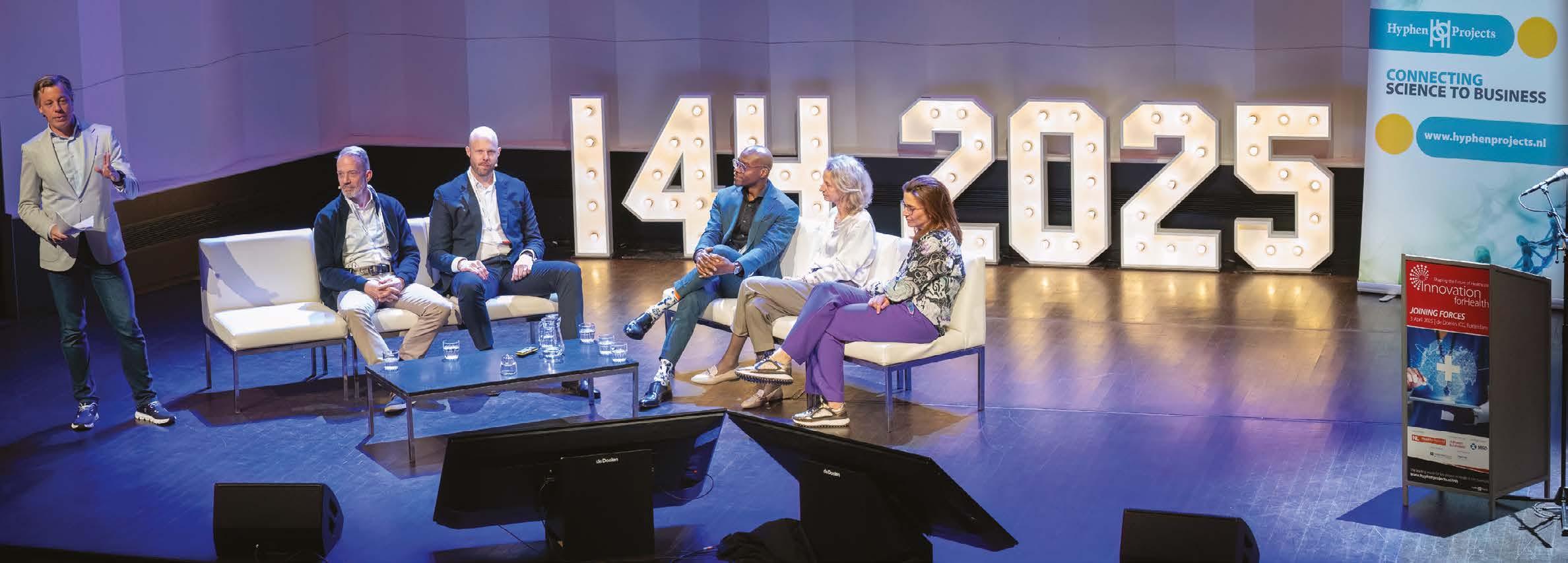
Innovation for Health en het Global Investor Forum van organisator Hyphen Projects vinden volgend jaar plaats in Utrecht op 25 en 26 maart 2026. Dat het topcongres en forum neerstrijken in de Domstad, is te danken aan de eendrachtige samenwerking van tal van partijen in regionale ecosysteem in life sciences & health.
Talrijke innovatoren steken jaarlijks de koppen bij elkaar tijdens Innovation for Health: onderzoekers, clinici, vertegenwoordigers van innovatieve bedrijven, investeerders en mensen die innovaties implementeren. Hans Hofstraat van Stichting Utrecht Science Park, die vanaf de eerste editie van de partij was, heeft Innovation for Health elk jaar zien groeien. “Het is nu de leidende conferentie op het gebied van life sciences & health in Nederland. De focus ligt op de vertaling van innovaties naar de praktijk en op het bij elkaar brengen van ondernemende onderzoekers met mooie ideeën en plannen en investeerders en bedrijven. Op die manier vormt Innovation for Health een broedplaats van innovatie en van nieuwe initiatieven die steun nodig hebben.”
Bundeling van krachten
Het Global Investor Forum landt op 25 maart 2026 in het research- en innovatieklimaat van het Utrecht Science Park en zal plaatsvinden in Accelerator Utrecht van Kadans. Innovation for Health strijkt op 26 maart 2026 neer in Koninklijke Jaarbeurs. Utrechtse partijen uit het regionale ecosysteem voor life sciences & health hebben daarvoor hun krachten gebundeld. Zij gaan sterk bijdragen aan de inhoud en de uitvoering van de bijeenkomsten. Met hun programmatische en organisatorische inbreng hebben Dutch Health Hub, Koninklijke Jaarbeurs, Utrecht Science Park, het groeifondsinitiatief Oncode Accelerator, ROM Utrecht Region en de gemeente Utrecht congresorganisator Hyphen Projects overtuigd: Utrecht is the place to be.
Marlinde Schoonbeek wins I4H Young Academic Innovator Award 2025
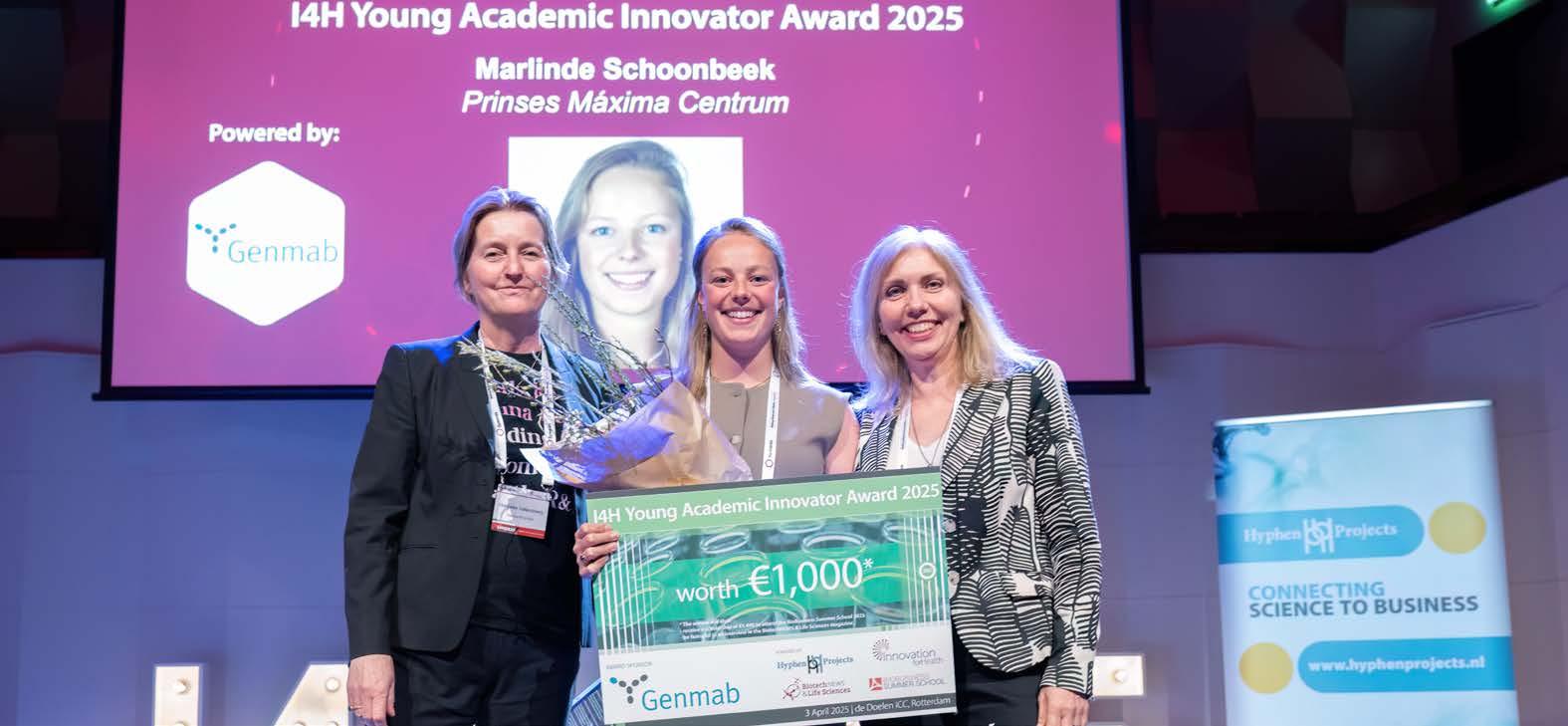
Each year, the Innovation for Health conference celebrates the next generation of healthcare innovators through the Young Academic Innovator Award. In 2025, the honor went to Marlinde Schoonbeek, PhD candidate at the Princess Máxima Center for Pediatric Oncology, for her pioneering work on functional drug profiling in pediatric solid tumors.
Sponsored by Genmab, the award includes a €1,000 cash prize, a scholarship to the BioBusiness Summer School, and a feature in this BiotechNEWS magazine—but more than that, it offers a spotlight for promising researchers pushing the boundaries of healthcare innovation.
Tackling a critical gap in pediatric oncology Schoonbeek’s research targets a pressing clinical challenge: children with high-risk extra-cranial solid tumors face a five-year survival rate below 50%. Quick, effective treatment decisions are crucial—but molecular profiling alone often isn’t enough to guide those choices.
Her project, titled “Ex vivo drug sensitivity profiling to timely predict drug response in pediatric solid tumors”, presents a powerful addition to the oncologist’s toolkit: rapid, functional drug screening of tumor tissue, providing a real-time picture of ex vivo tumor response to a wide range of drugs for each patient.
A faster, personalized approach
Using fresh tumors expanded in patientderived xenografts, Schoonbeek and her team performed ex vivo short-term screenings across
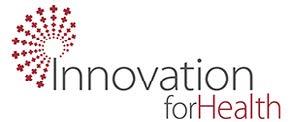

nine pediatric tumor types. Within just 14 days, they could determine individual drug sensitivity profiles, testing between 77 and 224 compounds per sample. The results were impressive: 94% of samples revealed at least one promising drug hit—even in cases with no clear molecular targets. This not only offers more treatment options, but does so on a timeline that could influence actual patient care.
More than genomics: why drug screening matters
While Schoonbeek’s work demonstrate that molecular alterations alone are poorly predicting drug response, transcriptomic biomarkers—gene expression signatures—were more predictive of sensitivity to targeted therapies. They also identified specific growth-rate dependencies for drug classes like topoisomerase and cytoskeleton inhibitors.
This could be a game-changer: a method that’s fast, reliable, and clinically applicable, even in the absence of extensive molecular data—bringing hope and options to patients with few. Currently, this method is expanded including fresh patient samples. Together, this shows how functional profiling can complement genomics—broadening treatment possibilities and enabling better-tailored therapy decisions for young cancer patients.
Well-deserved recognition
The I4H jury, comprised of Professor Hanneke Takkenberg of Erasmus MC, Dr Nettie Buitelaar of Biotech Booster, Dr Liana Steeghs of Genmab and Barbara Brunnhuber of BioPartner Leiden, commended Schoonbeek’s research for its
clinical impact, innovation, and methodological rigor. Her project stood out in a strong field of finalists spanning areas such as AI diagnostics, immunotherapy, and regenerative medicine. Receiving the award, Schoonbeek shared, “It’s a great honor and encouragement to keep pushing for patient-centered innovations. I’m grateful for the opportunity to connect science and real-world care.”
As she looks ahead, Schoonbeek is eager to continue to drive patient-centered innovation. “Throughout my PhD, I’ve learned that I enjoy connecting scientific insight with softer skills like coordination, organization and strategic thinking. I thrive in environments where translational research meets strategic execution – where I can connect the right dots, shape the direction, and coordinate the process. What I love most about my PhD is the real impact for patients, and that I’m seeking in a future role after I finish my PhD. I look forward to combining content, coordination and meaningful impact, ideally within a mission-driven biotech company like Genmab.”
With the added platform of the BioBusiness Summer School, she’s now poised to expand her impact even further—at the intersection of science, entrepreneurship, and clinical application.
Are you the next Young Academic Innovator? Are you a PhD candidate working on a healthcare innovation with real-world impact? Want to grow your visibility, connect with industry leaders, and be recognized for your work?
Then apply for the I4H Young Academic Innovator Award 2026! You could win a cash prize, BioBusiness Summer School scholarship, and a feature in BiotechNEWS & Life Sciences—just like Marlinde Schoonbeek.
Join us at Innovation for Health 2026, taking place on 26 March in Utrecht, themed “Bridging the Gap”. Whether you’re closing the divide between science and patients, academia and business, or discovery and delivery—this is your stage. For more information: www.hyphenprojects.nl/i4h
SIGN UP. STAND OUT. START INNOVATING.
Ook een nieuwe baan of prijs gewonnen?
Geef het dan door aan onze redactie via biotechnews@hyphenprojects.nl.
Personalia Nieuwe Baan
Carsten Linnemann
CEO at Acerta Pharma (May 2025)
Barend Bouma
Partner at NLO (May 2025)
Els Beirnaert
Asset Strategy Lead for Empasiprubart at argenx (May 2025)
Joris Schuurmans
CEO of Delta Life Science (May 2025)
Jan Bart Houwing
Chief of Staff at MSD Netherlands (May 2025)
Marco Timmers
CEO at Sapreme Technologies NV (April 2025)
Henry Gosebruch
CEO of XYZ SpinCo NV, a Galapagos subsidiary (April 2025)
Ivan Burkov
Partner at INKEF (April 2025)
Jan Groen
Chairman of the Board at Radiomics.bio (March 2025)
Marieke Louwers
Project Leader Drug Development at argenx (March 2025)
Fabrice Chouraqui
CEO of Pharming Healthcare Inc (March 2025)
Lineke Pelleboer
Director of Business Development at Batavia Biomanufacturing (March 2025)
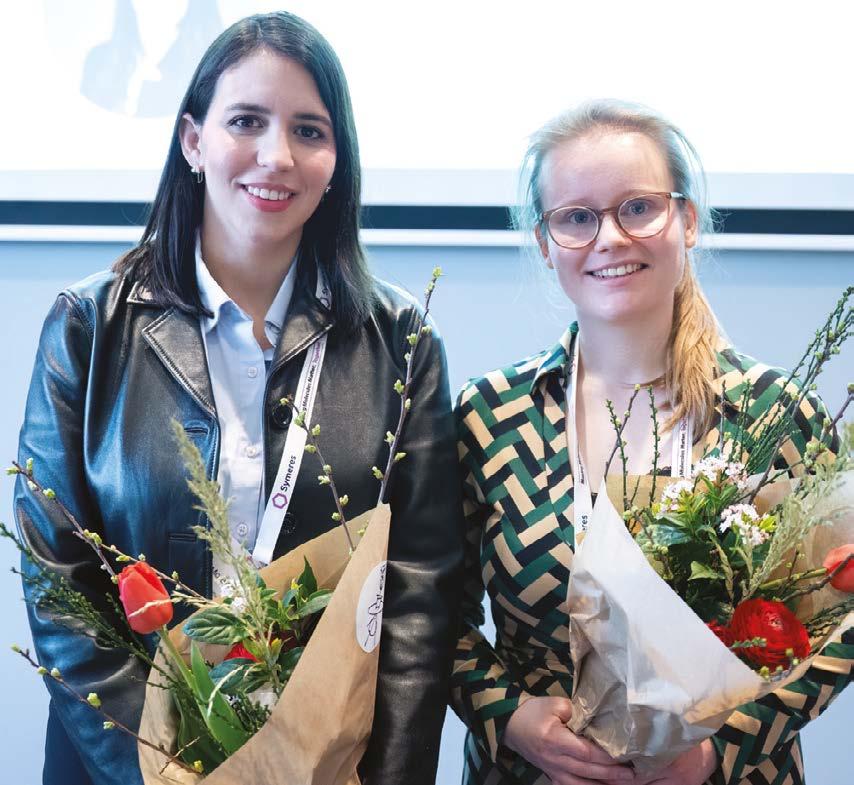
Ana Moreno of Navega Therapeutics and Aisling Foley of ExCulture received the Termeer Transatlantic Connections Award 2025 at the VIP dinner at Innovation for Health 2025
Ron van Eijsden
Chief Commercial Officer at INTRAVACC (February 2025)
Gerard Koenig
CEO of Augustine Therapeutics (February 2025)
Lotte Westerhof
CSO at Hudson River (February 2025)
Tom Aelbrecht
COO J&J Campus Belgium & Head of Strategic Partnerships (January 2025)
Pieter Rottiers
CEO Tanai Therapeutics (January 2025)
Marcel Langoor
CEO at Brightlabs (January 2025)
Jim Scibetta
CEO VectorY (December 2024)
Danielle Raalte
Director Business, Strategy & Operations at Kite Pharma (January 2025)
Sander van Deventer
President of R&D at VectorY (December 2024)
Corina Verhoeven
Director Public Affairs Benelux at Gilead Sciences (December 2024)
Brian Woolhouse
Managing Director Netherlands at MSD (Dec 2024)
XS Innovations wins the I4H Start-up Pitch Award 2025
Capsule Photonics wins the Venture Challenge 2024-2025 Winter Edition.
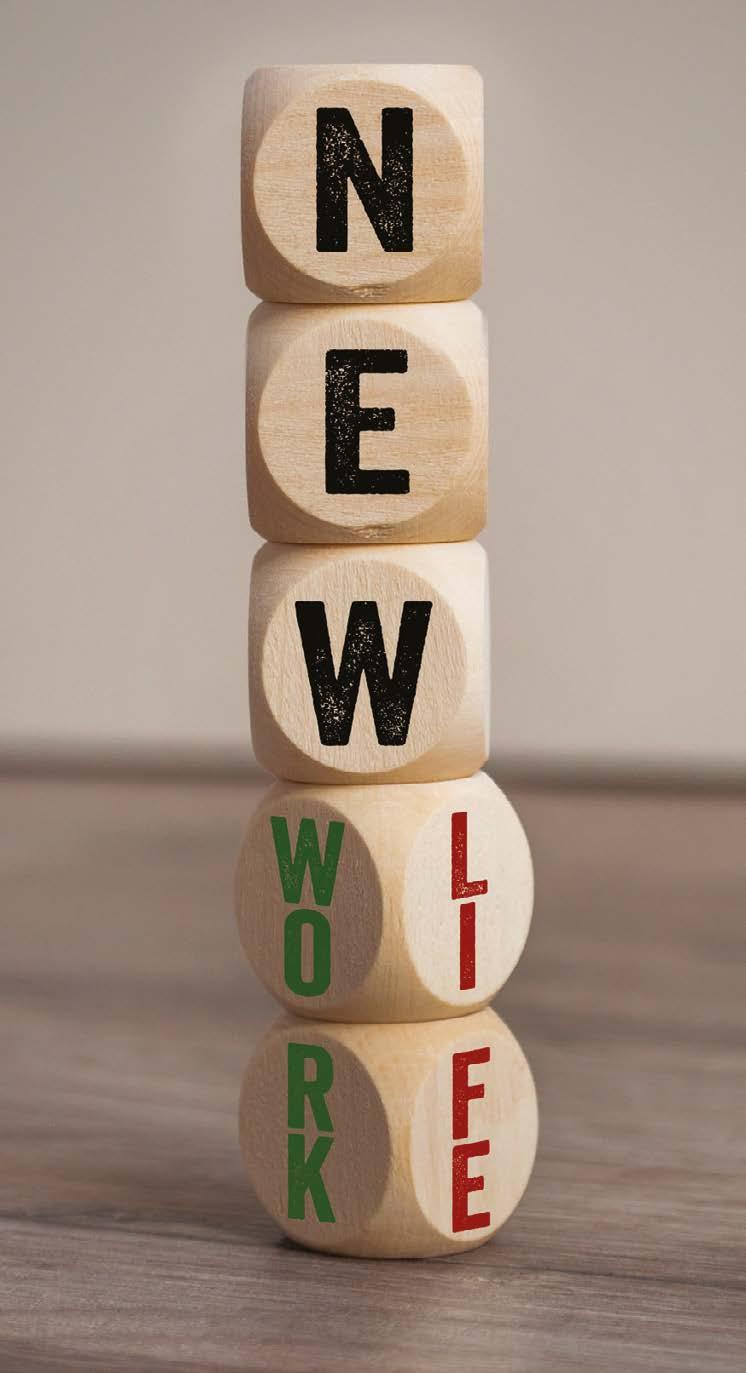
Valneva awarded as Best Biotech of 2025 at the Annual Vaccine Industry Excellence Awards
Aisling Foley of ExCulture and Ana Moreno of Navega Therapeutics win the Termeer Transatlantic Connections Award 2025.
Professor Meta Roestenberg wins the Mercator Sapiens Stimulus prize, worth one million euros, for her work on developing a new malaria vaccine.
Sniper Therapeutics wins the Venture Challenge Fall edition 2024.
Femalid and Rapidemic win the IDE Women’s Health pitch competition at Innovation for Health 2025.
Marlinde Schoonbeek wins the I4H Young Academic Innovator Award 2025.
Leila Akkari (NKI) and Marvin Tanenbaum (Hubrecht Institute) received the 2025 Ammodo Science Award
Edwin Moses, the former CEO of Ablynx who currently is Charmain at Achilles Therapeutics, Avantium, LabGenius and NanoSyrinx, shares his story.
By Yilmaz Biter
In the examination room at the KraftfahrtBundesamt that day, there was an unusual scene: two instructors – one in the passenger seat, the other observing from the back –watching a candidate whose performance suggested that obtaining a driving licence was at best an academic exercise. The examiner’s subsequent assessment was direct, if not entirely encouraging: “You’re absolutely hopeless. We’ll let you pass because you need the job. But you have to promise us that you won’t drive very much in the first few years.’’
This moment of pragmatic forgiveness would prove decisive. The candidate, a postdoctoral researcher looking for a job at an American biotech company, had faced a simple but fundamental obstacle: the job required a driving licence. After initially failing the test, he had obtained a letter from his university professor urging the authorities to grant an exception to the standard six-month waiting period for a retest. The bureau’s decision opened an unexpected door.
This story highlights the role of luck and fate, and even more importantly the importance of others opening doors for – at that moment – younger, driven people. But who is the postdoctoral researcher in this story? Edwin Moses, currently Chairman of Achilles Therapeutics, Avantium, LabGenius and NanoSyrinx and former CEO of Ablynx. ‘’Looking back at some key moments in my career, I realize that they often happened when I was the last choice.’’
‘’As a postdoc in Germany, I wanted to stay in the country and find a job, but I wasn’t sure what I wanted to do’’, he continues. ‘’I knew I didn’t want to go into academia. Then I came across a job ad for an American biotech company that sold reagents for molecular biology research. It was run by an entrepreneur and operated like an informal network. The job required a PhD, but also fluency in German. My German wasn’t great, but I applied anyway. I went through the interview process, and in the end, the American team called me back. I was the only PhD who was open to it – so they hired me.’’
When Moses was hired, he was sent to the United States for three months of training in sales and molecular biology products. There was only one problem: he needed a driving licence. ‘’I didn’t
have one, so I took an accelerated driving course in Germany. As you can imagine, Germany has very strict rules and I failed the test. Normally I would have had to wait six months before retaking the test, but my university professor wrote a letter to the authorities explaining that I needed the licence for my job. They agreed to give me another chance, but on one condition: they put two driving instructors in the car – one in the front seat, one in the back – to make me even more nervous. Somehow I managed to pass.’’
Creating a talent fostering culture
Culture is critical to success. It’s the shared values and behaviours that shape the employee experience and drive performance. A strong culture fosters belonging, engagement and innovation, attracting and retaining talent while improving teamwork and communication. It clarifies expectations, guides decisions and reinforces the company’s mission, laying the foundation for growth. According to Edwin Moses, however, success is not just about generating returns for investors and the development of medicines for patients.
How do you define success?
‘’My favourite achievement is the development of the people I have worked with. There are 13 former Ablynx employees who have become CEOs. I believe we created an environment where people could learn, where they could be ambitious and think they could do it themselves. When we were bought by Sanofi, people came up to me and said they had just had the best 10 years of their lives. Work doesn’t stop at the office door, it’s a critical part of your life.’’
What is the biggest challenge you have seen in leadership?
‘’Convincing fellow leaders of the need to nurture the culture, because often they don’t believe in it. Very often you have C-suite members who see it as a waste of time. You have to convince them as well. Not just get them to do it, but be enthusiastic about being part of it. People would also tell me: ‘You don’t go home at 10 pm from the parties, other C-suite would leave early’. Your people are picking up on all these signals. That is the biggest challenge: to get the rest of the senior management team on board and committed to investing in the culture and people.’’
As a first-time CEO, you will make inevitable mistakes. What lessons do you have for firsttime CEOs?
‘’Very often the mistake is not changing key people or board members as quickly as you should. I think that is a very common mistake. It remains difficult, because letting people go – whether employees or board members – is never easy. But too often we underestimate the damage that can be done by having the wrong person in a critical role at a critical time. This is especially true when a business is evolving rapidly. Someone may be perfect for one stage of the company’s growth, but not for the next. Looking back, it’s probably the area where I have made the biggest mistakes.’’
Success breeds success
Belgium’s thriving biotech sector owes much of its success to the Flanders Institute for Biotechnology (VIB), a research organization that bridges the gap between scientific discovery and commercial viability. This highly structured institute has nurtured groundbreaking innovations, such as Ablynx’s Nanobody technology, providing crucial support during the precarious early stages. ‘’The key differentiator in Belgium is the VIB. It consists of a few thousand people. Take Ablynx’s Nanobody technology as an example. When it was first discovered, no one wanted to fund it, but the VIB kept it alive until investors came on board. In terms of intellectual capacity, they are on a par with Harvard and Yale. They also attract a significant number of international scientists to Belgium. I think they make a real difference, but they keep a relatively low profile.’’
While there may be some truth in the European paradox – the idea that Europe excels at research but struggles to translate it into commercial success – Belgium, and the Benelux region in particular, is a notable exception. ‘’I think that idea is true for Europe as a whole but if you look at the Benelux with companies like Argenx, Genmab and formerly Ablynx, then compared with other European areas the Benelux biotech scene is quite outstanding, creating multi-billions of Euros in value and new, innovative medicines to benefit patients.’’
If Ablynx had never existed, neither would Argenx, which has now grown into a $39 billion company. The three key people who started Argenx came from Ablynx. ‘’When they went
to the United States to raise money, they could point to Ablynx and say: ‘Well, you know Ablynx from Ghent? We are from Ghent too’. When I first went to the USA on behalf of Ablynx, people asked me where Belgium was and if it was part of France? The American investors are not stupid people, of course, but they weren’t familiar with the country or the Flanders region. But then they started to see the success at Ablynx and so when the next people come from the region and tried to raise money, it became easier.‘’
What is it like to be stepping down after the sale of Ablynx to Sanofi for 3.9 billion euros?
‘’As a person, it is a huge shock to the system. You go from thinking 100 per cent about the company to not having to do it at all. The first few weeks were very strange. It took me a couple of months to get over that feeling. I was happy with the outcome and I think it was good for the people. I thought about doing other CEO jobs, but it was more appropriate to do non-executive jobs. So that was what I was looking for.’’
What is a book that you would recommend to the readers?
‘’Catch-22 by Joseph Heller. It’s a book about American forces getting themselves into absurd situations, at one point even bombing their own airfield. At the centre of the story is a complex protagonist who finds himself in impossible dilemmas. The novel revolves around the concept of the Catch-22, a paradoxical problem with no clear solution. This theme runs through the whole book. It’s a long story, full of irony. It’s incredibly funny, but it makes you think about problems that seem unsolvable – problems where the only way out is to do something completely irrational.’’
Do the situations in the book relate to your experience as a biotech entrepreneur?
‘’Yes, I think the book is about living with ambiguity which is also the essence of biotech. In biotech, there are always a hundred things happening at once – constantly changing and evolving. You have to be able to constantly adapt and understand that there’s never a perfect solution but that standing still is not an option.’’
The biotech world is filled with promising ideas, but what separates those who succeed from those who don’t? “It’s the entrepreneurial spirit: a blend of proactive planning, relentless execution, and the mental fortitude to persevere through setbacks. I think that a real entrepreneur is someone who has a deep sense of optimism and who has the ability to turn that optimism into reality. It’s one thing to be hopeful, but you have to take action – you have to create a plan and follow it through and take people with you. I know from my own experience that setbacks are inevitable. The journey is never smooth. You have to be able to rise, fall, and recover.’’
‘’For me, it’s about having the attitude that if something goes wrong, you go home, have a glass of wine and come back the next day
ready to start again with a new idea’’, Edwin Moses emphasises. ‘’That kind of perseverance – something Onno van der Stolpe, formerly the CEO of Galapagos, demonstrated time and again – is, I believe, the defining characteristic of any great entrepreneur.’’
Rather than having formal mentors, Moses has learned by observation. He recounts how he used to work in Rome for Giovanni Cozzone, an Italian CEO known for his high energy and getting things done. ‘’Cozzone instilled a sense of urgency: if an idea was good, it had to be acted on immediately. This lesson has stayed with me and shaped my approach to business. I encourage organisations to seize opportunities rather than overthink and delay action. Waiting too long can cause a great idea to lose momentum or relevance.’’
Biotech financing has evolved significantly, with Series A funding rounds of $100 million becoming more common. The IPO process has also changed. Previously, roadshows required CEOs to travel extensively, presenting to investors in different regions. ‘’Fundraising has also changed. So if you do an IPO now, you can do at least part of it from your screen. In the days when I did an IPO, you would get on a plane and travel around and do a roadshow. It felt pretty tough, I have to admit, because you would do it in Europe and then you would go to the East Coast and the West Coast. It was physically exhausting.’’
‘’I’ve now spoken with CEOs who have done virtual roadshows, and they’re significantly more challenging’’, he continues. ‘’You go through ten back-to-back meetings, starting at 9 AM in Europe and continuing into the United States, late into the evening, with no breaks.
You don’t get that taxi ride between meetings to debrief with colleagues and reflect on how it went. Instead, you move directly from one meeting to the next, with no real transition. It’s a two-dimensional experience: flat and emotionally draining. I initially thought it would be easier since there was no travel involved, but in reality, it’s mentally far more demanding. I think people will increasingly revert to physical meetings again where possible.’’
Edwin Moses’ association with Avantium spans two decades. He was Chairman from 2001 to 2005, a period during which the company shifted its focus to pharmaceuticals. After a break, he returned to the chair five years ago. ‘’So when they needed a new Chairman, a key investor at the time, Sofinnova Partners who I’d known for years, approached me to see if I’d be interested to become involved again. And of course, I already knew Tom the CEO from those earlier days, so there was that connection as well. Why would they be interested in me? I think there are a lot of similarities between Avantium and a biotech company.’’
Although focused now on green chemistry rather than biotech, Avantium shares many characteristics. ‘’The key difference is in proving the technology. In biotech, you prove efficacy
through clinical trials – you raise money to fund the trials and then prove that the drug works. Investors in pharmaceuticals understand this model. In green chemistry, however, proof of concept means something different. You don’t run a clinical trial: you build a factory. You have to show that you can produce 5,000 tonnes a year at a viable cost, say $10 a kilo. Once you do that, chemical companies believe in the scalability of the process. If you can make 5,000 tonnes, then 100,000 tonnes is achievable, and this becomes a commercially viable way of making plastics or other materials. So while the proof of principle is different, the funding challenges, the need for entrepreneurship and the ability to sell a compelling vision are very similar.’’
Edwin Moses explains why he accepted a board position at NanoSyrinx, despite often turning down such opportunities. His decision was driven by two factors: his familiarity with the investors and his excitement about the science. The CEO of NanoSyrinx is a first-time CEO transitioning from academia, which presents particular opportunities and challenges. It is, to speak in his words, ‘a classic biotech story’. The company recently secured a £10 million funding round to advance its Nanosyringe technology, which enables precise drug delivery into cells.
‘’What’s exciting is that this system can be engineered for therapeutic use’’, Moses explains. ‘’You can load the container with a chosen drug or protein, modify the arms to specifically target liver cells, heart cells or other tissues, and then produce billions of these tiny delivery systems. It’s an elegant way of harnessing nature’s own mechanisms for targeted drug delivery into cells, which has enormous potential in therapeutics.’’
